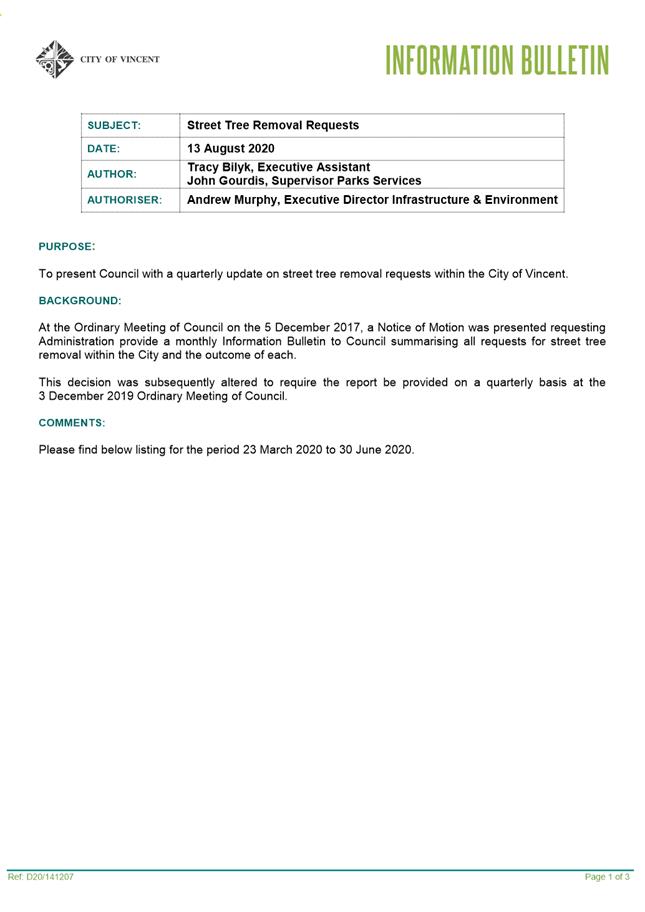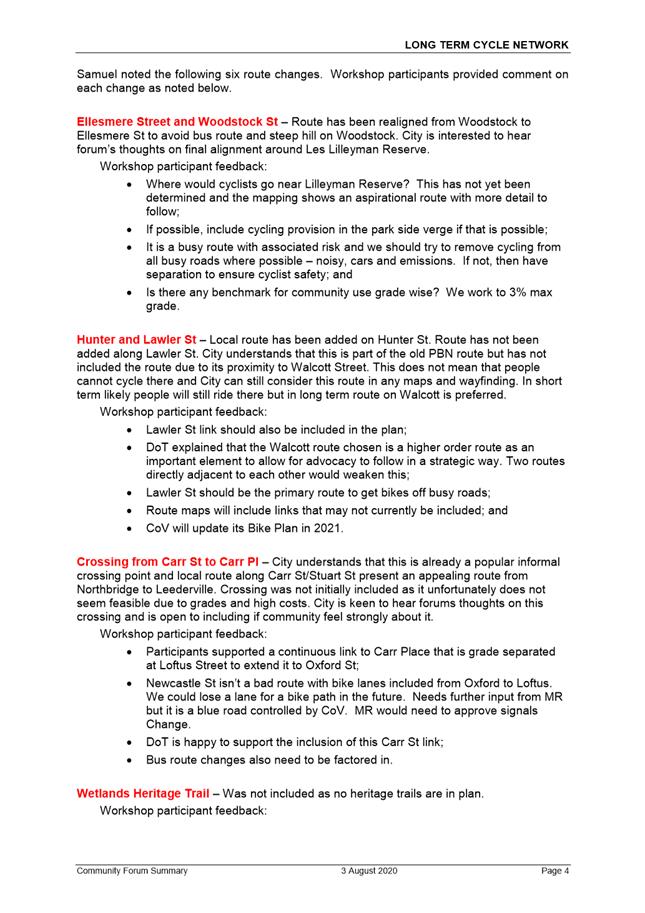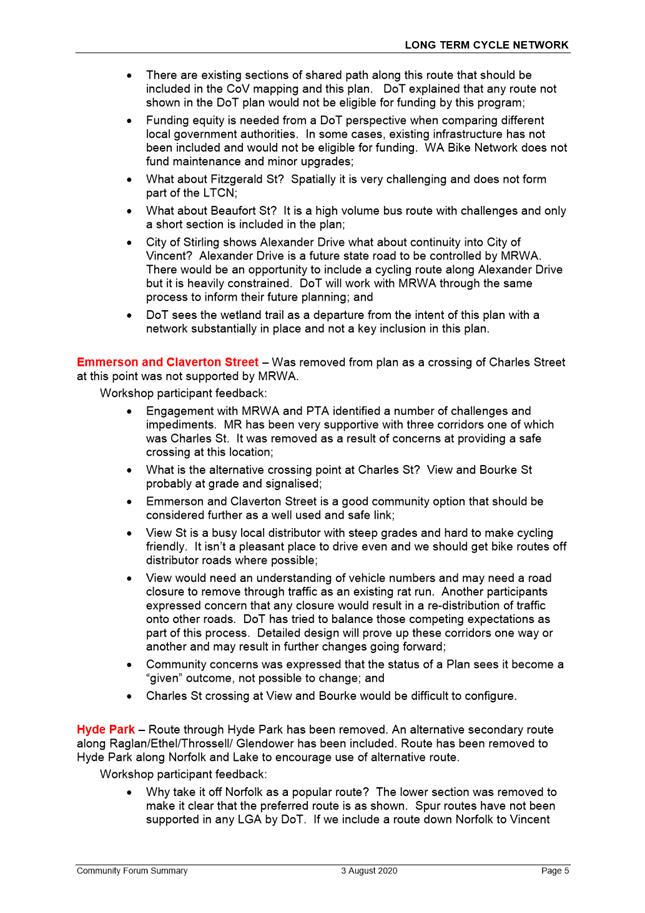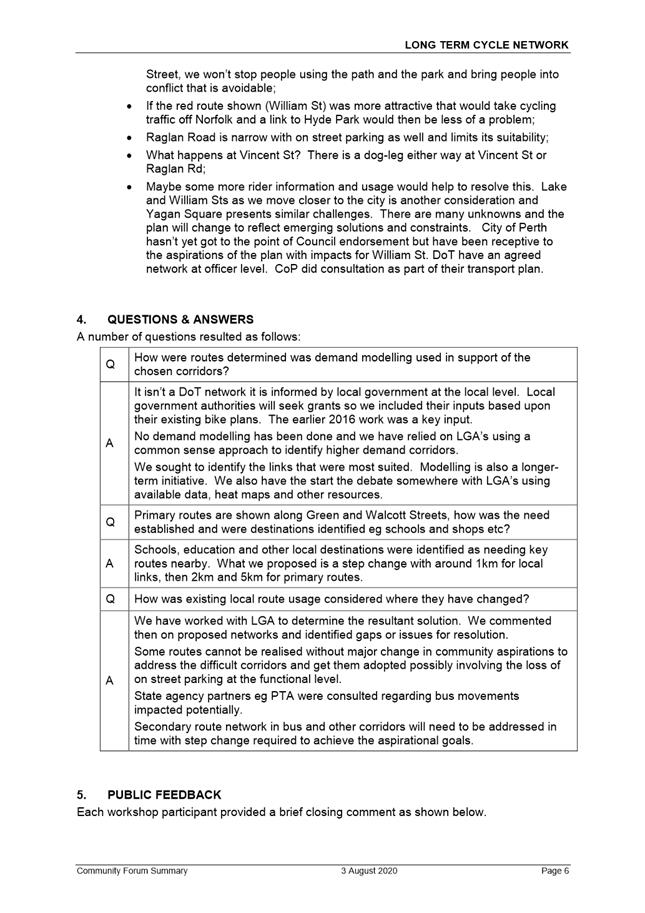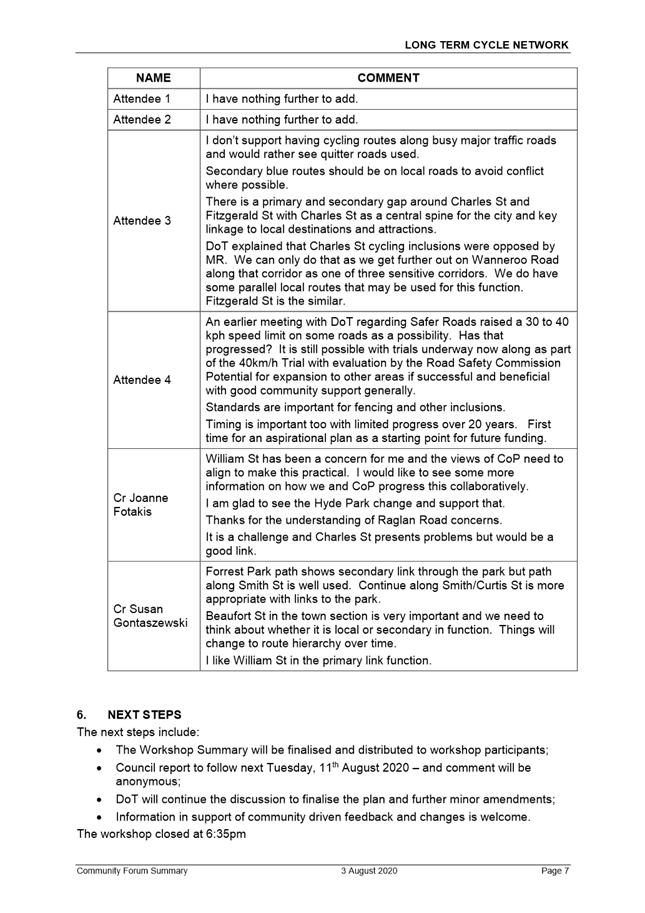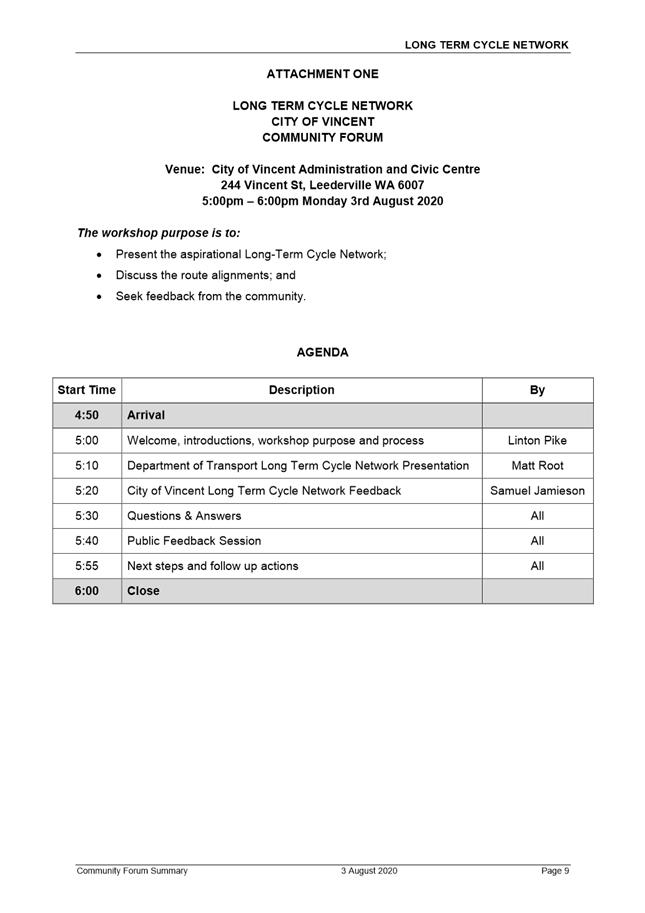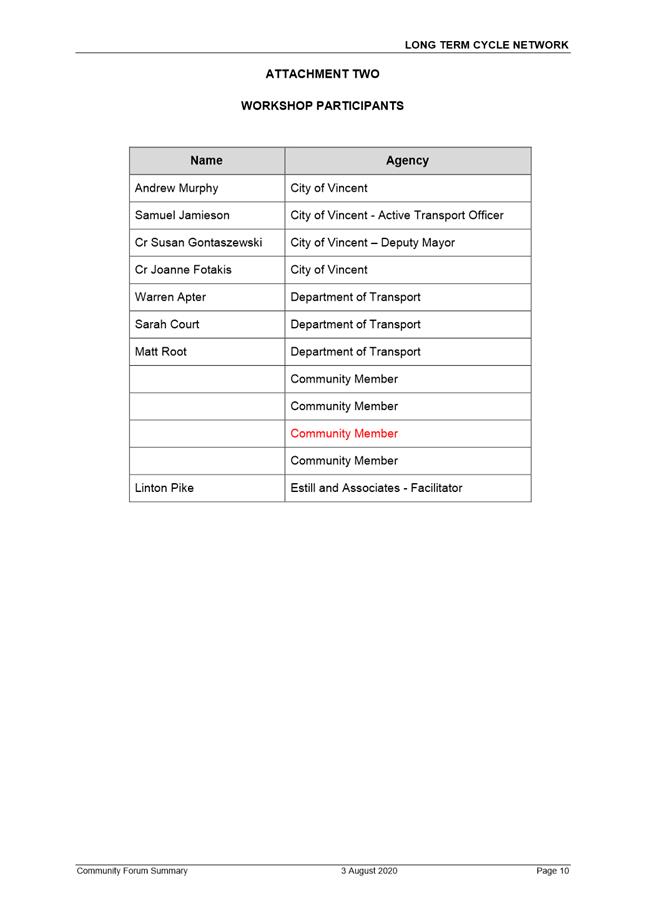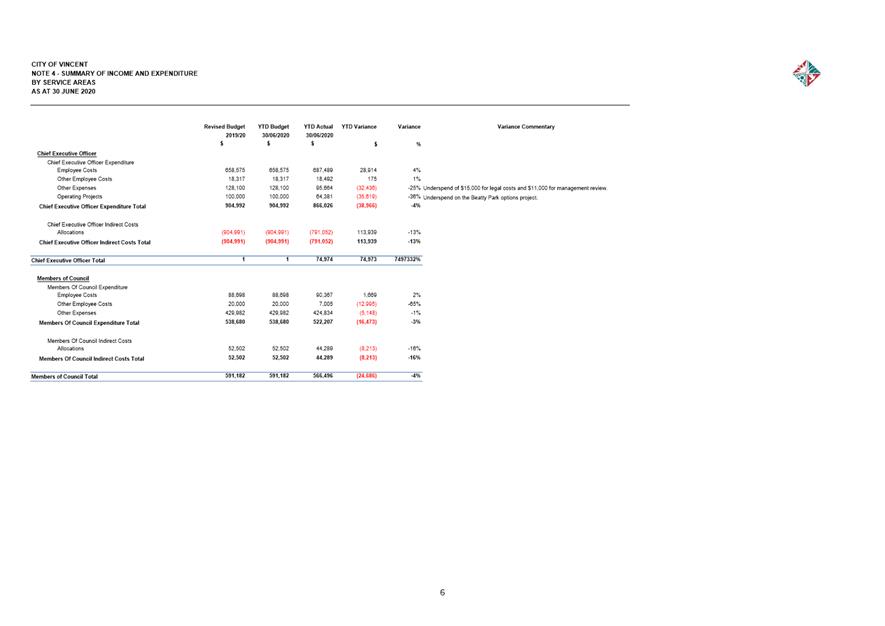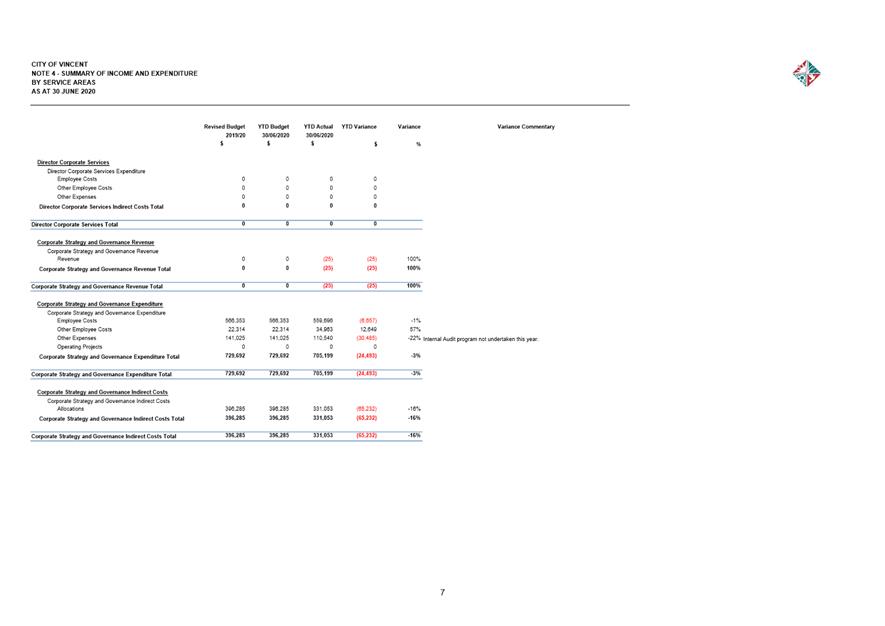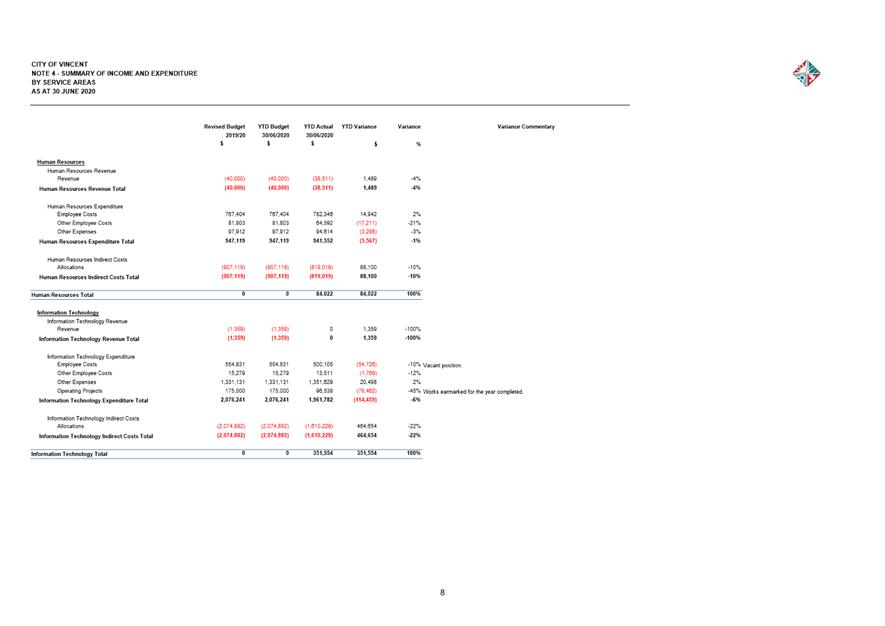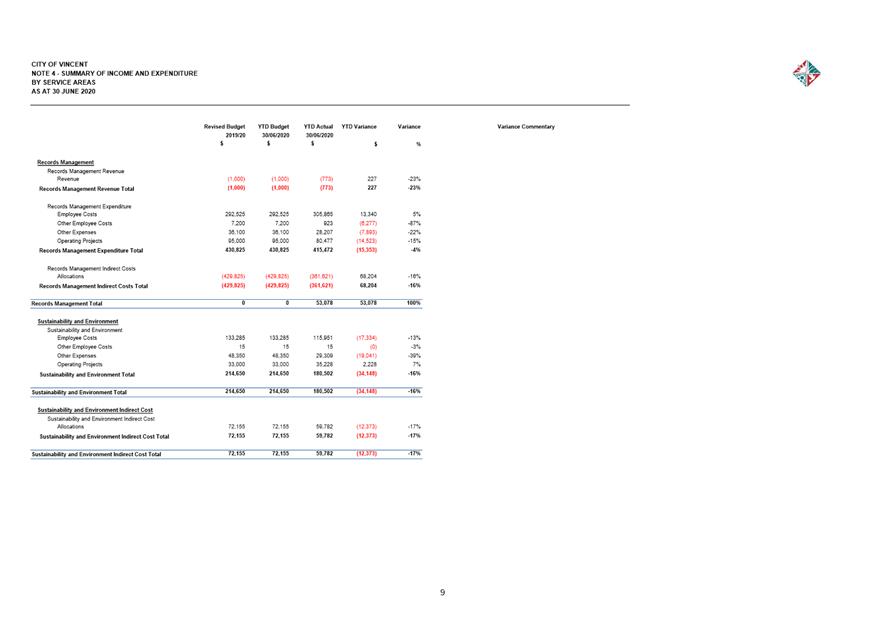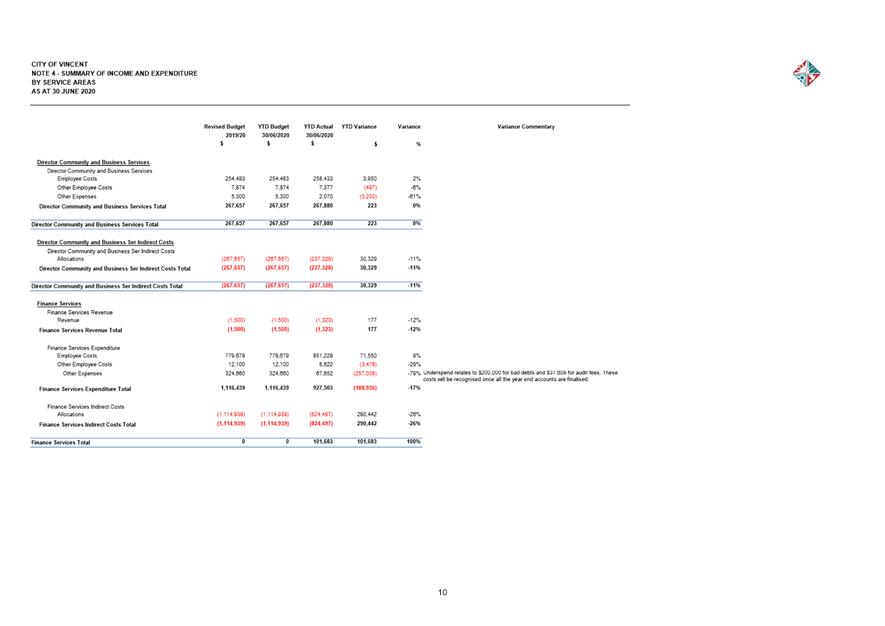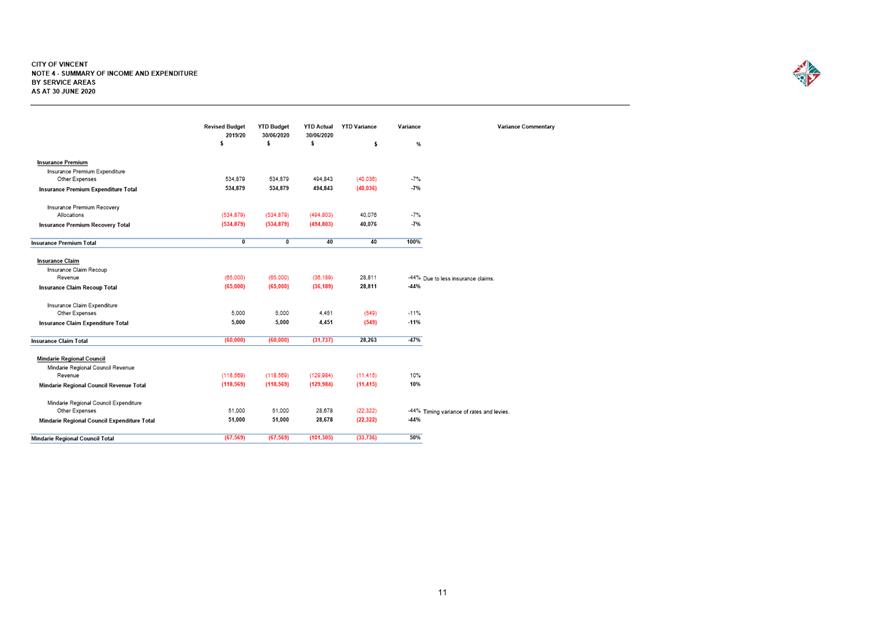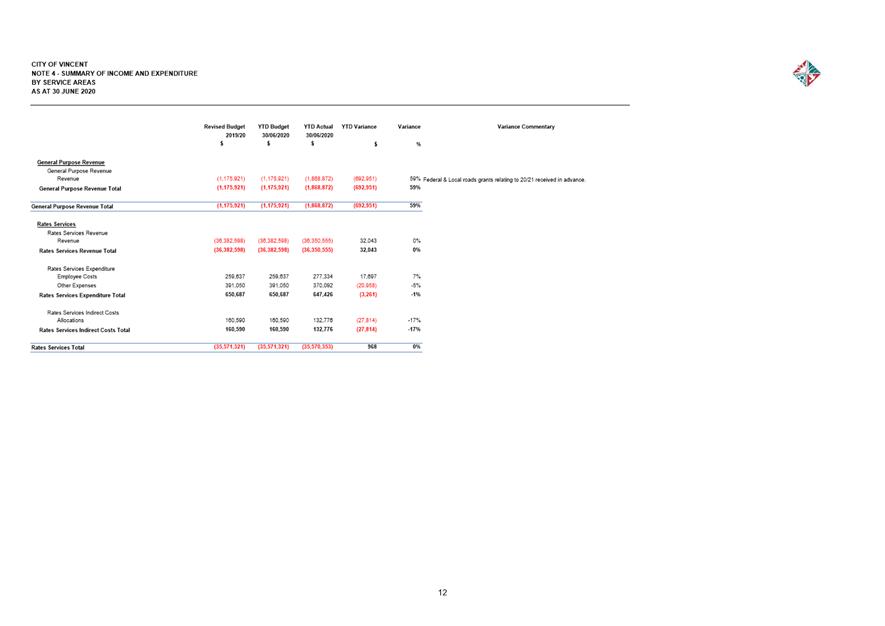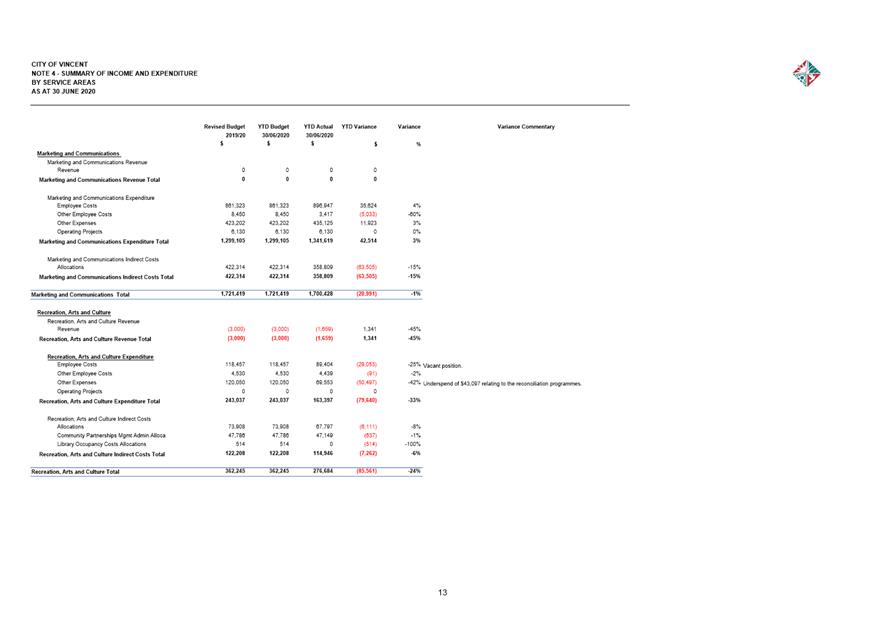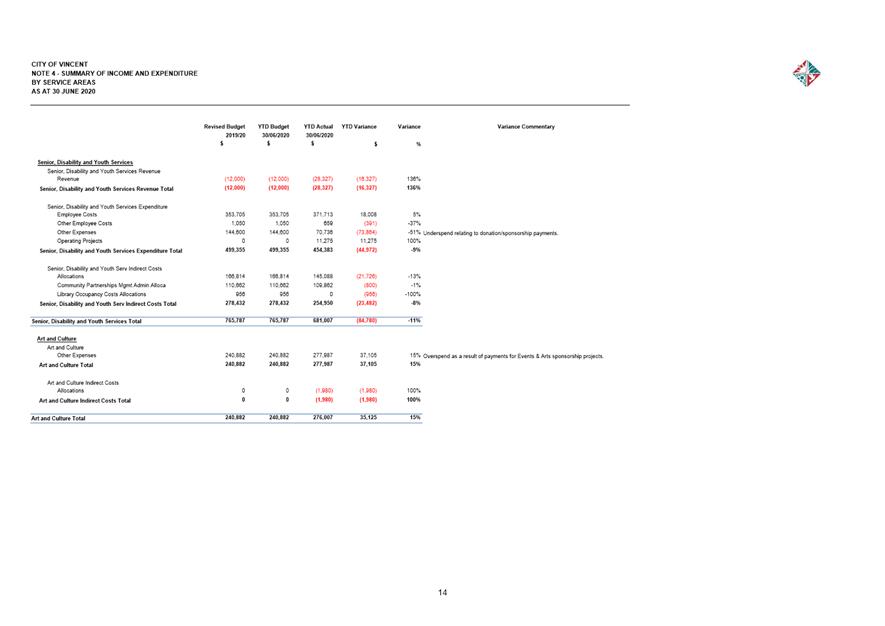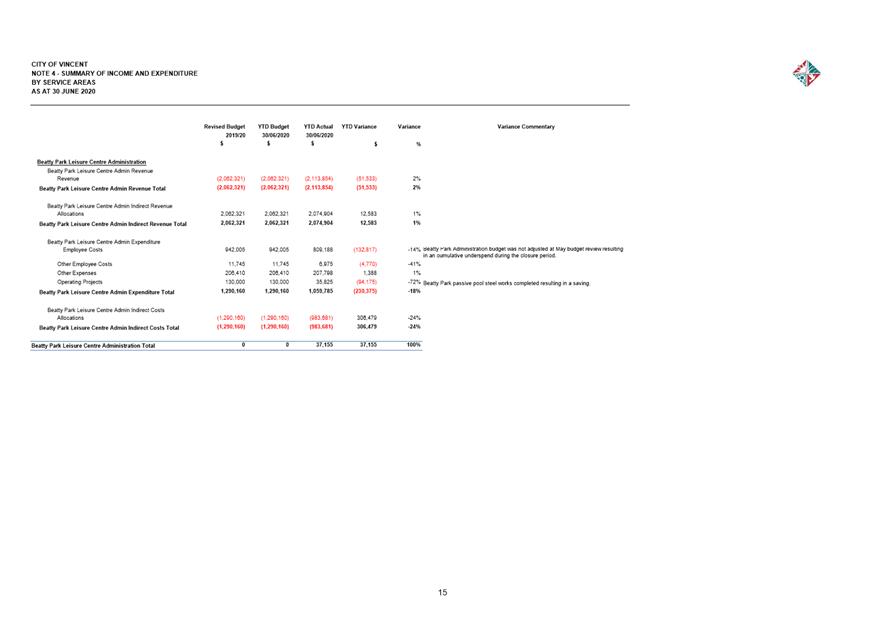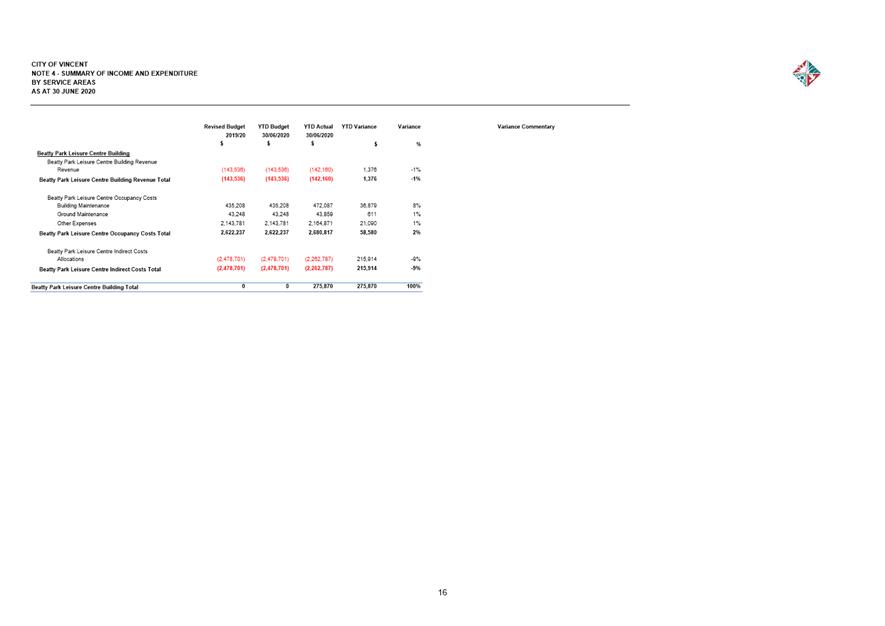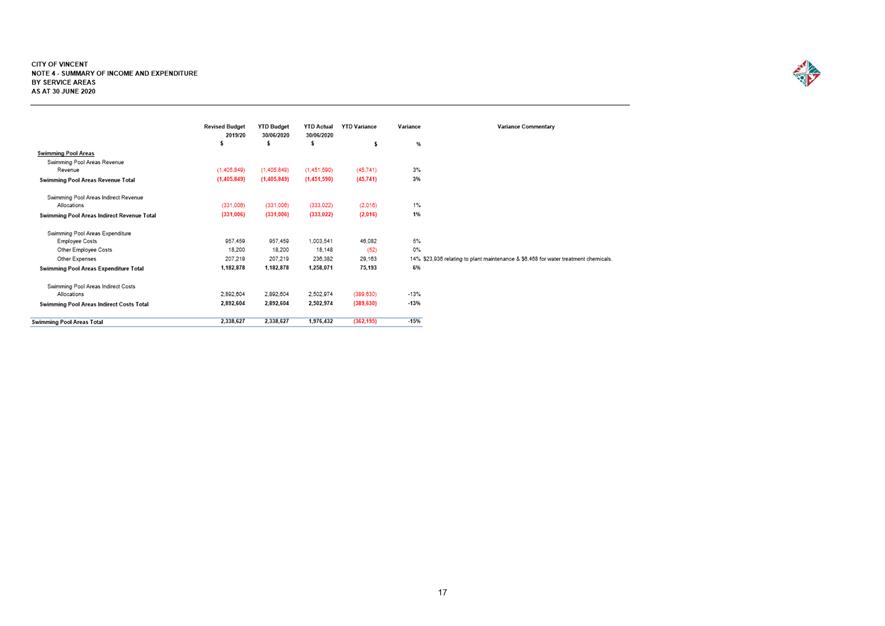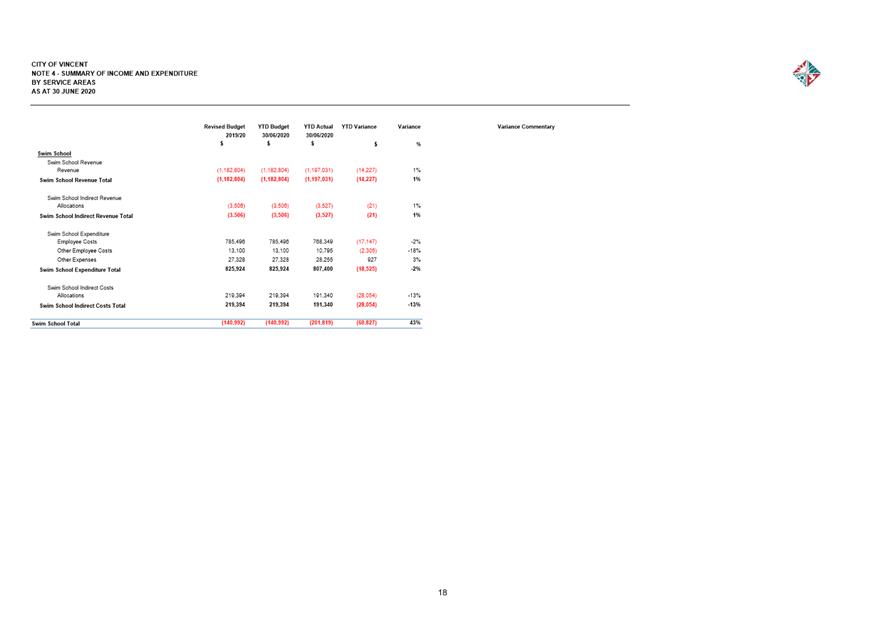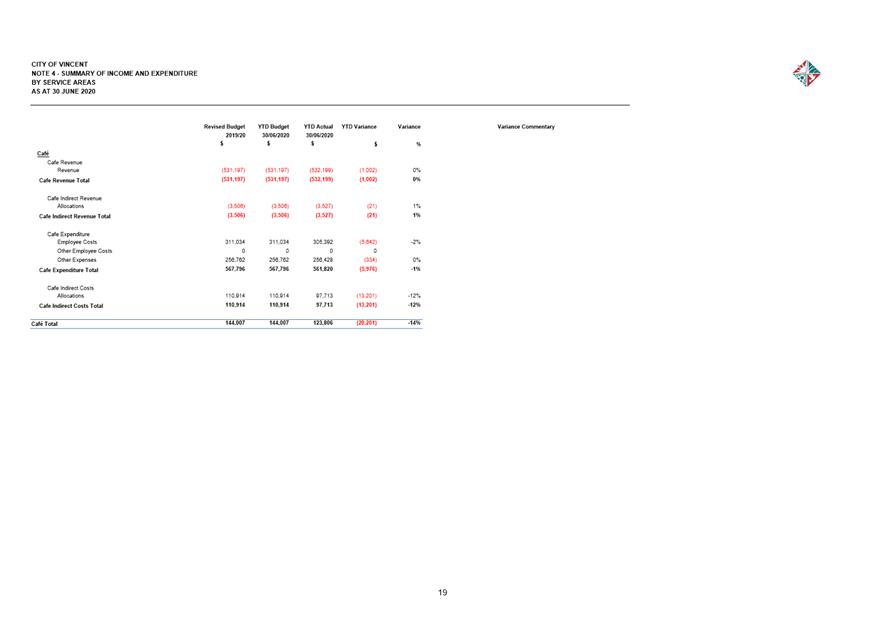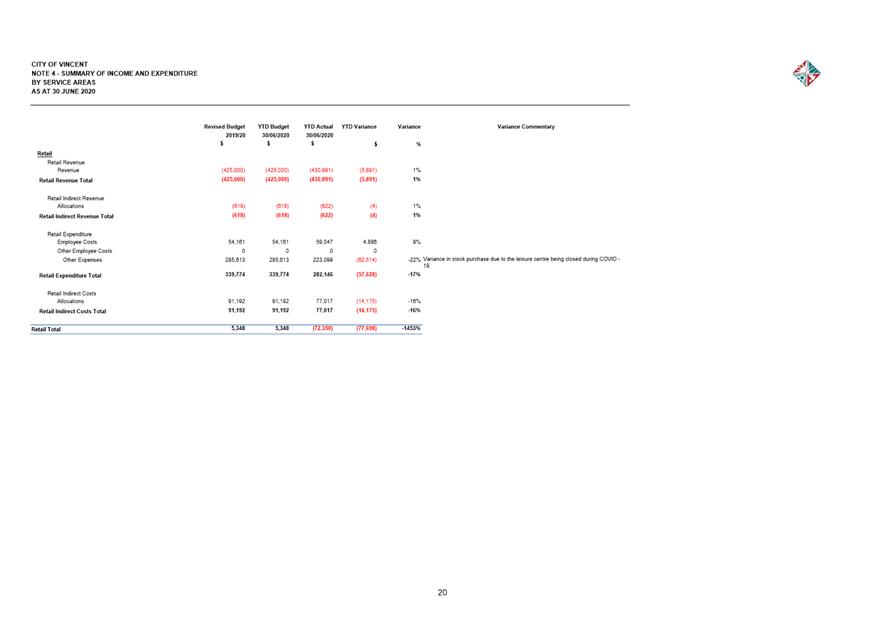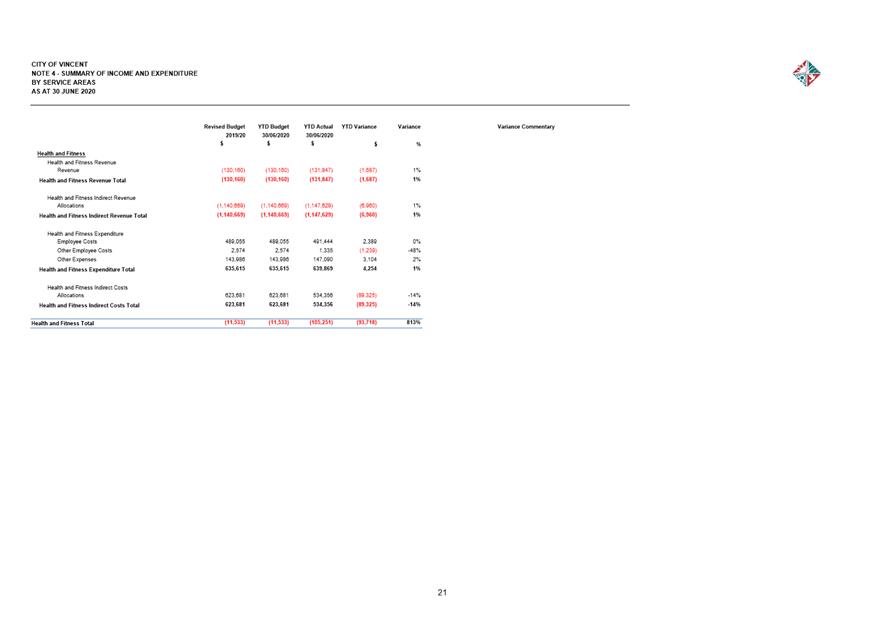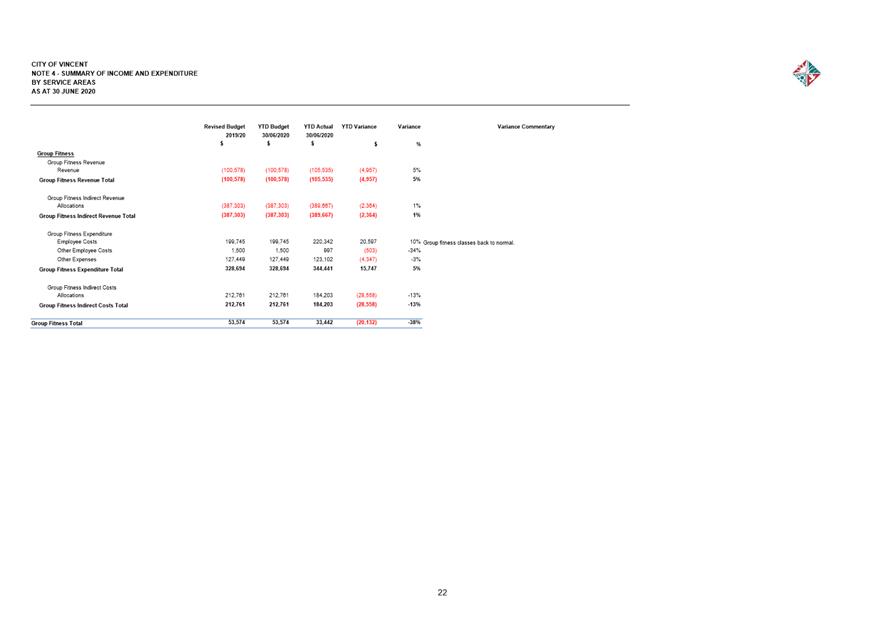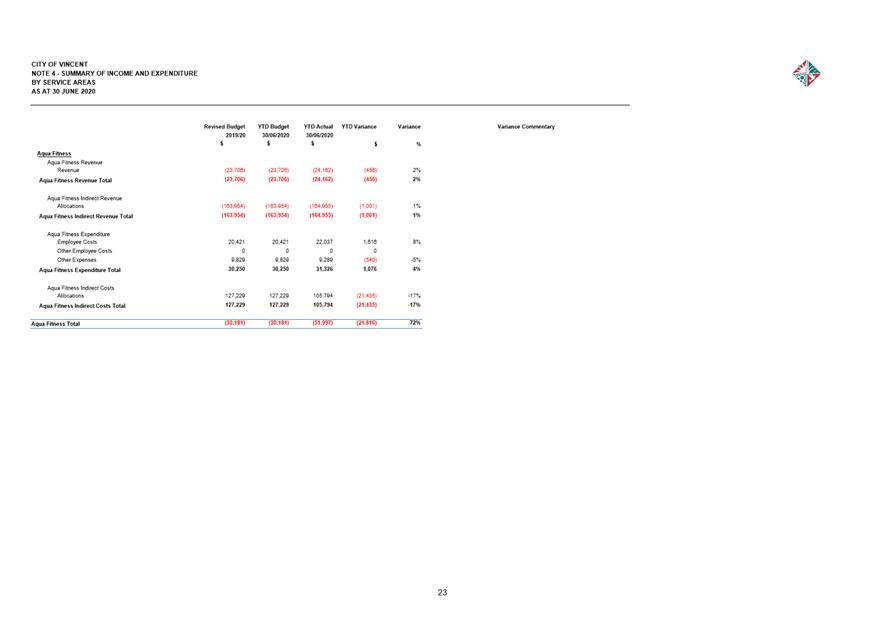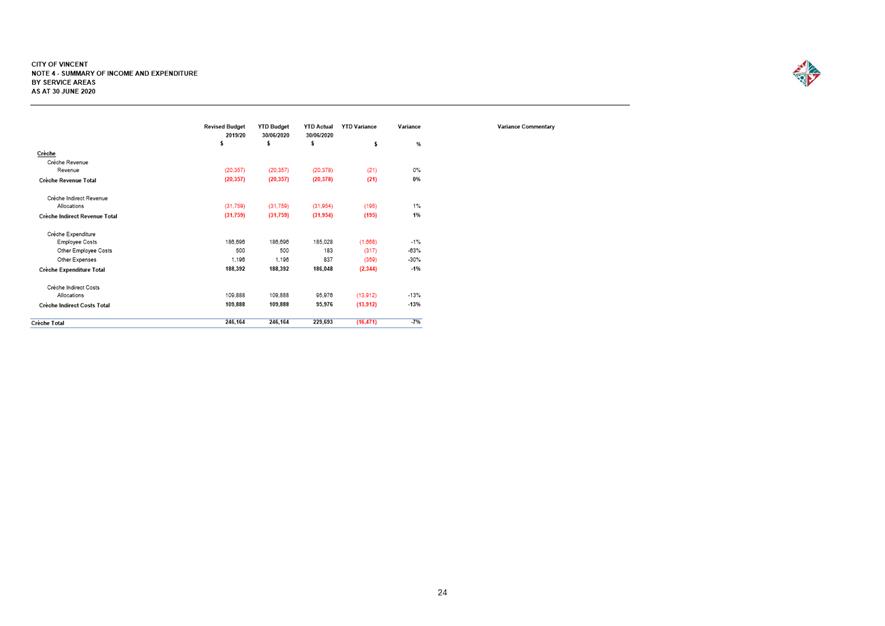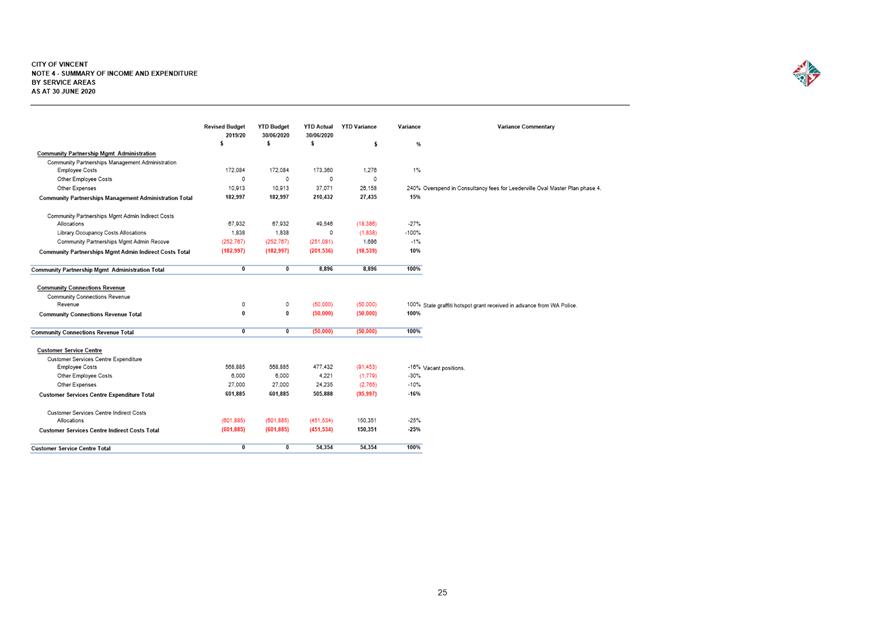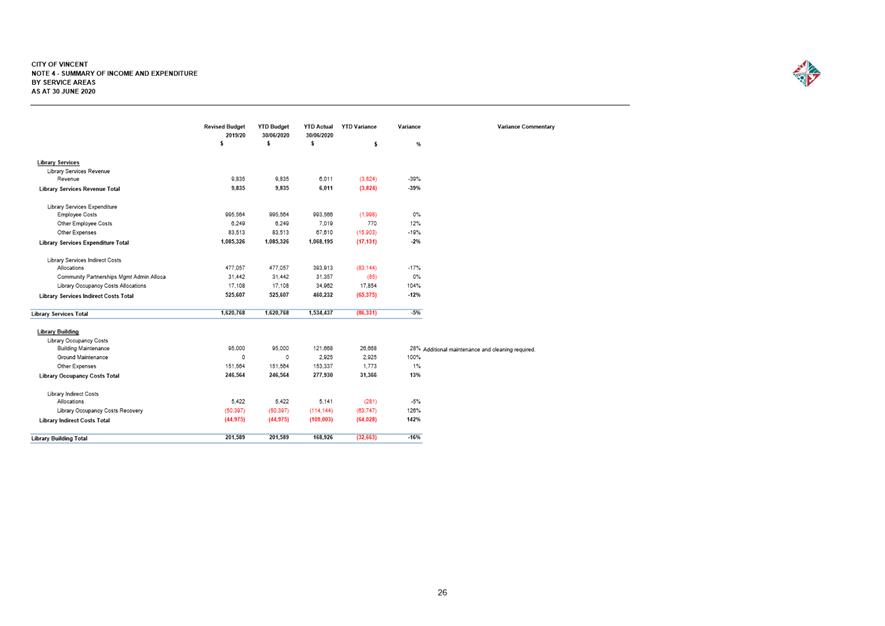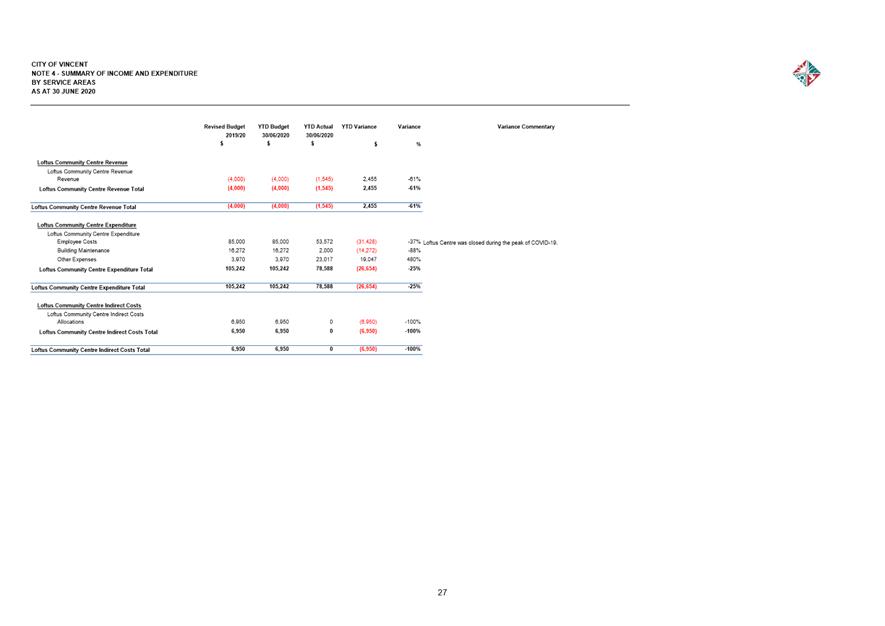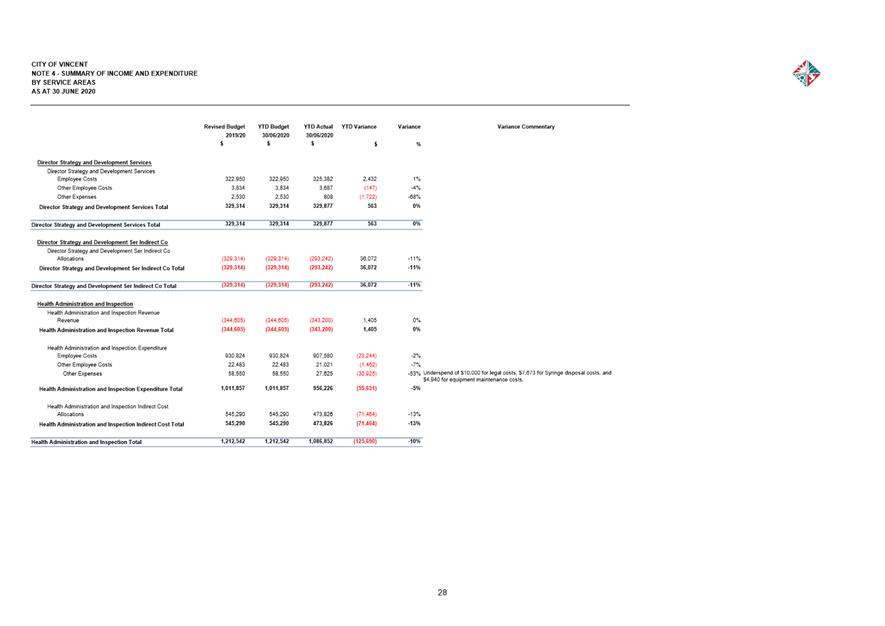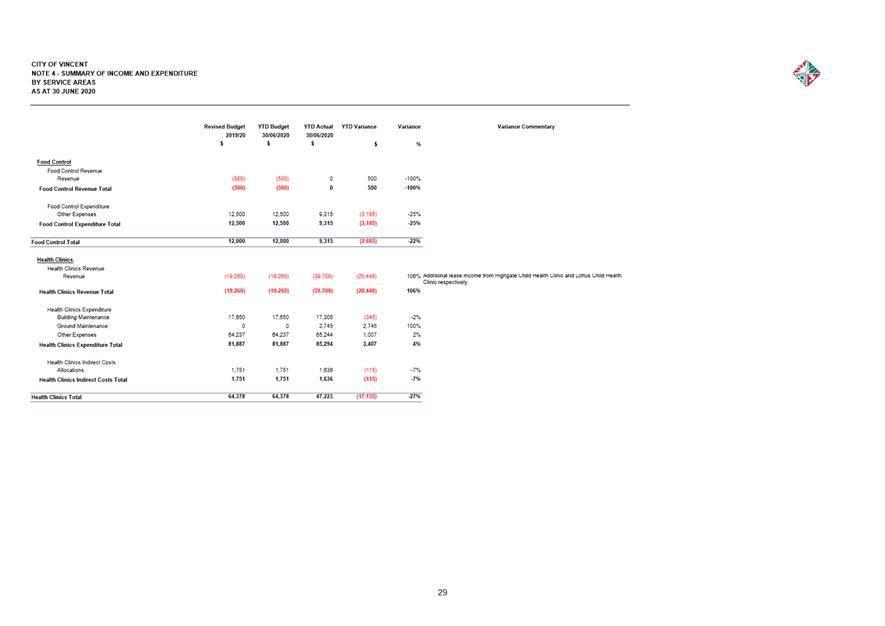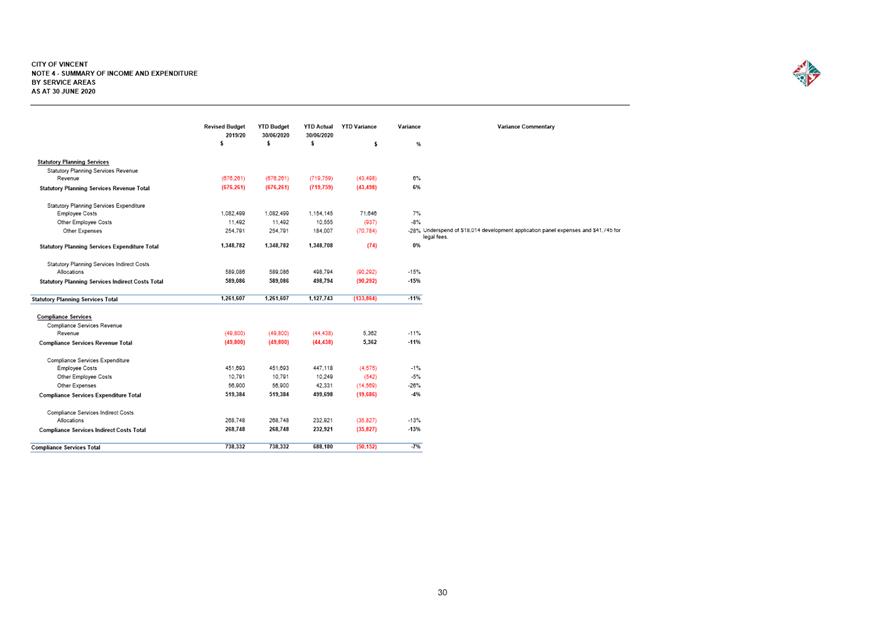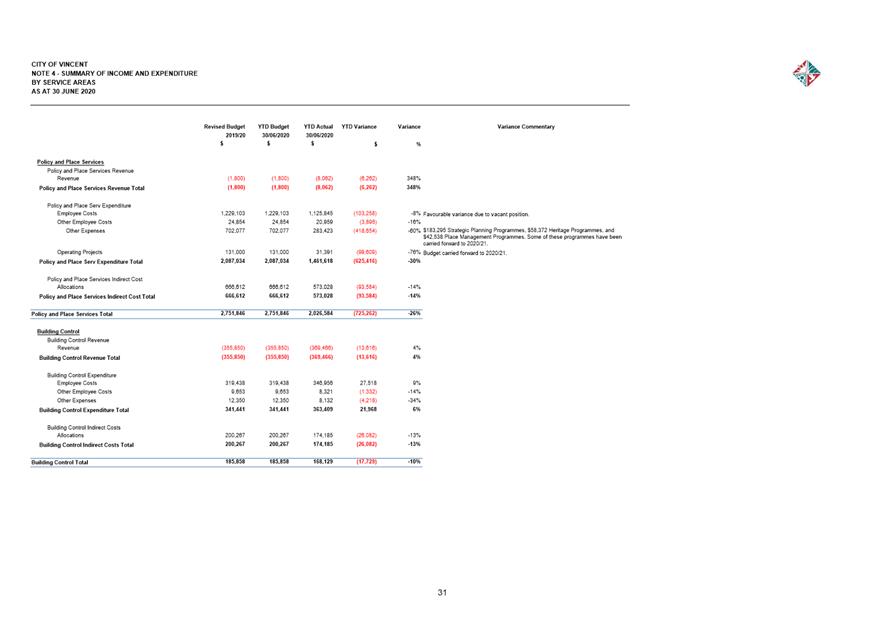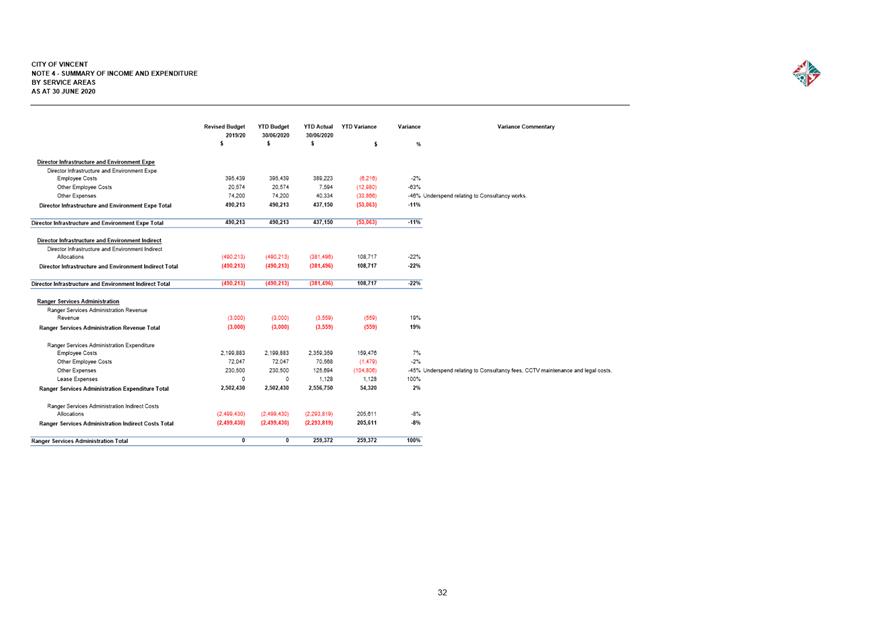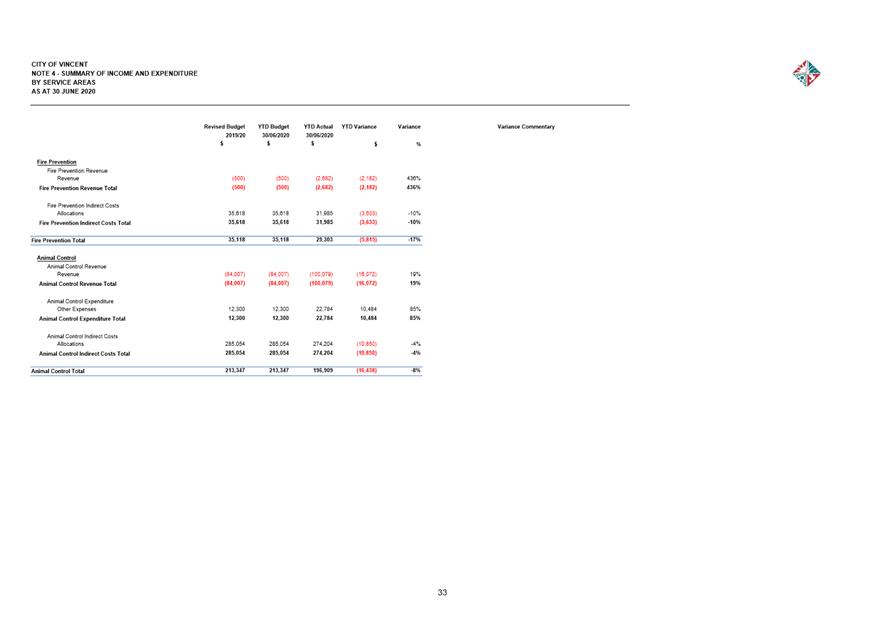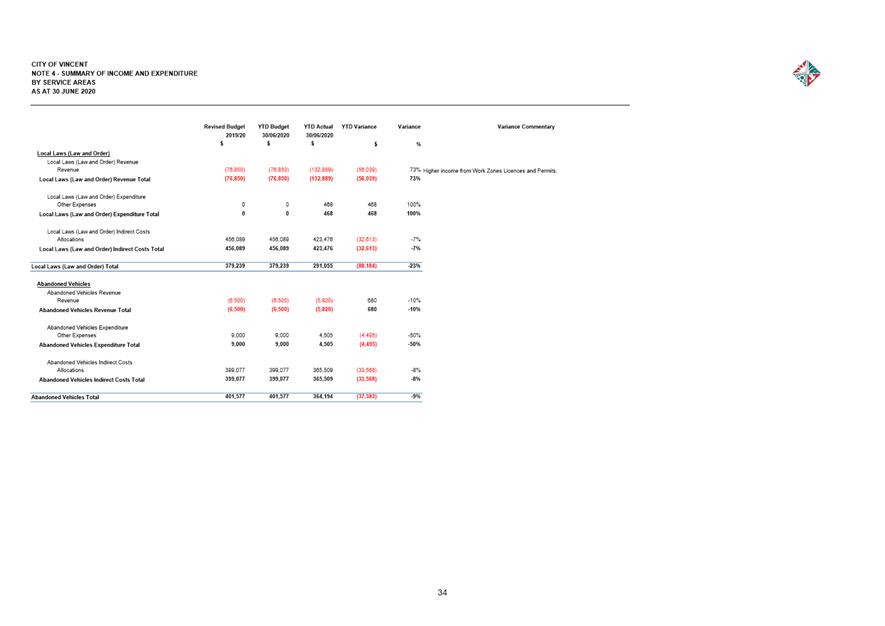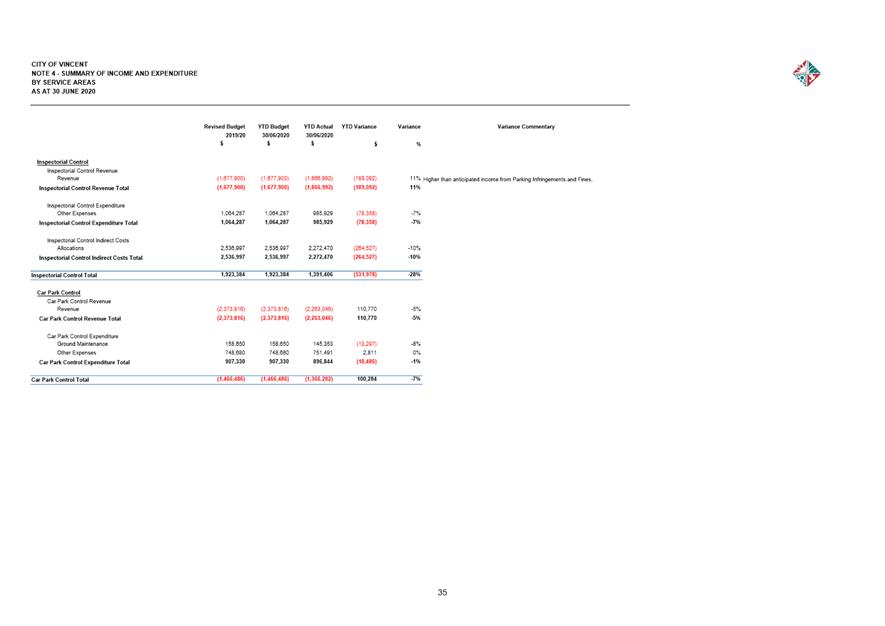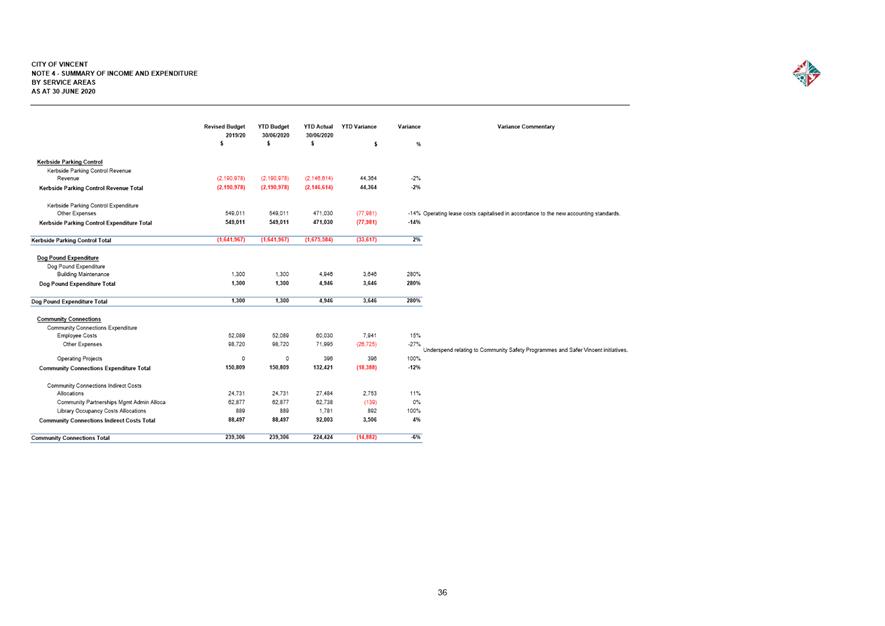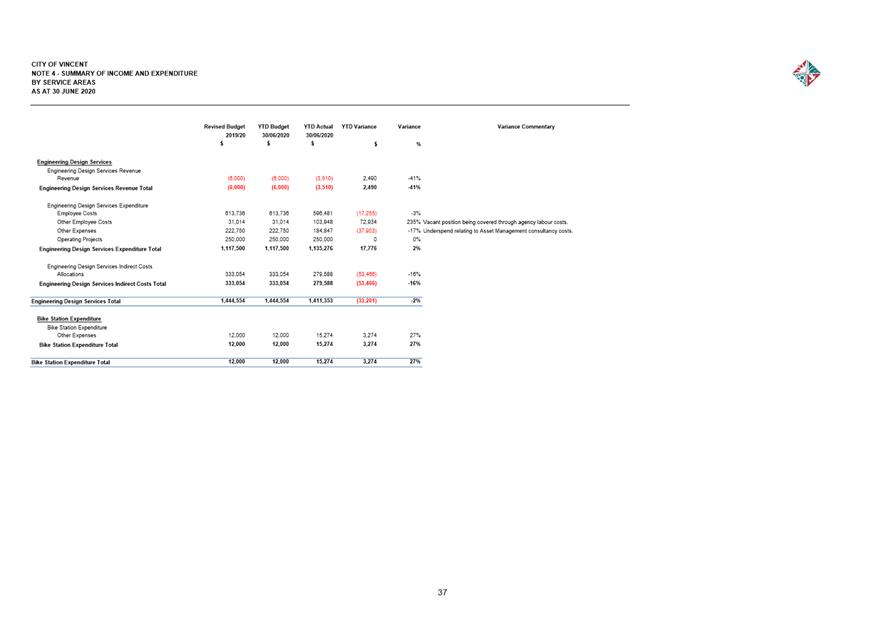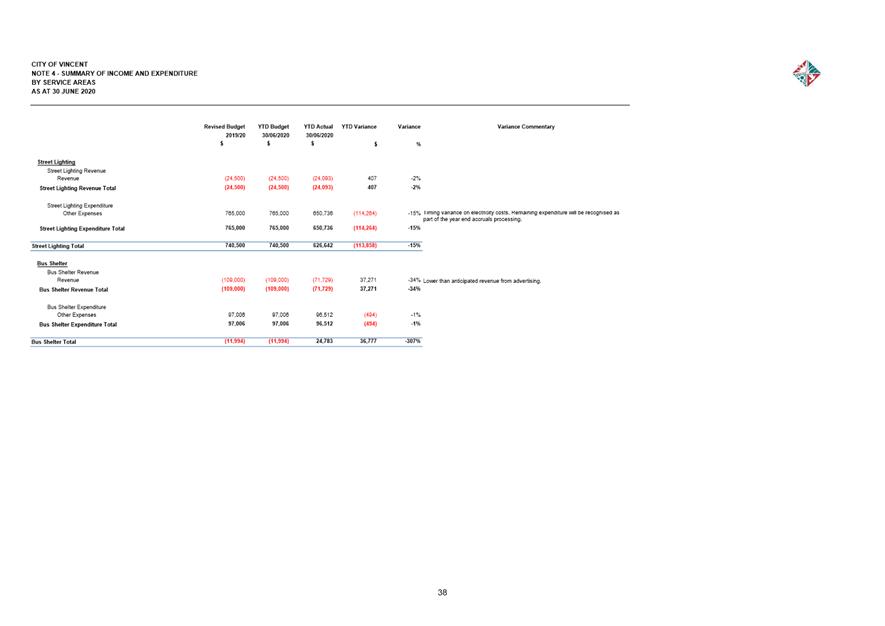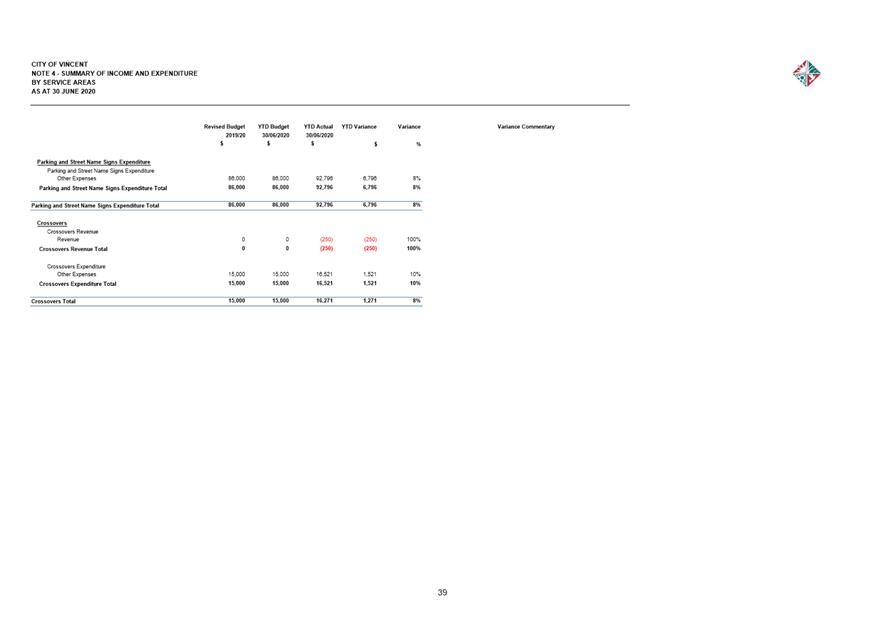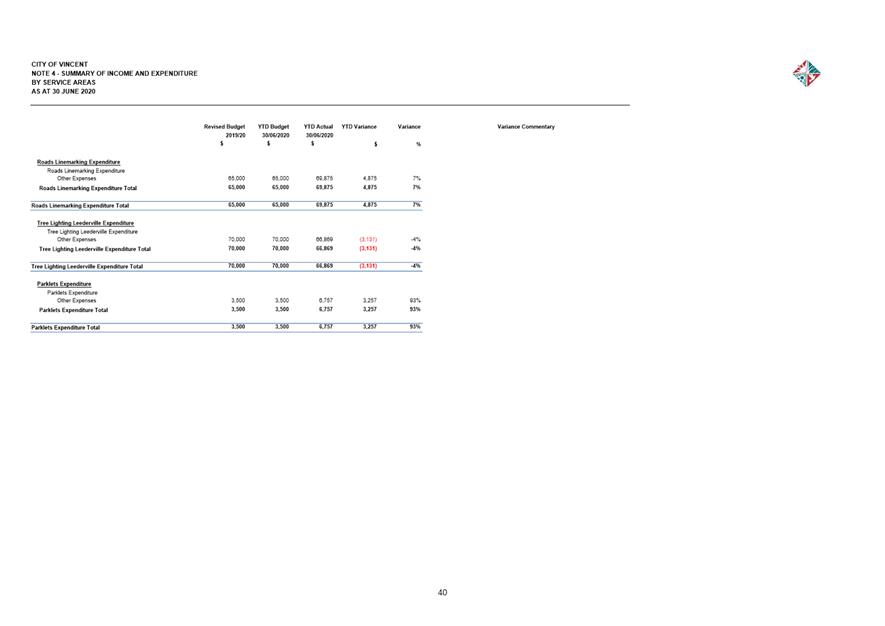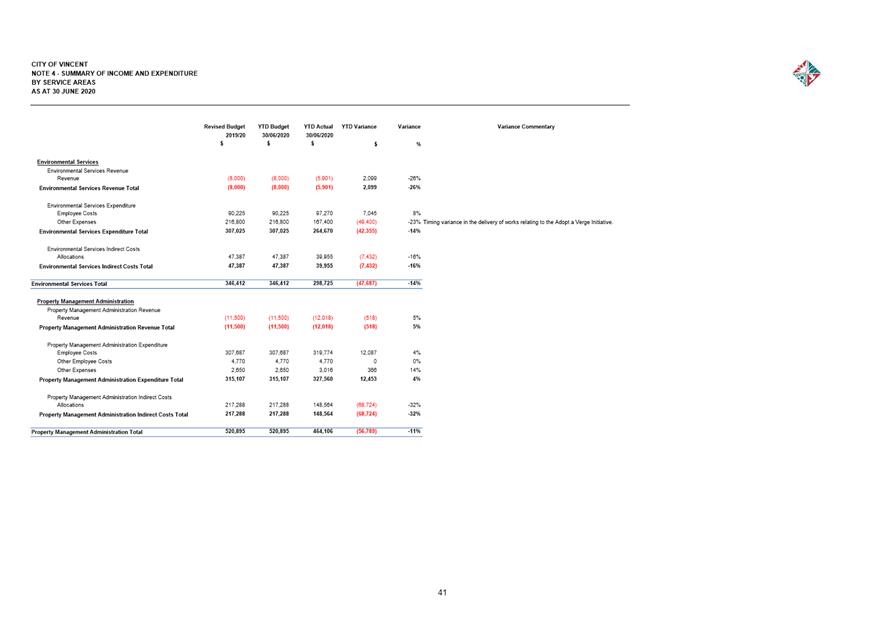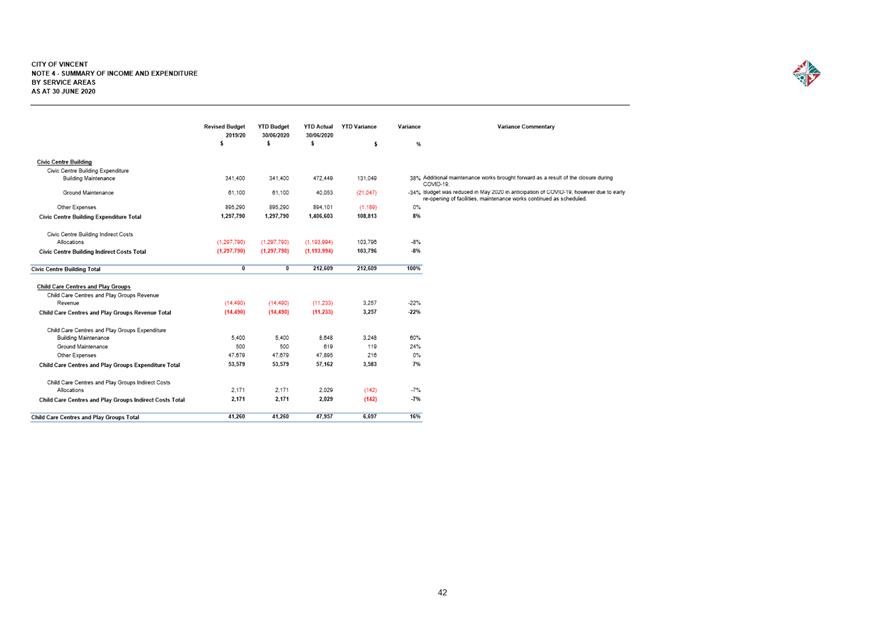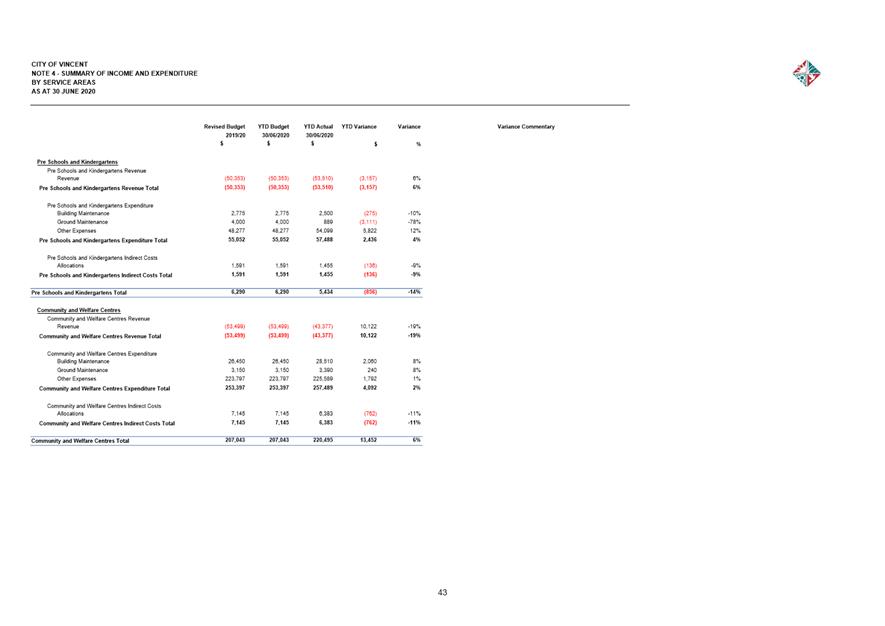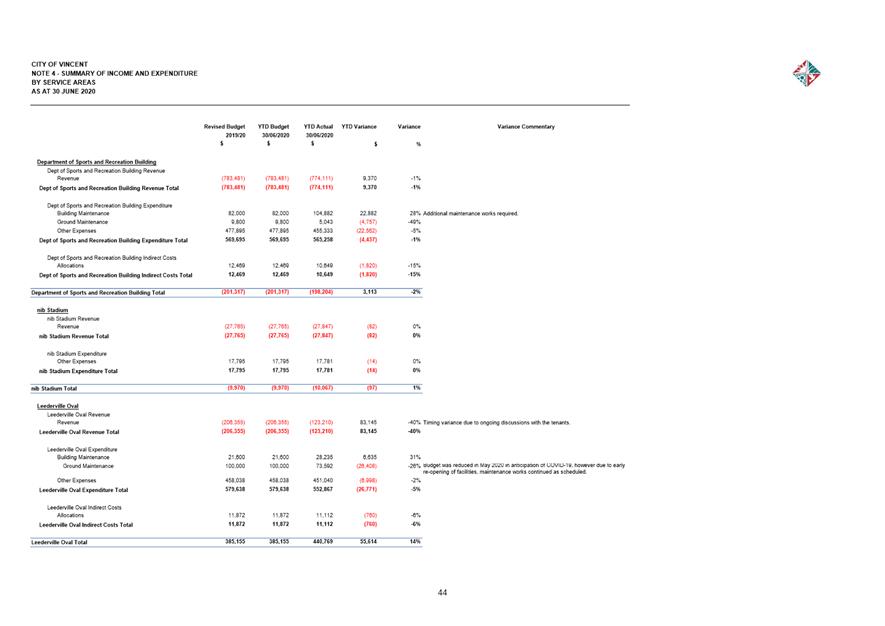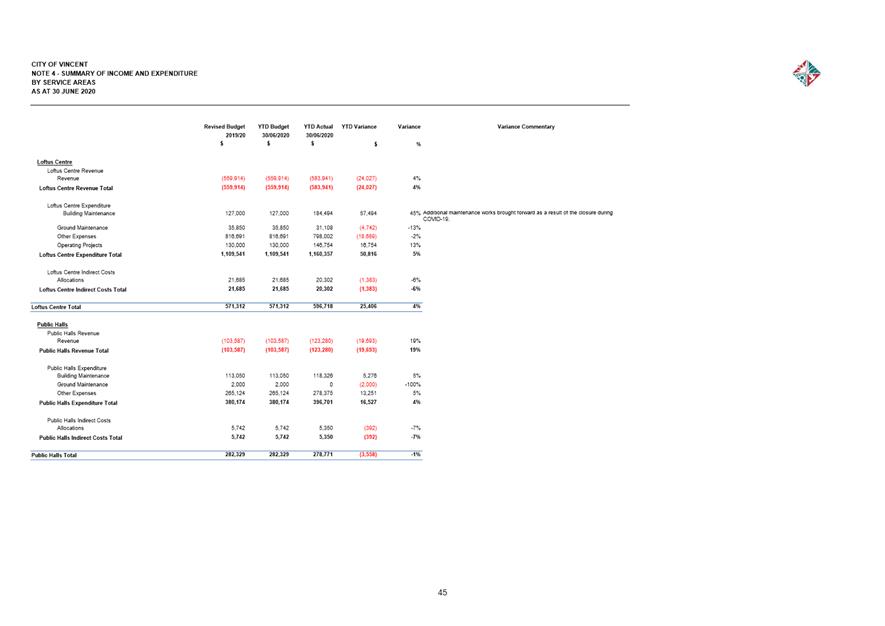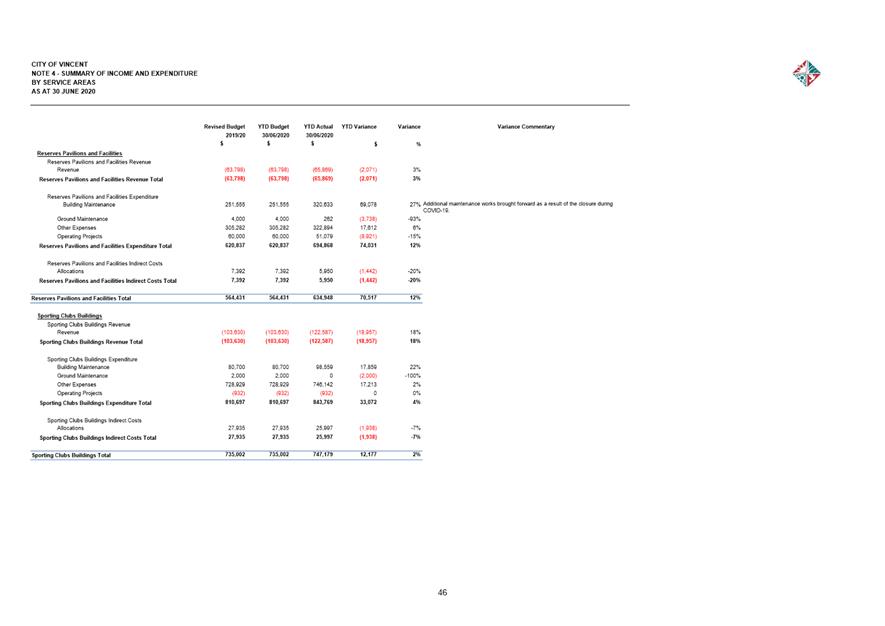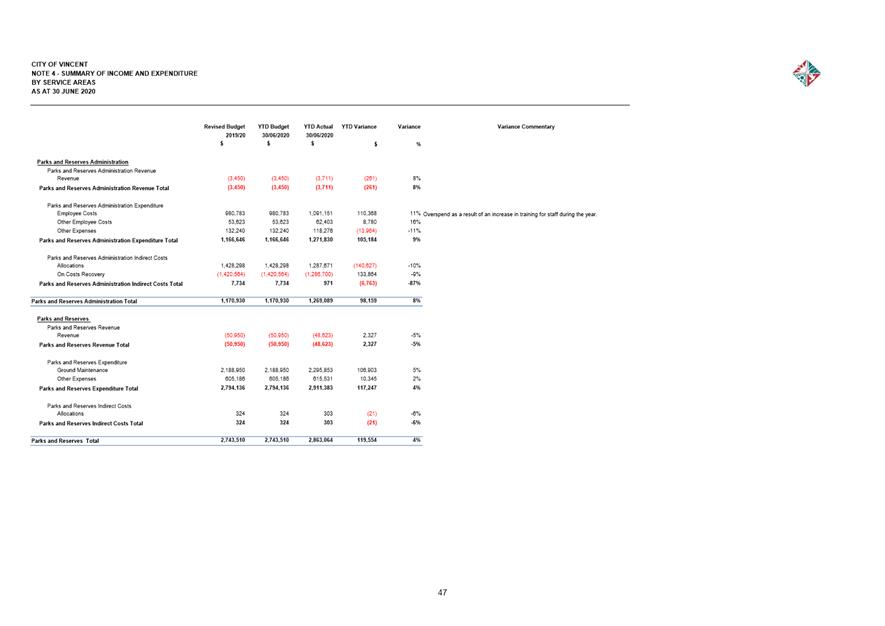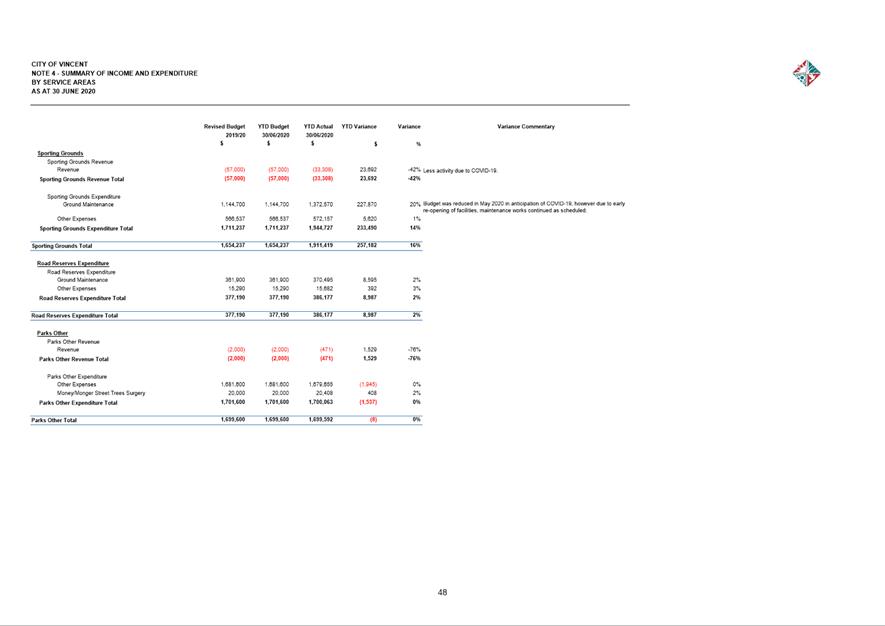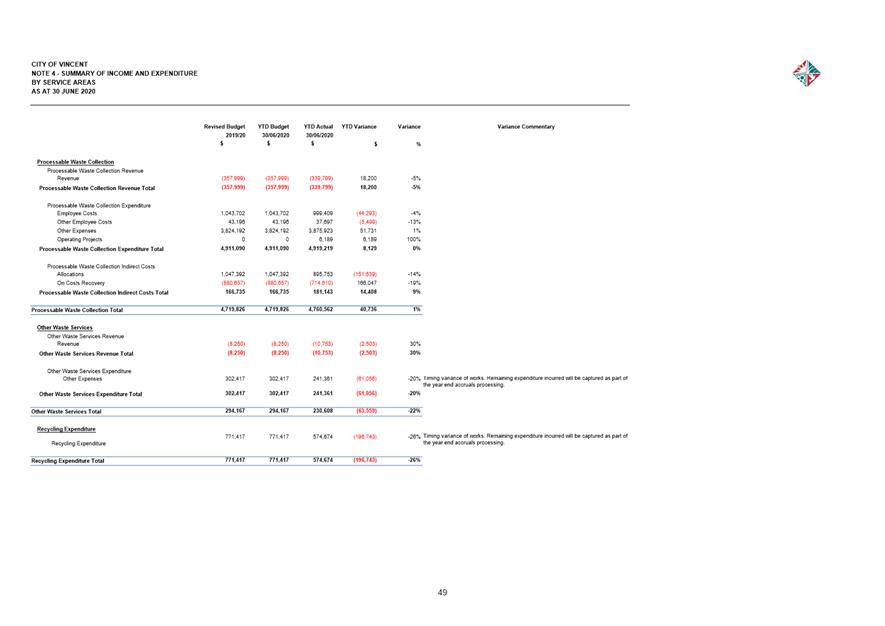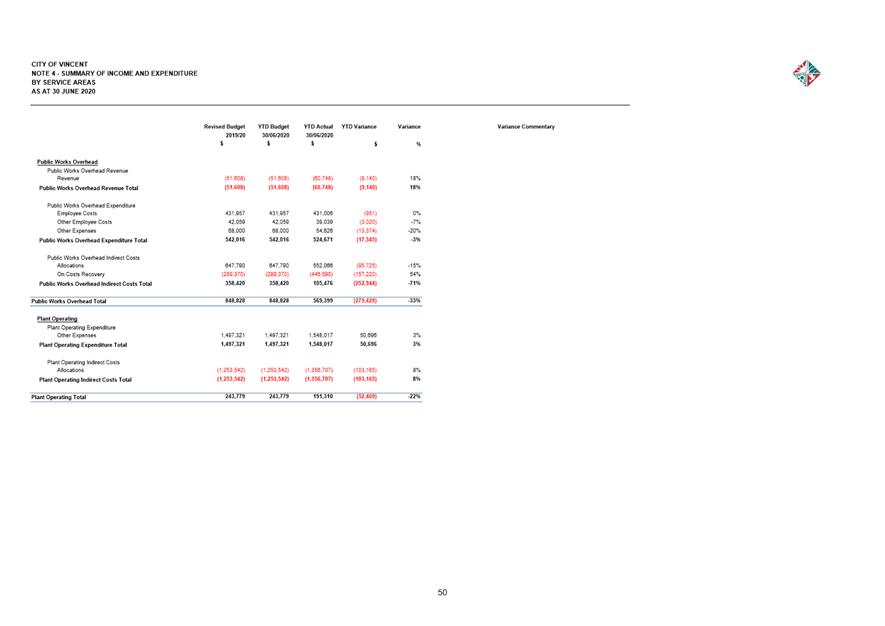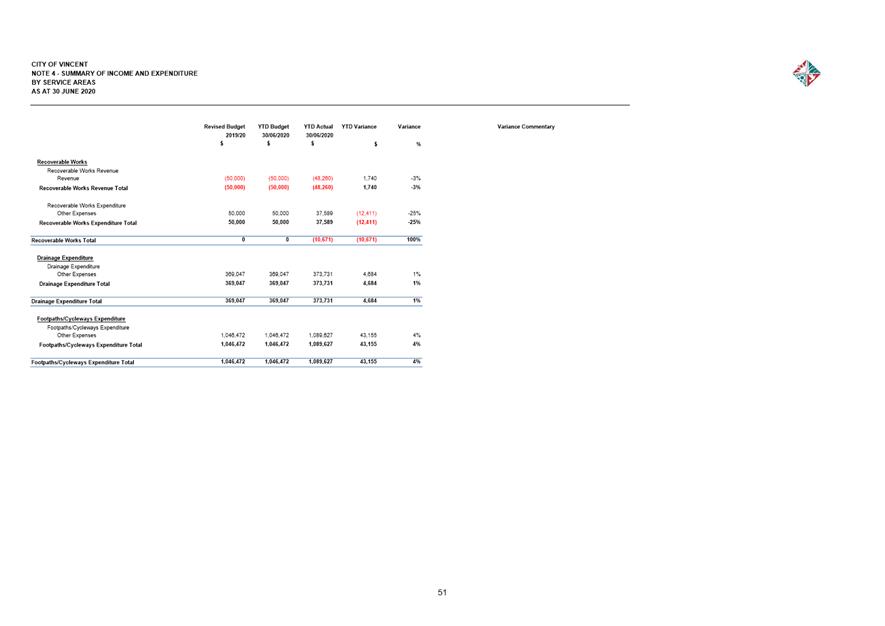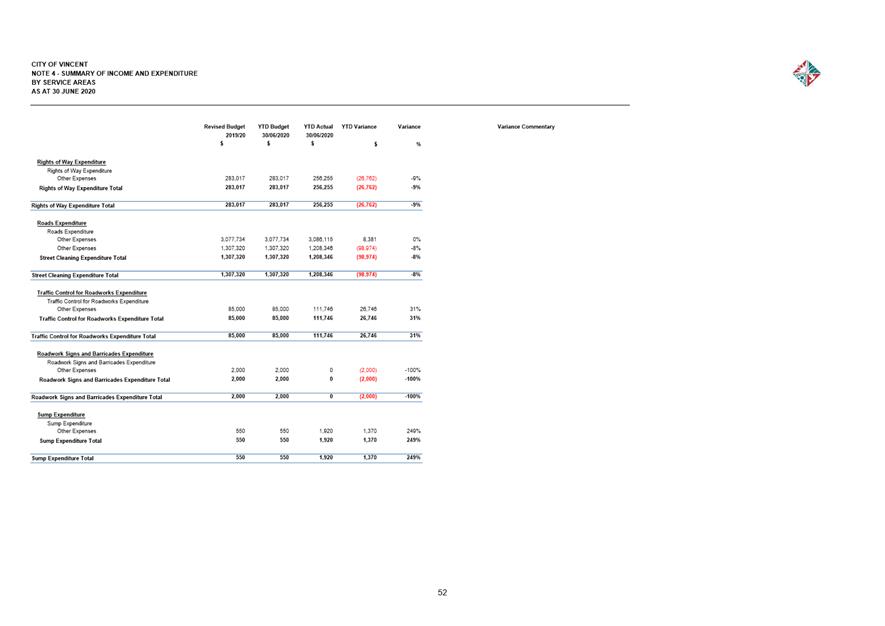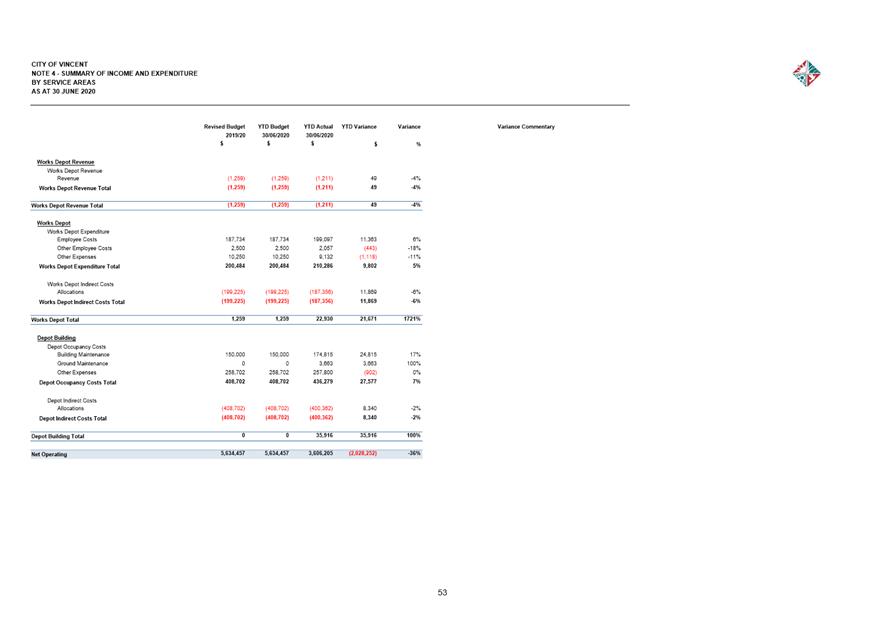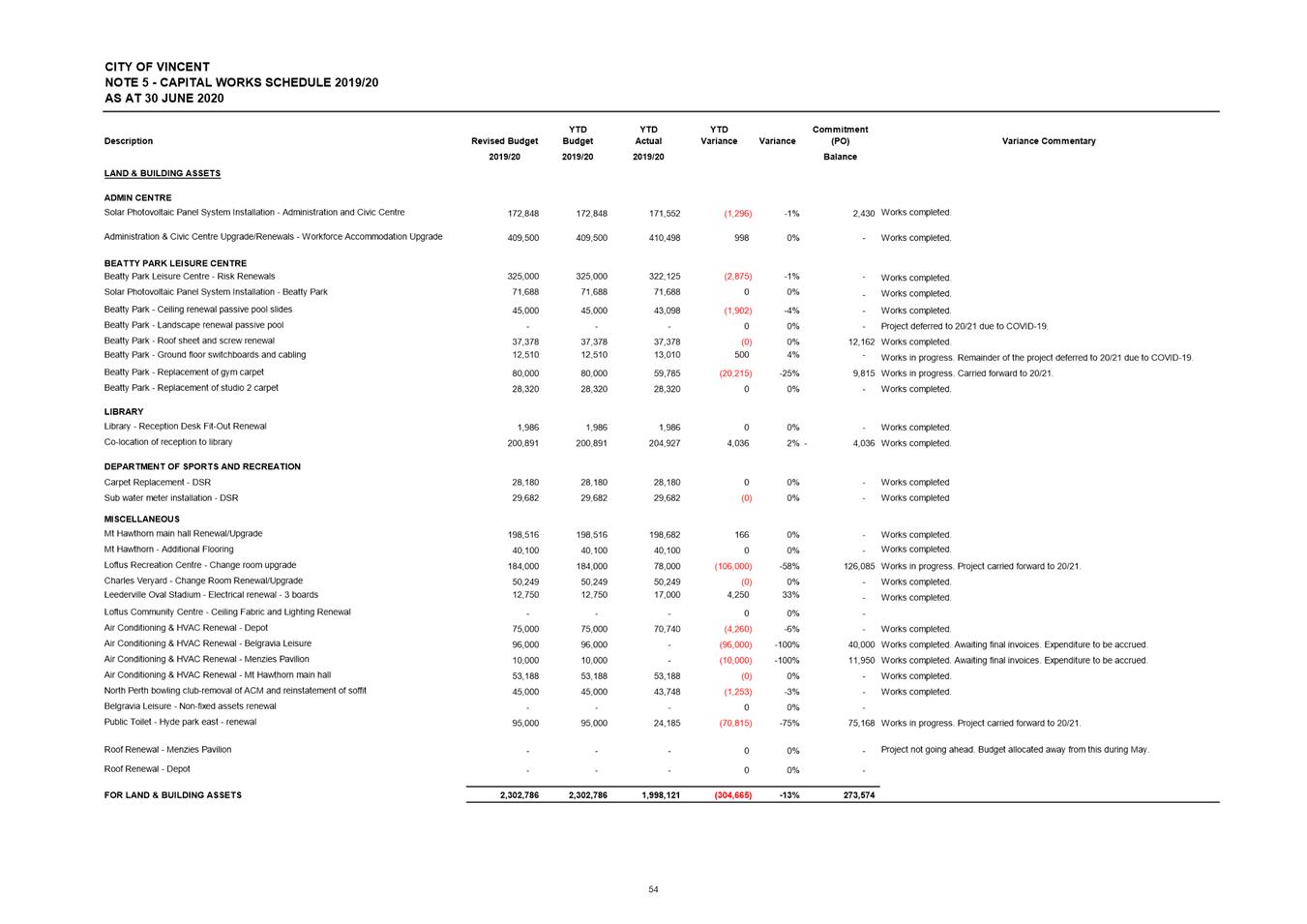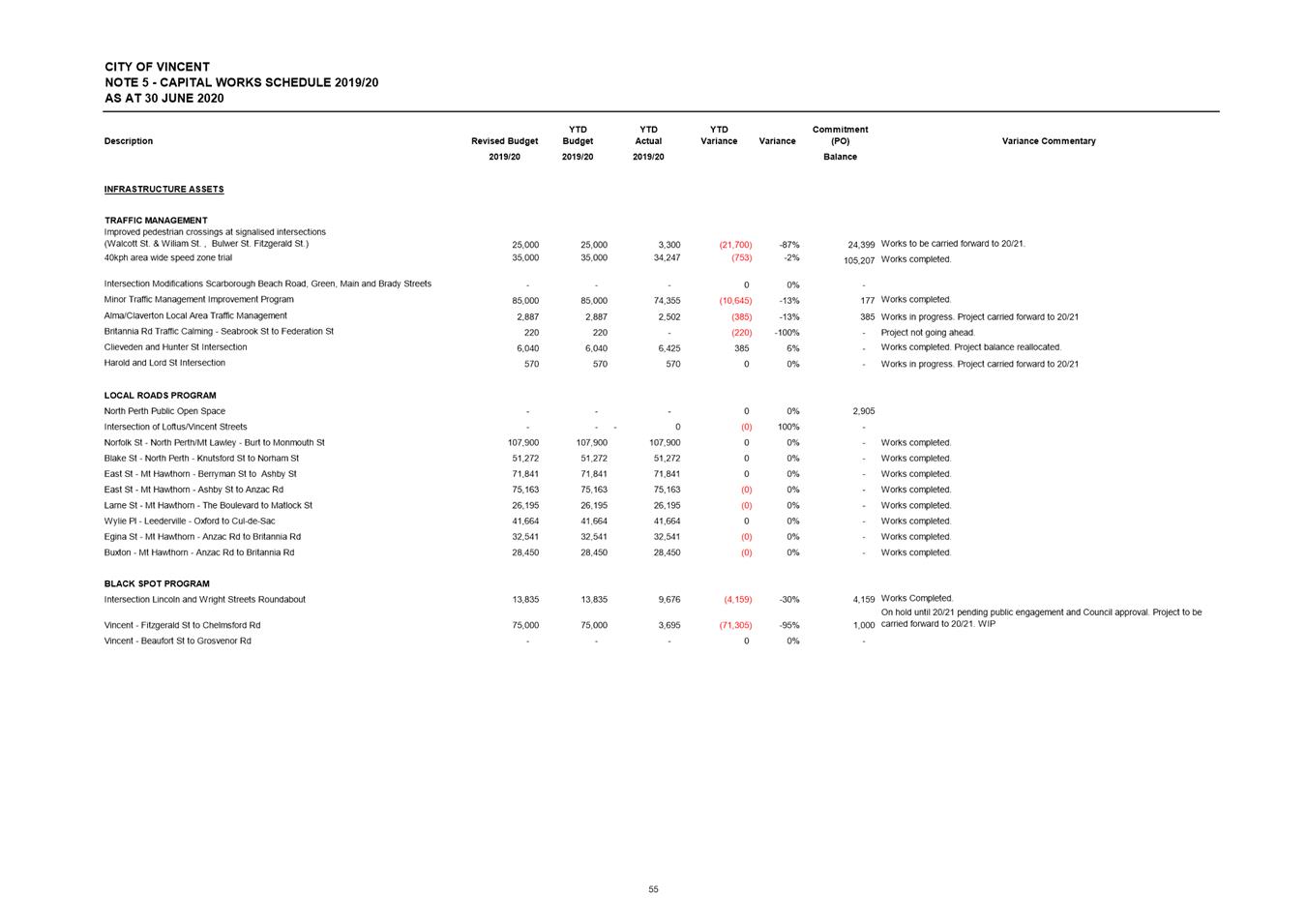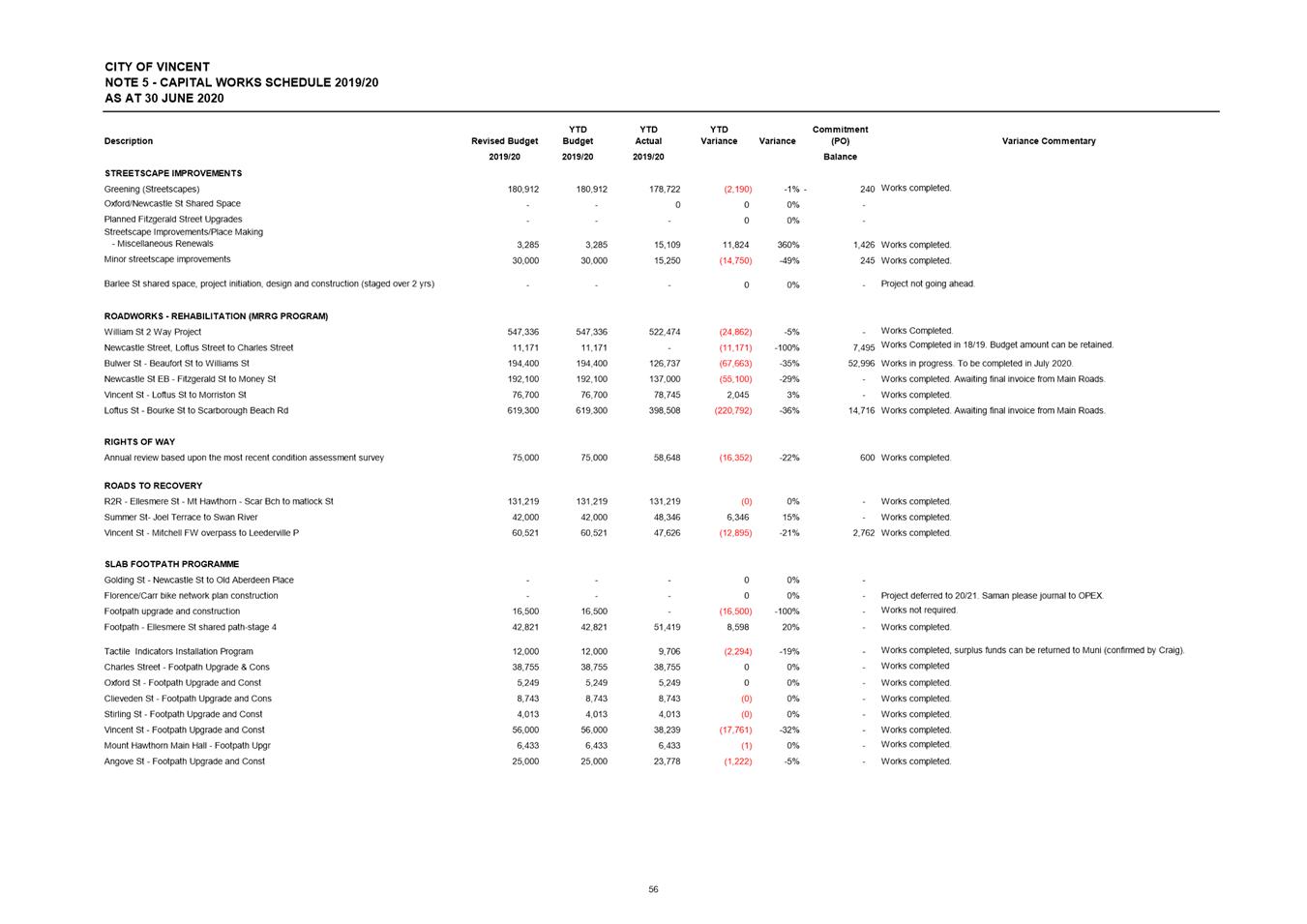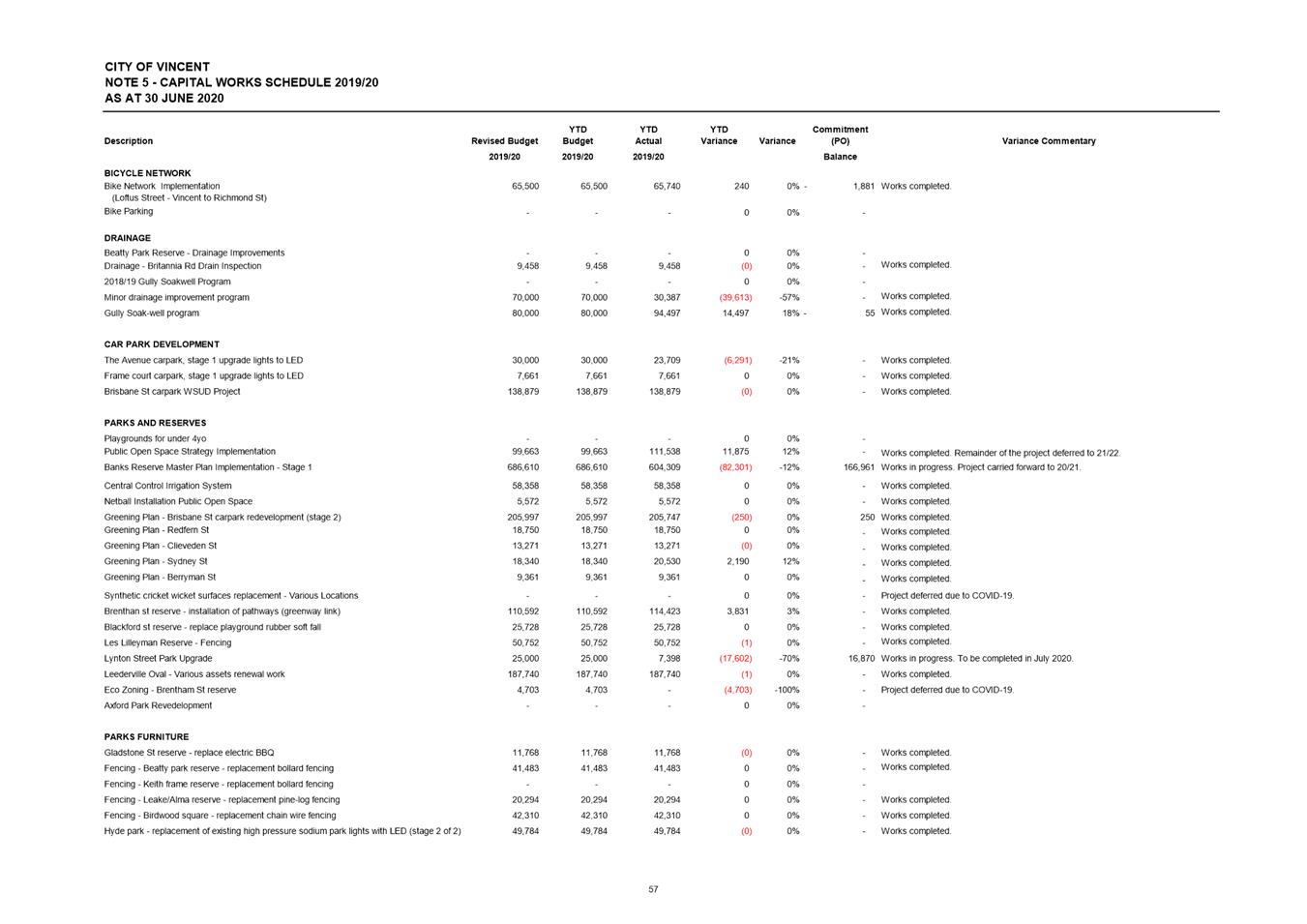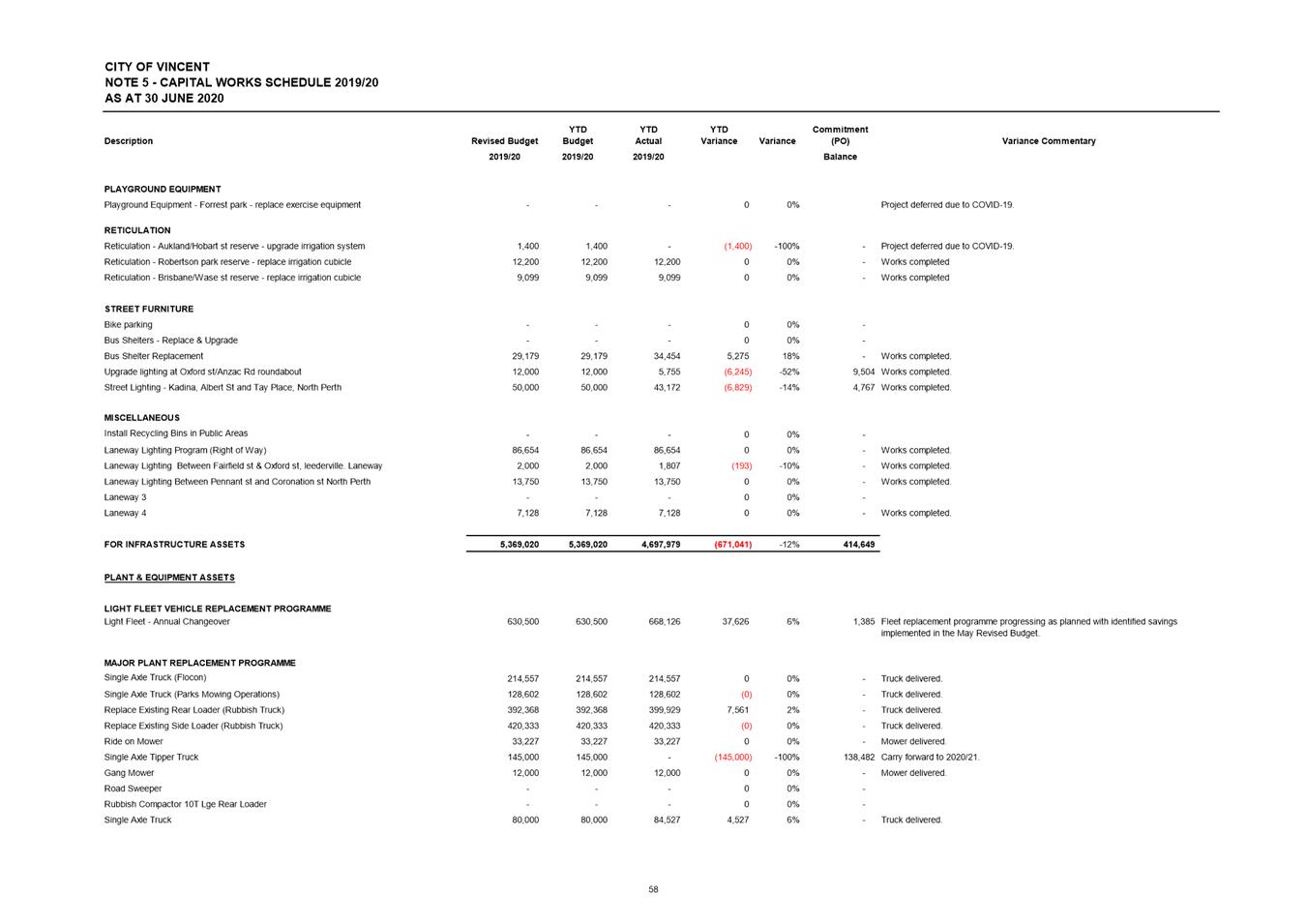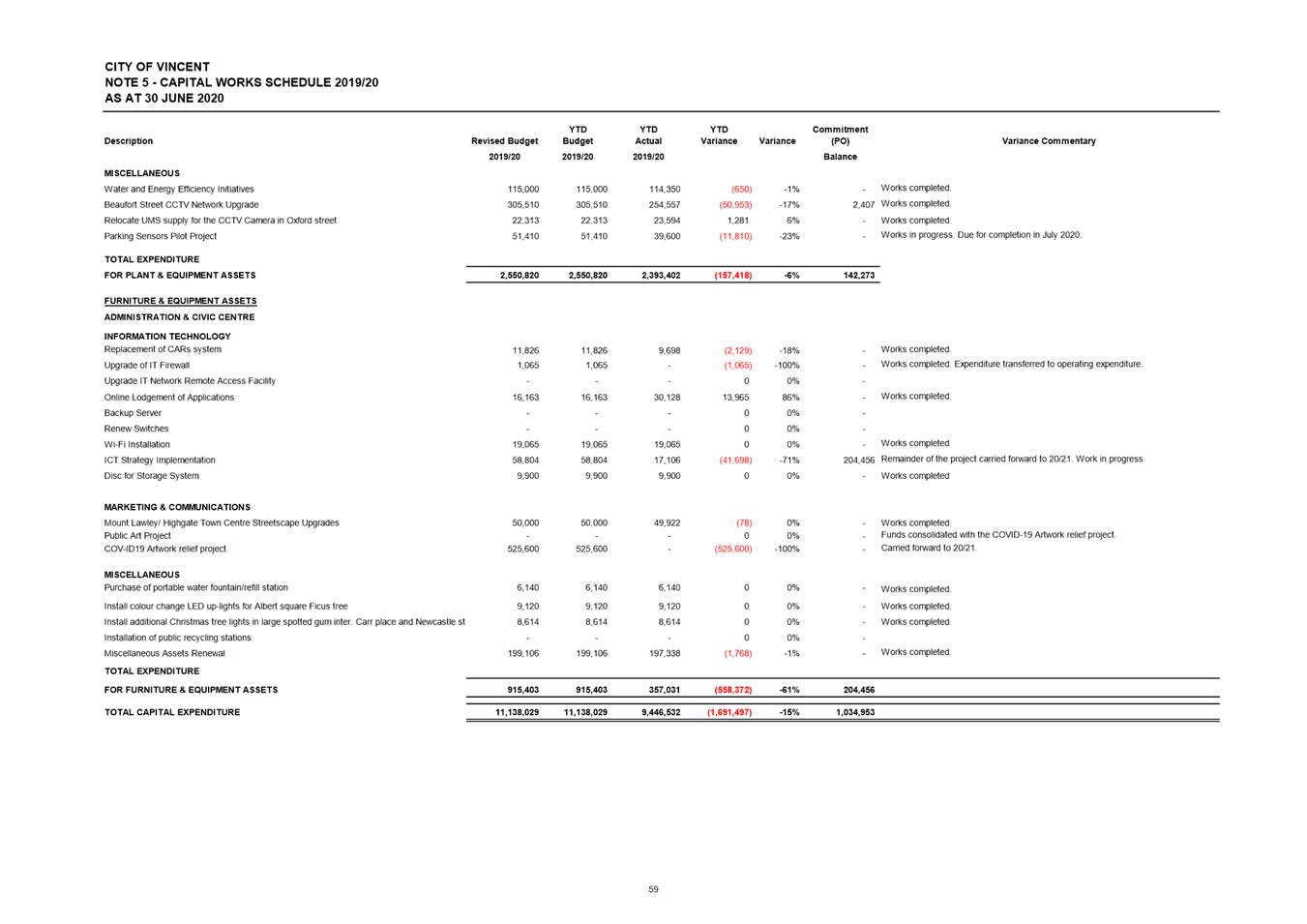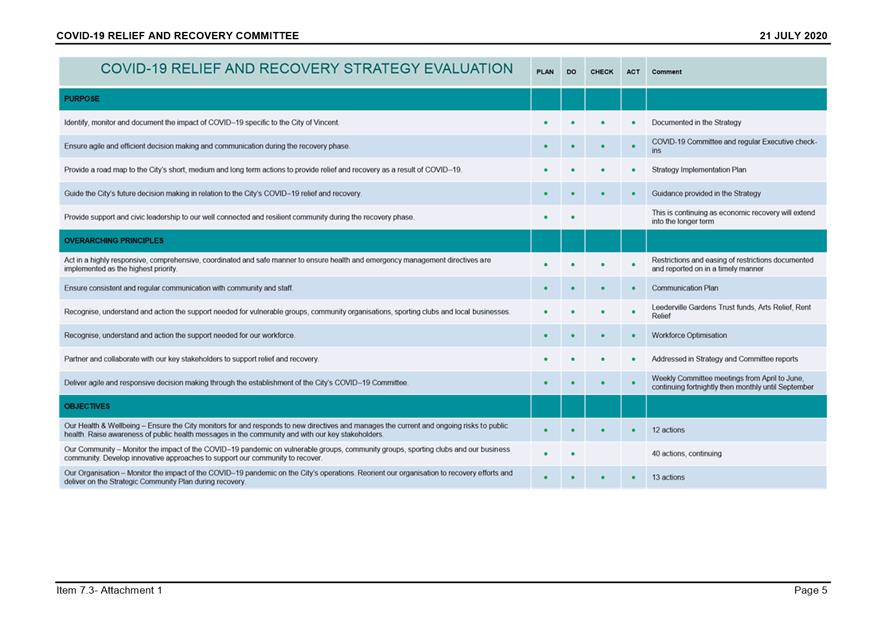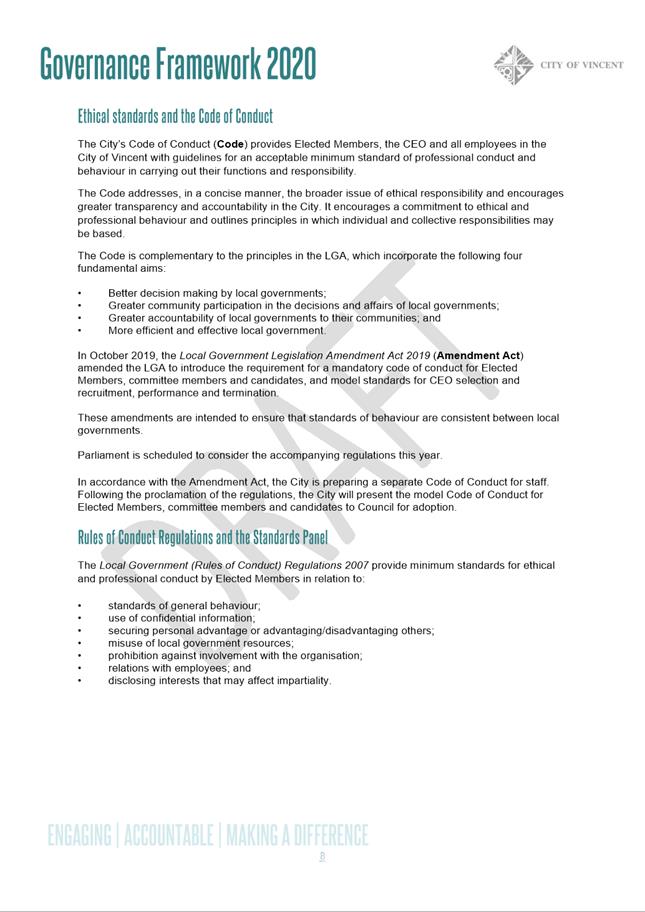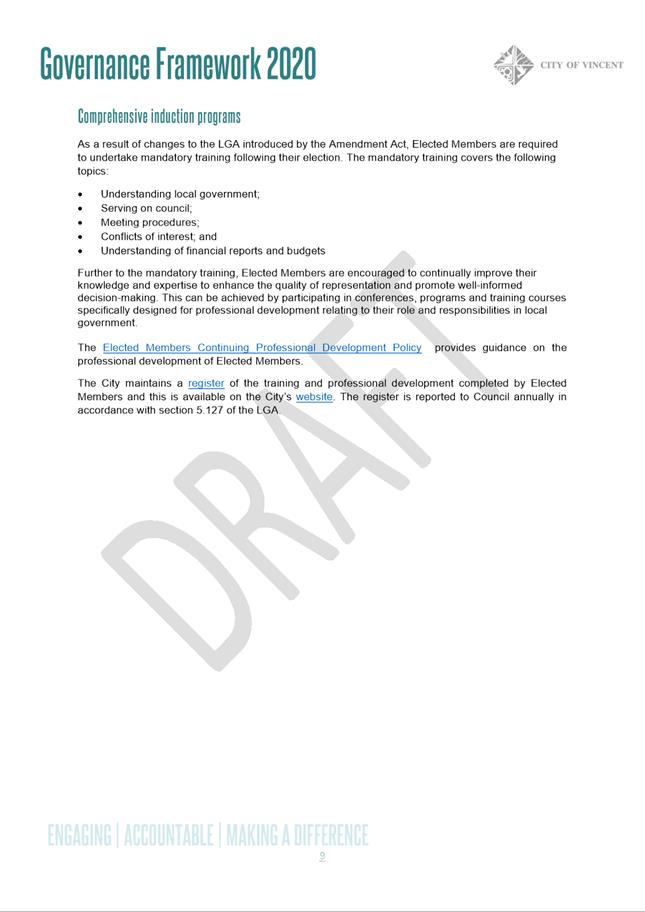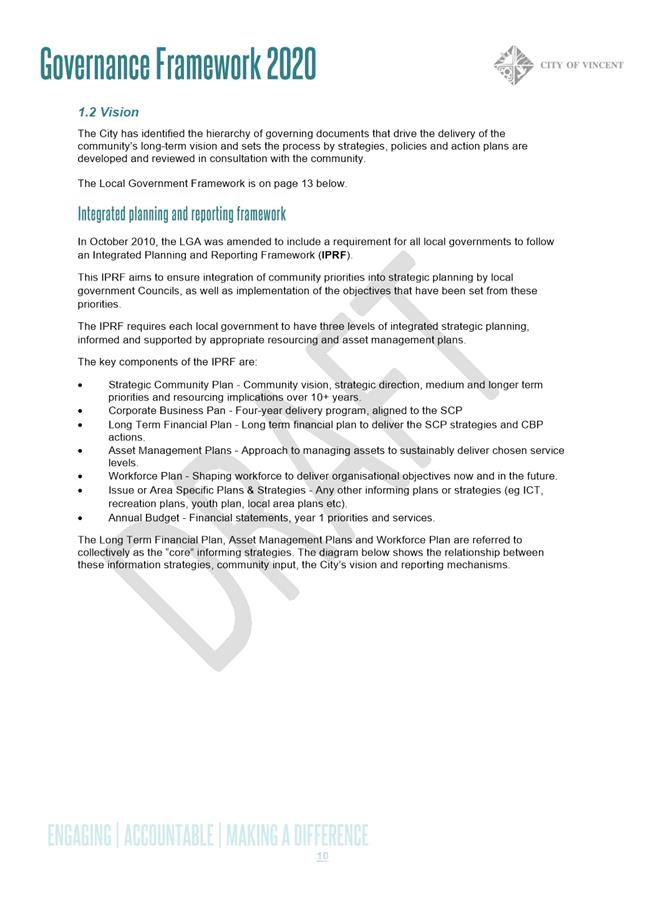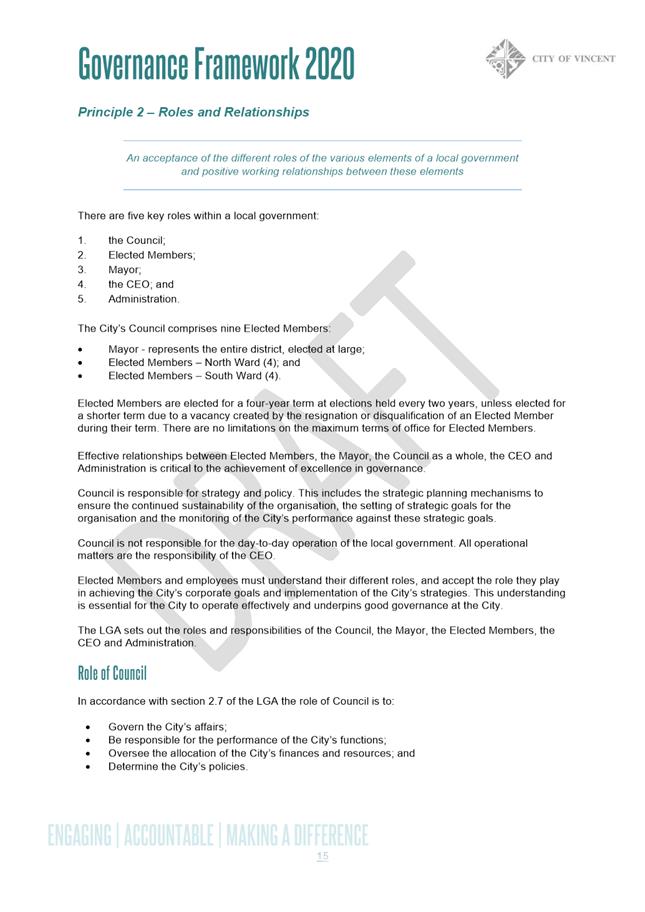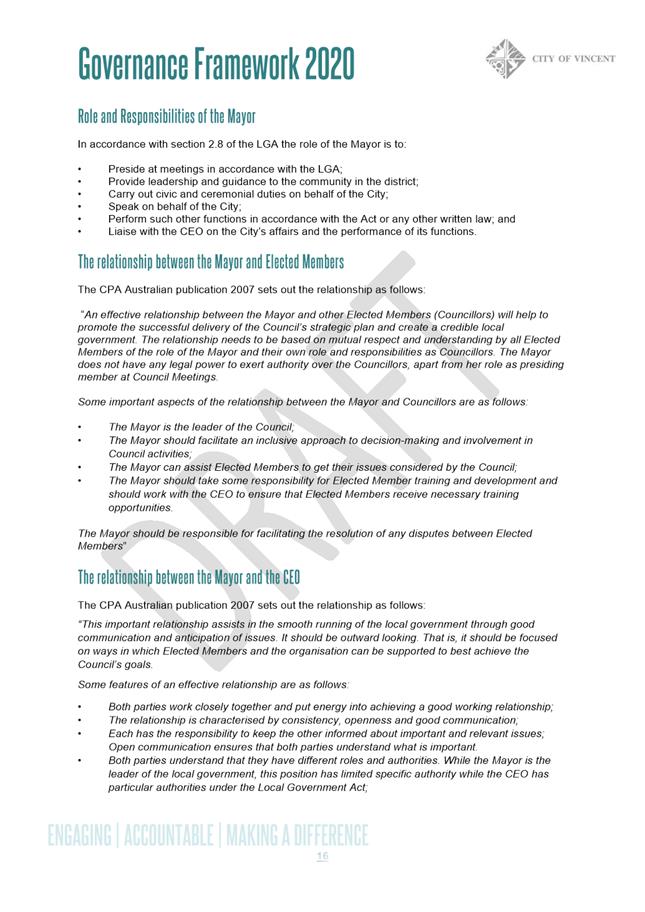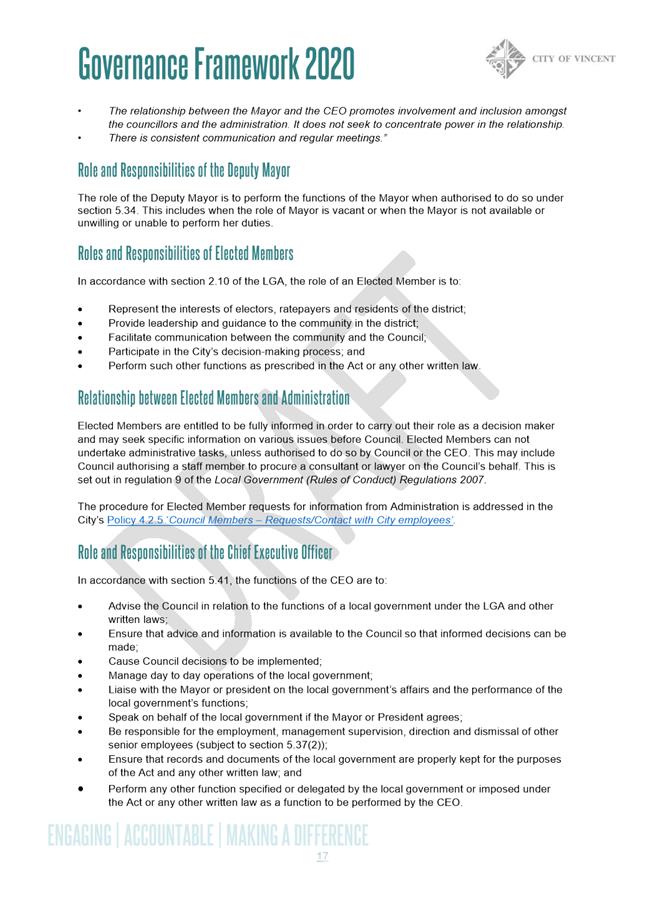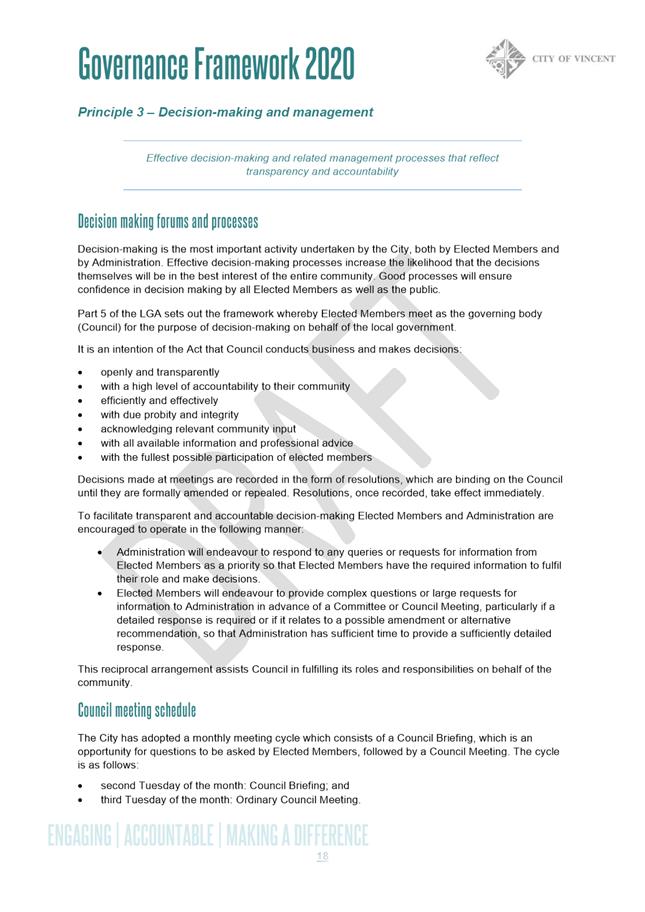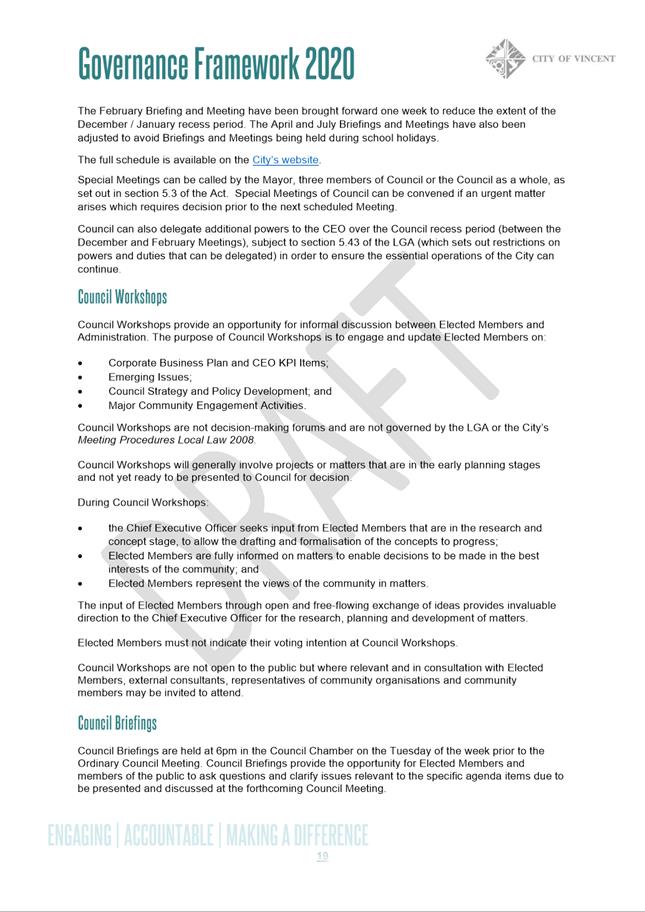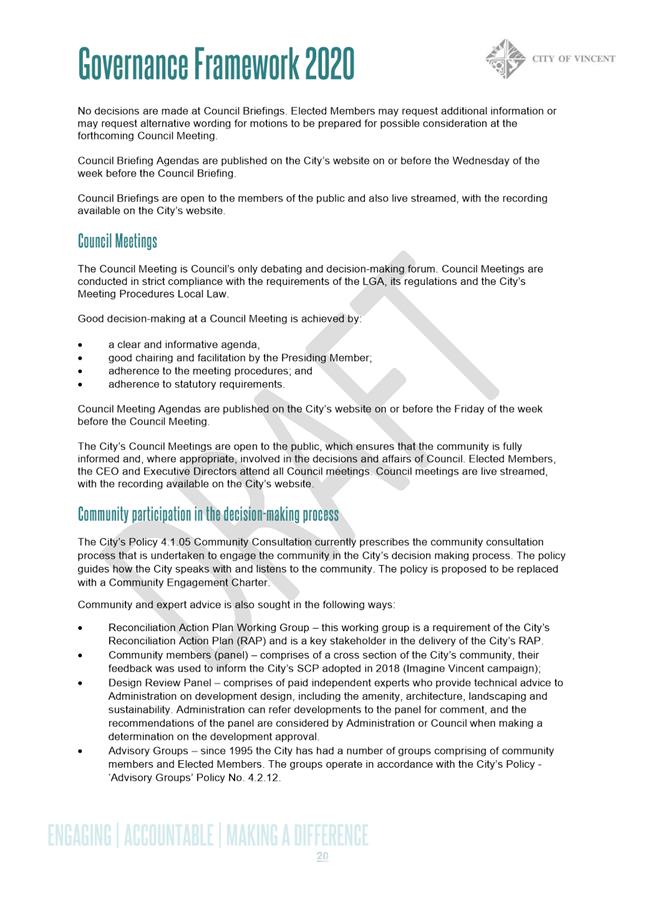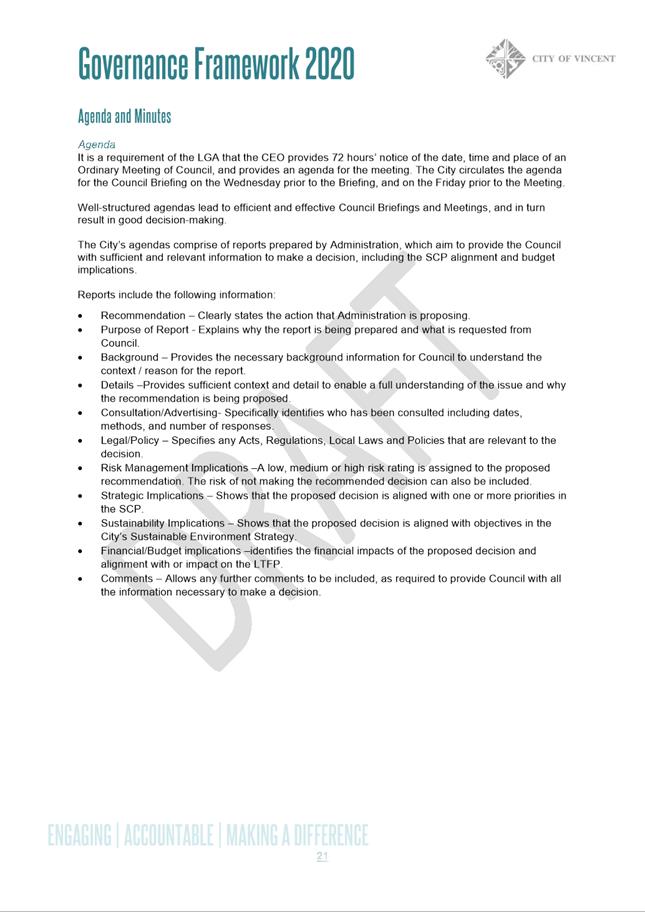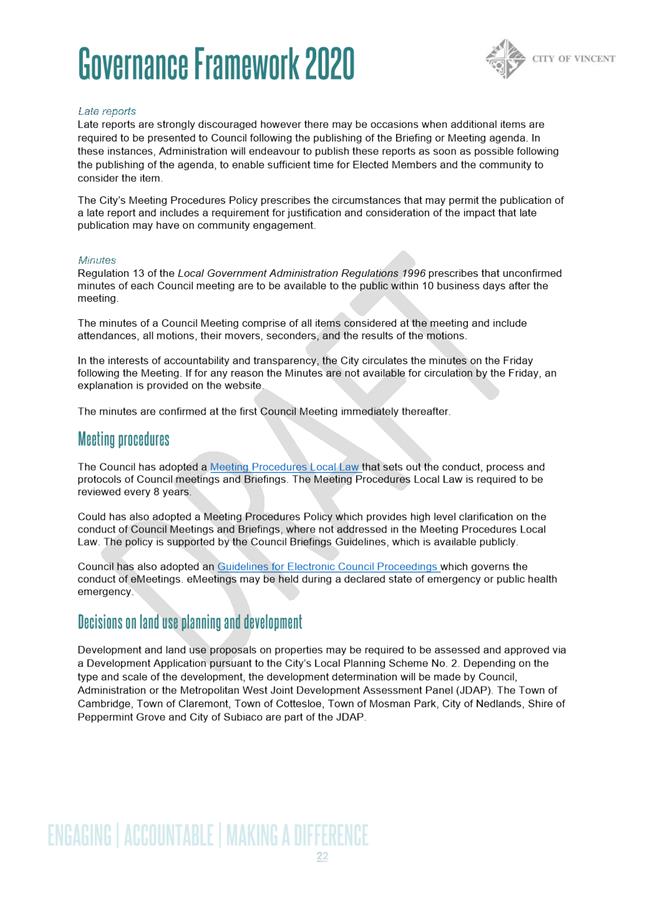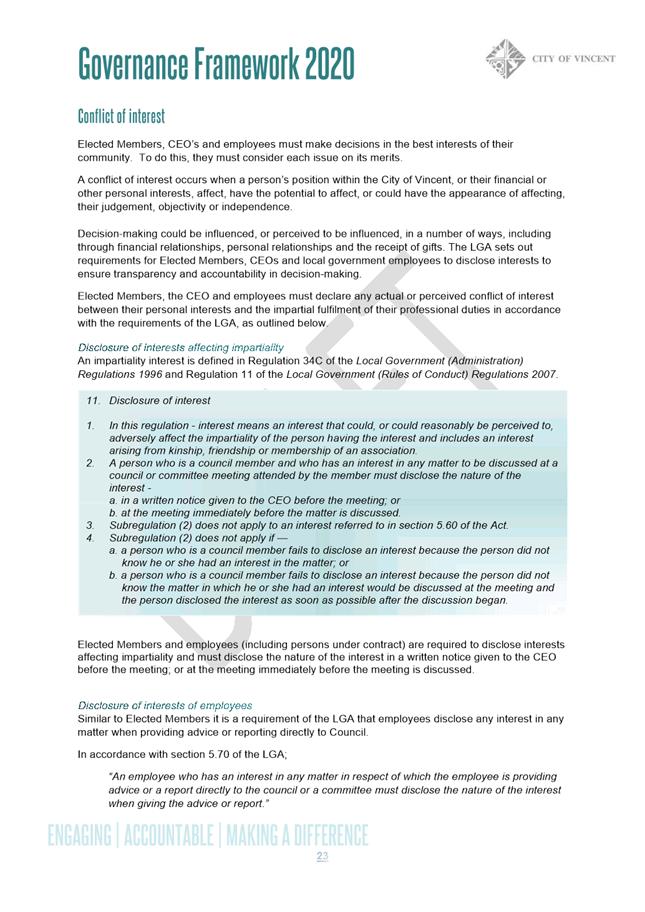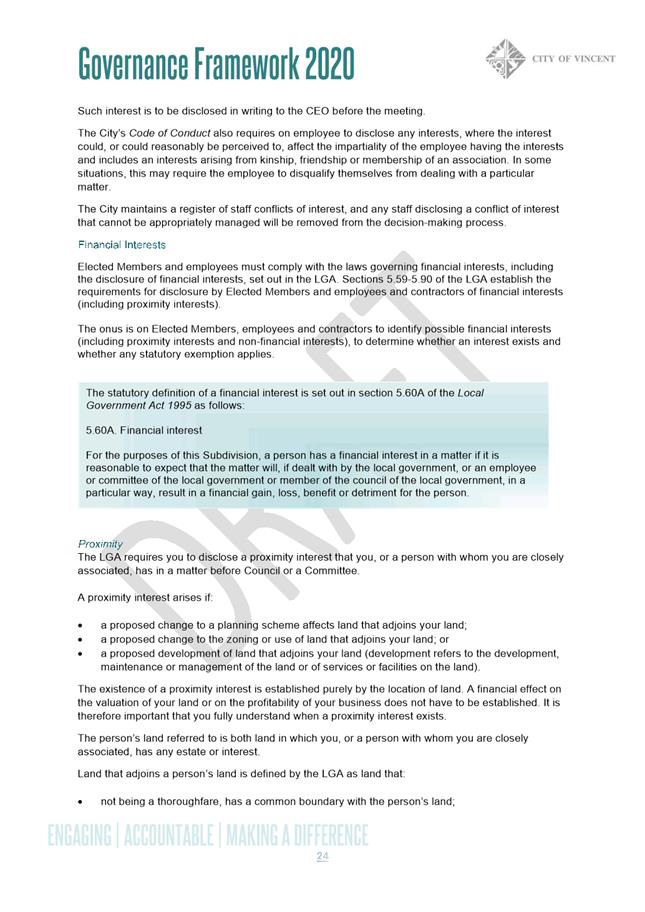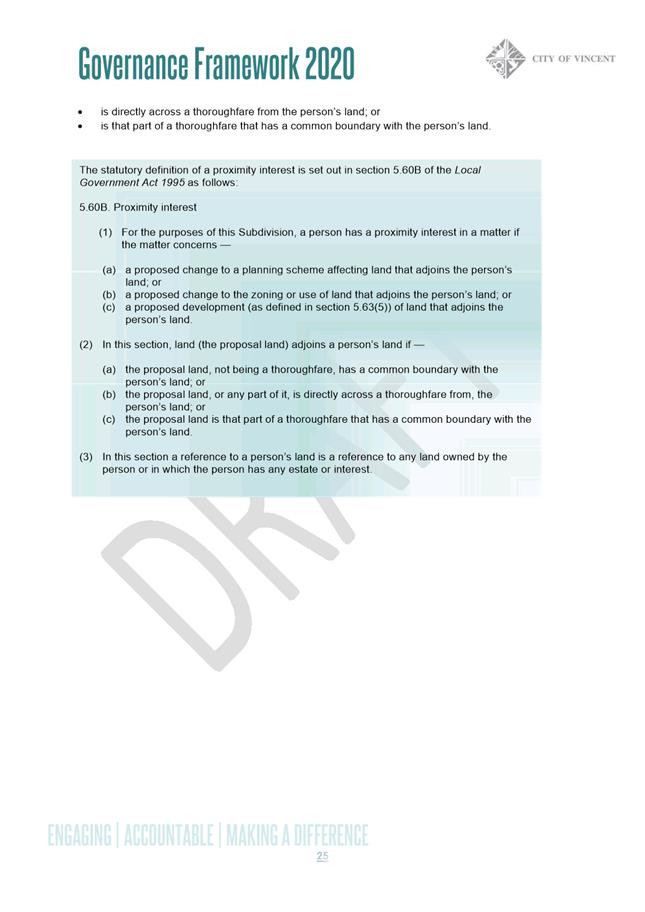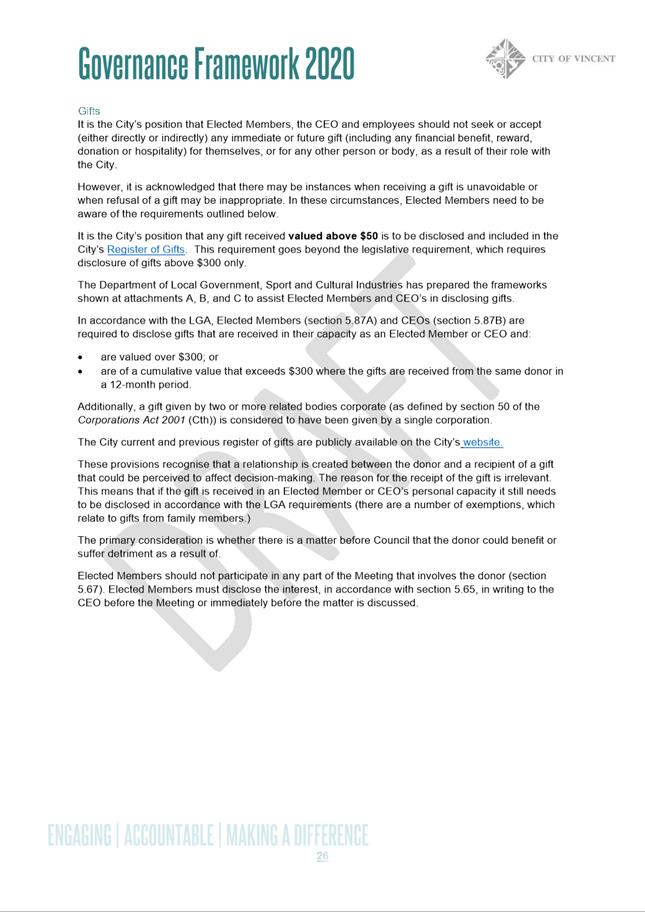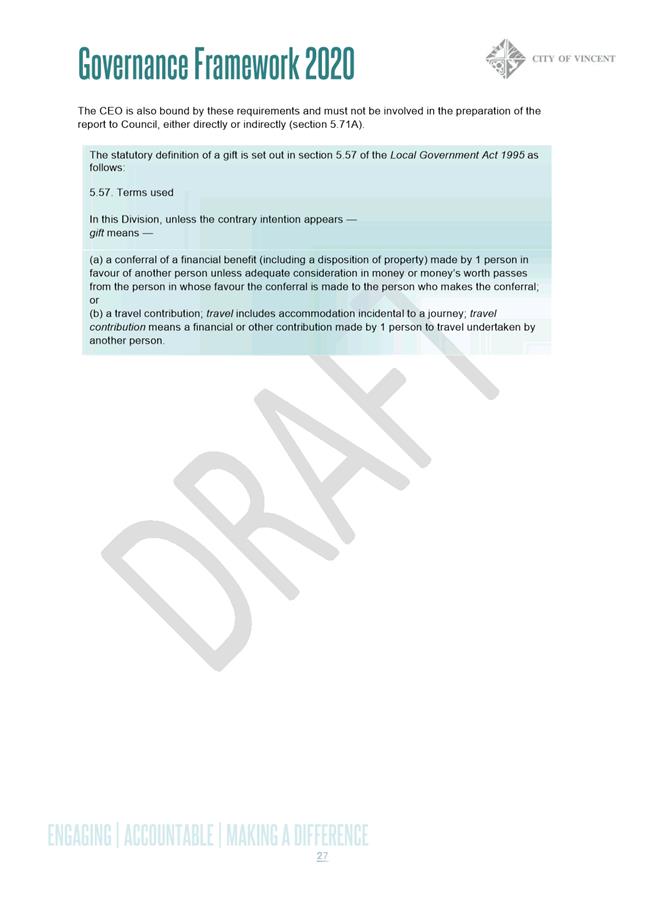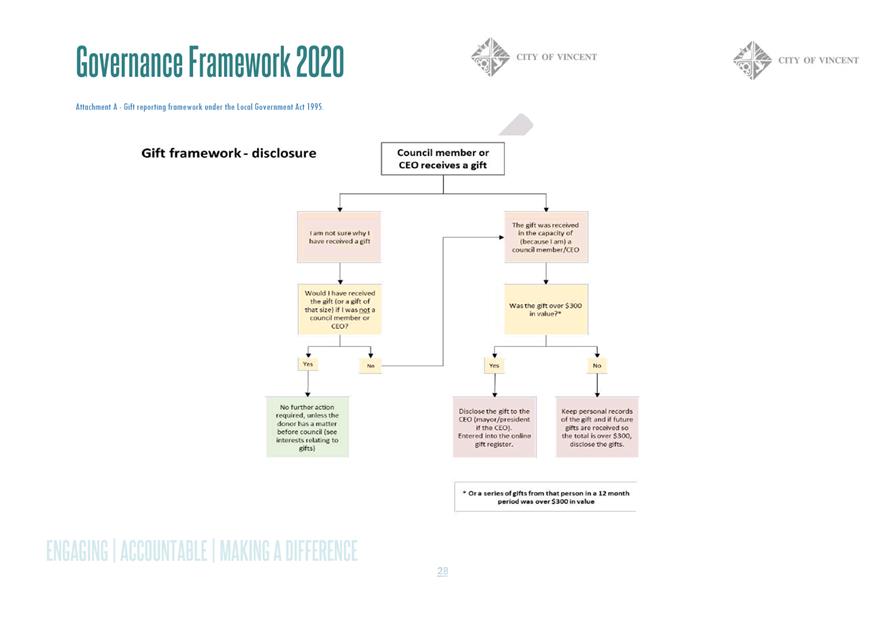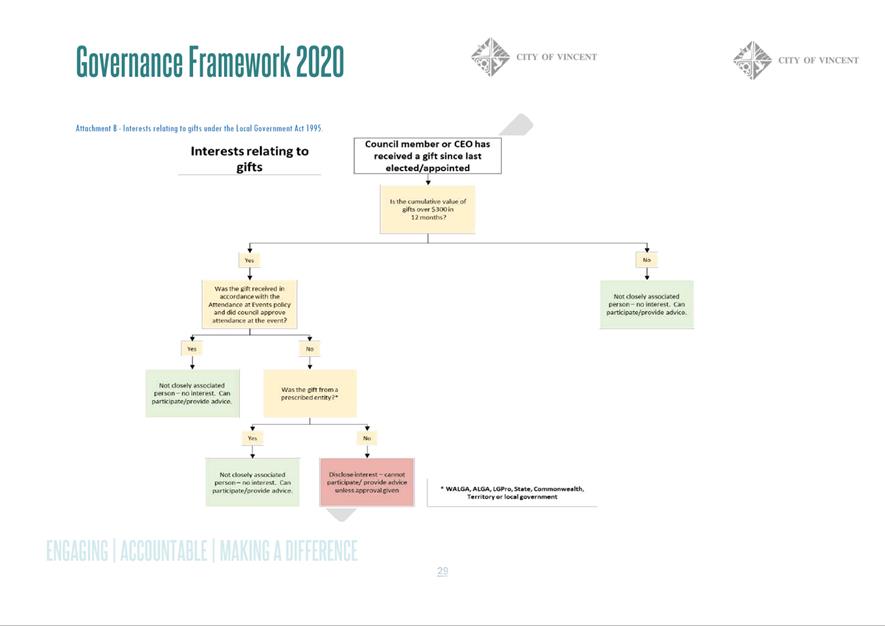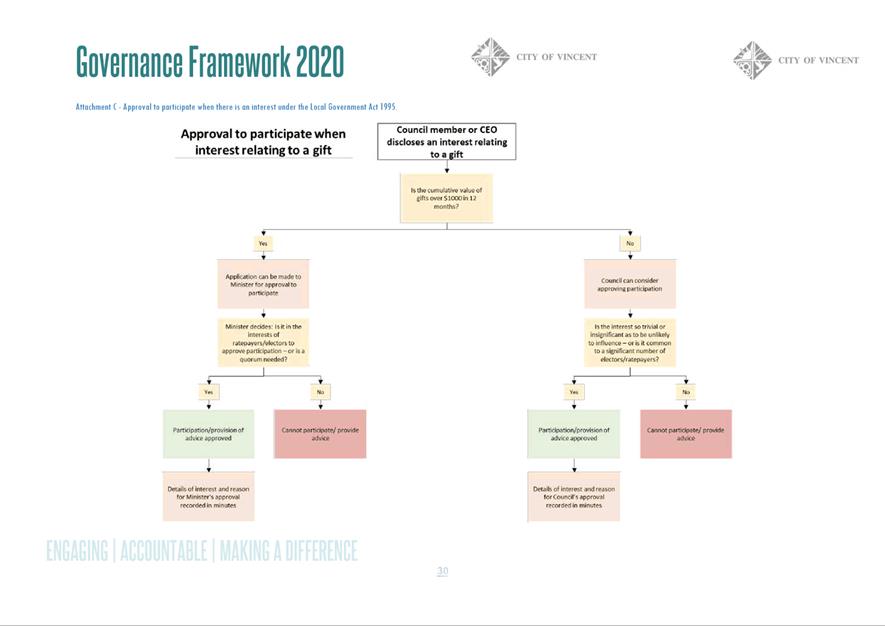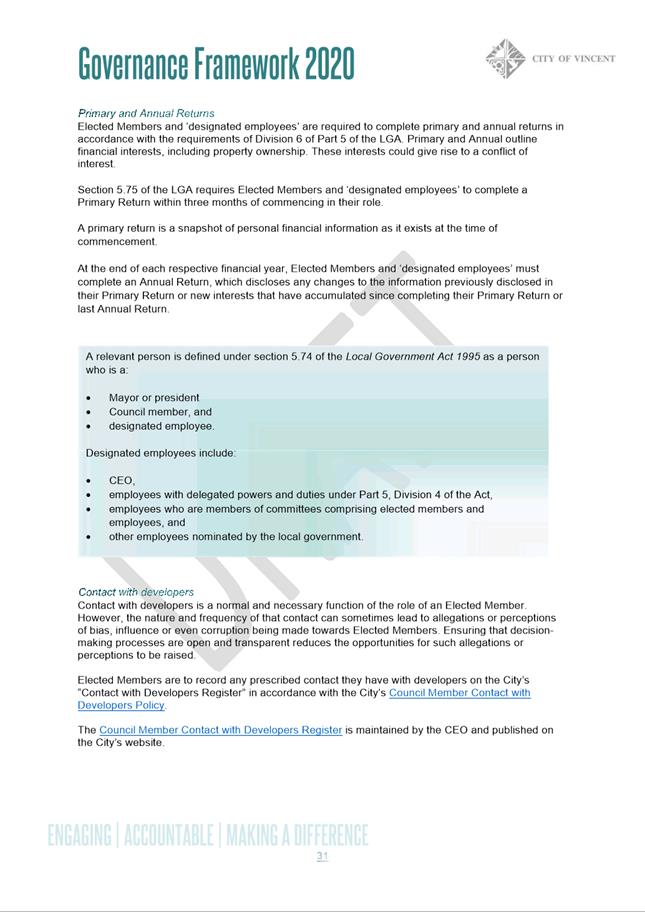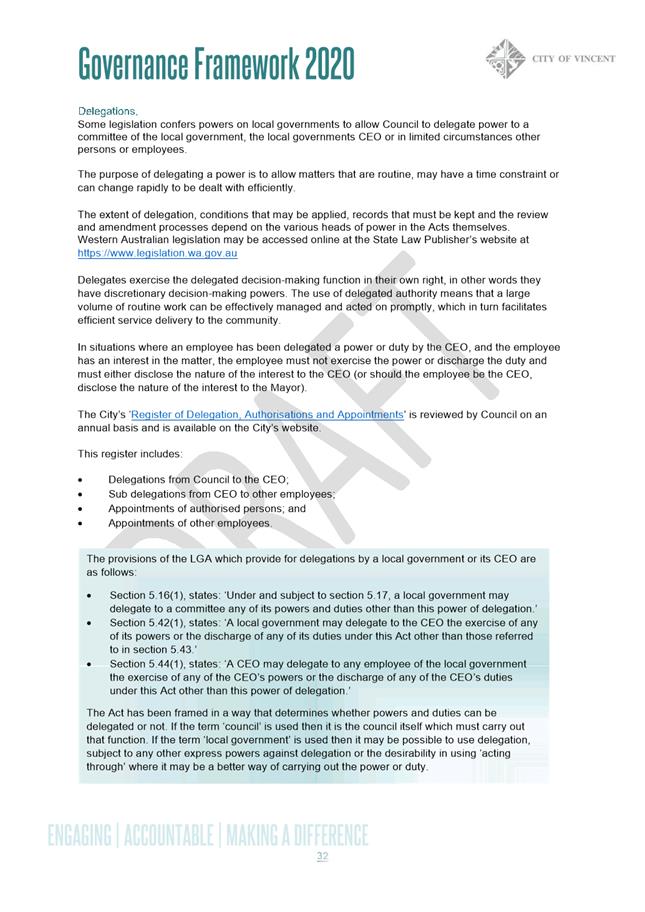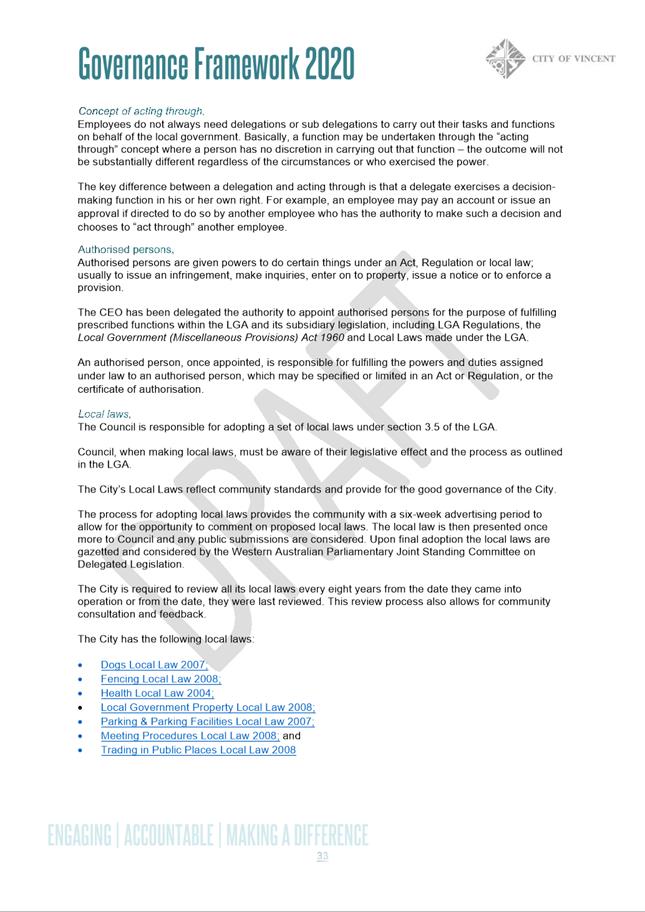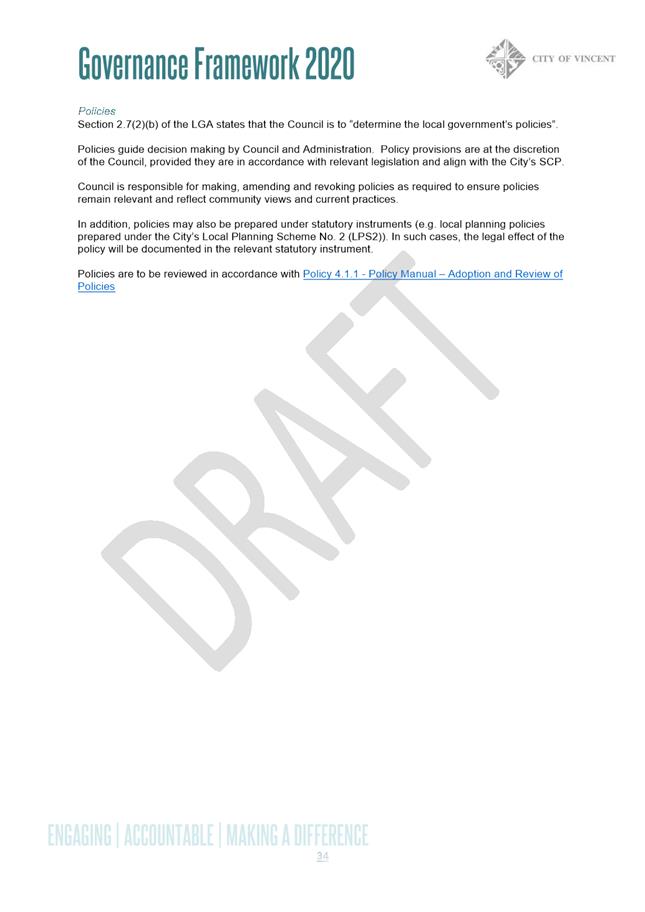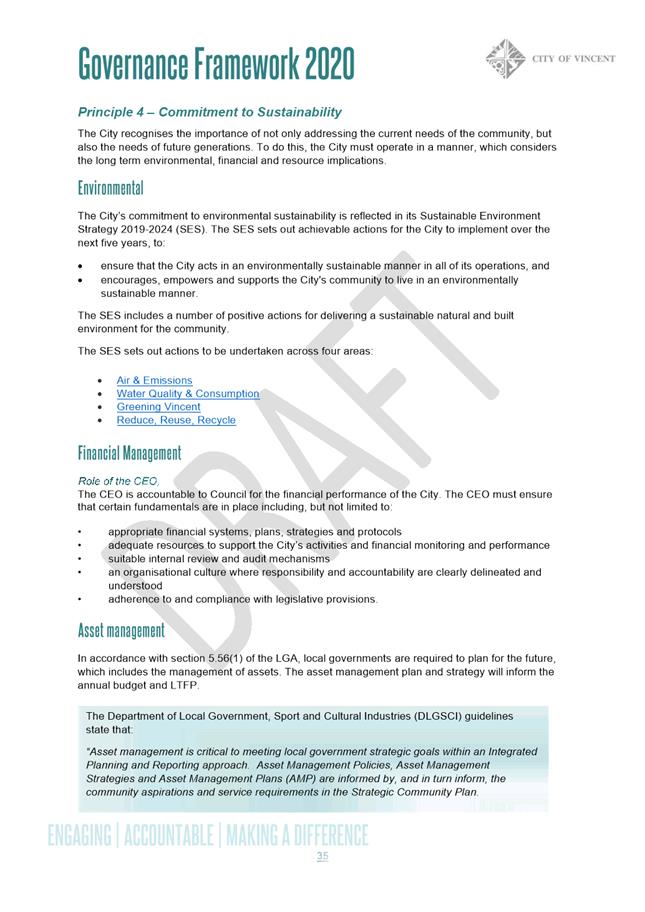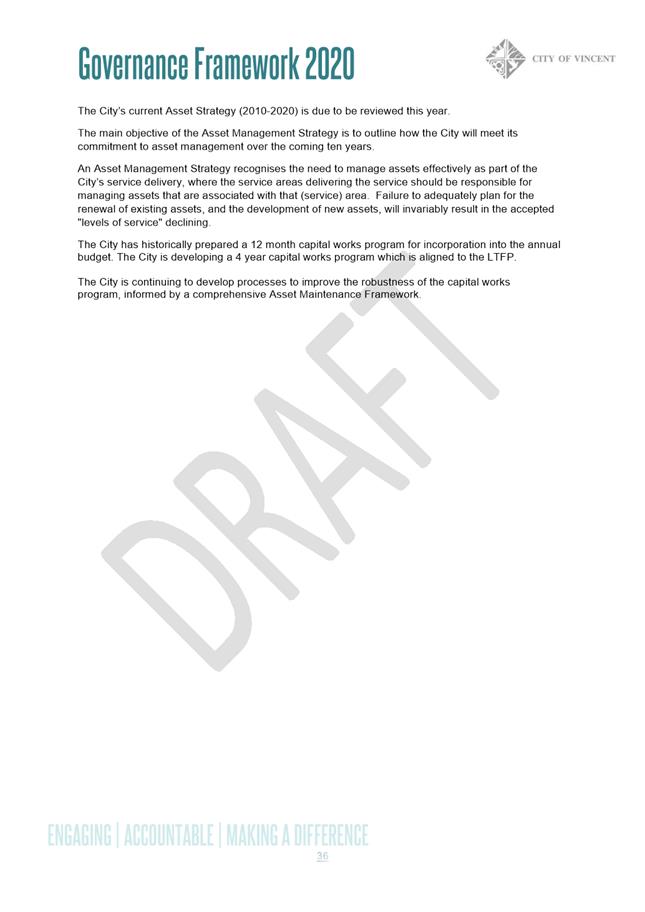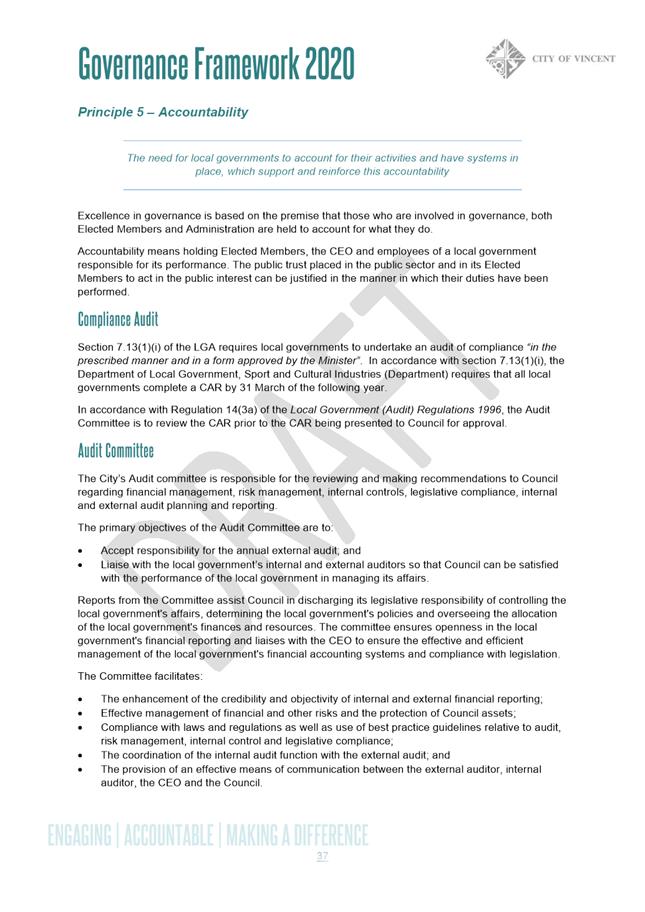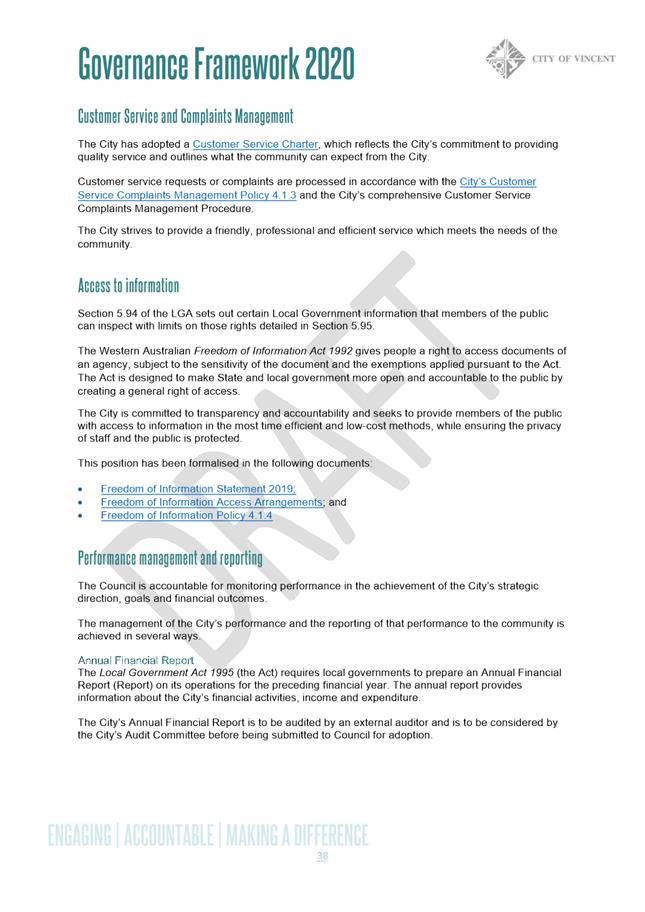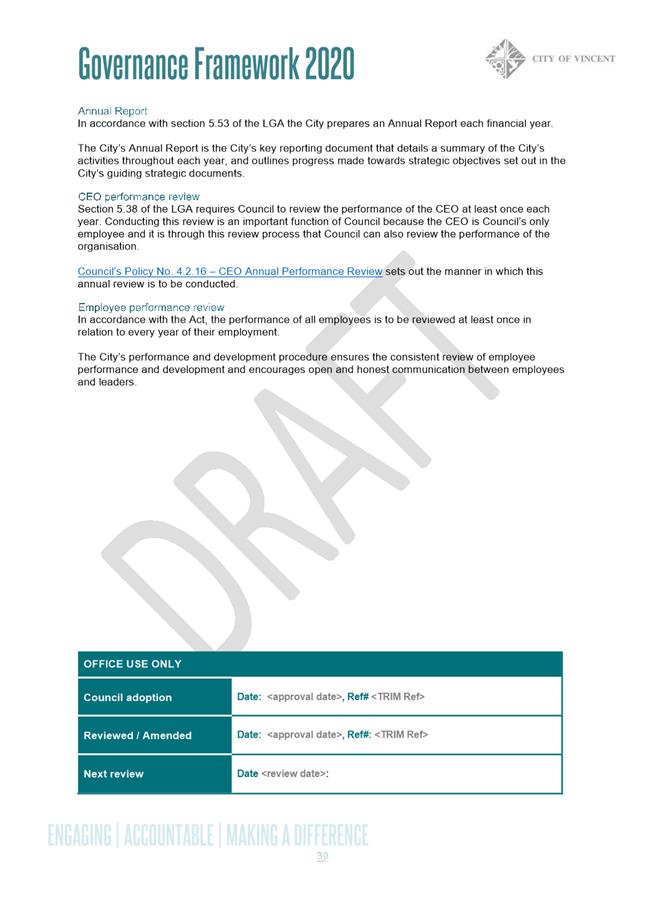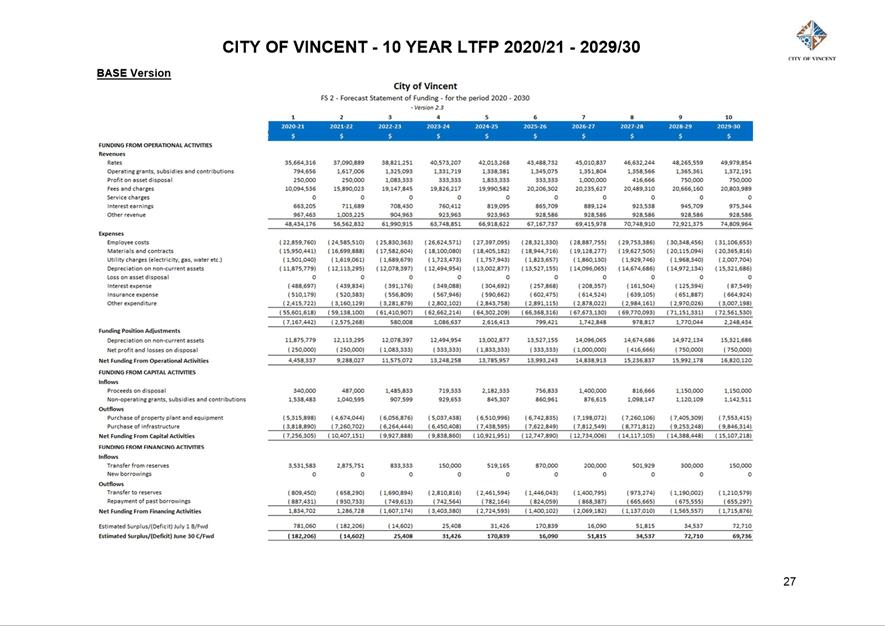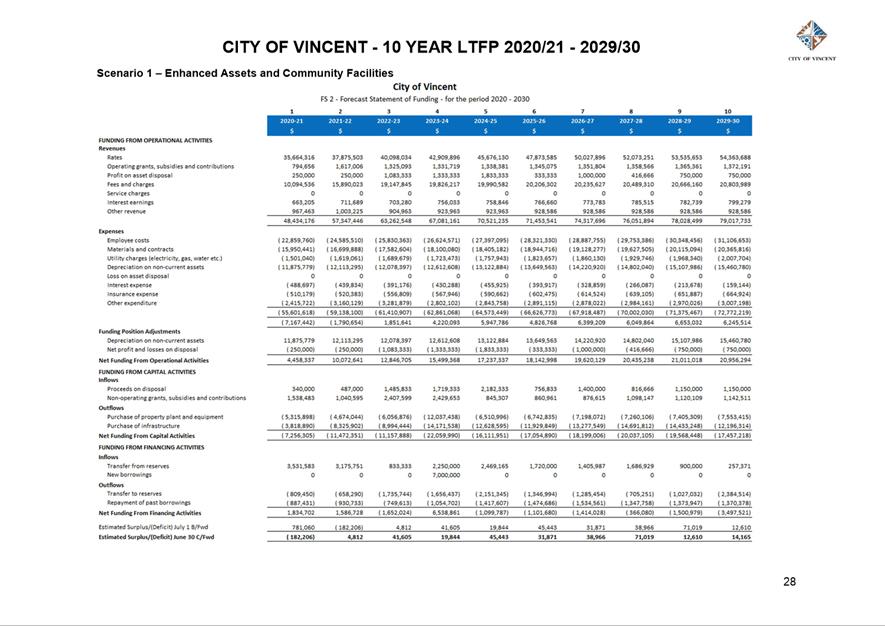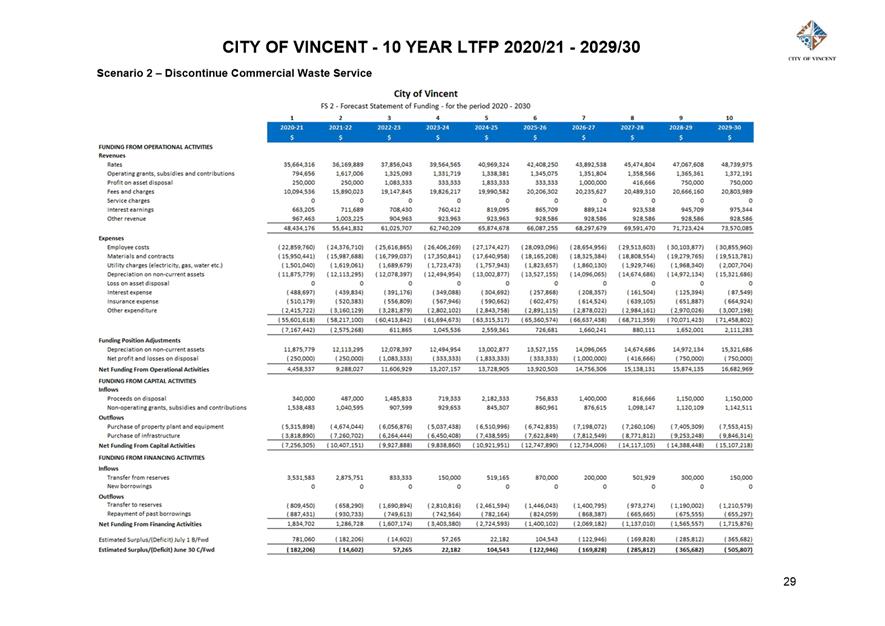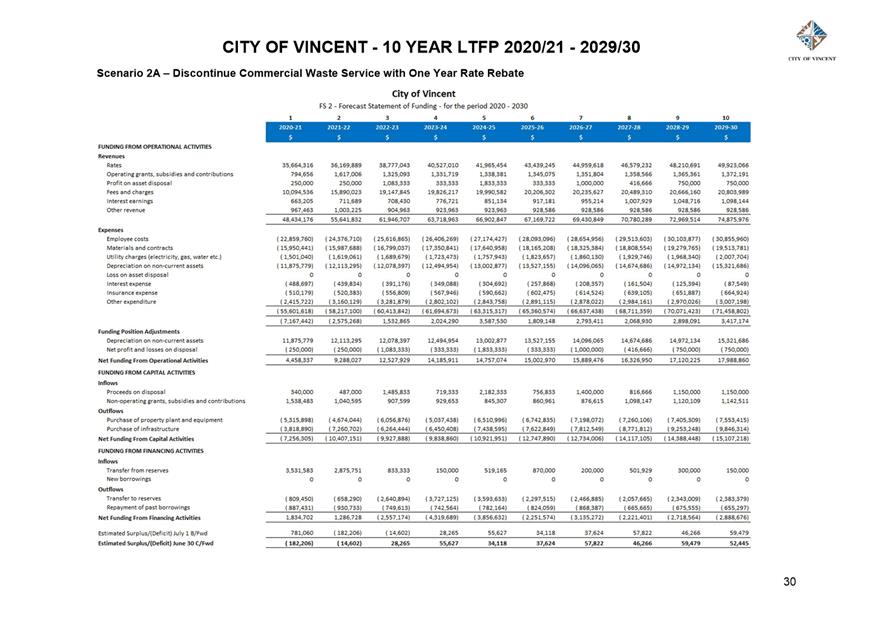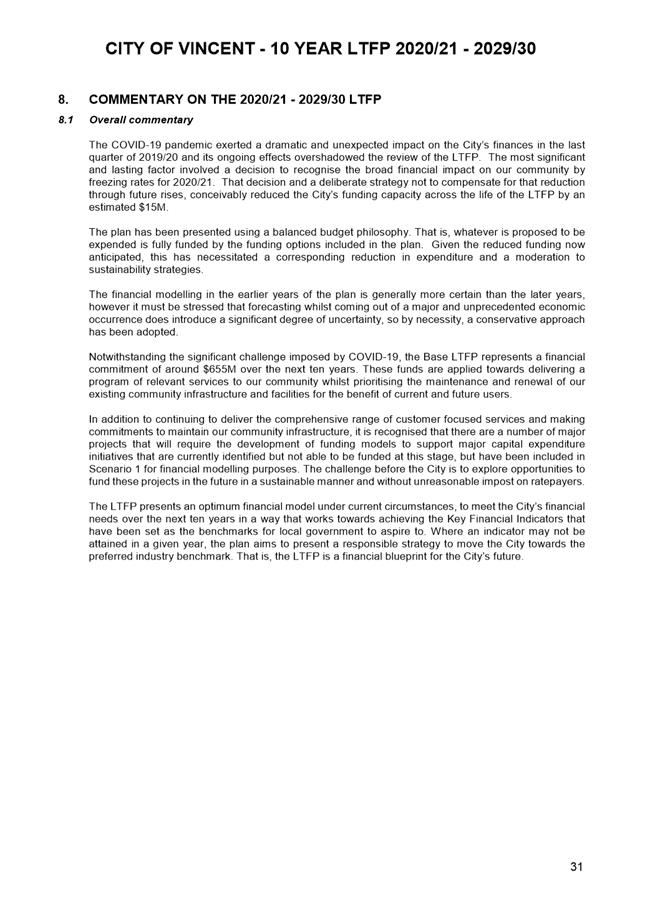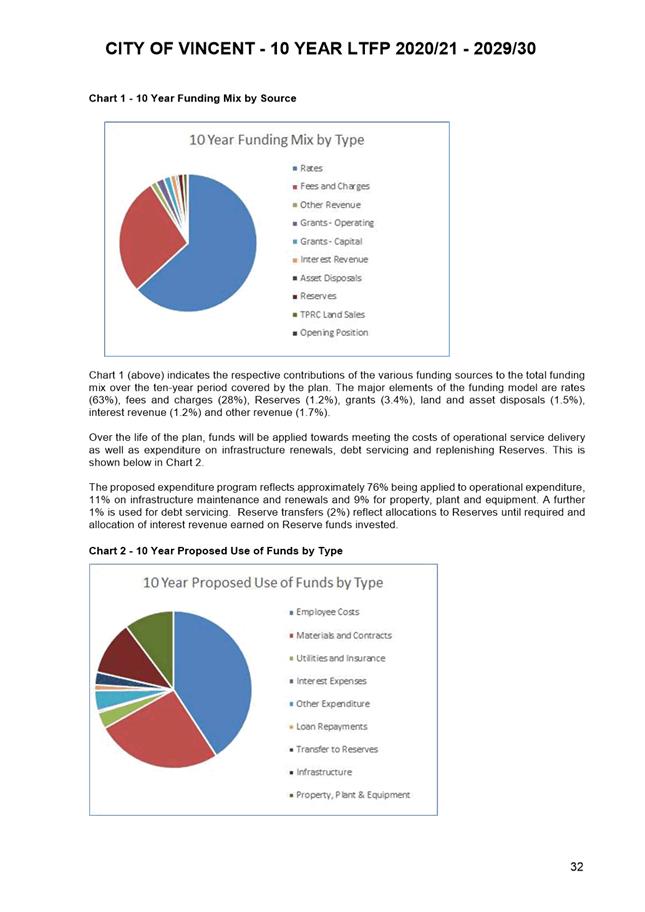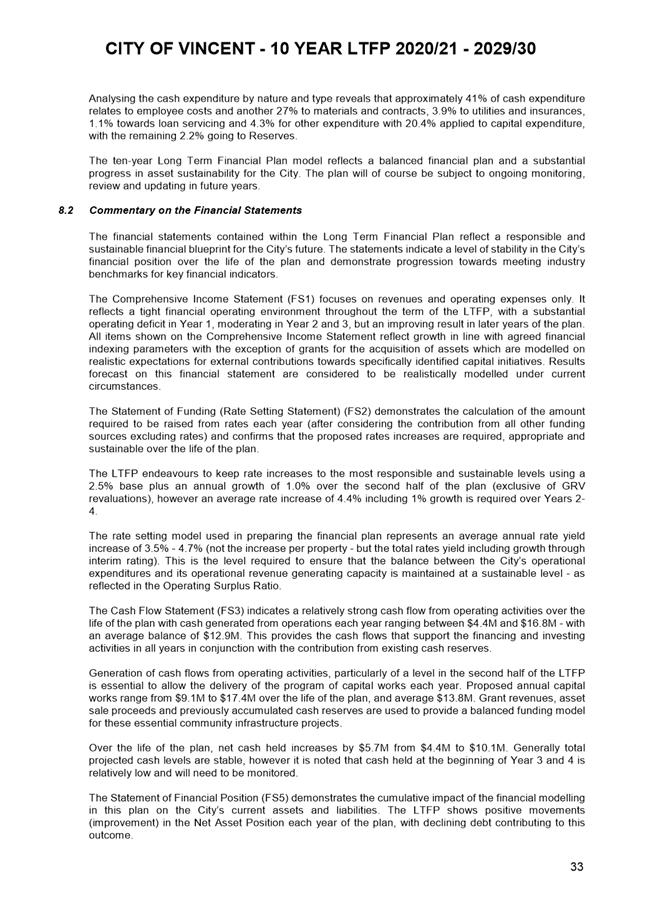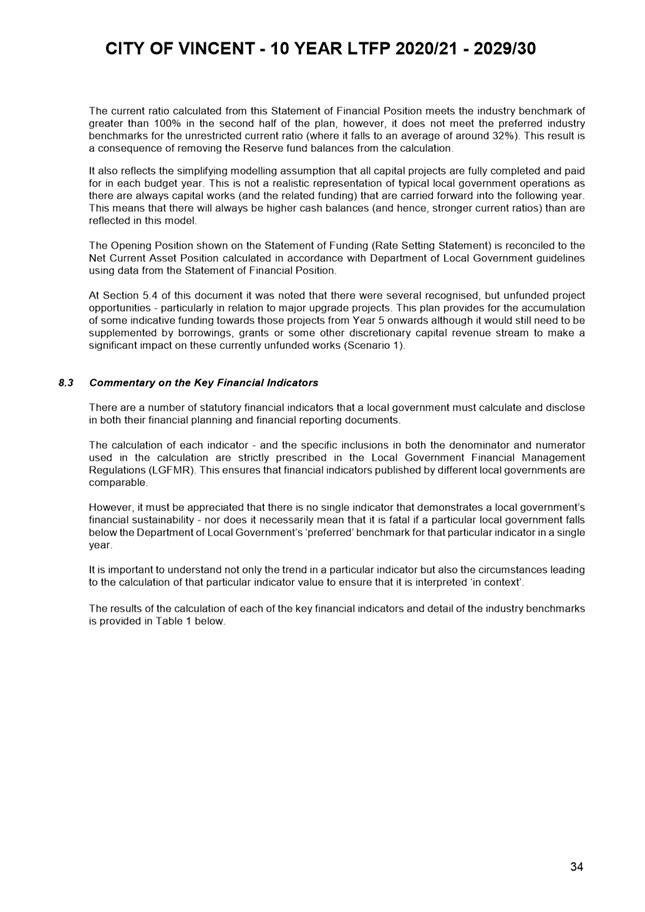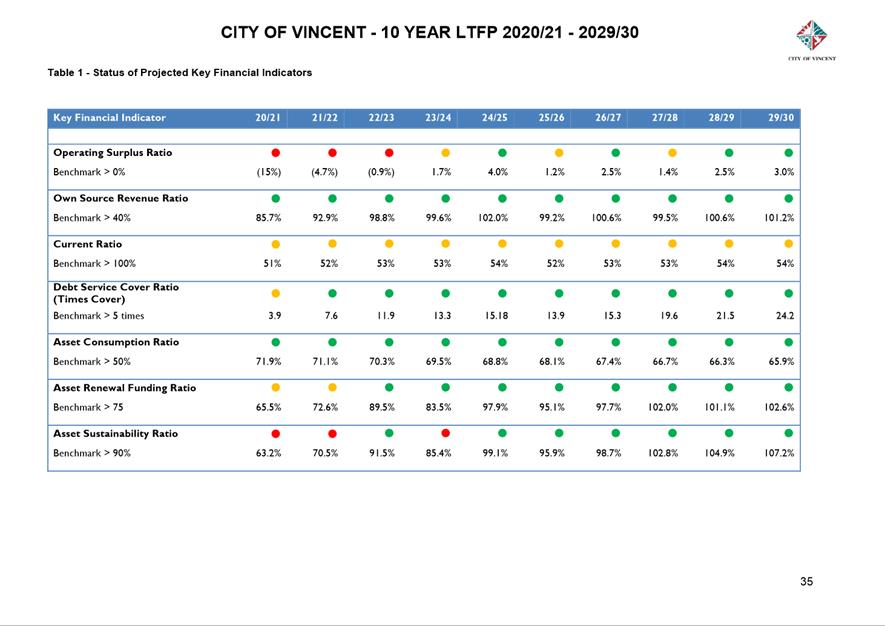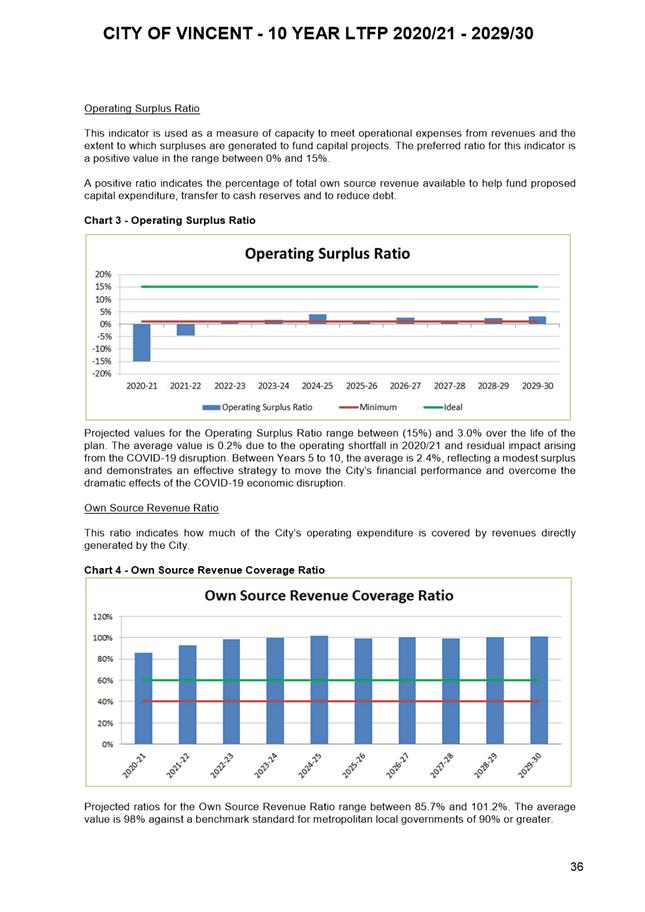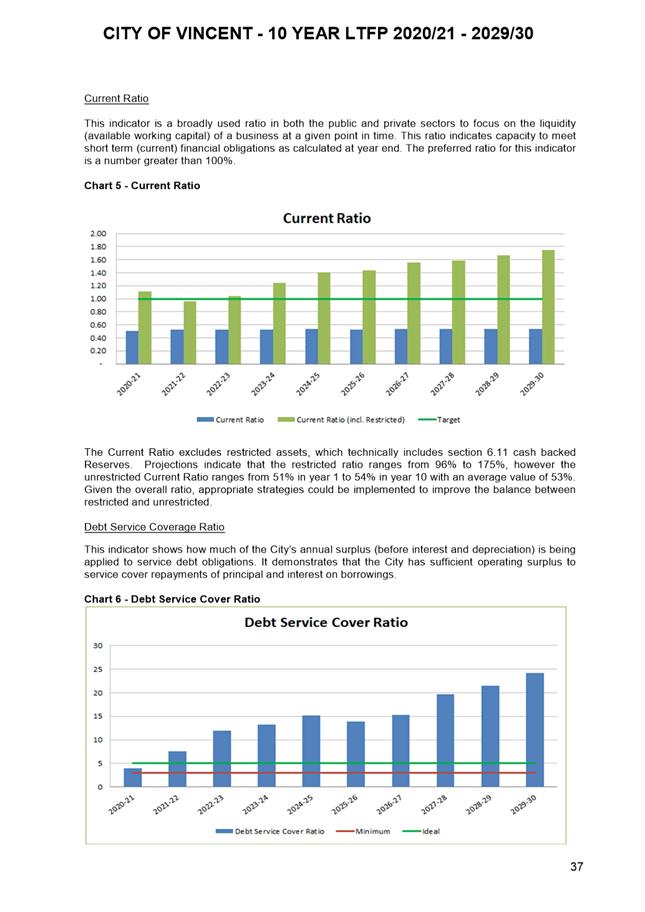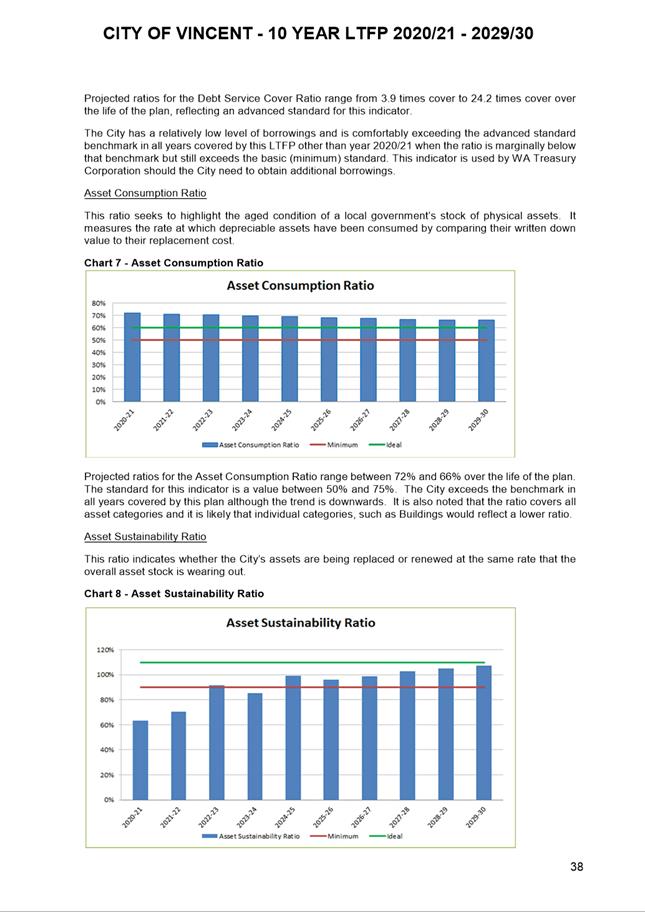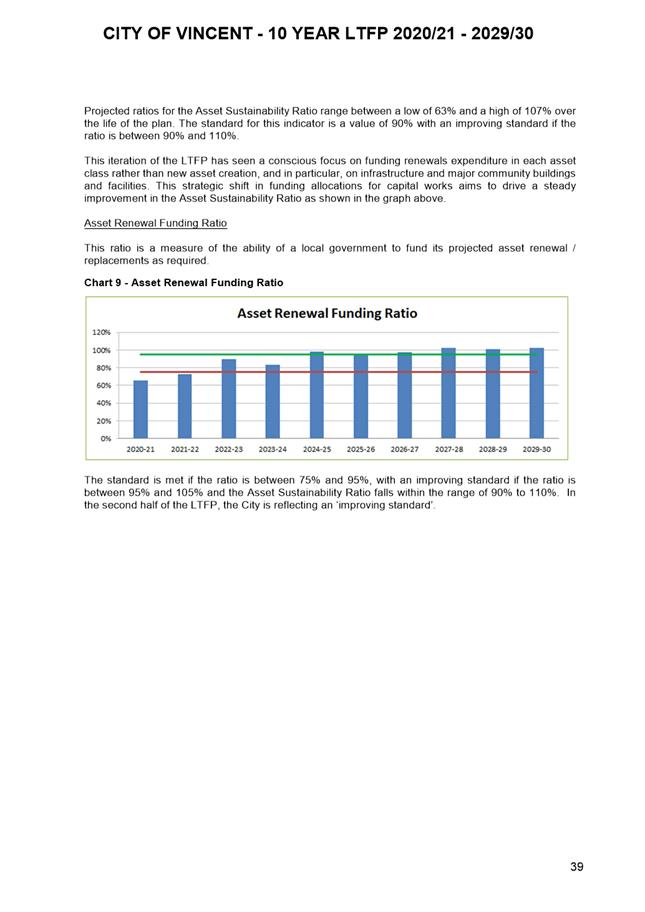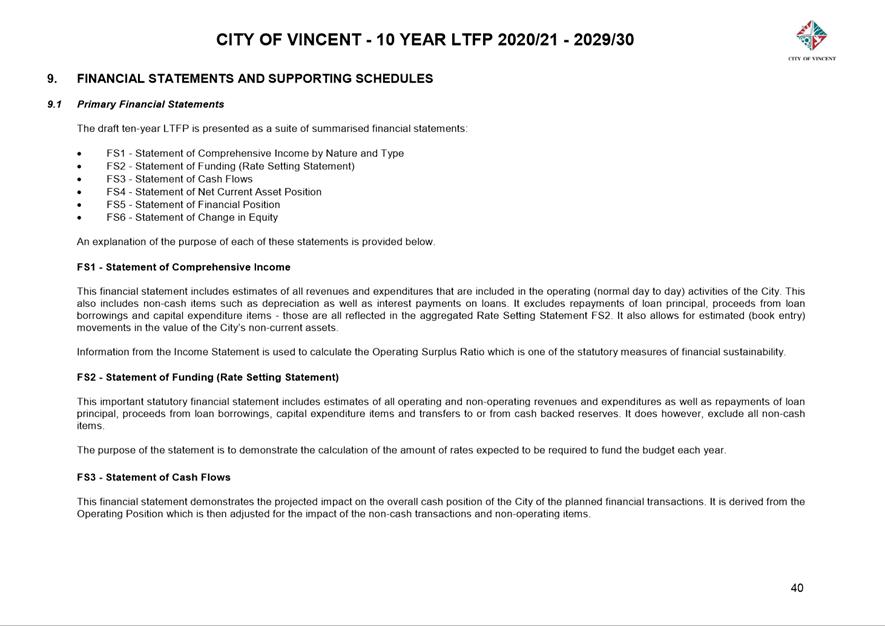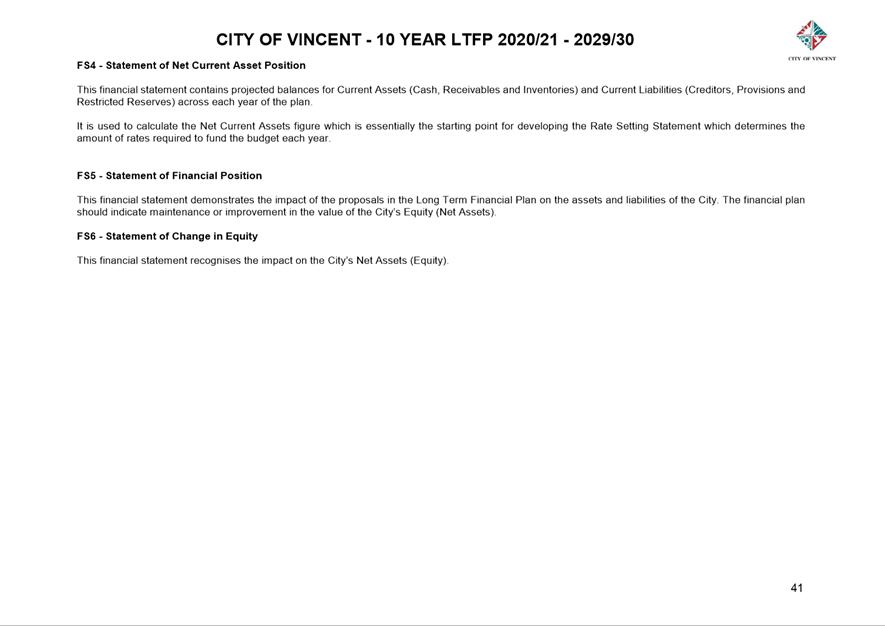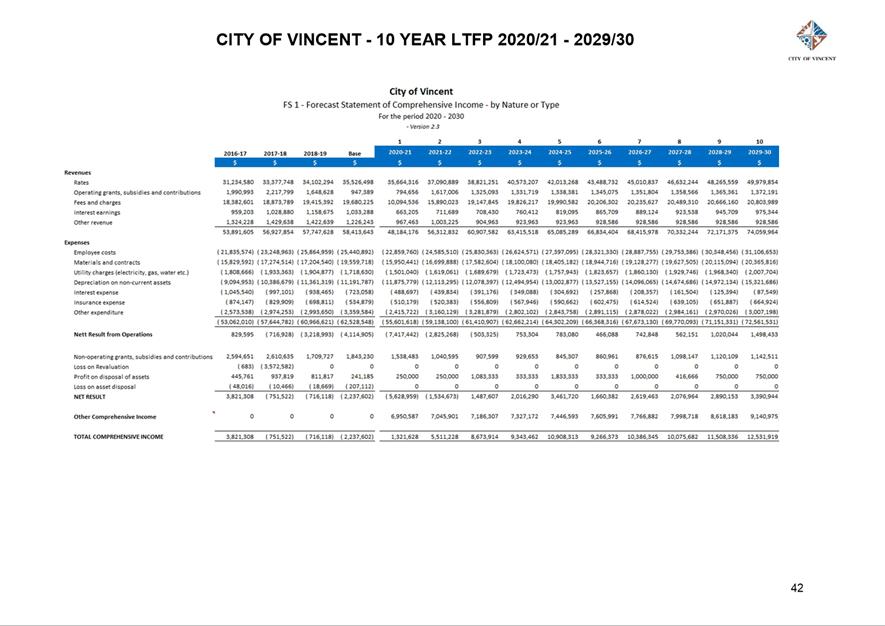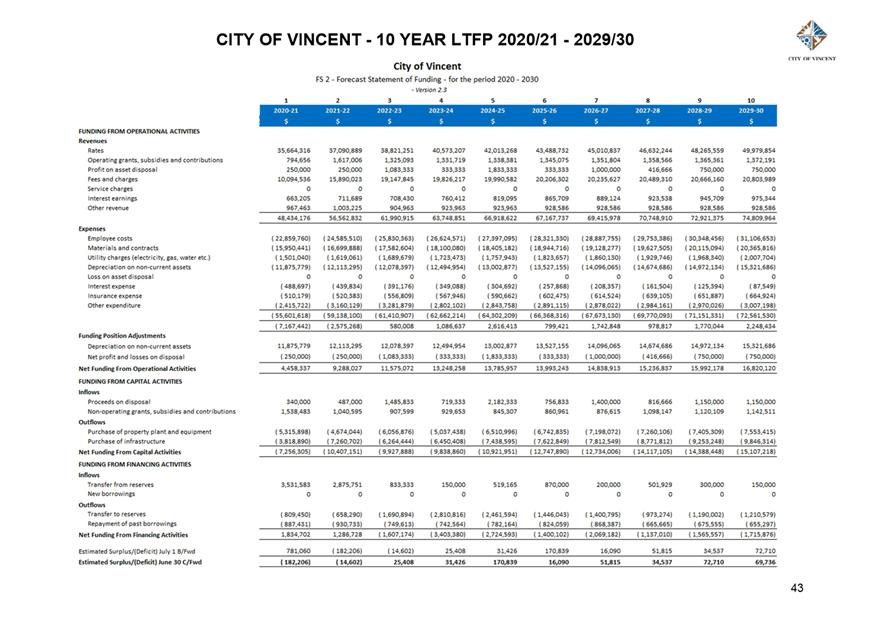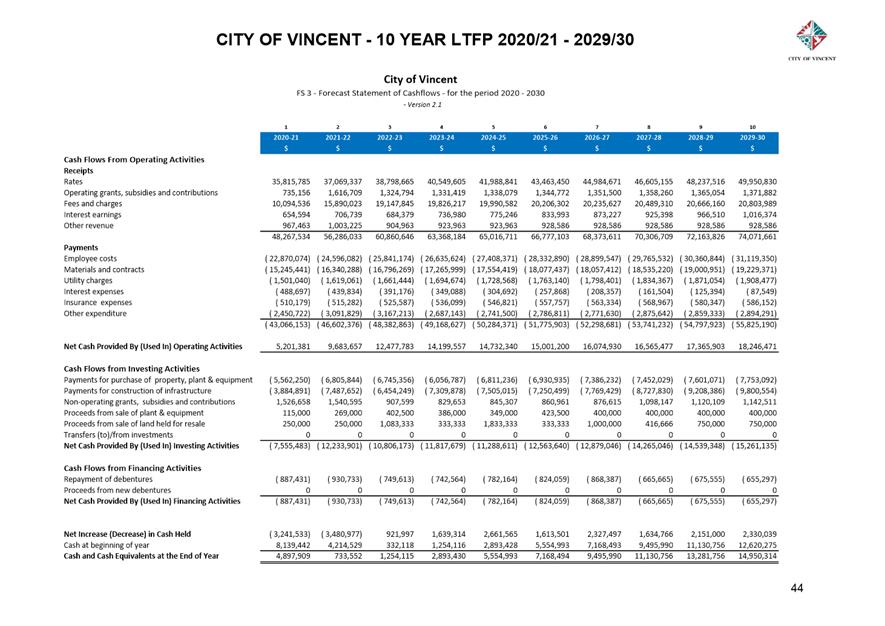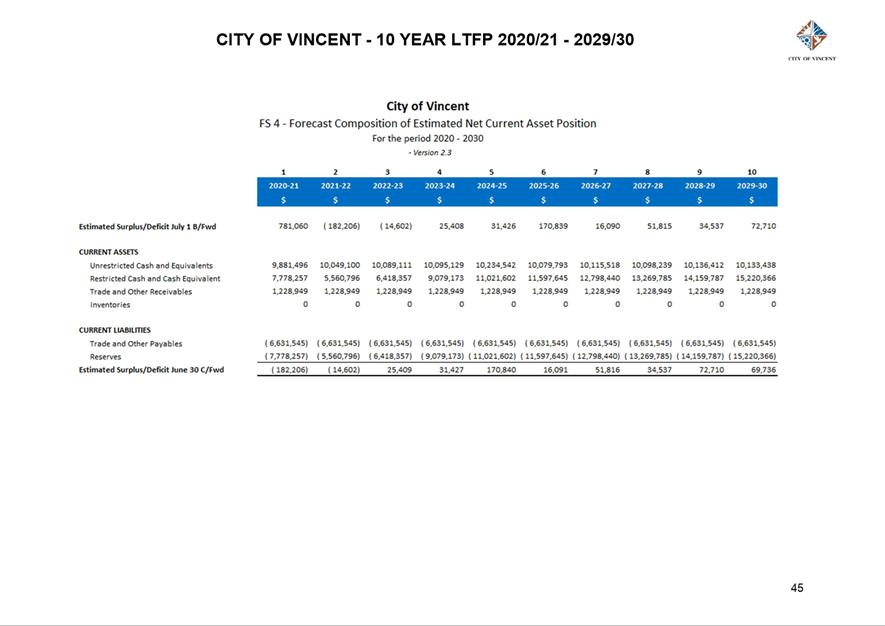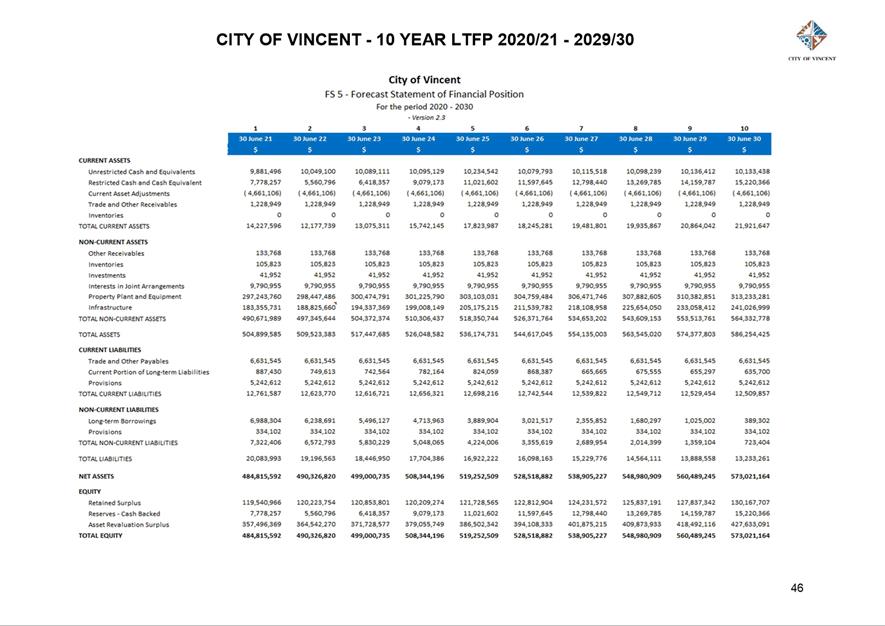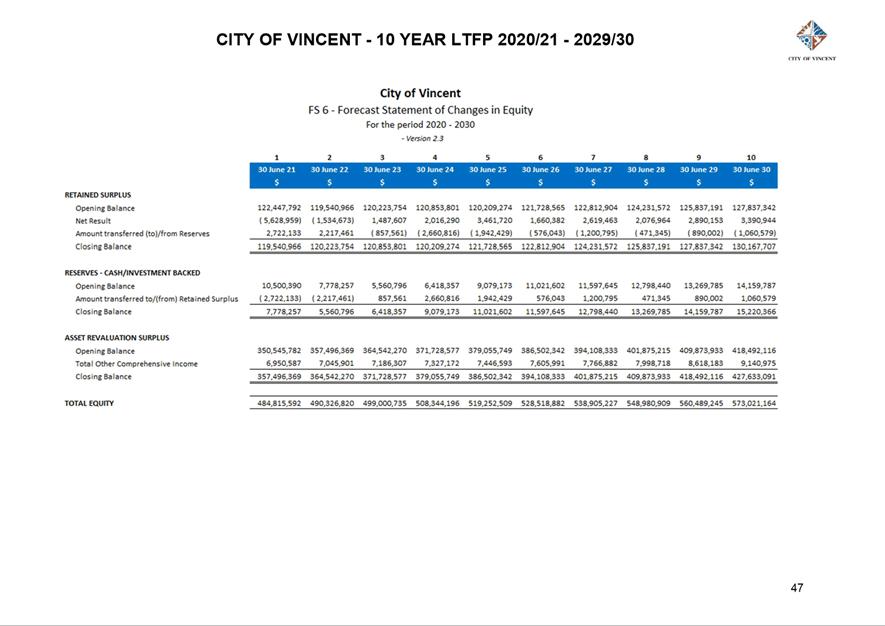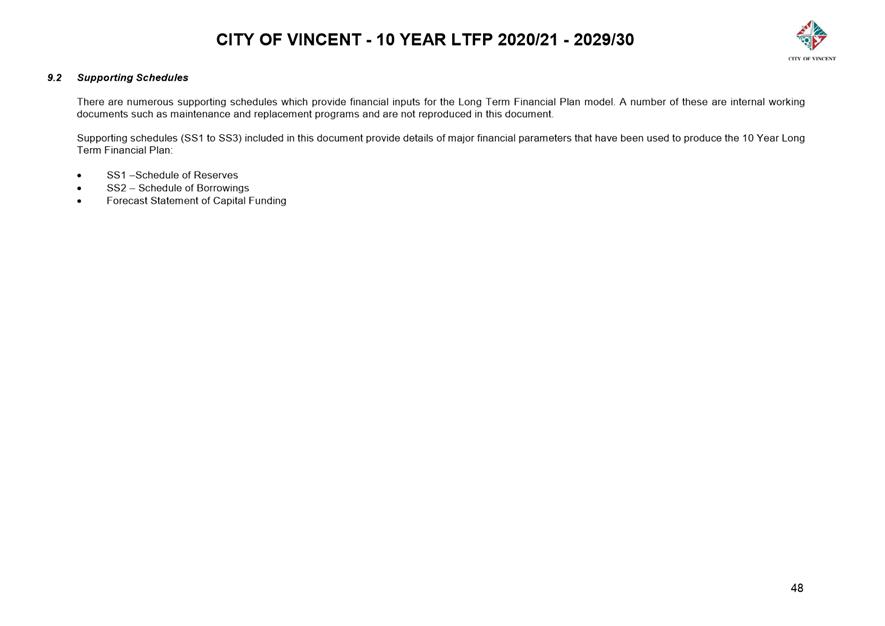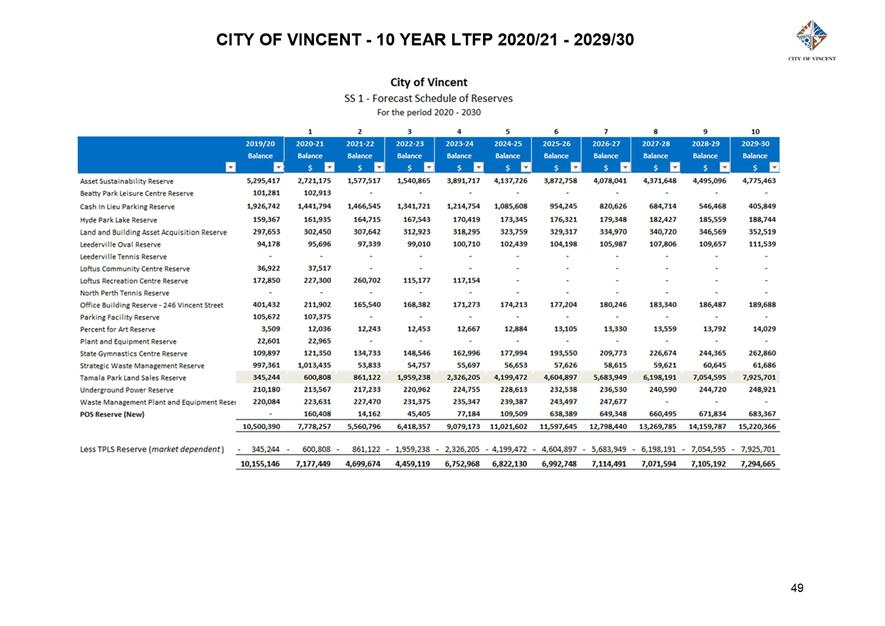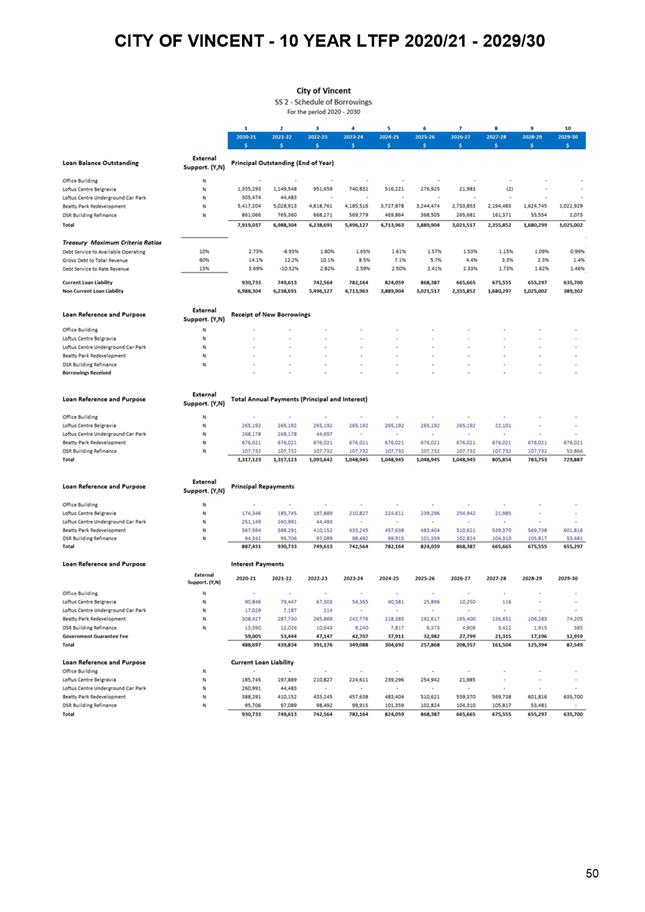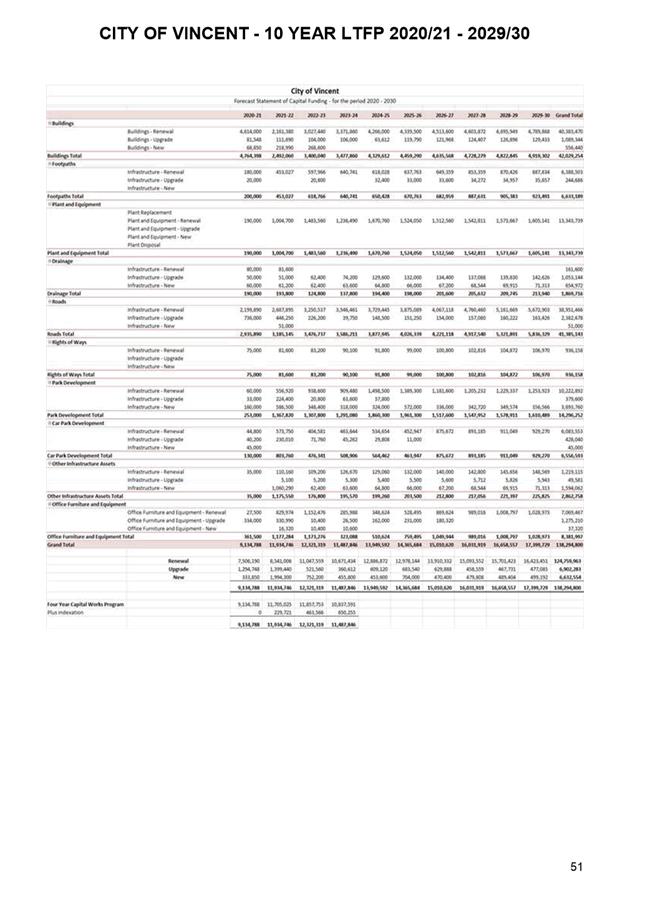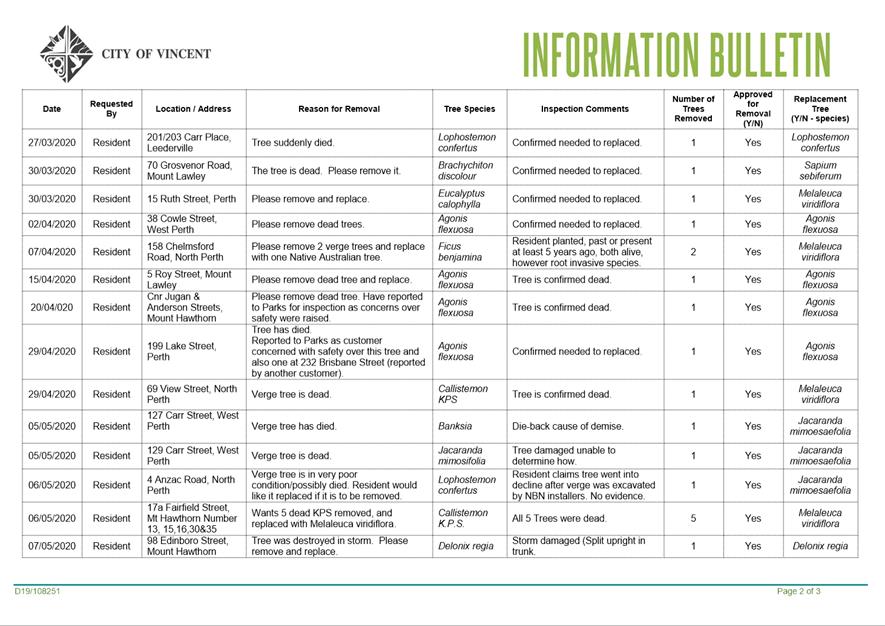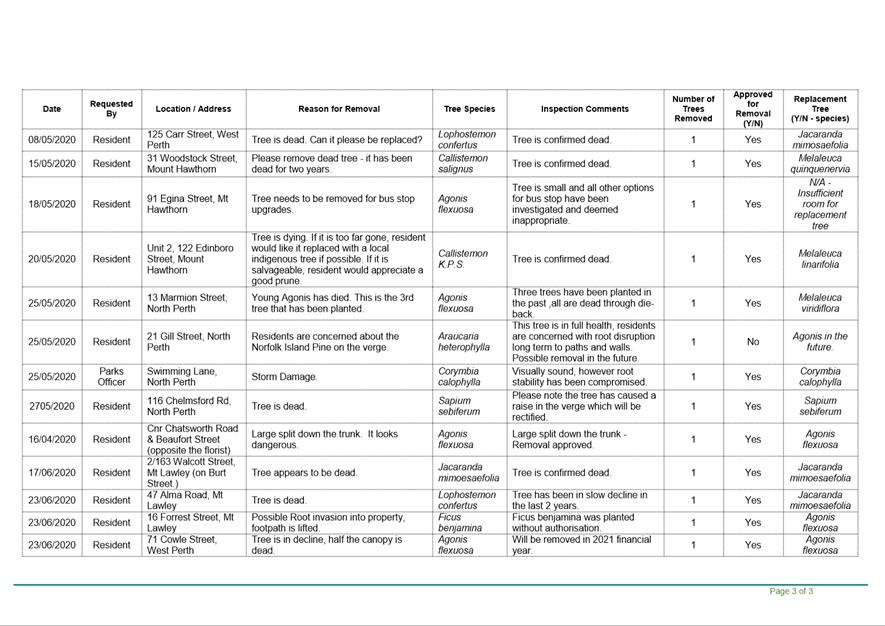AGENDA
Ordinary Council Meeting
18 August 2020
|
Time:
|
6pm
|
|
Location:
|
E-Meeting and Administration and Civic Centre
244 Vincent Street, Leederville
|
David MacLennan
Chief Executive Officer
DISCLAIMER
No
responsibility whatsoever is implied or accepted by the City of Vincent (City)
for any act, omission, statement or intimation occurring during Council
Briefings or Council Meetings. The City disclaims any liability for any
loss however caused arising out of reliance by any person or legal entity on
any such act, omission, statement or intimation occurring during Council
Briefings or Council Meetings. Any person or legal entity who acts or
fails to act in reliance upon any statement, act or omission made in a Council
Briefing or Council Meeting does so at their own risk.
In
particular and without derogating in any way from the broad disclaimer above,
in any discussion regarding any planning or development application or
application for a licence, any statement or intimation of approval made by an
Elected Member or Employee of the City during the course of any meeting is not
intended to be and is not to be taken as notice of approval from the
City. The City advises that anyone who has any application lodged with
the City must obtain and should only rely on WRITTEN CONFIRMATION of the
outcome of the application, and any conditions attaching to the decision made
by the Council in respect of the application.
Copyright
Any
plans or documents contained within this Agenda may be subject to copyright law
provisions (Copyright Act 1968, as amended) and that the express permission of
the copyright owner(s) should be sought prior to their reproduction. It
should be noted that Copyright owners are entitled to take legal action against
any persons who infringe their copyright. A reproduction of material that
is protected by copyright may represent a copyright infringement.


Order Of Business
1 Declaration
of Opening / Acknowledgement of Country. 7
2 Apologies
/ Members on Leave of Absence. 7
3 (A)
Public Question Time and Receiving of Public Statements. 7
(B) Response to Previous Public Questions Taken On
Notice. 7
4 Applications
for Leave of Absence. 11
5 The
Receiving of Petitions, Deputations and Presentations. 11
6 Confirmation
of Minutes. 11
7 Announcements
by the Presiding Member (Without Discussion) 11
8 Declarations
of Interest 11
9 Strategy
& Development 12
9.1 No.
173 (Lot: 7; D/P: 867) Oxford Street, Leederville - Change of Use from
Restaurant/Cafe and Single House to Small Bar and Single House. 12
9.2 Draft
Public Health Plan 2020-2025. 91
9.3 Minor
Strategic Review 2020 - Strategic Community Plan 2018-2028 [ABSOLUTE MAJORITY
DECISION REQUIRED] 124
9.4 Extension
of Temporary Change of Use Planning Exemptions. 168
10 Infrastructure
& Environment 172
10.1 Update
on Homelessness Support 172
10.2 Tender
RFT IE69/2020 – Bulk Green Waste Verge Collections – Appointment of
Successful Tenderer 257
10.3 Waste
Strategy Project 8 – Commercial Waste Collections (Update) - WITHDRAWN BY
ADMINISTRATION. 260
10.4 Department
of Transport Long Term Cycle Network Consultation Responses. 261
11 Community
& Business Services. 351
11.1 Investment
Report as at 30 June 2020. 351
11.2 Authorisation
of Expenditure for the Period 1 June 2020 to 30 June 2020. 359
11.3 Provisional
Financial Statements as at 30 June 2020. 376
12 Chief
Executive Officer 448
12.1 Progress
update on the Sustainable Environment Strategy 2019-2024. 448
12.2 Amendments
to new lease to HISP Pty Ltd - Beatty Park Cafe, 220 Vincent Street,
Leederville. 456
12.3 Extension
of term of COVID-19 Relief and Recovery Committee and amendment to Terms of
Reference. 459
12.4 Amendment
to Council Delegations - Delegation to issue a heritage conservation notice
[ABSOLUTE MAJORITY DECISION REQUIRED] 469
12.5 Appproval
of Governance Framework. 472
12.6 Adoption
of the Long Term Financial Plan for the Period 2020/21 - 2029/30. 513
12.7 Information
Bulletin. 596
13 Motions
of Which Previous Notice Has Been Given. 614
Nil
14 Questions
by Members of Which Due Notice Has Been Given (Without Discussion) 614
Nil
15 Representation
on Committees and Public Bodies. 614
Nil
16 Urgent
Business. 614
Nil
17 Confidential
Items/Matters For Which The Meeting May Be Closed. 614
Nil
18 Closure. 614
1 Declaration
of Opening / Acknowledgement of Country
“The City of Vincent would
like to acknowledge the Traditional Owners of the land, the Whadjuk people of
the Noongar nation and pay our respects to Elders past, present and
emerging”.
2 Apologies
/ Members on Leave of Absence
Nil
3 (A) Public
Question Time and Receiving of Public Statements
(B) Response
to Previous Public Questions Taken On Notice
These questions were taken on notice at the Ordinary
Council Meeting on 28 July 2020.
3.1 Andrew
Main of North Perth
Yesterday
I met with the CEO to discuss my concerns with the lack of, and the inadequate
nature of, community consultation undertaken by the City for a number of
projects. Some of my questions follow on from this meeting.
1.
For each of the projects listed below can you please advise
the following:
·
Was community engagement conducted? If so:
·
When did this occur?
·
Were all residents and ratepayers aware or advised
that they could be involved in the consultation process?
·
How were residents and ratepayers notified that a
consultation process was occurring?
·
How was this engagement undertaken, for example
written submissions, forums or other.
·
How many people participated in the consultation
process?
·
What was the response of council following the
feedback received, for example did the project scope change?
·
What was the cost of each project?
·
Was consultation in accordance with the
City’s community consultation policy?
The projects are as follows:
·
Beatty
Park Reserve
·
Demolition
of Pavilion
·
Replacement
of Bollards
·
Use
of grassed area for car parking
·
New
landscaping on demolished Pavilion site
·
Leake
Street open space
·
Replacement
of bollards
·
Landscaping
at southern end
Other
projects
·
Construction
of Roundabout at intersection of Lincoln and Wright Streets, Highgate
·
Protected
bike lane project Carr St West Perth
·
Construction
of protected bike lane Loftus St Leederville
·
Construction of shared path Keith Frame Reserve
The level of detail requested
in this question could not be collated in the time available. A detailed
response will be provided to Andrew Main directly once all the information is
collated.
2.
In relation to ‘black spot’ road funding in
general, how and when are residents and ratepayers of the city involved in the
process to determine which projects the city seeks funding for?
Black
Spot nominations are based purely upon the accident history of the location for
the last 5 years as provided by the police/MRWA. If a resident or a
ratepayer is concerned about accidents at a location the City is able to advise
if that particular location has been identified as an accident hotspot, meets
the Black Spot criteria and is the subject of an application.
3. In
answer to a question I asked at the council meeting on May 19 2020, the City
advised that the already overdue consultation for the North Perth traffic
calming project would occur ‘this financial year’. Given that we
are now in a new financial year, and this consultation has not taken place, can
you advise when this consultation will occur.
Whilst
the consultation package, including the Imagine Vincent engagement page had
largely been prepared the consultation was deferred due to the COVID-19
Pandemic. The funds on budget ($50,000) were carried forward to 20/21 and it is
intended to consult in the coming weeks (September) with a view to taking a
report to Council by the end of the year.
4. Street
tree replacement process
The
City’s approach to the replacement of street trees appears ad-hoc and
without reference to a publicly available plan to guide decisions. This can
lead to sub-optimal outcomes.
I
note that other councils have developed and endorsed plans which detail the
tree species that will be planted on each street within their district. In my
opinion this enables transparency and good decision making processes. Will the
City consider adopting a similar approach?
The
City has developed a Street Tree Selection Tool which is applied when selecting
tree species to replant in streets. The tool provides a list of both
native and exotic street trees that are most suitable given a specific streetscape
typology. The tool together with consideration of our current street tree
policy and consultation determines what will be replanted. On that basis the
City does not intend to detail specific tree species for any one street within
the City but will act on a case by case basis as required using the approach
detailed above.
5. Vincent
St bike path damage
Weeks
ago concrete was removed and gravel put in its place opposite the intersection
with Cleaver St. There are no warning signs and it is dangerous. When will it
be repaired?
The
area of path in question required replacement and the work was completed in the
week beginning 3 August 2020.
3.3 Dudley
Maier of Highgate
Built Form Policy
1.
Tables on pages 21, 47 and 60 specify lot boundary setbacks for lots
that are less than or equal to 14 metres wide, and lots that are greater than
or equal to 14 metres wide. So what boundary setback applies to lots that
are exactly 14m?
The
applicable boundary setback is 3 metres for lots that are exactly 14 metres
wide. This is an error in drafting and will be rectified when the Built Form
Policy is graphically designed.
2.
Local Housing Objective P1.8.6 on page 33 requires that developments for
single houses and grouped dwellings must demonstrate the capacity to meet a
specified sustainability performance standard. The standards shown are
the ‘global warming potential’ and ‘net fresh water
use’.
Given
that the ‘global warming standard’ for single houses and group
dwellings is “less than 2,250kg CO2 equivalent per occupant,
per year”, how will the City determine at the planning stage how many
people will occupy the building, and therefore what the total CO2
equivalent may be.
There
is a statistical average occupancy rate based on the number of bedrooms in a
dwelling based on the Australian Bureau of Statistics. This is built into the
life cycle assessment methodology that the City requires applicants to follow
in order to produce evidence to address local housing objective P1.8.6 of the
Built Form Policy.
3.
What physical infrastructure, other than the bare minimum required by
the National Construction Code, will influence CO2 equivalent
emissions?
Everything
that goes into constructing and operating the building will influence the CO2
equivalent emissions. Life cycle assessment takes into account the greenhouse
gas emissions for the entire life cycle of the building from extraction and
transportation of the raw materials, to manufacturing of building
products/fixtures/fittings, to maintenance and replacement of materials and
eventual demolition and disposal. Plug-in loads (i.e. electrical appliances
purchased by residents after construction) are excluded, but everything that is
installed at the time of construction (carpets, air conditioners, fans,
lighting, hot water systems, solar PV etc.) are included in the emission
calculations.
Supporting
information sheets relating to Environmentally Sustainable Design to supplement
the Built Form Policy have been prepared by the City and are available on the
City’s website.
4.
Given that the ‘net fresh water usage’ standard for single
house and group dwellings is “less than 57 cubic metres per occupant per
year” how will the City determine, at the planning stage, how many people
will occupy a building and therefore what the net fresh water use may be?
As
per a previous response, there is a statistical average occupancy rate based on
the number of bedrooms in a dwelling. This is built into the life cycle
assessment methodology that the City requires applicants to follow in order to
produce evidence of expected net fresh water usage.
5.
How can the design possibly affect the amount of fresh water consumed
per resident and what physical infrastructure, as opposed to behaviours, impact
water usage?
Similar
to greenhouse gas emissions, all fresh water use is included in the life cycle
assessment. This includes water used to manufacture the materials, fixtures and
fittings (embodied water), as well as the water used by the occupants
themselves (operational water use).
Design impacts water use by
affecting occupant behaviour. For example, kitchens, bathrooms and laundries
located further from hot water systems use more water. It takes longer for hot
water to arrive at taps/showers in distant locations, causing occupants to run
the water for longer while waiting for it to warm up. This can be mitigated by
design features such as separate hot water systems for distant locations, cold
water recirculation devices and insulation of hot water pipes.
Physical
infrastructure such as high efficiency tapware and toilets can significantly
reduce water use without behaviour change. Plumbed-in rainwater systems,
greywater systems, toilet/sink combinations, sub-surface drip irrigation and
automated controls linked to soil moisture sensors are other examples of
physical infrastructure that significantly reduce water use
.
Supporting
information sheets relating to Environmentally Sustainable Design to supplement
the Built Form Policy have been prepared by Administration and are available on
the City’s website.
6.
Have all development applications submitted after 17 June 2020 been
required to demonstrate adherence to P1.8.6? If not, why not?
Since
16 June 2020 when the Council decision to adopt the amended Built Form Policy
was made, the City has been advising proponents of development proposals that
local housing objectives P1.8.6 apply in the consideration of development
applications.
The
Planning and Development (Local Planning Schemes) Regulations 2015 sets out
that a local planning policy has effect once a notice is published in a
newspaper that circulates the district. Consistent with this, the amended Built
Form Policy came into effect upon notice of the amendment in the Perth Voice
and Eastern Reporter on 11 July 2020.
7.
Given that the policy states that “an urban design study is to
be submitted with the development application” has the City been
requiring all development applications submitted since 17 June 2020 to include
such a document? If not, why not?
Similar
the previous response, the City has been advising proponents of development
proposals of the need to submit an Urban Design Study in the consideration of
development applications since Council adopted the amended Built Form Policy on
16 June 2020.
The
amended Built Form Policy took effect under the Planning and Development (Local
Planning Schemes) Regulations 2015 and is the date that notice of the amended
Built Form Policy was published in the Perth Voice and Eastern Reporter.
Other Questions
8.
The City’s Code of Conduct says that “in order to ensure
the Code remains current and relevant it will be reviewed and presented to
Council for readoption no more than three months after each ordinary election.”
Why has the Administration failed to do this, particularly given that the three
month expired well before COVID-19 became an issue.
The
Chief Executive Officer advised at the Council Meeting on 28 July 2020 that
changes to the Local Government Act passed last year includes a mandatory Code
of Conduct for Elected Members, so that means that Council does not need to
approve its own Code of Conduct.
Administration
provides the following further information.
The
Department of Local Government is currently preparing a mandatory code of
conduct for Elected Members, in line with the changes to the Local Government
Act 1995 which were approved on 27 June 2020. The Department sought comments on
the proposed Code of Conduct last year, with submissions closing on 6 December
2019. Over 400 submissions were received, and the Department is reviewing these
and drafting the regulations, which includes the mandatory Code of Conduct,
based on these. Further details on the Department’s review and
preparation of the mandatory Code of Conduct is available here: https://www.dlgsc.wa.gov.au/department/news/news-article//2019/09/24/383a0f7b-206f-4964-8e4a-394d3ab02a27
The
City has undertaken a review of the City’s Code of Conduct in
anticipation of the implementation of the mandatory Code of Conduct, and has
developed a draft Code of Conduct specifically for staff members and
contractors at the City. Once the mandatory Code of Conduct is released
Administration will prepare a new Code of Conduct to be observed by Elected
Members, committee members and candidates that incorporates the mandatory Code
of Conduct. Both the Code of Conduct for Elected Members, committee members and
candidates and the Code of Conduct for staff members and contractors will be
presented to Council for consideration and are proposed to replace the current
collective Code.
9.
Given that case law and legal advice, and the ‘Newbury
Principles’, which states that planning conditions must be imposed for a
planning purpose, must fairly and reasonably relate to a development and must
be reasonable, can the City confirm that all the recently funding projects
funded by the Percent for Art contributions have conformed to the
‘Newbury Principles’, in particular the free sports casting
workshops for Footy Diehards, the Absurdist video game and the music
video/documentary.
The
application or ‘test’ against the Newbury Principles is relevant at
the stage of determining the validity of imposing a condition of planning
approval. All instances where a condition of planning approval was imposed
requiring Percent for Art contribution was done so in accordance with the
Newbury Principles. That is, it directly related to the development proposed,
it was imposed for a planning purpose, and it was not unreasonable in nature.
Consistent
with the City’s Percent for Art Policy, the planning condition requires a
developer to make a minimum one percent contribution based on the cost of the
proposed development. The proponent can elect to provide this as either public
art or paying cash-in-lieu. In cases where the developer elects to pay
cash-in-lieu, the City collects the money in a fund.
The
Percent for Art Policy guides the City’s expenditure of the money in the
cash-in-lieu fund and the Arts Relief Grants were awarded in a manner
consistent with the Percent for Art Policy.
Mr
Maier has identified some of the innovative ways the City is fostering a
diverse range of artistic expressions, via performance and new media, to
connect to wider audiences in different ways. Some of these initiatives
demonstrate community engaged art works. They also demonstrate how some
art works can adapt within an environment of social distancing.
The
creation and performance/installation of art works will be curated and
accessible to a wider range of community members through interviews, photos and
video. This was a criteria included in the EOI for the grant.
This
curated material will also be made available to the Local History Centre and
State Library to capture this unique time in history for future generations.
10. Why
does the answer to one of my previous questions about the DSR lease say that
“the Administration did not engage an external property consultant to
assist the least discussion when the payment of $8,800 was made on 28 November
2019 to Knight Frank (Pty) Ltd for “lease negotiations for 246 Vincent
Street.
The
CEO advised at the 28 July 2020 Meeting that the response included in the 28
July 2020 Agenda to the question submitted at the 16 June 2020 Council Meeting
should have stated that the City did engage an external property consultant to
assist with the lease discussion. Knight Frank was engaged to provide the
market valuation and assist with the initial lease negotiations. The Minutes of
the 28 July 2020 Council Meeting have been updated to reflect this (as shown in
red and strikethrough in the minutes).
3.2 Peter
Jeffries of Mount Lawley
Mr
Jefferies did not apply to be a member of the Arts Advisory Group within the
timeframe due to technology issues. He requested that his application be
considered by Council at the meeting. He is a former member of the
Arts Advisory Group and Coordinator of the Vincent Writers Centre.
Mr
Jeffries’ nomination was discussed behind closed doors as part of Item
12.3. Council resolved that Mr Jeffries’ application was not successful.
Mr Jeffries was advised as part of the normal process for nominees.
4 Applications
for Leave of Absence
5 The
Receiving of Petitions, Deputations and Presentations
6 Confirmation
of Minutes
Ordinary Meeting - 28 July 2020
7 Announcements
by the Presiding Member (Without Discussion)
8 Declarations
of Interest
8.1 Cr
Joshual Topelberg declared a proximity interest In Item 9.4, Extension
Of Temporary Change Of Use Planning
Exemptions. The extent of his interest is that a family member has
utilised the exemptions in order to change the use of a property they own at 301
Fitzgerald Street, West Perth. He is not seeking approval to participate
in the debate or to remain in Chambers or vote in the matter.
9 Strategy
& Development
9.1 No.
173 (Lot: 7; D/P: 867) Oxford Street, Leederville - Change of Use from
Restaurant/Cafe and Single House to Small Bar and Single House
Ward:
Attachments: 1. Location
and Consultation Map ⇩ 
2. Development Plans
⇩ 
3. Venue Management
Plan ⇩ 
4. Acoustic Report ⇩ 
5. Previously
Approved Development Plans and Delegated Approval Notice ⇩ 
6. Summary of
Submissions - Administration's Response ⇩ 
7. Determination
Advice Notes ⇩ 
|
Recommendation:
That
Council, in accordance with the provisions of the City of Vincent Local
Planning Scheme No. 2 and the Metropolitan Region Scheme, APPROVES the
application for a proposed Change of Use from a Restaurant/Cafe and Single
House to Small Bar and Single House at No. 173 (Lot: 7; D/P: 867) Oxford
Street, Leederville in accordance with the plans provided in Attachment 2,
subject to the following Conditions, with the associated determination advice
notes in Attachment 7:
1. All
conditions, requirements and advice notes detailed on development approval
5.2020.81.1 dated 24 July 2020 continue to apply to this approval, except as
follows:
1.1 Conditions
1 and 2 of the development approval are deleted and replaced with the
following condition:
“1. Use
of Premises
1.1 This
approval relates to a Change of Use from Restaurant/Café and Single
House to Small Bar and Single House as depicted on the plans dated
16 July 2020. It does not relate to any other development on the
site;
1.2 The
hours of operation shall be limited to:
· 6:00am
to 12:00am Monday to Saturday;
· 6:00am
to 10:00pm Sunday; and
· 6:00am
to 12:00am Sunday where followed by a public holiday; and
1.3 A
maximum of 55 persons shall occupy the Small Bar at any one time.”.
|
Purpose of Report:
To consider an
application for development approval for a change of use from Restaurant/Café
and Single House to Small Bar and Single House at No. 173 Oxford Street,
Leederville (subject site).
PROPOSAL:
The application proposes
to change the use of the subject site from a Restaurant/Cafe and Single House
to Small Bar and Single House.
The premises is currently
approved for use as a Restaurant/Café and Single House. The current
development application seeks approval for a Small Bar to obtain a Section 40 certificate
(to form part of application for liquor license).
The Small Bar component
occupies the front portion of the building and outdoor dining area with a total
floor area of 113 square metres. The Single House component is existing and
occupies the rear portion of the existing building and has an existing floor
area of 72 square metres. The Single House is not subject of this approval.
The Small Bar is proposed
to operate as follows:
· Operating
hours Monday to Saturday from 6:00am – 12:00am and Sunday from 6:00am
– 10:00pm;
· A
maximum of 50 customers and five staff members are proposed to be on site at
any one time;
· An
outdoor dining area is located in a portion of the existing driveway to the
south of the building. This would restrict all vehicle access to the rear
of the subject site during business hours;
· No
parking bays provided on-site for staff or customers; and
· Two
bicycle parking bays provided for staff and customers.
The application does not
propose any works.
Background:
|
Landowner:
|
Colin Philip De Silva
|
|
Applicant:
|
Robert McNally
|
|
Date of Application:
|
12 March 2020
|
|
Zoning:
|
MRS: Urban
LPS2: Zone: Regional Centre
|
|
Built Form Area:
|
Town Centre
|
|
Existing Land Use:
|
Shop House
|
|
Proposed Use Class:
|
Small Bar –
‘D’
Single House –
‘D’
|
|
Lot Area:
|
405m²
|
|
Right of Way (ROW):
|
Not applicable
|
|
Heritage List:
|
Not applicable
|
The subject site is
located at No. 173 Oxford Street, Leederville, as shown on the location plan
included as Attachment 1.
The site is currently
developed with a single storey building that has a commercial tenancy (Shop) to
the front and a dwelling to the rear. A driveway is located along the southern
boundary, providing access to the rear of the site.
The subject site is zoned
Regional Centre under the City’s Local Planning Scheme No. 2 (LPS2) and
is located within the Town Centre Built Form Area under the City’s Policy
No. 7.1.1 – Built Form (Built Form Policy).
The subject site is bound
by Oxford Street to the east, a Restaurant to the north, a Cinema to the south
and a Multiple Dwelling development to the west. Adjoining properties to the
north and south of the subject site along Oxford Street are zoned Regional
Centre under the City’s LPS2. Adjoining properties to the west of the
subject site are zoned Residential under LPS2 with a density coding of R80. The
adjoining property to the east of the subject site is reserved for Public
Purposes – Primary School/High School.
A copy of the development
plans have been included in Attachment 2, the applicants Venue
Management plan has been included as Attachment 3 and the applicants
Acoustic Report has been included as Attachment 4.
Previous Approvals
On 24July 2020
Administration approved a development application for a Change of Use at the
subject site. Details of this application included:
· Change
of use from Shop House to Restaurant/Café and Single House;
· Façade
upgrades, consistent with the proposed plans relevant to this application;
· Outdoor
dining area within the existing driveway, consistent with the proposed plans
relevant to this application;
· The
provision of two on-site long-term bicycle bays;
· Signage,
consistent with the proposed plans relevant to this application.
The development
application was approved with nil car parking on-site. Residents of the Single
House have the ability to park at the rear of the development site however
access to these bays are restricted during operating hours due to the outdoor
dining area. The residents have would be able to apply for two Residential
Parking Permits for on-street car parking.
A copy of the approved
development plans and delegated approval notice are included in Attachment 5.
The application was
determined separately to the proposed Small Bar change of use application at
the applicant’s request. The applicant sought separate development
approval for the works and for the Restaurant/Café use to enable them to
obtain relevant Building and Health approvals and to allow works to commence
on-site as soon as possible. Approval for a Small Bar is sought to better align
the use with the liquor license sought by the applicant.
Details:
Summary Assessment
The table below
summarises the planning assessment of the proposal against the provisions of
the Planning and Development Act 2005, Planning and Development (Local
Planning Schemes) Regulations 2015, City’s LPS2, the Built Form
Policy, Policy No. 7.5.7 – Licensed Premises, Policy No. 7.5.21 –
Sound Attenuation and Policy No. 7.7.1 – Non-Residential Development
Parking Requirements. In each instance where the proposal requires the
discretion of Council, the relevant planning element is discussed in the
Detailed Assessment section following from this table.
|
Planning Element
|
Use
Permissibility/ Deemed-to-Comply
|
Previously
Approved
|
Requires the
Discretion of Council
|
|
Land Use
|
|
|
ü
|
|
Car Parking
|
|
ü
|
|
|
Bicycle Parking
|
|
ü
|
|
|
Advertising Signs
|
|
ü
|
|
|
Sound Attenuation
|
ü
|
|
|
|
Hours of Operation
|
|
|
ü
|
|
Façade Design
|
|
ü
|
|
Detailed Assessment
The deemed-to-comply assessment
of the elements that require the discretion of Council are as follows:
|
Land Use
|
|
Deemed-to-Comply Standard
|
Proposal
|
|
LPS2
Small Bar
“P” Use
|
“D” Use
|
|
Hours of Operation
|
|
Deemed-to-Comply Standard
|
Proposal
|
|
Policy No. 7.5.7
– Licenced Premises
Small Bar permitted
opening time: 7:00am
|
Small Bar proposed opening time: 6:00am
|
The above elements of the
proposal do not meet the specified deemed-to-comply standards and are discussed
in the comments section below.
Consultation/Advertising:
Community consultation
was undertaken in accordance with the Planning and Development (Local
Planning Schemes) Regulations 2015 for a period of 21 days from 5 May 2020
to 26 May 2020. The method of consultation included 189 letters being mailed to
all the owners and occupiers of the properties adjoining the subject site, as
shown in Attachment 1.
During the community
consultation, the City received a total of eight submissions including five
submissions in support, or conditional support of the proposal; and three
submissions expressing neither support nor objection but requesting additional
information.
The submissions raised
the following concerns:
· Acoustic
impacts on adjoining properties form the outdoor dining area;
· Management
of anti-social behaviour; and
· Car
parking.
A summary of submissions
and Administration’s response is provided in Attachment 6.
Design Review Panel
(DRP):
Referred to DRP: No
The application did not
require referral to the DRP given there are no external works proposed as part
of this application.
Legal/Policy:
· Planning
and Development Act 2005;
· Planning
and Development (Local Planning Schemes) Regulations 2015;
· City
of Vincent Local Planning Scheme No. 2;
· Leederville
Town Centre Masterplan & Built Form Guidelines;
· Policy
No. 4.1.5 – Community Consultation;
· Policy
No. 7.1.1 – Built Form Policy;
· Policy
No. 7.5.7 – Licensed Premises;
· Policy
No. 7.5.21 – Sound Attenuation; and
· Policy
No. 7.7.1 – Non-Residential Development Parking Requirements.
Planning
and Development Act 2005
Should Council refuse the
application for development approval, the applicant may have the right to have
the decision reviewed in accordance with Part 14 of the Planning and
Development Act 2005.
LPS2
In considering the
appropriateness of the use, Council shall have regard to the objectives of the
Regional Centre zone under LPS2, as follows:
· To
provide a range of services and uses to cater for the local and regional
community, including but not limited to specialty shopping, restaurants, cafes
and entertainment.
· To
provide a broad range of employment opportunities to encourage diversity and
self-sufficiency within the Centre.
· To
encourage high quality, pedestrian-friendly, street-orientated development that
responds to and enhances the key elements of the Regional Centre, and to
develop areas for public interaction.
· To
ensure levels of activity, accessibility and diversity of uses and density is
sufficient to sustain public transport and enable casual surveillance of public
spaces.
· To
provide residential opportunities within the Regional Centre including high
density housing, affordable housing, social and 7 special needs housing,
tourist accommodation and short term accommodation. AMD 1 GG 3/08/2018.
· To
ensure that the centres are developed with due consideration to State Planning
Policy 4.2 – Activity Centres for Perth and Peel.
Delegation to
Determine Applications:
The matter is being
referred to Council in accordance with the City’s Delegated Authority
Register as the delegation does not extend to applications for development
approval that propose the land use ‘Small Bar’.
Risk Management Implications:
There are minimal risks
to Council and the City’s business function when Council exercises its
discretionary power to determine a planning application.
Strategic Implications:
This is in keeping with
the City’s Strategic Community Plan 2018-2028:
Innovative
and Accountable
We are open and accountable to an engaged community.
SUSTAINABILITY IMPLICATIONS:
Nil.
Financial/Budget Implications:
Nil.
Comments:
Land Use
Small Bars are a
‘D’ use within the Regional Centre zone, meaning the use is not
permitted unless Council exercises its discretion. In considering the
appropriateness of the use, regard is given to the objectives of the Regional
Centre zone under LPS2.
During the consultation
period the City did not receive submissions relating specifically to the Small
Bar use. Submissions were received in relation to impacts as a result of the
use, including car parking, noise and management of anti-social behaviour.
The proposal is
consistent with the objectives of the Regional Centre zone under LPS2 as
follows:
· The
subject site and adjoining properties along Oxford Street have long been
associated with commercial uses and are located in the Leederville Town Centre.
· The
residential development to the west of the subject site is well separated from
the outdoor dining area of the proposed Small Bar. The separation distance
between the subject site and the nearby residential development is sufficient
to mitigate the occurrence of any conflicts between the commercial and
residential land uses. The proposal would maintain compatibility with
commercial development on Oxford Street while being sensitive to adjoining
residential development to the west of the subject site;
· The
applicant has provided a parking management plan to demonstrate that parking
can be appropriately managed. The proposal encourages customers and staff to
consider utilising alternative modes of transport such as the nearby train
station and bus routes. The site is highly accessible by public transport being
located within approximately 550 metres of the Leederville Train Station and 80
metres from the Oxford Street high frequency bus route;
· The
City’s Licensed Premises Policy recommends licensed premises to be
concentrated within Town Centre areas. The proposal contributes to the
diversity of entertainment uses within the Leederville Town Centre and supports
employment opportunities;
· The
Small Bar would enhance amenity and revitalise what is currently a rundown,
vacant site that lacks activation, surveillance and integration with
surrounding land uses. The ground floor design provides an open and active
façade and outdoor dining area to encourage interaction with the street;
· The
applicant has provided an acoustic report and venue management plan to
demonstrate that noise and anti-social behaviour can be appropriately managed.
These indicate that the proposed uses are capable of operating from the subject
site without generating nuisances detrimental to the amenity of nearby
properties or wider locality;
· The
development re-uses an existing building on-site. The adaptive re-use of an
existing building is considered to be consistent with sustainability
principles; and
· The
proposal includes a Single House on the site in addition to the Small Bar land
use. This assists in the provision of a variety of housing typologies within
the Regional Centre.
Acoustic Report
The applicant submitted
an acoustic report prepared by a qualified acoustic consultant in support of
the Small Bar. The acoustic report is included as Attachment 4. The
acoustic report assesses noise generated from the proposed use and its impact on
the adjoining properties.
The acoustic report
confirmed that noise levels generated from the premises during the proposed
operating hours would comply with the relevant assigned noise levels under the Environmental
Protection (Noise) Regulations 1997. The proposed use would not result in
an adverse impact on the use and amenity of the surrounding area in relation to
noise.
Hours of Operation
The Small Bar use
proposes to vary the City’s Licensed Premises Policy in relation to its
opening time. Trading hours for a Restaurant/Café are unrestricted under
the Licensed Premises Policy, being the currently approved use of the site.
The City’s Licensed
Premises Policy provides a guide for appropriate operating hours in various
zones. It does not give any indication for the appropriate hours for
Small Bars within the Regional Centre zone as the Policy was adopted in 2014,
prior to the gazettal of LPS2 that introduced the Regional Centre Zone. It is
appropriate to apply the District Centre zone trading hours of the Policy to
the Regional Centre zone.
The City’s Licensed
Premises Policy permits an opening hour of 7:00am Monday – Sunday and the
application proposes an opening hour of 6:00am Monday – Sunday.
The proposed hours are
with the exception of Good Friday, Anzac Day and Christmas Day when restricted
hours will be adhered to. The applicant has provided a Venue Management Plan
addressing hours of operation, patron and anti-social behaviour and noise
control. The Venue Management Plan is included at Attachment 3.
The proposed opening hour
of 6:00am is supported as the premises will generally operate as a
Restaurant/Cafe for this time. A Restaurant/Café use has no restrictions
on its opening hours within the Regional Centre Zone. An acoustic report has
been submitted which shows compliance of the proposal with the requirements of
the City’s Sound Attenuation Policy for the hour between 6:00am and
7:00am.
Ordinary Council Meeting Agenda 18
August 2020


Ordinary
Council Meeting Agenda 18
August 2020




Ordinary
Council Meeting Agenda 18
August 2020




Ordinary
Council Meeting Agenda 18
August 2020

















Ordinary Council Meeting Agenda 18
August 2020



Ordinary Council Meeting Agenda 18
August 2020

Ordinary Council Meeting Agenda 18
August 2020

9.2 Draft
Public Health Plan 2020-2025
Attachments: 1. Draft
Public Health Plan 2020 - 2025 ⇩ 
|
Recommendation:
That
Council:
1. APPROVES
the draft Public Health Plan 2020-2025 at Attachment 1 for public comment for
a period of 21 days in accordance with the City’s Policy No. 4.1.5
– Community Consultation in Attachment 1; and
2. NOTES:
2.1 a
further report will be presented to the Ordinary Meeting of Council in
October 2020 detailing any submissions received during the public comments
period; and
2.2 the
draft Public Health Plan 2020–2025 will be subject to further
formatting, styling and graphic design as determined by the Chief Executive
Officer prior to publication.
|
Purpose of Report:
To provide an overview of the development of the draft
Public Health Plan 2020-2025 and to present this plan for public comment.
Background:
The Public Health Act
2016 (the Act) sets out the requirements for all local governments to
prepare a Public Health Plan. Local government plans must be consistent with
the State Public Health Plan and can be adapted where necessary to meet the
specific needs of local communities. Public health plans are also to include a
health profile and set a strategic direction for areas of public health focus.
The State Public
Health Plan for Western Australia 2019-2024 was released in late-2019 and
contains the following objectives:
1. Empowering and
enabling people to live healthy lives;
2. Providing health
protection for the community; and
3. Improving Aboriginal
health and wellbeing.
Development of the
City’s Public Health Plan 2020-2025 (Plan) commenced soon after the
release of the State Plan. The new Plan supersedes the City’s previous
Public Health Plan 2014-2017.
The Plan is a high-level
strategy which aligns to the City’s Strategic Community Plan 2018-2028
priorities and is to inform the Corporate Business Plan and annual budgets. Development
of the Plan has involved:
· Desktop
research and analysis of the City’s population’s health profile;
· Community
and stakeholder engagement;
· Council
Member and Administration priority setting; and
· Review
of guiding policies including the State Plan and World Health Organisation
Social Determinants of Health.
Details:
The vision for the Plan (see Attachment 1) is ‘a healthy,
happy and connected community for all’. The City will achieve this vision
by embedding health and wellbeing priorities for the community in:
· Service
and program delivery;
· Policy
development and planning;
· Leadership
and advocacy; and
· Stakeholder
engagement and partnerships.
The
Plan includes five public health strategic pillars as detailed in Figure 1,
which are to guide the City’s actions over the next five years. The
pillars identify our environments that influence public health, recognise the
City’s established role in health protection and demonstrate
Vincent’s commitment to being a public health leader in the local
government sector. Within ‘Part 9.0 – Strategic Action Plan’
of the Plan, there are priority areas, deliverables and long term health
outcomes detailed for each pillar. The public health leadership pillar contains
a target to have smoke-free areas within Town Centres by 2025.
Figure 1 –
Public Health Strategic Pillars

The pillars have been
formulated with consideration to:
1. Desktop research
and analysis of Vincent’s health profile
A Vincent health profile
has been collated by the North Metropolitan Health Service and contains data
from the Australian Bureau of Statistics and the Department of Health. A
summary of the analysis of this data is detailed in ‘Part 5.0 – The
Health of the Community’ of the Plan. The data analysis identified the following
six health topics, which are consistent with the State Plan, as priorities for
the City:
· Alcohol;
· Physical
activity;
· Healthy
eating;
· Mental
health and wellbeing;
· Smoking;
and
· Environmental
health.
2. Community and
stakeholder engagement outcomes
Consultation was
facilitated in March 2020 and stakeholders provided comments via ‘Imagine
Vincent’ and through face-to-face conversations. The outcomes of the
engagement concluded there are seven common themes which are important to the
community to lead a healthy, happy and connected life in Vincent:
· Being
socially connected;
· Up
to date public health information;
· Recreation
and community facilities;
· Parks
and open spaces;
· Opportunities
to walk and cycle;
· Festivals,
events and activities; and
· Vibrant
town centres and high streets.
Non-government
organisations, in addition to the Department of Health provided information on
the type of public health priorities that could be addressed in the Plan. The
City and these organisations will have the opportunity to share skills and
knowledge on health topic areas, collaborate and join resources, improve
communication and seek opportunities to cross promote health and wellbeing
programs.
3. Consideration of
priority population groups
The Plan recognises there
are groups that are generally at a greater risk of chronic disease and may
require some targeted strategies. These groups were identified through data
analysis, review of the State Plan and with consideration to the City’s other
plans (e.g. Reconciliation Action Plan). These six priority population groups
are:
· Aboriginal
and Torres Strait Island people;
· People
living in low socioeconomic circumstances;
· People
living with a disability;
· People
experiencing homelessness;
· Seniors;
and
· Culturally
and Linguistically Diverse (CALD) populations, particularly those people who
have recently arrived in Australia.
4. Review of the
City’s programs, projects and services
Engagement with Council
Members and the City’s Administration has built a thorough understanding
of the projects, programs and services that have a positive impact on community
health and wellbeing. It is recognised that almost every aspect of the
City’s operations and strategic direction contribute to public health.
The deliverables detailed in Part 9.0 of the Plan recognise the existing
programs and services and identify future opportunities over the next five
years.
Priorities for year one of the Plan
The deliverables to support the five public health strategic pillars are
to be prioritised and implemented through an annual work plan which identifies
specific actions, resources, responsibilities and timeframes. It is recognised
that the leadership pillar involves considering public health as part of
everything the City does, and leading by example. The emergence of COVID-19 is
an important theme in the first year, and public health recovery from the
pandemic has been incorporated into the Plan.
Priorities for the first year of the Plan include:
· Collaborating
to formally incorporate public health, wellbeing and health equity principles
and priorities into City policies, plans, reports, programs and activities;
· Determining
how alcohol and smoking related harm can be reduced, in partnership with
external agencies and community groups, including working towards the target to
have smoke-free areas within town centres by 2025;
· Developing
strategies to support the communities physical and mental health and wellbeing
through the COVID-19 recovery phase; and
· Preparing
a communication strategy to inform, engage and educate our community on
priority health topics for Vincent.
Target –
Smoke-free areas in Town Centres by 2025
The target to have
smoke-free areas in Town Centres by 2025 demonstrates the City’s
commitment to public health leadership; as well as contributing to an improved
social, built and natural environment; while protecting the health of the
public.
The State Public Health
Plan supports ‘making smoking history’ with clear evidence being
provided that there is no risk level of exposure to second-hand smoke. This
target also supports the Australian Council of Smoking and Health’s
(ACOSH) target of tobacco free by 2025. As well as there being clear evidence
that smoking is harmful to health, public support for smoke-free spaces is
high; with 89% of people supporting smoke-free dining and 72 percent of people
supporting smoke-free shopping centres, according to the Australian Institute
of Health and Welfare.
This target would ensure
everyone can enjoy a smoke-free environment without being exposed to harmful
second-hand tobacco smoke. It would support better community health, reduce
litter from cigarette butts and discourage normalising of smoking to young
people.
Many local governments
have already implemented smoke-free policies including five in WA. In 2013, the
City of Perth voted unanimously to make Murray Street Mall, Hay Street Malls
and Forrest Chase smoke-free.
Smoke-free public places
have also been implemented at beaches, reserves, town centres and facilities in
other local governments including the Town of Cottesloe, City of Bunbury, City
of Albany and Shire of Augusta-Margaret River. Public consultation has
indicated a support rate of 80 percent or above in many circumstances.
The City would not pursue
a strict enforcement approach to this proposed target – it would focus on
raising awareness that smoke-free environments support public health and the environment.
This proposed target
could be formalised through the Local Government Property Local Law 2008 which
would provide the option of issuing infringement notices – but this would
not be the intent behind the target.
Other factors, including
smoke-free boundaries and considering safe smoking locations would be scoped if
the draft Plan was endorsed by Council. Administration would then present a
proposal to Council on implementation of the target.
Consultation would
include Town Teams representing local businesses, the community and health
stakeholders such as ACOSH. The target would be embedded in the City’s
strategic framework and future target opportunities would be considered during
the lifespan of this Plan.
Health Policy review
During the development of
the Plan, Administration has undertaken a review of City health policies. It is
proposing that five policies are repealed when the Plan is adopted by Council
(in accordance with section 2.7 of the Local Government Act 1995). The contents
of the policies are either covered within Regulations and Acts, will be
converted to procedural documents used by Administration, and/or will be
embedded within the Plan. There are no legal, legislative or regulatory
requirements for these policies. Administration will present these five
policies for repeal, including justification, when the Plan is presented to
Council for adoption:
· Policy
No. 3.8.4 – Safe Needle Syringe Collection and Disposal Strategy;
· Policy
No. 3.8.6 – Public Buildings - Use of Open Fires;
· Policy
No. 3.8.8 – Rodent and Vermin Control - Assistance to Ratepayers;
· Policy
No. 3.8.9 – Healthy Vincent; and
· Policy
No. 3.8.10 – Food Act 2008.
ConsUltation/Advertising:
As per Council Policy No.
4.1.5 – Community Consultation, it is proposed to seek community feedback
and input on the Plan through a 21 day public comment period. This will
include:
· Notices
on the City’s website and social media and e-newsletter;
· Dedicated
project page on the City’s Imagine Vincent community engagement portal;
· Notices
at the City’s Library and Local History Centre and community buildings;
and
· Targeted
engagement with key stakeholders.
As the Plan remains subject to amendments following the public comment
period, Attachment 1 does not reflect the appearance of the final
document, which will be formatted and styled before publication.
Legal/Policy:
Section 45 of the Public
Health Act 2016 sets out the requirements for all local governments to
prepare a Public Health Plan that applies to its local government district.
Risk Management Implications:
Low: There is low risk to Council considering
adoption of the draft Plan and will guide long-term planning for Public Health
within the Local Government.
Strategic Implications:
This is in keeping with
the City’s Strategic Community Plan 2018-2028:
Enhanced
Environment
Our parks and reserves
are maintained, enhanced and well utilised.
We have minimised our
impact on the environment.
Accessible
City
Our pedestrian and
cyclist networks are well designed, connected, accessible and encourage
increased use.
Connected
Community
We have enhanced
opportunities for our community to build relationships and connections with
each other and the City.
We are an inclusive,
accessible and equitable City for all.
Thriving Places
Our
town centres and gathering spaces are safe, easy to use and attractive places
where pedestrians have priority.
Sensitive
Design
Our planning framework
supports quality design, sustainable urban built form and is responsive to our
community and local context.
Innovative
and Accountable
Our community is aware of what we are doing and how we are
meeting our goals.
We are open and accountable to an engaged community.
SUSTAINABILITY IMPLICATIONS:
This is in keeping with
the following key sustainability outcomes of the City’s Sustainable
Environment Strategy 2019-2025.
Sustainable Transport
Financial/Budget Implications:
In the 2020/2021
operating budget, $7,000 has been allocated to the Public Health Plan. Future budgets
will be subject to Council consideration, however it should be noted that the
Plan complements existing budgeted services, projects and programs. This
includes the program which is in place to coordinate the Plan. External grant
funding opportunities will be sought as opportunities arise, and the City will
be partnering with the Department of Health and non-government sector to share
resources and progress deliverables.
Comments:
The City is committed to
improving the health and wellbeing of our community, and the Plan will guide
the integration of a public health focus into existing services, programs and
future public health initiatives over the next five years. The Plan will focus
on lifestyle choices such as healthy eating, physical activity, harmful tobacco
use, alcohol use and also our local environments to help the City achieve
healthier outcomes for our community. The Plan is intended to be a flexible and
living document, allowing for new opportunities to be added as they arise over
the life of the Plan.
Ordinary Council Meeting Agenda 18
August 2020




























9.3 Minor
Strategic Review 2020 - Strategic Community Plan 2018-2028
Attachments: 1. Implementation
Audit and Two Year Review ⇩ 
2. Modified
Strategic Community Plan 2018-2028 ⇩ 
|
Recommendation:
That
Council:
1. ADOPTS
BY ABSOLUTE MAJORITY the modified Strategic Community Plan 2018-2028 at
Attachment 2, resulting from the minor strategic review conducted in
accordance with Regulation 19C of the Local Government (Administration)
Regulations 1996; and
2. NOTES
that the revised Strategic Community Plan 2018-2028 will be graphically
designed prior to publishing.
|
Purpose of Report:
To consider proposed
modifications to the City’s Strategic Community Plan 2018-2028 as part of
its two-year minor strategic review.
Background:
Local governments in
Western Australia are required to produce a plan for the future under the Local
Government Act 1995, with the Local Government (Administration)
Regulations 1996 (the Regulations) setting out requirements to achieve
this. This is part of the Integrated Planning and Reporting (IPR) process.
The IPR process is
designed to:
· Articulate
the community’s vision, outcomes and priorities;
· Allocate
resources to achieve the vision, striking a considered balance between
aspirations and affordability; and
· Monitor
and report progress.
The Department of Local
Government, Sport and Cultural Industries’ Integrated Planning and
Reporting Framework Guidelines (the Guidelines) is a supporting document that
has been developed to provide a consistent approach to IPR for local
governments.
The key guiding document
of IPR is the Strategic Community Plan. The Strategic Community Plan is
Council’s principal strategy and planning document that establishes the
community’s long term vision, aspirations and priorities, and is required
to have a horizon of at least 10 years. The Corporate Business Plan (CBP) also
forms part of integrated planning and reporting. The purpose of the CBP is to
implement the first four years of the SCP.
Council adopted the
City’s Strategic Community Plan 2018-2028 (SCP) at its Ordinary Meeting
on 16 October 2018. The SCP was adopted for a period of 10 years and is
subject to a strategic review every two years, alternating between a minor and
major strategic review, pursuant to the requirements of the Regulations.
The Guidelines set out
that the minor strategic review is generally a desktop review process to
provide an update of progress against the SCP and to focus on resetting the CBP
to ensure its alignment with the SCP. The major strategic review involves
re-engagement with the community on vision, outcomes and priorities.
The Regulations and the
Guidelines either require or recommend that local governments prepare and
maintain a number of other informing plans. This is captured in the schedule
below.
|
Document Name
|
Minimum Timeframe
|
Review Cycle
|
|
Strategic Community
Plan
|
10 years
|
2 years – Minor
4 years – Major
|
|
Corporate Business Plan
|
4 years
|
Annual
|
|
Long Term Financial
Plan
|
10 years
|
Annual – Minor
2 years – Major
|
|
Asset Management Plans
|
4 years
|
Annual
|
|
Workforce Plan
|
As required
|
Annual
|
|
Annual Budget
|
1 year
|
Annual
|
|
Annual Report
|
1 year
|
Annual
|
|
Various Issue Specific
Plans
|
As required
|
As required
|
The City has conducted a
minor strategic review of the SCP as set out in the Guidelines and to coincide
with the CBP annual review. This is detailed below.
Details:
The current SCP states
that the two-year desktop review is to help us track our progress on how well
we have delivered on our commitments.
Administration has
conducted this two-year minor strategic review in two stages.
Stage 1 of Minor
Strategic Review
The first stage of the
review consists of reviewing progress by matching major services, projects and
programs against the actions listed in the SCP.
This stage indicates whether:
(a) What we did matches what
we said we’d do;
(b) We’re on our way to
achieving the action; or
(c) We haven’t started
the action yet.
The following has been identified in undertaking this exercise:
· For
20 of the 38 actions in the SCP, what we did matches what we said we’d
do;
· For
the remaining 18 actions in the SCP, we’re on our way to achieving the
actions; and
· There
are no actions that we have not yet started.
These results indicate significant
progress towards achieving our community’s vision less than two years
into the 10-year SCP. An audit of what has been done with respect to
each of the 38 actions in the current SCP is included as Attachment 1.
Through this first stage
of review, it is clear that none of the actions in the SCP are incapable of
delivery or require significant review before they can be delivered. As such,
there are no modifications proposed to the actions.
Stage 2 of Minor
Strategic Review
The second stage of the
review is consideration of the SCP against the Guidelines, pursuant to Reg. 19C
(5) of the Regulations. Reg. 19C of the Regulations requires a local government
to have regard to the following in reviewing an SCP:
1. The capacity of
resources and the anticipated capacity of resources;
2. Strategic
performance indicators and the ways of measuring its strategic performance by
the application of those indicators; and
3. Demographic trends.
This assessment has
identified three changes that are required to bring the SCP in line with the
Guidelines, as detailed below.
1. Capacity of
resources
The
Guidelines set out the need to account for resourcing implications in
delivering on the community’s aspirations over the medium and long term.
These considerations relate to the Asset Management Plan, Workforce Plan and
Long Term Financial Plan that form part of the IPR Framework suite of
documents. Integration and alignment of these informing strategies and plans
with the SCP ensures balance between the aspirational and deliverable.
The SCP
itself does not contain details relating to the capacity of resources. Rather,
detailed resourcing requirements including staff capacity and monetary costs
for projects, programs and services are contained within the CBP. In reviewing
and updating the CBP annually, future resourcing requirements are considered
and prioritised through the budget process and workforce planning. This is
guided by the suite of informing plans and strategies in the IPR Framework.
It is
recommended that the SCP be updated with the inclusion of a new IPR Framework
diagram to better show the relationship between these different informing
strategies and plans more comprehensively, and the inclusion of an accompanying
explanation of the purpose of these documents.
2. Strategic
performance indicators and measures
The SCP
does not contain any indicators or measures against the priorities or outcomes
that it establishes. Rather, the delivery of projects and services in the CBP
would contribute towards the outcomes in the SCP and the aspirations of our
community. As per the first stage of the review and shown in Attachment 1,
the projects and services being delivered by the City are effectively working
towards achieving the SCP outcomes.
The
Guidelines provide for an SCP to establish progress and success measures. The
purpose of this is to indicate how we know if the SCP is succeeding.
Through
the major strategic review of the SCP in two years, specific metrics or targets
are to be included to ensure the City can undertake a quantifiable analysis of
its performance against the different SCP outcomes. These indicators would be
developed in conjunction with our local community as part of the major
strategic review.
For the
purpose of this minor strategic review of the SCP, additional information is
proposed in a new Section 10 – Monitoring and Review of the document that
sets out how and when reporting and monitoring occurs currently. This section
also consolidates information relating to strategic reviews under Section 5 -
The Process in the current SCP.
3. Demographic
trends
The
City has not experienced any significant changes to the demographics of the
local community since the previous Australian Bureau of Statistics Census
(Census) in 2016. This is based on forecasts and estimates that do not indicate
any significant changes to the trends identified in 2016. The release of the
2021 Census next year will inform the consideration of demographic trends as
part of the City’s major strategic review of the SCP required to be
undertaken in 2022.
Other Proposed
Modifications to SCP
Other minor modifications
made to the SCP document as part of this review include the following:
· Updated
figures in the ‘City Profile’ section with latest available information;
· Updated
‘The Process’ section to include final adoption and minor strategic
review process;
· Added
clarity to the terms used in the ‘Outcomes and Actions’ section;
and
· Minor
administrative corrections.
A revised version of the
SCP reflective of the minor strategic review and including the above
modifications is included as Attachment 2.
COVID-19 Impact
With the onset of the
COVID-19 pandemic, a number of the City’s services, projects and programs
have been interrupted, deferred or cancelled. The State of Emergency declared
by the State Government will be temporary but, depending on how long it is in
effect, there may be a flow-on impact on the City’s ability to deliver
the SCP vision. No changes are proposed as part of this two-year minor
strategic review as the City’s long term 10 year goals have not changed.
As part of the four-year major strategic review, amendments may be required to
the SCP once the full impact of COVID‑19 is known.
Consultation/Advertising:
The Guidelines establish
that consultation of minor strategic reviews is discretionary where there are
no major changes proposed. It is not recommended that the City consult on the
proposed modifications to the SCP. This is because the proposed modifications
are minor in nature and do not alter any of the vision, priorities or outcomes
previously agreed or communicated with the community.
If Council resolves to
make further modifications to the SCP, consultation of those further changes
should be considered. In such a case that consultation is required, the
City’s Policy No. 4.1.5 Community Consultation requires the City to
provide public notice for a period of 42 days.
Legal/Policy:
An Absolute Majority
decision is required pursuant to Reg. 19C (7) of the Regulations.
· Local
Government Act 1995;
· Local
Government (Administration) Regulations 1996; and
· Integrated
Planning and Reporting Framework and Guidelines 2016.
Risk Management Implications:
It is considered low risk
for Council to exercise its discretion in adopting a minor review of the SCP.
Strategic Implications:
This is in keeping with
the City’s Strategic Community Plan 2018-2028:
Innovative
and Accountable
We are open and accountable to an engaged community.
SUSTAINABILITY IMPLICATIONS:
Nil.
Financial/Budget Implications:
Costs associated with the
adoption of the minor strategic review of the SCP can be met through the
current operating budget.
Comments:
This minor strategic
review has investigated progress of actions contained in the SCP, as well as
consideration against legislative requirements and policy guidance. The review
forms part of the IPR process in its alignment with the Corporate Business
Plan, Annual Budget and Long Term Financial Plan.
The current SCP indicates
that the two-year minor review should include consultation with key
stakeholders. The Guidelines establish that this minor strategic review is
primarily a desktop exercise and community engagement is not necessary if major
changes are not proposed.
Community engagement is
not proposed as part of this two-year minor strategic review for the following
reasons:
· The
extent and quality of the community engagement undertaken as part of Imagine
Vincent in developing the SCP and its vision, priorities and outcomes which are
not proposed to change;
· The
demographic data has not changed significantly; and
· The
nature of the modifications proposed to the SCP are minor, and are either
required by the Regulations or recommended by the Guidelines.
Engagement with our
community will be undertaken as part of the four-year major strategic review of
the SCP scheduled for 2022. This will include a broad community consultation
process in order to re-establish the City’s vision, priorities and
outcomes, and to review the extent that the SCP is still fit for purpose.
Ordinary Council Meeting Agenda 18
August 2020


Ordinary
Council Meeting Agenda 18
August 2020





































9.4 Extension
of Temporary Change of Use Planning Exemptions
Attachments: Nil
|
Recommendation:
That
Council AGREES that temporary uses and temporary changes to uses shall be
permitted to operate up to three months after the State of Emergency declared
for Western Australia has ended, without the requirement for development
approval, pursuant to Schedule 2, Part 7, Clause 61(2)(d) of the Planning
and Development (Local Planning Schemes) Regulations 2015, subject to the
following:
1. The
subject property is zoned commercial, mixed use, district centre, regional
centre, or local centre under the City's Local Planning Scheme No. 2;
2. The
proposed land use is permissible in Table 1 of Local Planning Scheme No. 2;
3. Not
more than two food businesses are registered at the property;
4. Business
owners provide written notification of the change to the use and details of
modified operation to residents prior in accordance with 1.3 of Appendix 3 of
the City's Community Consultation Policy to the use commencing. Written
notification shall include the business owner's contact details in the case
of any issues arising; and
5. Written
notification is provided to the City prior to the use commencing, detailing
the extent of changes to the operations that are being introduced in response
to COVID-19.
|
Purpose of Report:
To seek Council’s
agreement to extend temporary change of use exemptions until three months after
the end of the State of Emergency declared for Western Australia.
Background:
The City’s COVID-19
Relief and Recovery Strategy is supported by an Implementation Plan. Key Action
2.13 of this Implementation Plan states “Expand Beaufort Street
amnesty for change of use planning applications across Vincent”.
At its Special Council
Meeting on 30 March 2020, Council agreed to urgent measures that provide
immediate relief for and support recovery of our community and local businesses
impacted by COVID-19. One of these measures provided exemptions from planning
approval for temporary uses and changes of use for up to three months after the
current State of Emergency has ended or until 15 September 2020, whichever is
the earliest.
Since Council’s
decision, five business owners notified the City of their intention to take up
the exemptions from planning approval and temporary changes to uses. These
businesses include consulting rooms, a restaurant, shop, small bar and
supermarket across the town centres of Mount Hawthorn and Perth.
The planning exemption
does not remove the need for businesses to comply with provisions under other
applicable legislation, such as Health and Building legislation. The Health and
Building approvals process assists in mitigating community risk associated with
the planning exemptions. Specifically, food preparation, noise, safety and
structural issues are all dealt with through their respective approval
processes and the terms of those approvals.
The City has adopted a
risk-management approach to the investigation of complaints during the COVID-19
Pandemic, with a focus on nuisance and amenity impacts in and adjoining a
residential setting. These complaints would be investigated on a case-by-case
basis and take into account the reasonableness (or otherwise) of the complaint
in accordance with the City’s Prosecution and Enforcement Policy when
deciding whether to undertake compliance or legal action. There is currently
one ongoing investigation in relation to the temporary change to an approved
use.
Separate to the
City’s resolution, the Minister for Planning issued a Notice of Exemption
on 8 April 2020 (and later amended on 30 April 2020) to introduce a range of
temporary exemptions including in relation to changes of use for specific land
use types and extensions of time to commence approved developments. The
majority of these exemptions will be in place until 90 days after the end of
the State of Emergency. While applying to some different planning
considerations, the Minister’s exemptions apply concurrently with the
City’s exemptions. Should a development proposal meet the terms of either
the City’s or the Minister’s exemptions, that proposal would be
exempt from requiring planning approval.
Details:
Implications for
Businesses that have taken up the City’s Planning Exemptions
The State of Emergency
declared by the Western Australian Government has not ended and the
15 September 2020 expiry date identified in Council’s exemptions is
approaching. Administration undertook a review of the businesses that have
taken up these exemptions to determine if they are required to gain planning
approval to continue operating past this date, or if they would continue to be
exempt under the Minister’s Notice of Exemption.
There is one identified
business in Mount Lawley, a yoga studio, which is currently operating without
having needed to obtain planning approval. This land use was exempt from
planning approval under the Beaufort Street Change of Use Exemptions applying
to land uses in existence for less than 12 months, resolved by Council at its
23 July 2019 Ordinary Meeting. The term of this business’ planning
exemption was from 1 September 2019 to 1 September 2020. Following this
date from 1 – 15 September 2020, the City’s planning exemptions
relating to COVID-19 relief measures would apply to this business. This land
use is not eligible for the Minister’s temporary exemptions so, on 15
September 2020, all applicable exemptions will expire and the tenant would be
required to (on or before this date) seek planning approval for a change of use
in order to continue operating the business.
The remaining businesses
that have taken up the City’s COVID-19 planning exemptions to date would
be exempt after 15 September 2020 under the Minister’s notice.
Intended Changes to
Planning Exemptions Expiry
Administration is
proposing to continue the City’s planning exemptions relating to COVID-19
relief measures past 15 September 2020.
It is proposed to delete
reference to the 15 September 2020 expiry as part of this. Rather, it is
intended that the exemptions would apply until three months after the current
State of Emergency has ended.
The intended changes
would achieve the following:
1. Align the exemptions
to dates associated with the State of Emergency, rather than a specified amount
of time;
2. Enable no
interruption to existing businesses operating under the current exemptions;
3. Provide continued
opportunity for new businesses looking to utilise the exemptions;
4. Allow the City to
continue to support businesses as we recover from the COVID-19 pandemic; and
5. Bring the expiry
date and the period of time in which the exemptions would have effect in line
with the Minister’s notice, being until three months after the State of
Emergency has ended.
Other Upcoming Changes
to the Planning System Relating to Planning Exemptions
The State
Government’s Action Plan for Planning Reform has brought forward a number
of measures as part of COVID-19 economic recovery plans. These reforms will be
implemented through legislation, regulation and policy and will come through
parliament in two Bills. The first Bill was approved by Parliament on
7 July 2020 and resulted in the Planning and Development Amendment
Act 2020. This introduced an approval pathway for ‘significant
development’ applications to be determined by the Western Australian
Planning Commission (WAPC) for a period of 18 months. A new Special Matters
Development Assessment Panel (DAP) has also been established that is expected
to commence at the expiry of the 18-month period where the WAPC is to determine
‘significant developments’.
The Department of
Planning Lands and Heritage (DPLH) is currently drafting amendments to the Planning
and Development (Local Planning Schemes) Regulations 2015 (Planning
Regulations). This is intended to include exemptions for change of use
applications to support small businesses. It is anticipated that they will be
finalised and in effect prior to the end of the State of Emergency.
Administration is
currently reviewing its Policy No. 7.5.1 – Minor Nature Development. This
review is intended to identify which land uses and development works would be
appropriate to exempt from the need to obtain planning approval. The review
will be undertaken having regard for the abovementioned amendments to the
Planning Regulations, the results of the Beaufort Street Change of Use
Exemptions, and the City’s COVID-19 planning exemptions. This review is
intended to be presented to Council early in 2021.
Consultation/Advertising:
Community consultation is
not proposed as part of the intended changes to extend the expiration of the
City’s COVID-19 planning exemptions. The proposal is a temporary measure
undertaken as part of the City’s response to provide relief and support
to the community and small businesses.
Planning exemptions will
be considered as part of the review of Policy No. 7.5.1 – Minor Nature
Development. More permanent and long term changes to the City’s planning
framework may be involved as part of this policy review so it would be
appropriate to undertake consultation at that stage. The results and
effectiveness of the Beaufort Street, COVID-19 and Minister’s planning
exemptions will be reported back to Council through the Minor Nature
Development Policy review process.
Legal/Policy:
· Planning
and Development Act 2005;
· Planning
and Development (Local Planning Schemes) Regulations 2015;
· City
of Vincent Local Planning Scheme No. 2;
· Policy
No. 7.5.1 – Minor Nature Development; and
· Policy
No. 4.1.5 – Community Consultation.
The intended changes to
the City’s temporary exemptions would be created pursuant to Clause
61(2)(d) of the Deemed Provisions in the Planning Regulations.
Risk Management Implications:
It is low risk to extend
the change of use exemptions. The primary consideration is that health and
building approvals are still required and will mitigate any high risk
proposals.
Strategic Implications:
This is in keeping with
the City’s Strategic Community Plan 2018-2028:
Thriving Places
We
are recognised as a City that supports local and small business.
Innovative
and Accountable
Our community is
satisfied with the service we provide.
SUSTAINABILITY IMPLICATIONS:
Nil
Financial/Budget Implications:
Any expenses can be met
by the existing operational budget.
Comments:
The intended extension of
planning exemptions for up to three months after the current State of Emergency
declared for Western Australia has ended would continue to provide relief for
and support recovery of our community and local businesses impacted by
COVID-19.
This matter has
previously been presented to the City’s COVID-19 Relief and Recovery
Committee at its meeting on 4 August 2020 for noting.
10 Infrastructure
& Environment
10.1 Update
on Homelessness Support
Attachments: 1. Western
Australia's 10-Year Strategy on Homelessness 2020-2030 ⇩ 
2. City Homeless
Framework Committee Action Plan ⇩ 
|
Recommendation:
That
Council NOTES:
1. This
update on the implementation of the City Homeless Framework Committee Action
Plan and the broader Western Australian 10-Year Strategy on Homelessness;
2. This
update on the use of Weld Square by Manna Inc. to deliver a free meal service
to people who are experiencing or at risk of homelessness;
3. That
Manna Inc. continues to provide a free lunch meal service at Weld Square in
accordance with the recommendations adopted at the Ordinary Council Meeting
of 12 November 2019;
4. That
Administration continues to engage with Manna Inc. and Uniting WA (formerly
Uniting Care West) and other stakeholders to explore opportunities to
transition the Weld Square meal service to Tranby Centre or other suitable
location(s) identified during the current approval period and will provide a
further update to Council on the progress of this action before the end of
the current approval period (30 November 2020);
5. That
Administration, as per the adopted recommendations, will not consider any
applications for additional goods and services for people who are experiencing
homelessness or at risk of homelessness at Weld Square during the current
approval period; and
6. The
further actions and initiatives currently being undertaken by Administration
to support the ongoing provision and coordination of homeless service provision
within the inner City area.
|
Purpose of Report:
1. At the Ordinary
Council Meeting held on 12 November 2019 it was resolved that the use of Weld
Square by Manna Inc. be approved until 30 November 2020, noting that
discussions between Manna Inc. and Uniting WA were underway to explore
transitioning the meal service to the Tranby Day Centre/Engagement Hub on
Aberdeen Street, Perth during the current approval period, and that a further
update would be provided to Council within the following six month period.
2. At the Ordinary
Council Meeting held on 10 December 2019 it was resolved that Administration
would provide a further update to Council on the progress of the City Homeless
Framework Committee Action Plan and the Western Australian 10-Year Strategy on
Homelessness within the following six month period.
This report provides a
further update to Council on those two matters.
Background:
Manna Inc. is a
not-for-profit organisation founded in 1996, which has grown to become one of
the largest providers of meals to the homeless and disadvantaged in the
metropolitan area. Manna Inc. moved their free meal service to Weld Square in
August 2008 and Council granted subsequent twelve month approvals for the use
of Weld Square since that time, with a range of associated conditions that aim
to respond to concerns raised by nearby residents, businesses and other
stakeholders.
Uniting WA’s Tranby
Centre is located at 5 Aberdeen Street, Perth within the City of Perth and is
approximately 650 metres from Weld Square. The Centre provides crucial support
to people rough sleeping in and around the City of Perth through the provision
of crisis and referral services. In October 2019, the State Government provided
Uniting WA with additional funding to expand the Centre’s operating hours
to 7:00am-7:00pm, Monday to Sunday (previously 7:00am-12:00pm Monday to Friday
and 8:00am-11:00am on Saturdays) for an initial period of twelve months.
The expansion of
Tranby’s operating hours, to provide additional support and services to
people experiencing homelessness in and around the City, also provided
opportunities to bring other service providers together for a more
collaborative, targeted and practical approach to the provision of homeless
services.
The City of Vincent facilitated
a meeting in September 2019 with Uniting WA and Manna Inc. to explore
opportunities to transition Manna Inc.’s Weld Square meal service to
Tranby, to support the expanded service provision at this location.
Further to the City
Homeless Framework Committee Action Plan (Attachment 2) which was
endorsed by the City of Perth in July 2019, and since the last report to
Council, the State Government has also launched their strategy – All
Paths Lead to a Home: Western Australia’s 10-Year Strategy on Homelessness
2020-2030 (Attachment 1). This document is intended to be a
whole-of-community plan, setting the direction for all levels of government,
business and the community sector in responding to and preventing homelessness
in Western Australia.
Details:
Update on the Manna
Inc. food service at Weld Square
During the current
approval period, Manna Inc. has continued to operate its approved weekday meal
service at Weld Square, in accordance with Council’s conditions and
relevant State Directions during the COVID-19 pandemic.
A number of precautions
were implemented by Manna Inc. during the pandemic and continue at this time.
These include:
· A
reduction in the number of volunteers serving food (now two);
· Serving
take-away food directly from the van (and not the park);
· Implementation
of physical distancing in queues; and
· No
longer providing second serves (which reduced the meal service by 15 minutes to
half an hour).
During this time, Manna
Inc. reported that demand for the Weld Square meal service has remained
consistent, with minimal anti-social behaviour observed during service
provision. Advice received suggests that clients have been generally respecting
the health directives in place and understanding of the potential impacts of
non-compliance (i.e. withdrawal of the food service).
With the easing of
COVID-19 restrictions, the City of Perth Moore Street Homeless Accreditation
Site re-opened from the week beginning 8 June, with roving food providers
within the City of Perth area now returning to operate at the site.
Update on Uniting WA
– Tranby Centre expansion of hours
With the expansion of
operating hours, the Tranby Centre experienced an increase in anti-social
behaviour and rough sleeping in the immediate vicinity.
Whilst Tranby and Uniting
WA’s other homelessness services continued during the COVID-19 pandemic
with additional precautions and safety measures implemented, the focus of their
service delivery changed to provide expanded outreach and to respond to the
immediate health, safety, wellbeing and welfare needs of the street community.
At the time of writing
this report, it is understood that Tranby will soon reduce its operating hours
as the funding for their expanded service provision comes to an end.
Renovations at Tranby to
accommodate additional service provision at this location, including upgraded
kitchen facilities, have been delayed but are expected to proceed in coming
months. Post-pandemic, Administration is continuing to engage with Uniting WA
and Manna Inc. to continue to explore opportunities for Manna Inc. and Uniting
WA to collaborate.
Western
Australia’s 10-Year Strategy on Homelessness
Since
the previous report to Council, the State Government has launched Western
Australia’s 10-Year Strategy on Homelessness 2020-2030 (Attachment 1).
The strategy suggests that local government authorities can contribute to the
vision of the Strategy in the following ways:
· Making
information on local services and supports available and accessible;
· Ensuring
Rangers and front-line staff are informed and supported to interact with people
experiencing homelessness and, where appropriate, refer them to local services;
· Working
with Police to support and refer people experiencing homelessness to local
services and support;
· Coordinating
volunteer and charity groups through a place-based approach that better meets
the needs of people experiencing homelessness; and
· Utilising
land and assets to create places that are inclusive and can support vulnerable
people.
In support of the Strategy,
Administration continues to engage in a variety of forums and initiatives to
address both immediate and longer term needs and responses within the homeless
sector. These include:
· Regular
engagement with outreach services and local police;
· Fortnightly
Rough Sleeper Response and Observation meetings (chaired by City of Perth for
other LGAs);
· Six-weekly
Outreach Collaboration meetings (chaired by Uniting WA for inner City outreach
service providers and local governments); and
· New
Safe Spaces working group (to be chaired by City of Perth), to explore
opportunities for safe day and night spaces, and work to establish a
coordinated approach to working with those who are staying in parks from off
country.
WA Police, WALGA and
Department of Communities participate in these forums as required.
Further, Administration
will participate in a follow-up synchronised Rough Sleeper Count on
27 October 2020 with the City of Perth and other local governments to
secure additional data about homelessness that can assist in evidencing needs,
trends and where appropriate, advocacy to State Government.
Opportunities to identify
additional information and data through the homeless sector’s ‘By
Name List’ are currently being explored by local government, to further
explore and learn the issues of homelessness and assist in shaping a more
targeted response going forward.
City Homeless
Framework Committee Action Plan
In July 2019, the City of
Perth endorsed the City Homeless Framework Committee Action Plan (Attachment 2),
which has seen the City of Perth continue to take the lead on homelessness
within the inner City area.
The Action Plan outlines
34 actions, of which the City of Vincent is noted to work with the City of
Perth (lead agency). These are:
1.1 Creating and implementing a
Goodwill Accreditation Process;
1.2 Establishing a goodwill
stakeholder group;
1.3 Educating community and
goodwill groups about homelessness (with Volunteering WA and the WA Alliance to
End Homelessness (WAAEH));
1.4 Communicating options for
community to get involved with existing services instead of looking to create
new services (with Volunteering WA and the WA Alliance to End Homelessness
(WAAEH)); and
1.5 Ensuring that the Goodwill
Accreditation Process includes site conditions, expectations and responsibility
of rubbish being left behind after service delivery.
The City of Perth
Homeless Accreditation Site on Moore Street, Perth commenced operation in
February 2020 however ceased operation on 31 March 2020 due to COVID-19
pandemic restrictions. During this time, the City of Perth worked with
accredited providers to implement temporary, contactless roving food services
within the City of Perth area to support the street community, however with the
easing of restrictions, these services have now returned to the accreditation
site from 8 June 2020.
With the implementation
of the Accreditation Site in Perth, the City of Vincent has noted a marked
reduction in the number of unauthorised service providers operating at Weld Square
and surrounds. Two goodwill providers providing a service in the area were
referred to participate within the City of Perth accreditation process, to
better coordinate resources, reduce duplication and identify gaps in service
provision, supporting the greater strategic direction of the sector.
In addition, a continued
condition of the Manna Inc. food service at Weld Square is that Administration
will not consider any further applications for additional goods and services
for people who are experiencing homelessness or at risk of homelessness at this
location during the current approval period.
Consultation/Advertising:
Administration continues
to engage with a number of key stakeholders regarding the Weld Square meal
service and to identify opportunities to collaborate and/or support other
initiatives that support the homeless community and sector. This includes WA
Police Force, Nyoongar Outreach Services, Manna Inc., Uniting WA, other local
governments including the City of Perth, as well as local businesses and
residents.
Legal/Policy:
The following Local Laws
and Policies are relevant to the Manna Inc. meal service approval:
· City
of Vincent Local Government Property Local Law; and
· Council
Policy 2.1.7 Parks Reserve and Hall Facilities – Conditions of Hire and
Use.
The City’s
commitment to the provision of support to organisations working with people
experiencing homelessness and the maintenance of an interagency approach
through collaboration with outreach and other community organisations are key
actions of the Safer Vincent Plan 2019/2022.
Risk Management Implications:
Negative Community
Perception
Medium: There is
divided opinion amongst the local community regarding the provision of
homelessness services at Weld Square, with some residents and businesses
opposed and others in support.
Public Safety
Medium: Weld Square
and the surrounding area experience anti-social behaviour associated with both
proximity to licensed premises and support services, and the prevalence of
people at risk of or experiencing homelessness within the inner city area who
often have complex needs relating to mental health, drug/alcohol issues or
cognitive impairment. The City continues to work collaboratively with WA
Police, Nyoongar Outreach Services, Manna Inc., Uniting WA and other
stakeholders to manage these risks.
Strategic Implications:
This is in keeping with
the City’s Strategic Community Plan 2018-2028:
Connected
Community
We are an inclusive,
accessible and equitable City for all.
SUSTAINABILITY IMPLICATIONS:
Nil.
Financial/Budget Implications:
The City currently
provides funding towards the following outreach services, which also provide
support in the vicinity of Weld Square:
· Nyoongar
Outreach Services (Partnership Understanding Agreement).
The City of Vincent also
provided the following COVID-19 Relief funding through the Leederville Gardens
Trust Fund to support homeless service provision:
· Uniting
WA ($129,000 for three months of assertive outreach services within the City
during afternoons and weekends)
· St
Vincent de Paul Society ($200,000 to enable Passages Youth Engagement Hub to
continue supporting at-risk and homeless young people residing in the
community).
Any re-location of Manna
Inc.’s meal service from Weld Square is unlikely to resolve the need for
outreach services in this area, given the large number of support services
located within close proximity to this location, and its long history as a
meeting place for Aboriginal people in particular.
Comments:
A LotteryWest-funded, 50-bed
temporary support facility has recently opened within the City of Perth in a
partnership between Uniting WA, Ruah Community Services and Noongar Mia Mia, to
address the growing need for immediate accommodation and in the inner city
area, provide case management and assist tenants to find longer term
accommodation options and supports.
The State Government has
also recently announced that the State’s first Common Ground facility
will be built in East Perth (City of Perth) in 2021/2022. Common Ground is a
model of permanent, supported housing in a purpose-built complex, for adults
who have experienced chronic homelessness or are low income earners. The model
is based on a ‘housing first’ approach and aims to provide safe and
stable accommodation with wrap-around support services to address the root
causes of homelessness and support clients into permanent housing, delivering
longer-term outcomes.
With the introduction of
the Federal Government’s JobSeeker payments (Coronavirus supplement),
frontline community service providers including Uniting WA have seen a decrease
in demand for some services, indicating that the allowance is currently meeting
the financial needs of those most in need. With the reduction of this payment
in September, providers have expressed concern that the demand for services may
again escalate.
Ordinary Council Meeting Agenda 18
August 2020




















































Ordinary
Council Meeting Agenda 18
August 2020







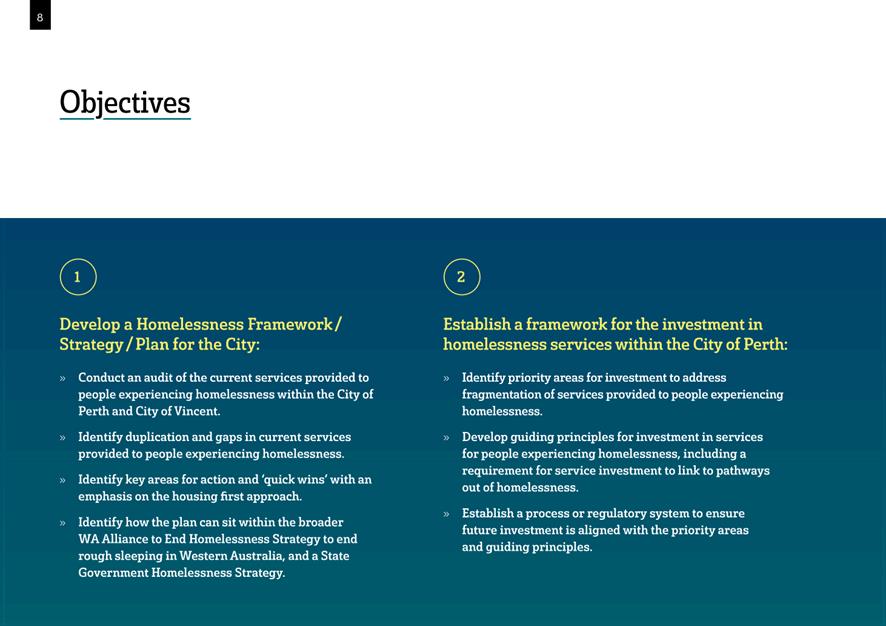









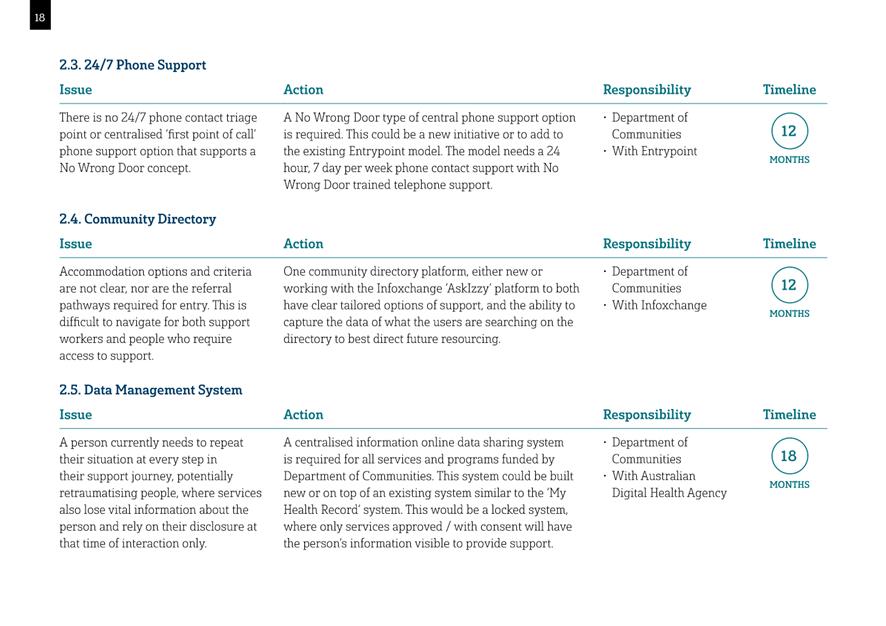

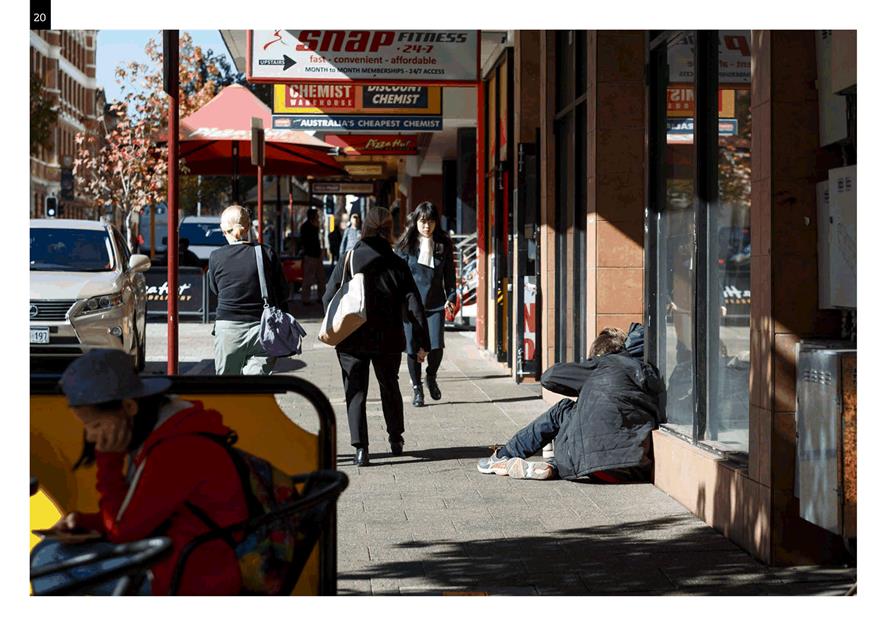

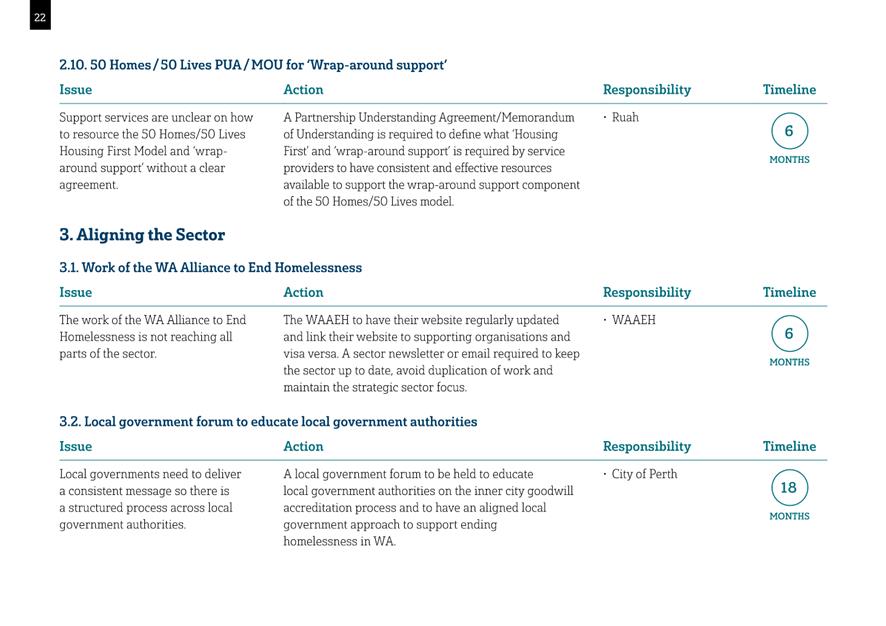

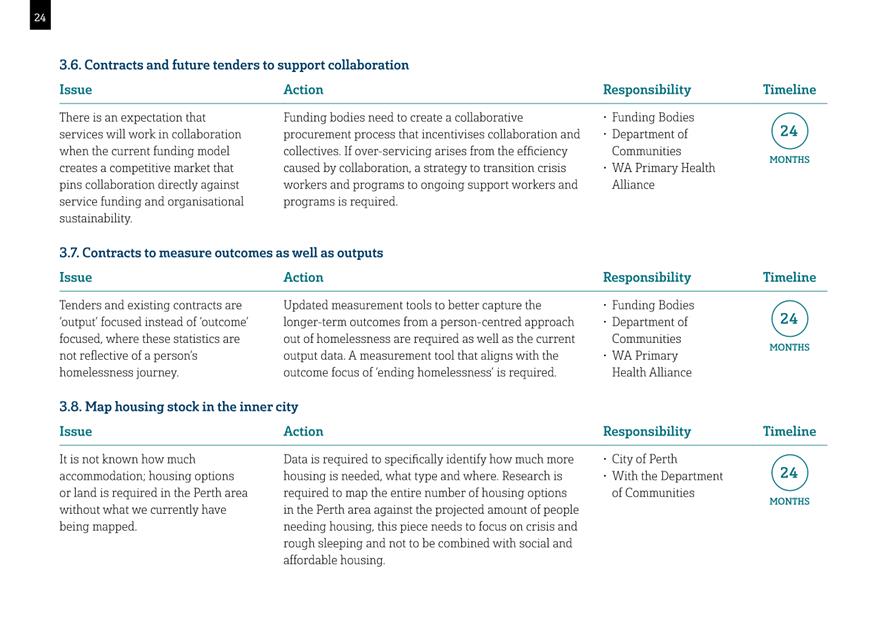

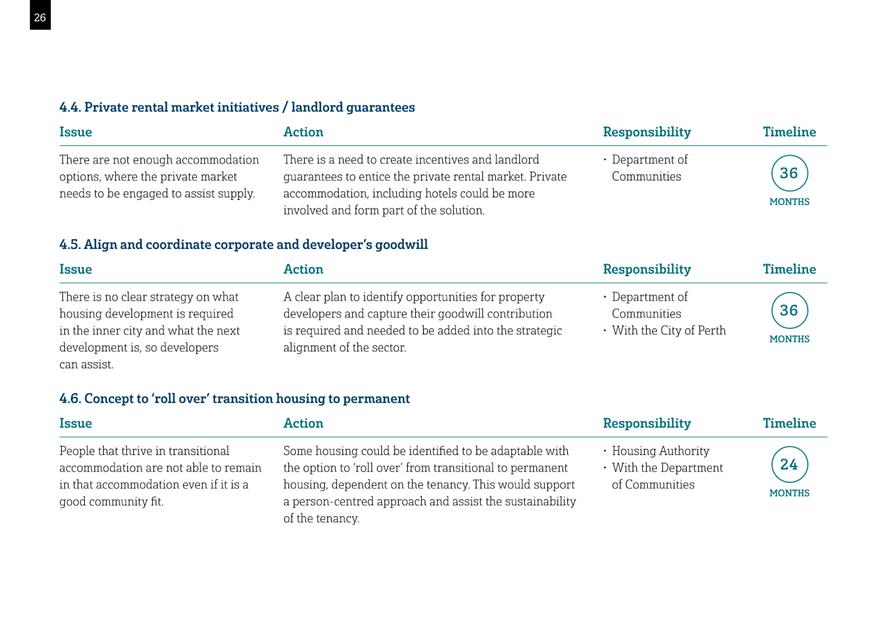

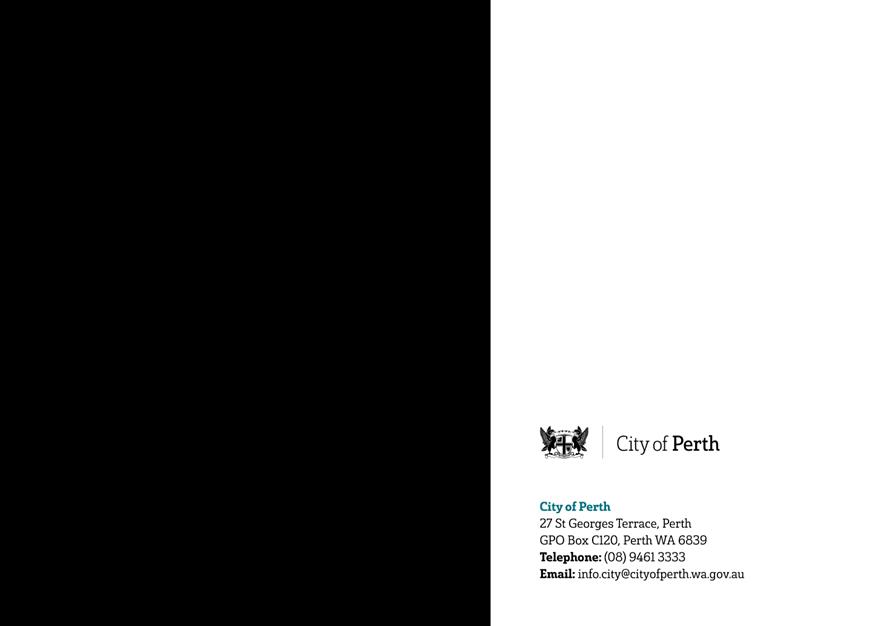
10.2 Tender RFT
IE69/2020 – Bulk Green Waste Verge Collections – Appointment of
Successful Tenderer
Attachments: 1. Evaluation
Worksheet - Confidential
|
Recommendation:
That
Council ACCEPTS the tender submitted by Steann Pty Ltd for Tender IE69/2020
for Green Waste Verge Collection.
|
Purpose of Report:
To report to Council the
outcome of Tender IE 69/2020-1 and to recommend the acceptance of a tenderer.
Background:
The City of Vincent
provides a bi-annual Green Waste Verge Collection to all residential dwellings.
The current Green Waste Contract has expired. This tender has been sought
as an initial two year contract with the option of a twelve month extension (at
the City’s sole discretion) to give surety to both the successful
tenderer and the City and to ensure collection dates can be scheduled well in
advance, allowing timely notification to residents.
Green Waste from bulk
verge collections is 100% recycled and turned into quality mulch and compost,
contributing to the City’s vision of zero waste to landfill by 2028.
Details:
The estimated value of
the contract is $310,000.00. As the total budget exceeds $250,000.00, Policy
No. 1.2.3 – Purchasing has been applied which requires an open
public tender process. Under CEO Delegation 1.19 the Executive Director
Infrastructure and Environment approved the procurement plan, which included
the following evaluation criteria.
|
Qualitative
Criteria
|
Weighting
|
|
1.
|
Relevant skills and
experience to deliver the requirements of the contract.
Respondents must, as a minimum, address the following information in
an attachment and label it “Relevant Skills and Experience”
a) Respondents
to demonstrate recent experience with Contracts of similar size and
scope with Local Government;
b) Respondents
to provide as a minimum, information of proposed personnel to be allocated to
this Contract, including:
· Their role in the performance of the Contract
· Experience of the personnel in Contracts of a similar
size and scope and relevant qualifications.
|
40%
|
|
2.
|
Demonstrated
understanding of operational and plant requirements and collection
methodology for bulk verge green waste collections; including Capacity to
deliver in accordance with the City schedules (as outlined below).
Capacity to deliver the service Oct/Nov 2020/21 and Mar/Apr
2021/22
Supply details in an
attachment labelled “Demonstrated Understanding of operational and
plant requirements and collection methodology (including capacity to deliver)”.
|
50%
|
|
3.
|
Environmental Responsibility
Respondents must, as a minimum, address the following information:
a) Provide
details of the organisations environmental policy and/or practices which
manage or reduce the impact on the environment;
b) Offer
details of any initiatives that would support the sustainability objectives
of the Principal and assist them to achieve environmental targets (i.e. how
could you assist the Principal to recycle, reuse and reduce, use of
hybrid/electric vehicles, etc.)
|
10%
|
|
TOTAL
|
100%
|
Tender Assessment
At the close of the
advertising period, three tender responses were received, of which two were
judged compliant, from the following companies:
· Steann
Pty Ltd
· W.A.
Recycling Services.
The tenders were assessed
by members of the Tender Evaluation Panel (below) and each tender was assessed
using the above Evaluation Criteria, with a scoring system being used as part
of the assessment process.
|
EVALUATION PANEL
|
|
Convenor (non-voting)
|
Executive Director
Infrastructure and Environment
|
|
Voting
|
Manager Waste and
Recycling
|
|
Voting
|
Coordinator Waste and
Recycling
|
|
Voting
|
Waste Contracts and
Operations Officer
|
|
Non-Voting
|
Procurement and
Contracts Officer
|
|
Meeting Date:
|
6 August 2020
|
Evaluation
A summary table for each
compliant Tenderer is provided below. A full outline of the Qualitative
Evaluation Criteria for each tenderer and pricing is contained within
Confidential Attachment 1.
|
Company
|
Qualitative
Score/100
|
Ranking
|
|
Steann Pty Ltd
|
88
|
1
|
|
WA Recycling Services
|
23
|
2
|
Based upon panel’s assessment
of the Qualitative Evaluation Criteria, only Steann Pty Ltd was judged as
demonstrating that it was capable of meeting the City’s requirements.
Consultation/Advertising:
The Request for Tender IE
69/2020 was advertised in the West Australian Newspaper on the 20 June 2020 and
closed on Friday 10 July, no compliant Tenders were received and as a result
the Tender was readvertised.
The request for Tender IE
69/2020-1 was re-advertised in the West Australian on the 22 July 2020 and on
both the City’s website and Tenderlink portal between 22 July and 5
August.
Legal/Policy:
The RFT was prepared and
advertised in accordance with the City’s purchasing protocols: Policy
No. 1.2.3 Purchasing.
Risk Management Implications:
Low If
a tender was not accepted then the City would not be able to provide the
service.
Strategic Implications:
This is in keeping with
the City’s Strategic Community Plan 2018-2028:
Enhanced
Environment
We have improved resource efficiency and waste management.
The City’s Waste Strategy
2018-2023 has a vision of zero waste to landfill through maximising recovery
and avoidance and cost effective, sustainable and contemporary waste services.
Innovative
and Accountable
We are open and accountable to an engaged community.
SUSTAINABILITY IMPLICATIONS:
This is in keeping with
the following key sustainability outcomes of the City’s Sustainable
Environment Strategy 2019-2024.
The City’s
Sustainable Environment Strategy 2019-2024 has identical aims to the
City’s Waste Strategy and sets the target of zero waste to landfill by
2028.
Financial/Budget Implications:
Costs associated with
bulk verge green waste collections are budgeted annually with the annual
expenditure on this collection contract was estimated to be $103,000. The
tender pricing offered is in line with the service budget.
Comments:
The submission from
Steann Pty Ltd complies with all the tender requirements. The submission was
well presented and included all specified information. The evaluation panel
deemed the response to be compliant with all evaluation criteria, demonstrating
the capability, capacity and experience relevant to provide the service.
The evaluation panel
recommends that the tender submitted by Steann PTY Ltd for Tender IE69/2020 for
Green Waste Verge Collection is accepted as it represents the best overall
value for money to the City.
10.3 Waste
Strategy Project 8 – Commercial Waste Collections (Update) - WITHDRAWN BY
ADMINISTRATION
This report has been withdrawn by Administration.
10.4 Department
of Transport Long Term Cycle Network Consultation Responses
Attachments: 1. Updated
draft Long Term Cycle Network ⇩ 
2. Survey Overview
Department of Transport Long Term Cycle Network Consultation ⇩ 
3. Detailed Survey
Responses Department of Transport Long Term Cycle Network ⇩ 
4. Email Response 1
& 2 Department of Transport draft Long Term Cycle Network Consultation ⇩ 
5. Administration
Response to Department of Transport Long Term Cycle Network Consultation
Comments ⇩ 
6. Long Term Cycle
Network Community Forum Discussion Points Maps ⇩ 
7. Community Forum
Summary Department of Transport Draft Long Term Cycle Network ⇩ 
|
Recommendation:
That
Council:
1. NOTES
the results of the Department of Transport Draft Long Term Cycle Network
Consultation as shown in Attachments 2 and 3;
2. ENDORSES
the updated Long Term Cycle Network (LTCN) as shown in Attachment 1 provided
by the Department of Transport incorporating the key proposed changes from
the community consultation with City of Vincent residents;
3. NOTES
that the LTCN is aspirational in nature, subject to change and there is no
obligation on the City to construct all the routes contained in the plan;
4. CONFIRMS
support for Local and State Government agencies to work together in
delivering a LTCN including a priority of a Safe Active Street project for
Norfolk Street which the Department of Transport have offered the City 50:50
matched funding for feasibility and preliminary concept development in
2020-2021;
5. NOTES
that there will be further consultation on the LTCN as part of the
City’s Bike Network Plan review that is scheduled to take place in
2021/22; and
6. INFORMS
the Department of Transport of the City’s decision.
|
Purpose of Report:
To inform Council of the
results of the Department of Transport Draft Long Term Cycle Network
consultation and community forum. To present amended draft LTCN (Attachment
1).
Background:
In 2016 as part of the
State Governments long term transport strategy (Transport @3.5M – link
here) the Transport Portfolio released the Cycling Network Plan.
The aspirational bicycle
network identified within this Plan was based on a robust methodology of
connecting all key activity centres. However, this Plan was developed by DoT
in-house with little consultation with local governments due to the time
constraints needed to deliver the project.
In 2017-18 DoT were
successful in receiving funding across a two year period to deliver the LTCN
project – to go through detailed engagement with 33 local governments
across Perth and Peel to agree a long term aspirational bicycle network for the
region that supports and addresses local and regional bicycle connections. To
date 30 of 33 LGAs have endorsed the draft LTCN.
The DoT will be updating
the guidance for local governments in relation to developing local bicycle
plans. It is expected that the new guidance will require local governments to
review the endorsed LTCN as part of the process of developing/updating their
bicycle plan. The City of Vincent Bicycle Network Plan was written in 2013 and
budget has been allocated to develop a new plan in 2021.
As part of the process to
develop this new plan the City will conduct public consultation to enable the
community to assist in shaping the Plan and will seek community comment on the
aspirational LTCN within this process. As part of this consultation (and any
future bicycle plans) the City and DoT can work together to modify the endorsed
LTCN:
· New
routes can be added to reflect land use changes/new development;
· Existing
routes can be realigned to parallel corridors if details are known which
excludes a route from being considered in the future to accommodate bicycle
infrastructure (engineering constraints/land tenure issues/etc.).
Details:
The DoT is working with
33 Local Government authorities in the Perth and Peel regions to agree on
bicycle routes that link parks, schools, community facilities and transport
services, to make bike riding a convenient and viable option.
The aim of the Long Term
Cycle Network project is to develop an aspirational blueprint to ensure State
and Local Governments work together towards the delivery of one continuous
bicycle network that crosses City boundaries, providing additional transport
options, recreational opportunities and support for tourism and commercial
activity – creating a bicycle network catering for all ages and
abilities.
The vision is for a
network of safe and attractive bicycle routes:
· To
provide continuous routes along major corridors
· To
establish links between strategic, secondary, district, specialised activity
centres and public transport services
· To
provide connections to schools, education sites and local centres.
DoT is now seeking
Council endorsement of the agreed LTCN across all 33 Local Governments,
including City of Vincent, and moving forward the agreed long term network will
guide funding allocated through the WA Bicycle Network Grants Program
administered by DoT. Council endorsement is considered necessary for the DoT to
demonstrate region wide agreement of the LTCN – which in particular may
assist in any Federal funding discussions/applications.
On 16 June 2020 Council
voted to support in-principle the Long Term Cycle Network as proposed by the
Department of Transport subject to consultation with the community on the LTCN
taking place. This consultation was hosted on Imagine
Vincent, opening on 29 June 2020 and closing on 21 July 21 2020. The
consultation was promoted through the City’s social media channels as
well as being advertised in local newspapers.
Overall, respondents were
widely supportive of the plan with 85.7% answering that they strongly support
or somewhat support the proposed LTCN. Results of the survey can be read in Attachment
2 and full comments in Attachment 3. Two respondents chose to email
responses and their submissions can be read in Attachment 4. The
administration’s response to the comments received can be read in Attachment
5. Administration and DoT considered these responses giving particular
focus to issues that were raised by multiple respondents. The results of this
discussion are summarised below:
· Woodstock
St to Ellesmere St - Relocate route from Woodstock to Ellesmere and connect to
Gill Street via a short section of London St. Final route around Les Lilleyman
Reserve to be discussed at forum.
· Hunter
St and Lawler St - Add a local route on Hunter St between Lawler and Redfern as
a local route. Do not include Lawler Street due to proximity to Walcott St. In the
long term Walcott Street is the preferred route.
· Carr
Pl to Carr St Link - An underpass/overpass to cross Loftus Street would be
incredibly difficult given the specific topography and cost. In light of the
aspirational nature of the plan it is feasible to include despite this.
Inclusion to be discussed at forum.
· Claverton
St and Emmerson St - Route cannot be included as a crossing of Charles Street
at this location is not supported by MRWA who manage Charles St.
· Wetlands
Heritage Trail – The trail will not be included. DoT have not
supported the inclusion of heritage trails across the all 33 LGAs. The City has
not advocated for a significant upgrade to this route in relative priority to
the other elements of the bike network. This trail will be included in any maps
created by the City and will form part of a Wayfinding Strategy.
· Hyde
Park - Designate route around Hyde Park to the west a secondary route. Remove
the sections of route on Norfolk St and Lake St that led directly to Hyde Park.
The DoT has offered the City matched funding (50:50) of $25,000 to undertake
the feasibility and preliminary concept development for a Norfolk Street Safe
Active Street (SAS) project. This has been identified as one of the
City’s most popular cycling routes and is identified in the City’s
current Bike Plan to be developed as a cycling route. This route would connect
Edith Cowan University in Mount Lawley with the CBD.
A community forum was
subsequently held on 3 August. Representatives of the Administration and the
Department of Transport were present and the forum was facilitated by an
independent consultant. Councillors Fotakis and Gontaszewski also attended. Of
the nine community members that confirmed their interest in participating
– only four attended.
The DoT provided
attendees with a short presentation on the background to the plan and context
around their decision making process. The discussion then focused on the areas
that received two or more comments during the consultation (bullet pointed
above). Maps for each of the discussion points can be found at Attachment 6.
A summary of the discussion has been prepared by the independent consultant and
can be read in Attachment 7.
The community members
were supportive of the changes that had been made as a result of the
consultation including the proposed alignment of the Ellesmere route and the
addition of a potential underground pass link between Carr Pl and Carr St. We
note that an underground pass under Loftus Street would be potentially cost
prohibitive with serious engineering and design challenges.
Following discussion at
the forum the Administration has also requested the route through Forrest Park
be moved to Curtis St rather than running through the eastern side of the park.
An updated Long Term Cycle Network has been provided by the Department of
Transport incorporating the proposed changes above (see Attachment 1).
Consultation/Advertising:
The Department of
Transport draft Long Term Cycle Network public consultation was launched 29
June for 21 days. This consultation was promoted through social media and
newspaper adverts. During this time participants were able to register their
interest in attending a community forum to discuss the results of the
consultation, with 15 residents indicating they would like to take part.
This forum was held at
the City’s administration building on 3 August. Representatives of the
Administration, Council and DoT met with community members to discuss the LTCN
and the results of the consultation.
Legal/Policy:
Nil.
Risk Management Implications:
Low: At this time Council is only being asked
endorse the aspirational Long Term Cycle Network as proposed by the Department
of Transport.
Strategic Implications:
This is in keeping with
the City’s Strategic Community Plan 2018-2028:
Accessible City
Our pedestrian and cyclist networks are well designed,
connected, accessible and encourage increased use.
We have better integrated all modes of transport and
increased services through the City.
Connected
Community
We are an inclusive, accessible and equitable City for all.
SUSTAINABILITY IMPLICATIONS:
This is in keeping with
the following key sustainability outcomes of the City’s Sustainable
Environment Strategy 2019-2024.
Sustainable Transport
Financial/Budget Implications:
DoT advised that LGAs
that do not have an endorsed LTCN are not eligible for funding through the WA
Bicycle Network Grant Program. The City of Vincent’s endorsement period
was extended to allow community consultation.
Projects approved with
Department of Transport grant funding for the 2020/21 financial year are:
· Norfolk
Street Safe Active Street Project feasibility and design.
· Scarborough
Beach Road Glendalough Station Link feasibility and design.
The City has also
submitted expressions of interest for the 2021/22 financial year’s round
of grants, which have been accepted pending the Council decision. These
applications are for:
· Review
of the City’s Bicycle Network Plan.
· Summers
Street and Claisebrook Road Bicycle Path.
Comments:
The secondary route
through Hyde Park has been removed and an alternative to the west has been
provided to encourage cyclists not to cycle through the park in line with the
Council resolution from 16 June Council Meeting. Several other changes have
been implemented as a result of community feedback.
This LTCN is a living
document which can be updated as required. The City will be carrying out
comprehensive public consultation as part of the development of a new Bike Plan
in 2021/22 and will further review the LTCN at this time.
Ordinary Council Meeting Agenda 18
August 2020

Ordinary Council Meeting Agenda 18
August 2020
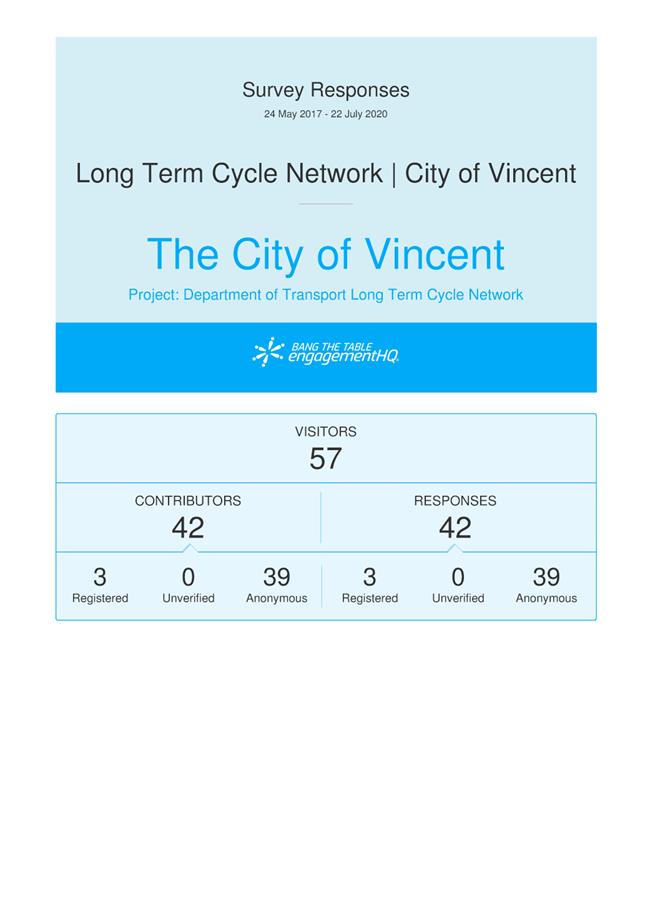

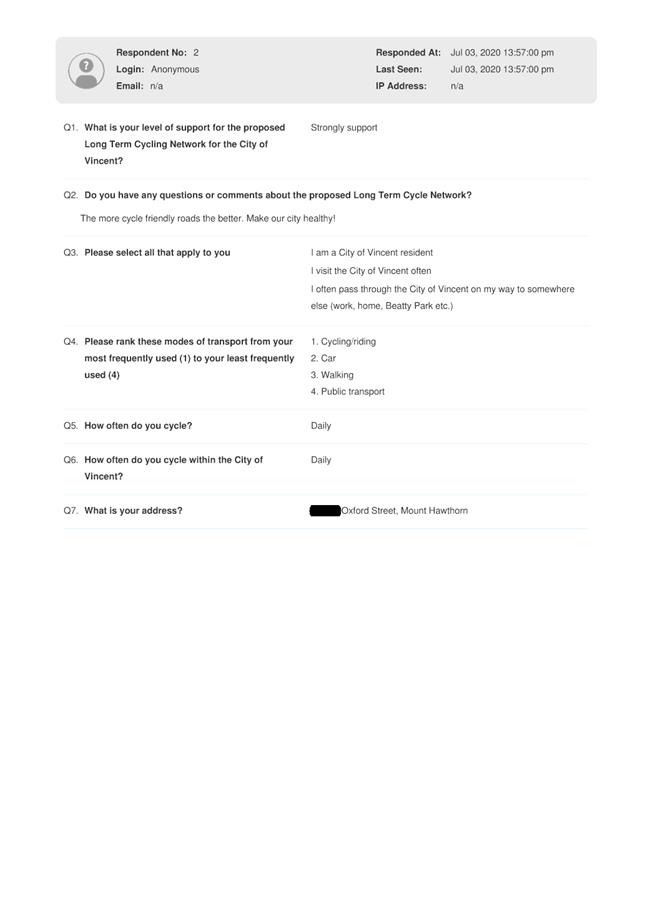

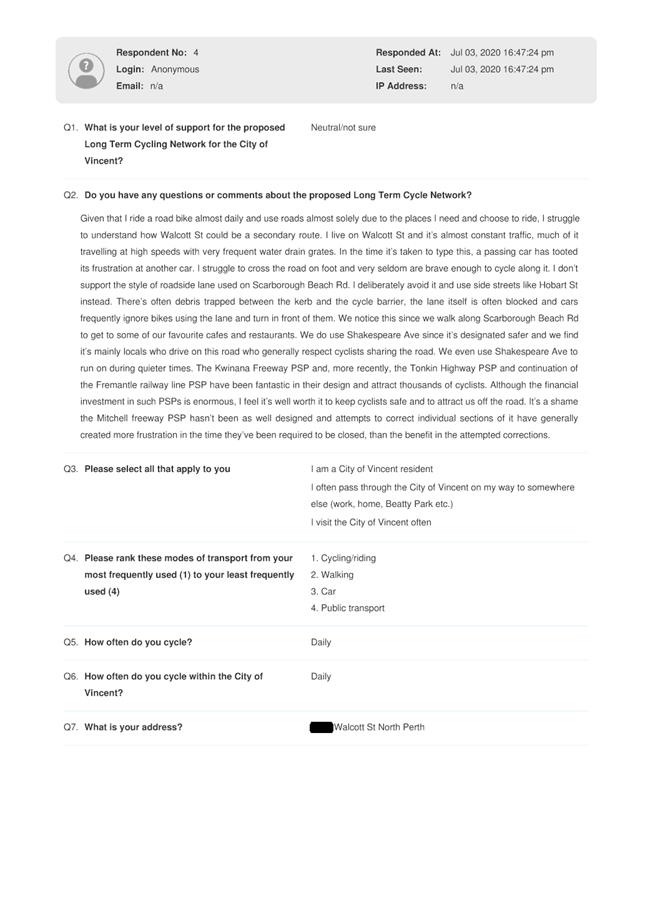
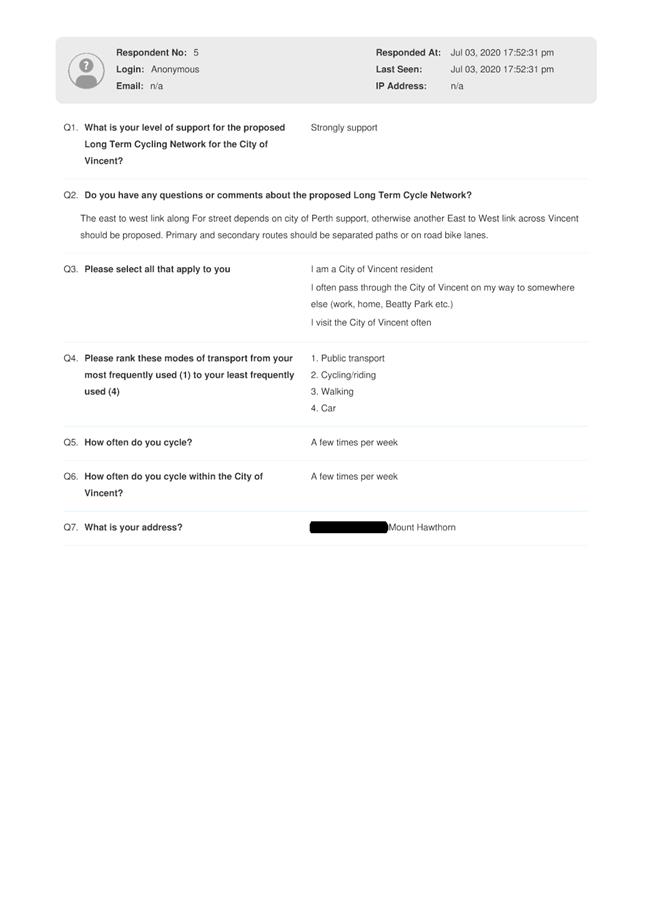


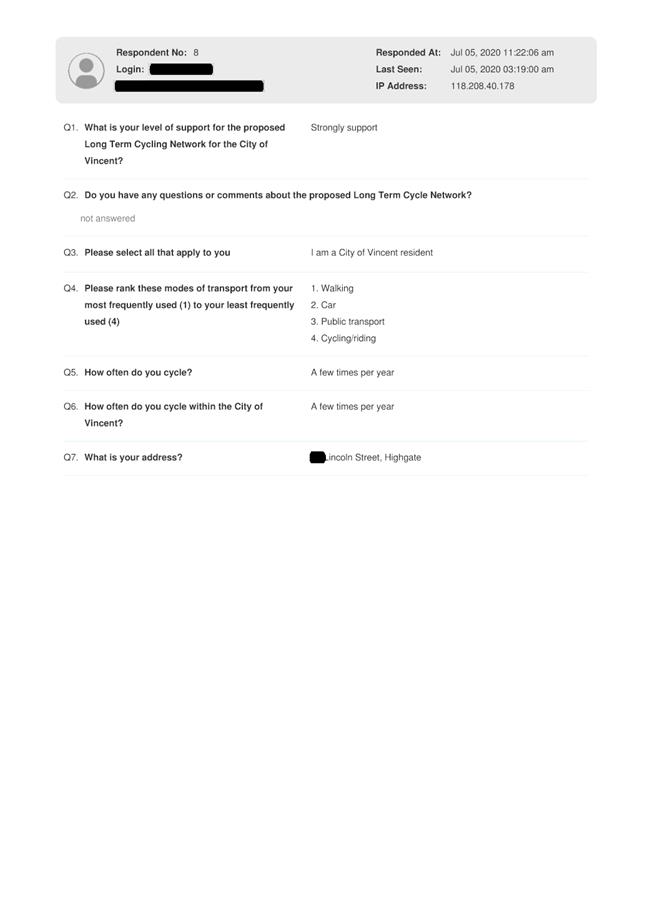
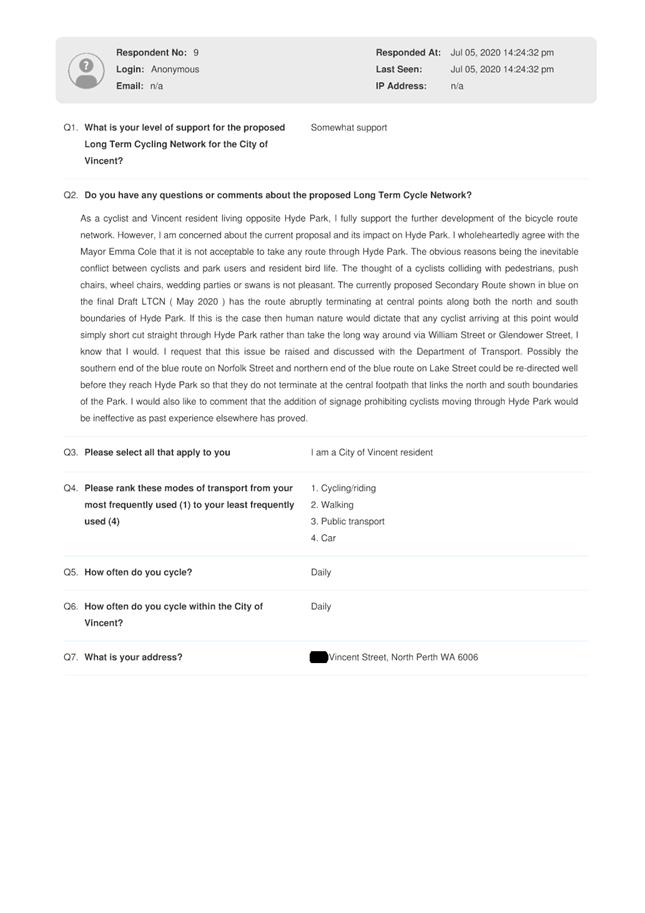
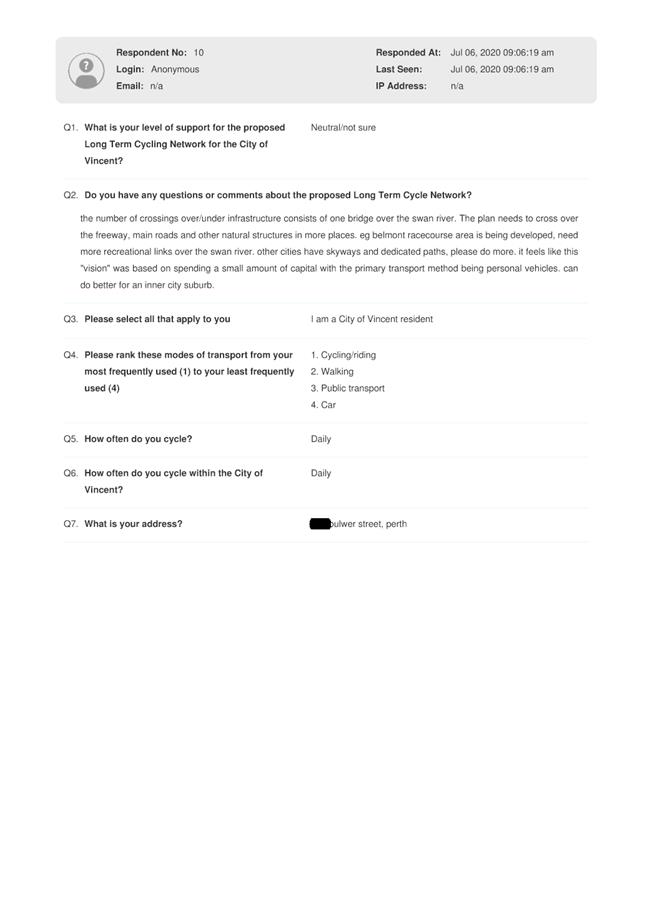

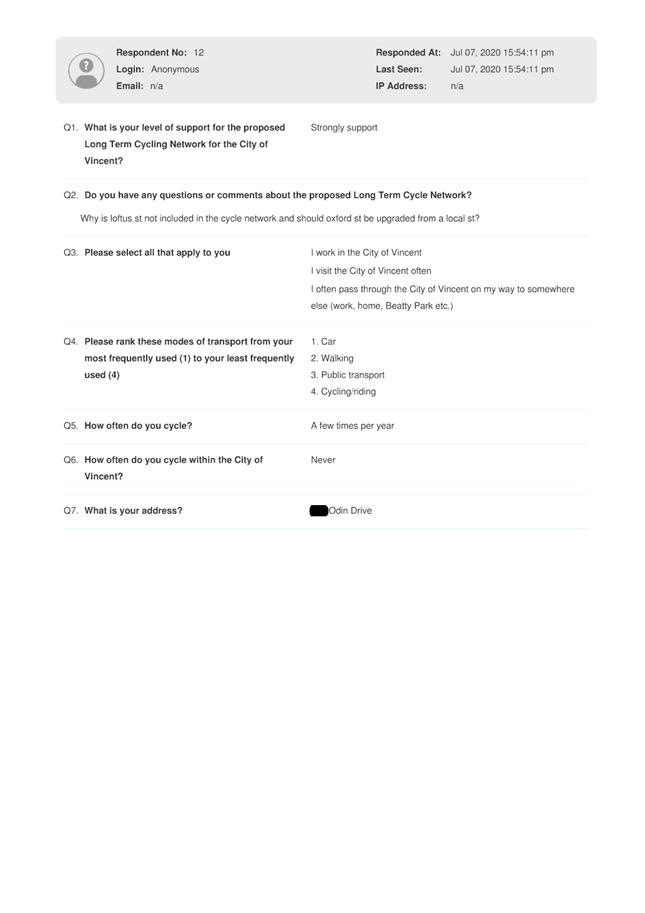
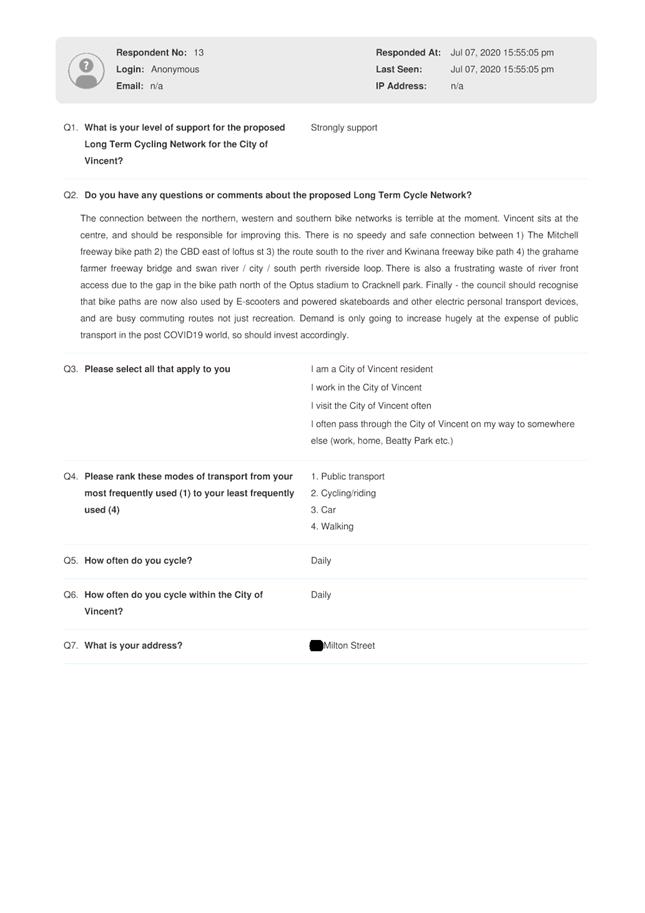
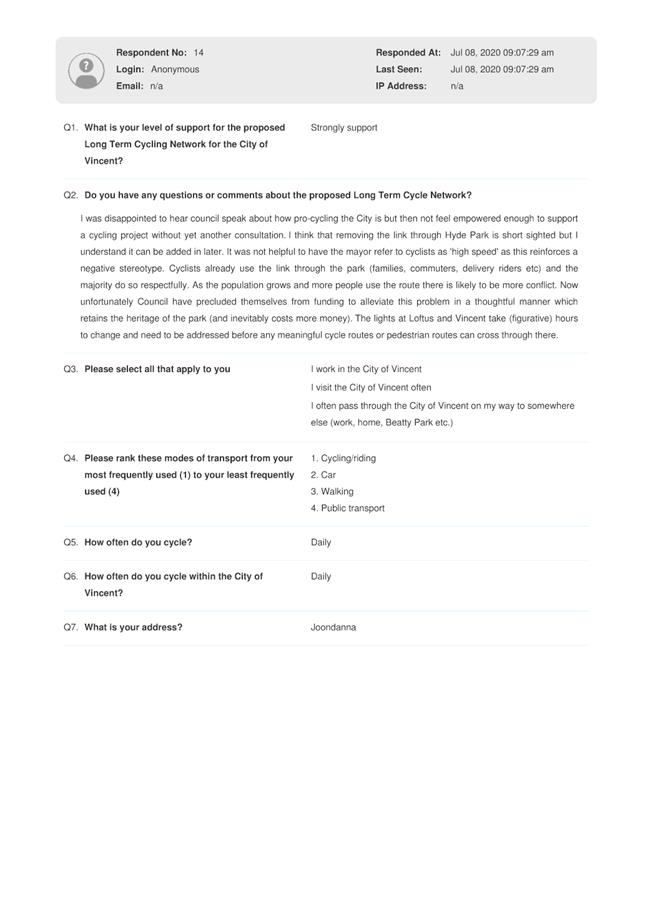
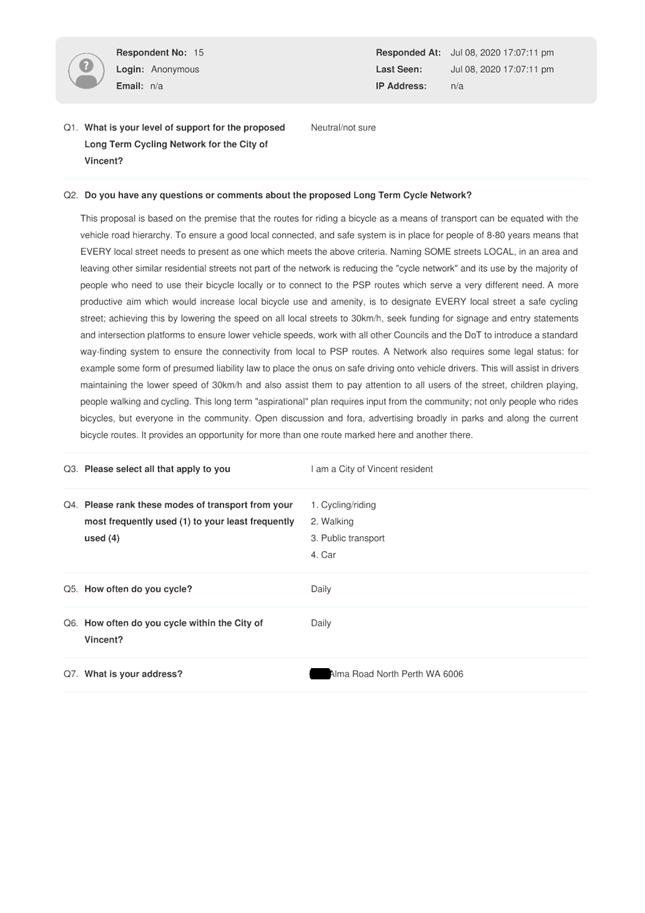
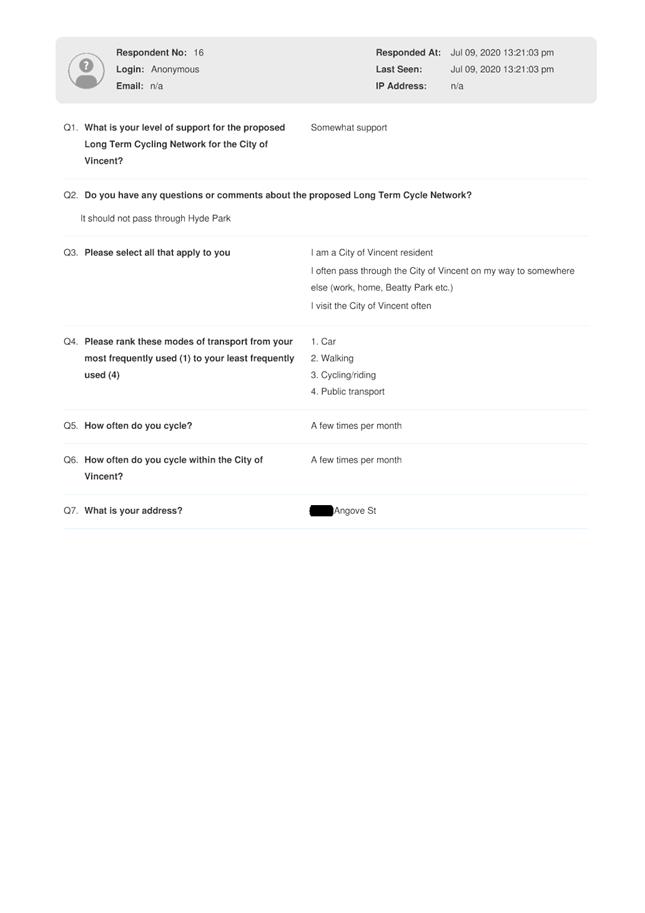
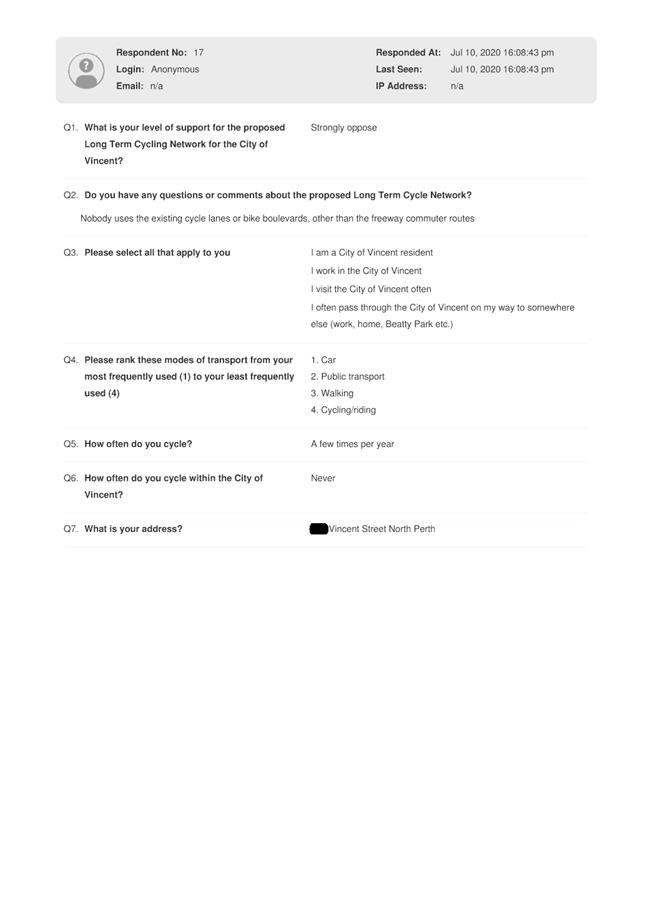
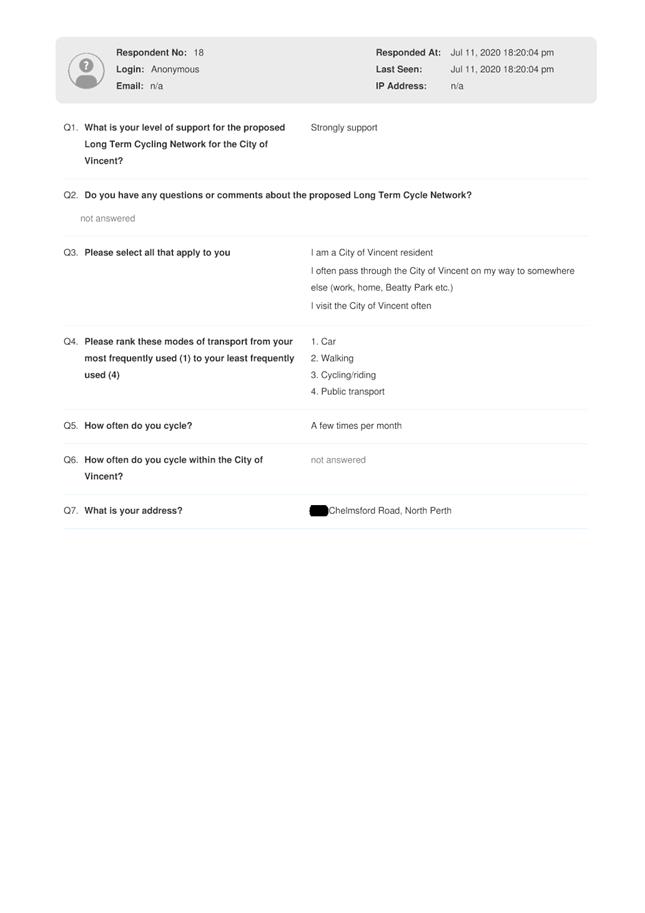
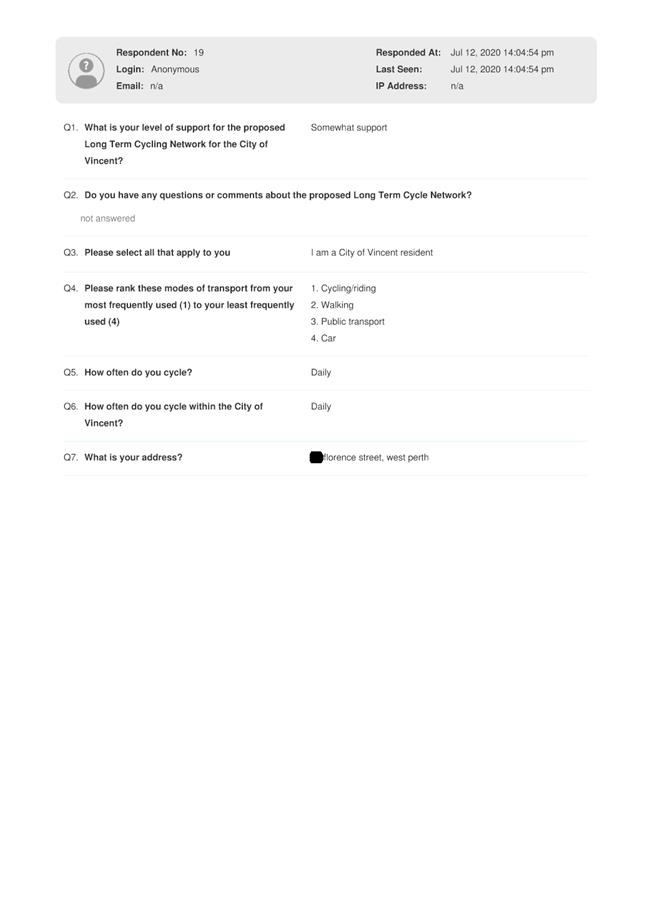
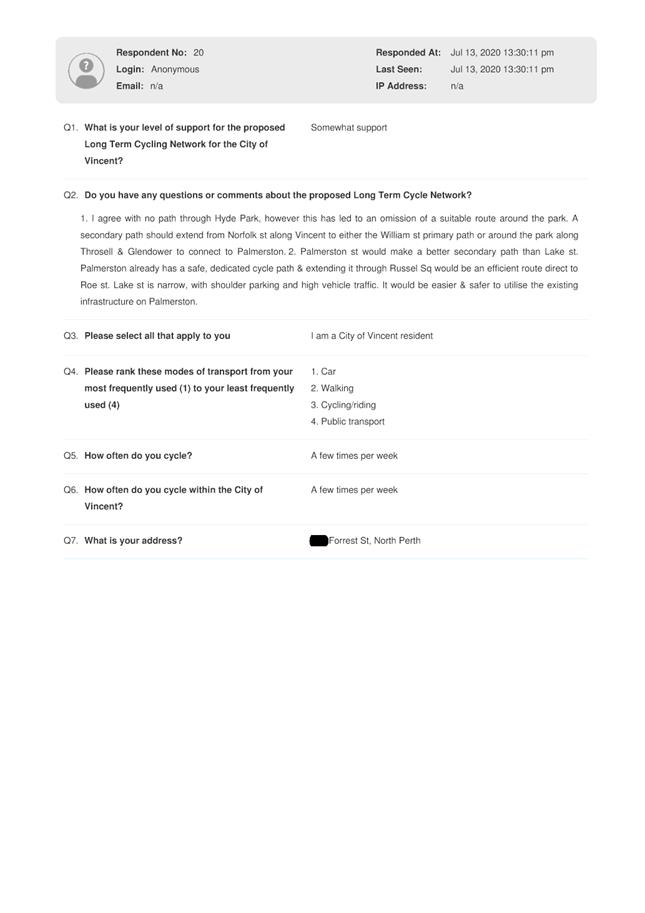
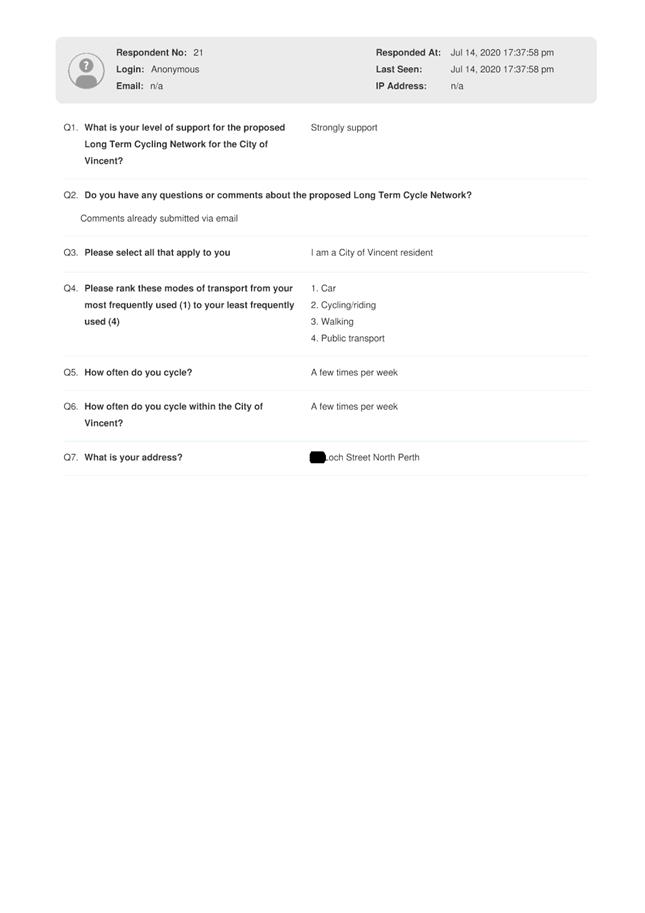

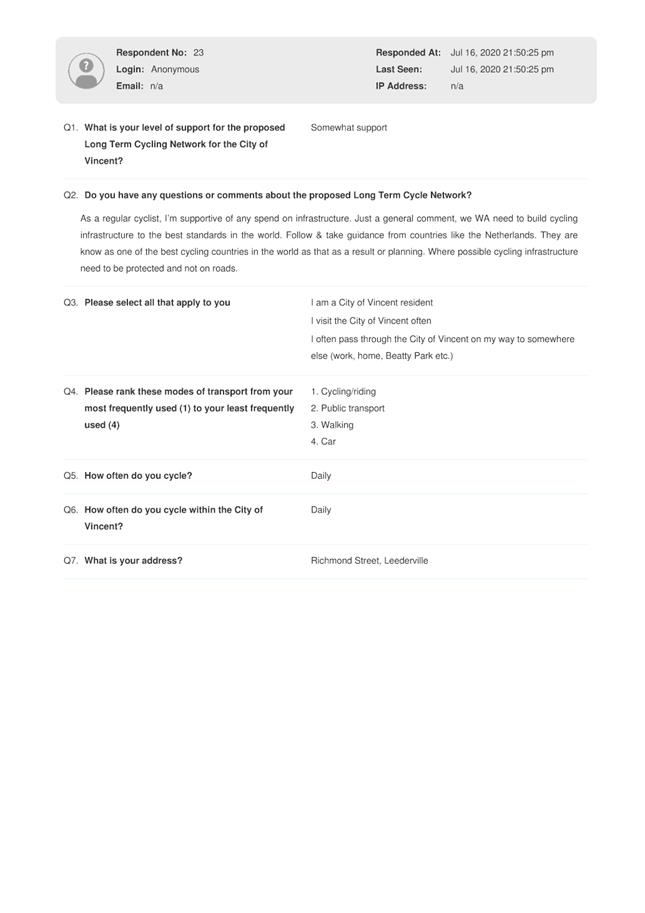
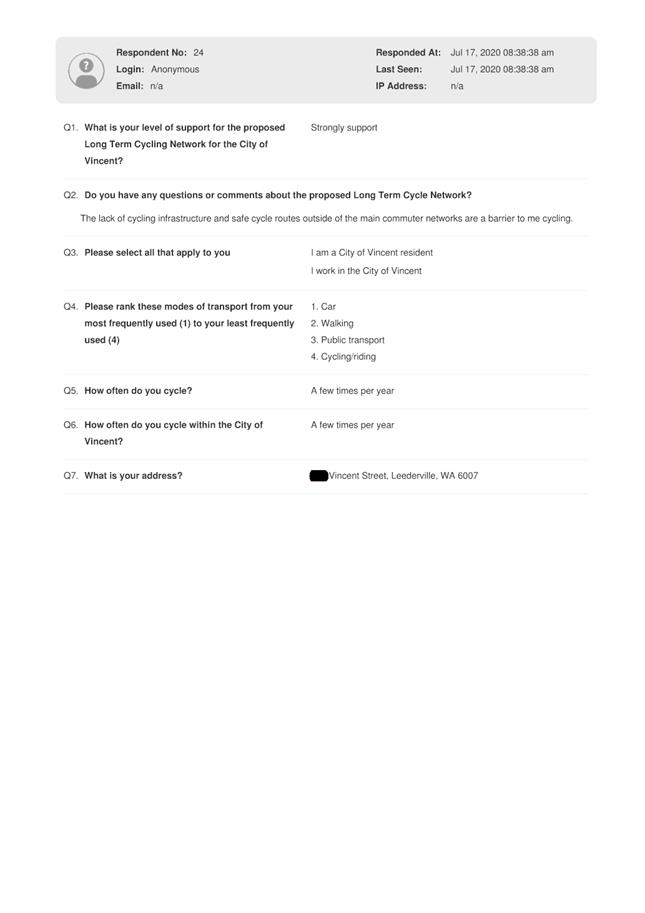
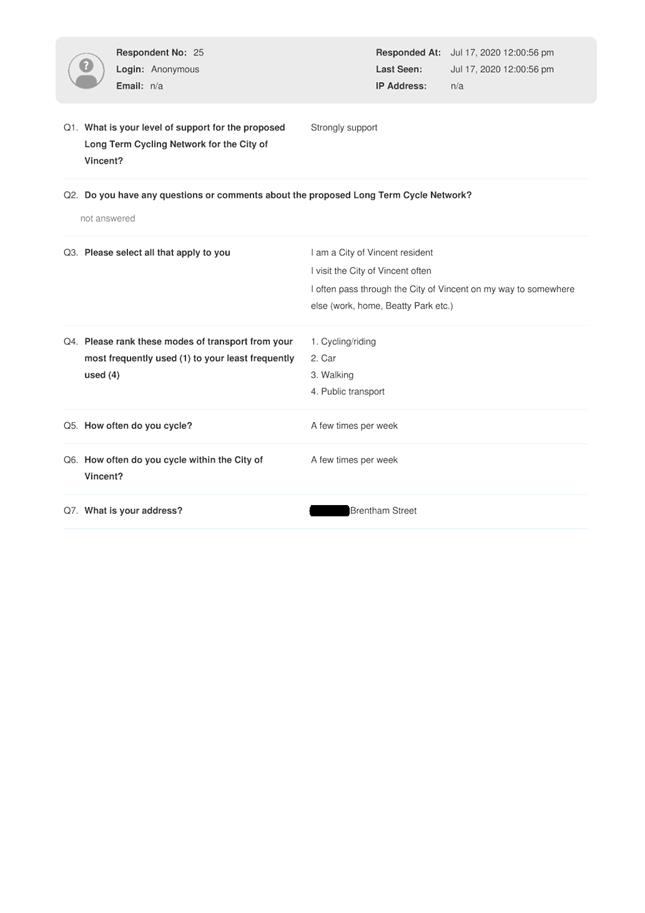
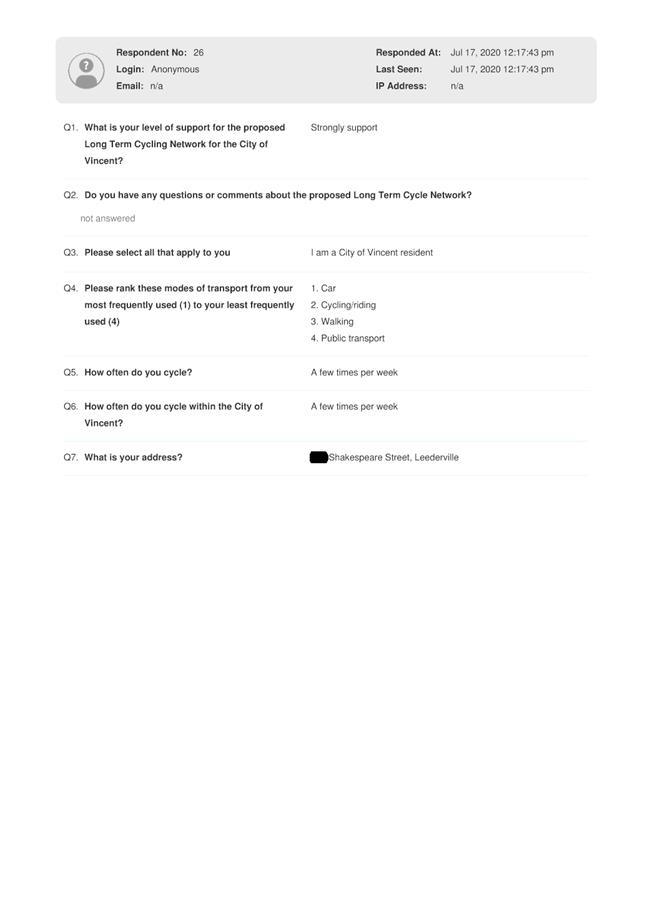
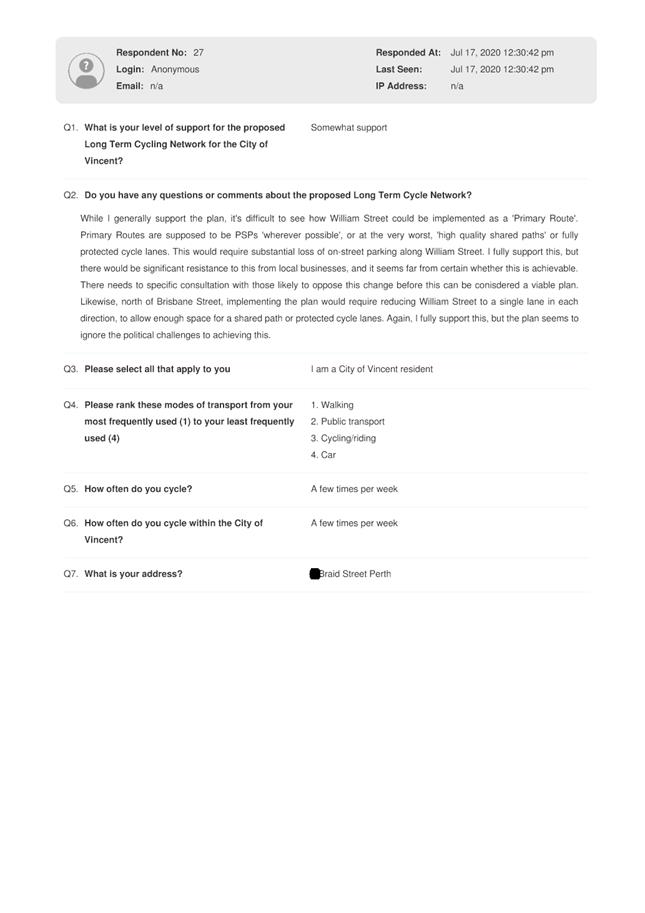
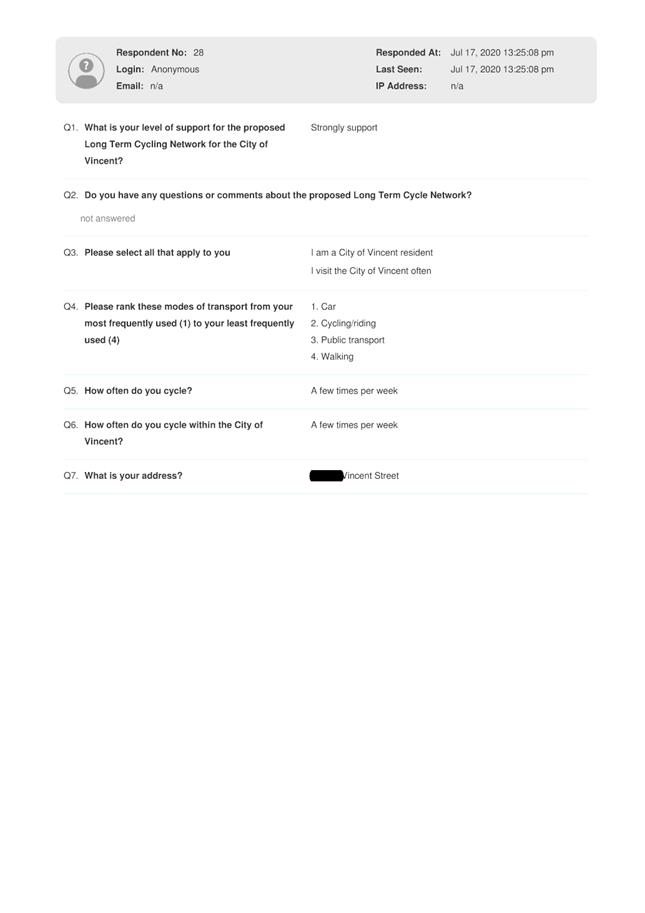
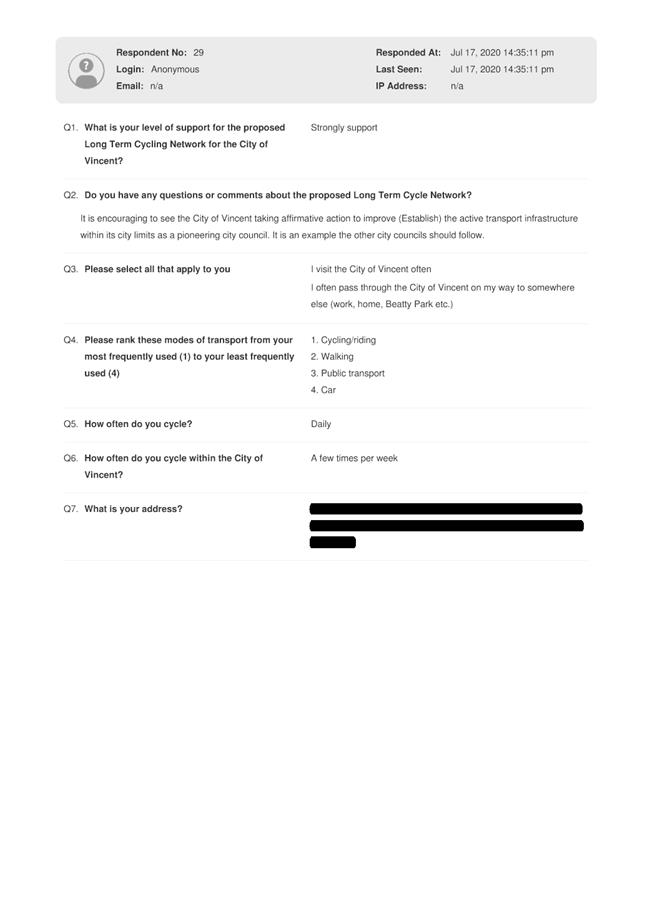
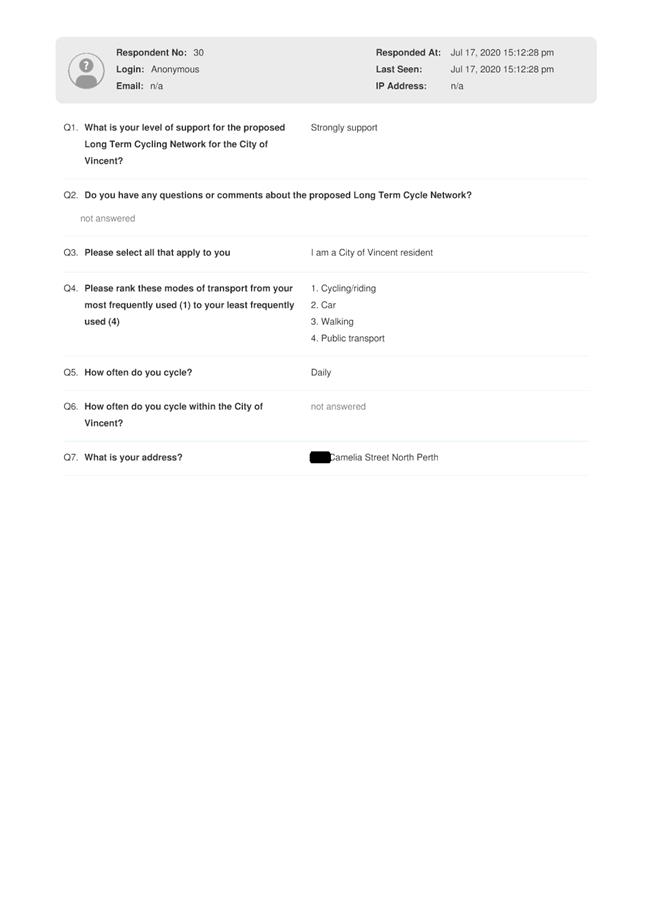
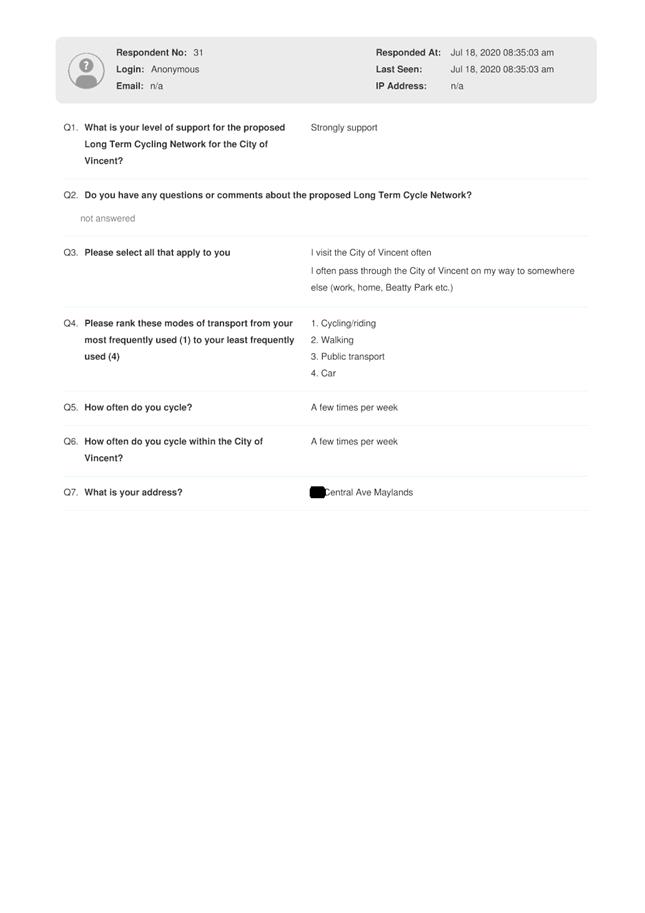
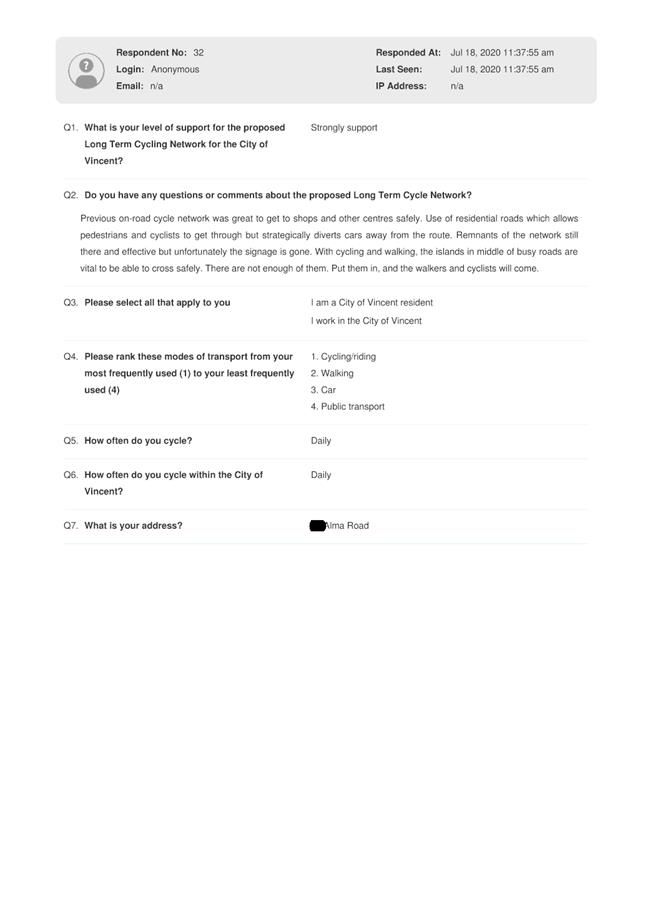
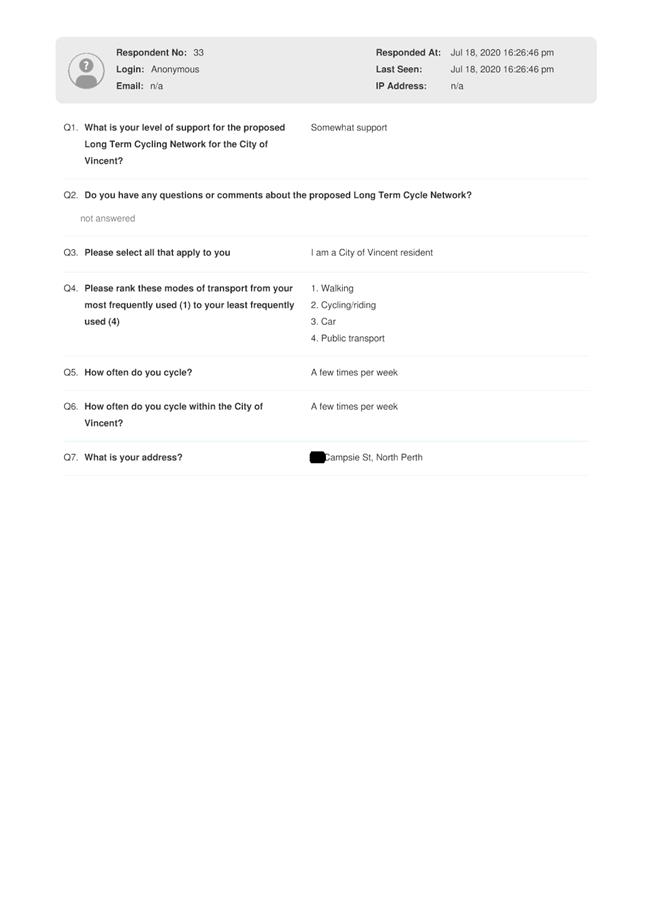
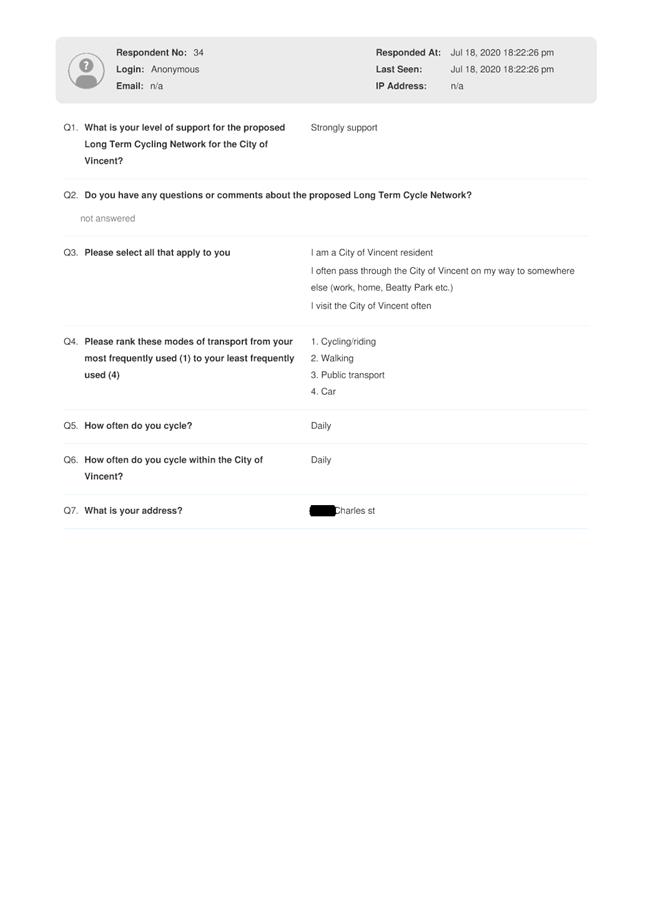
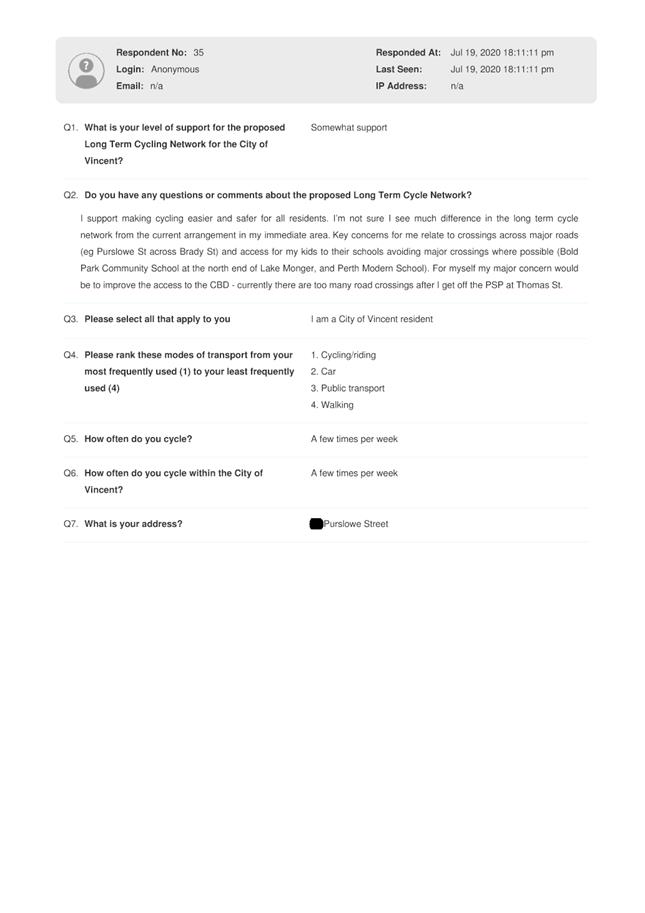
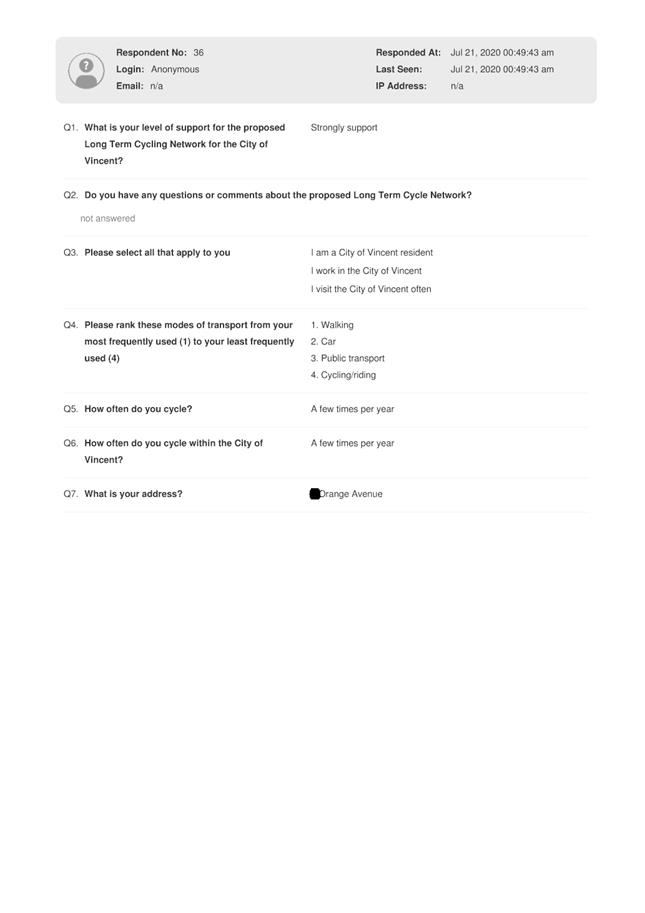
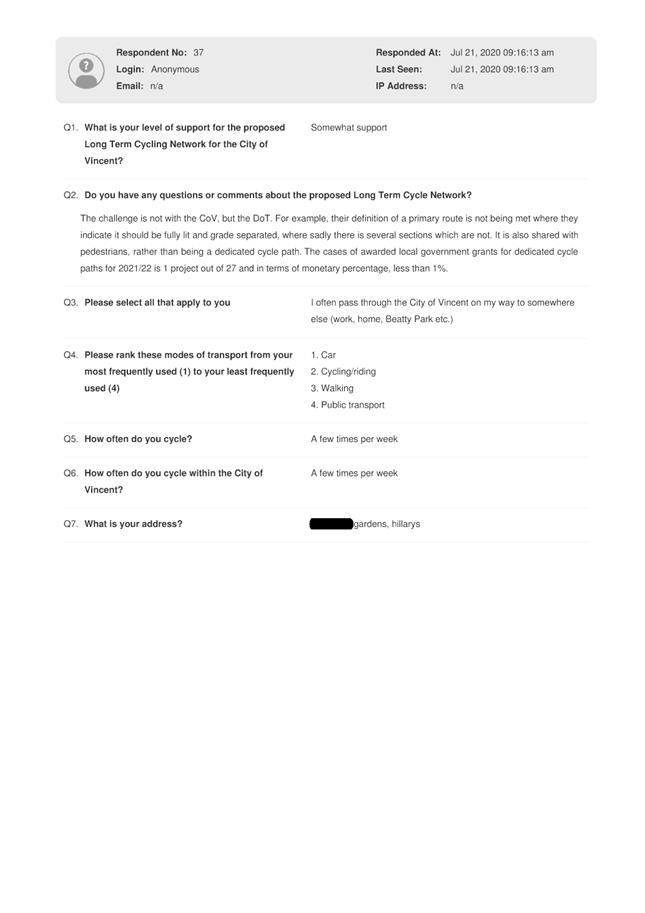

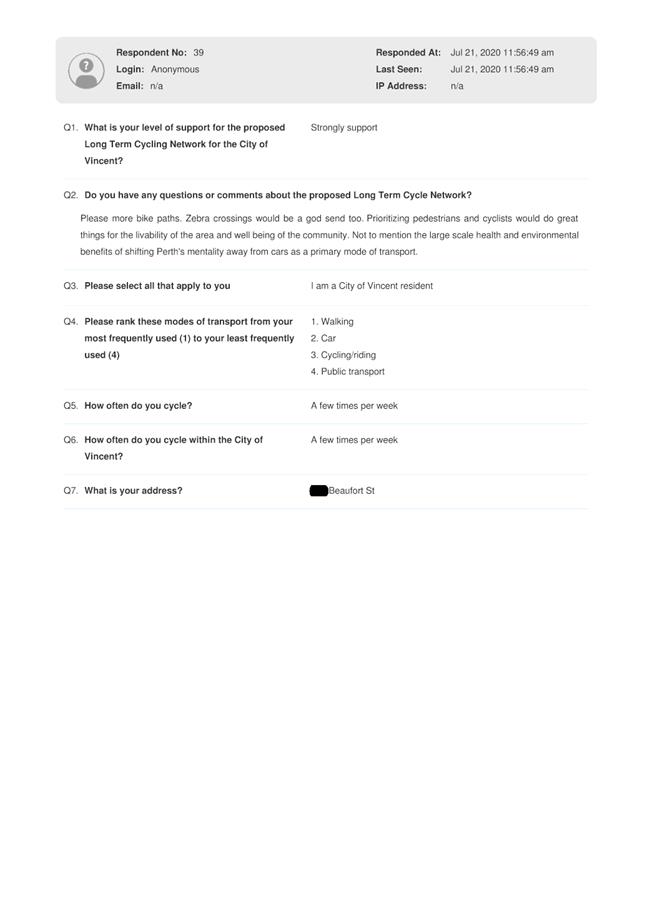
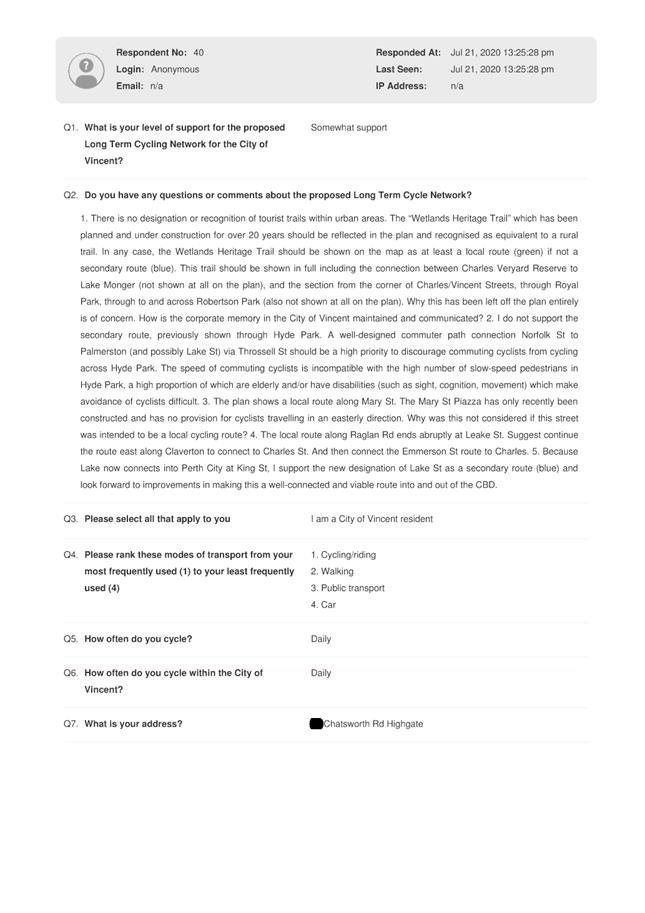

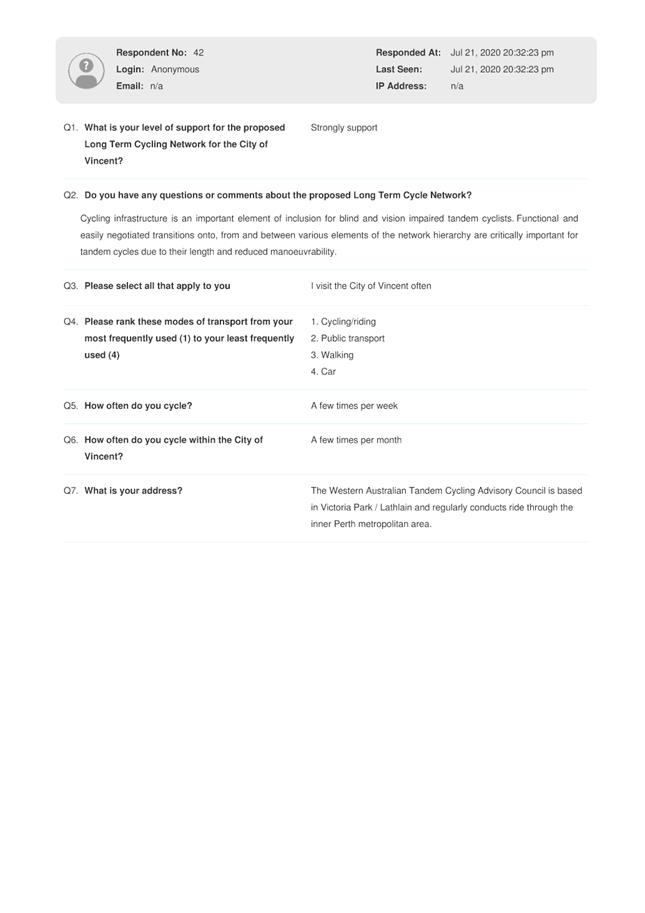

Ordinary
Council Meeting Agenda 18
August 2020
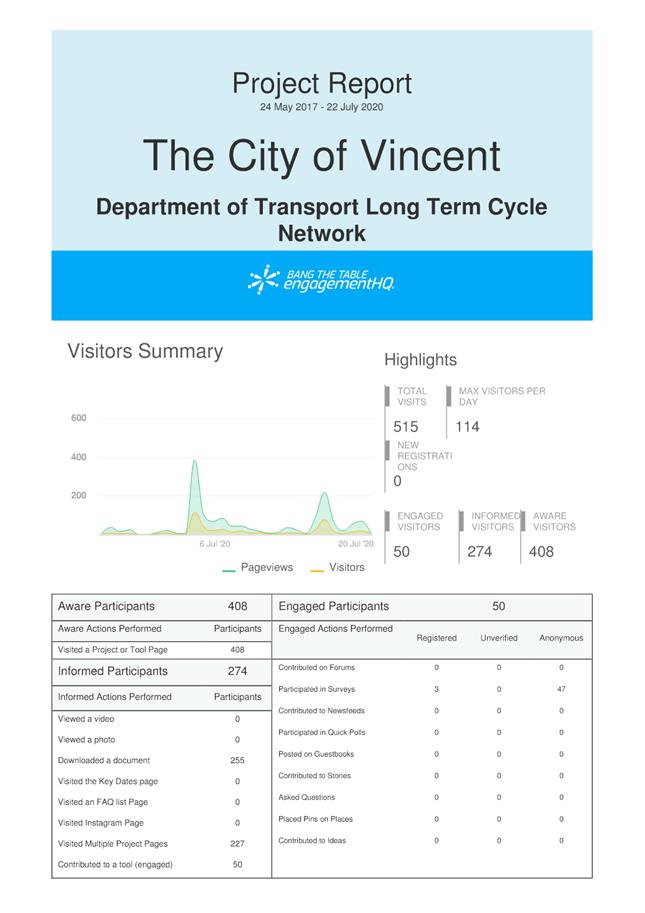
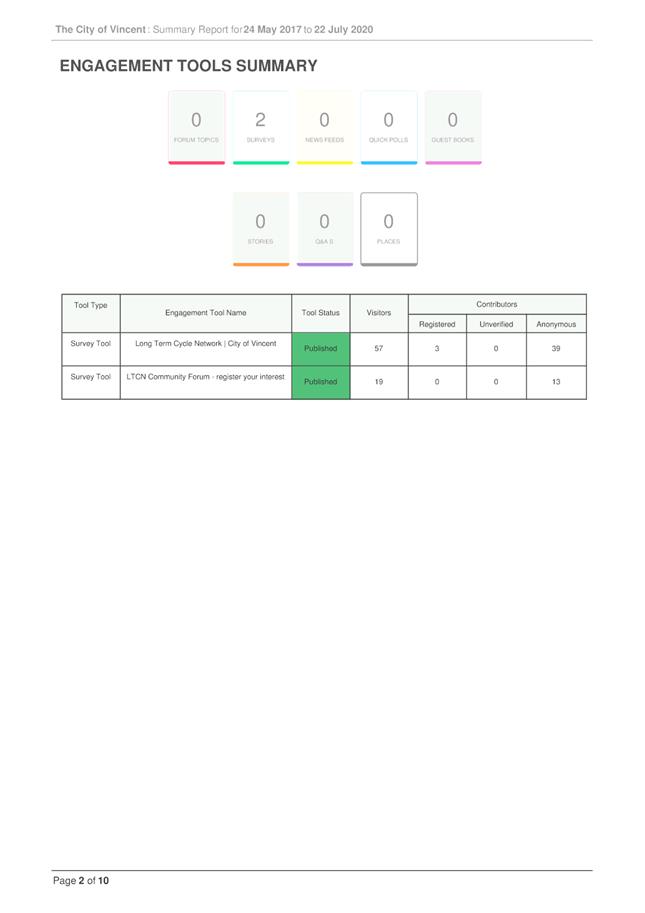
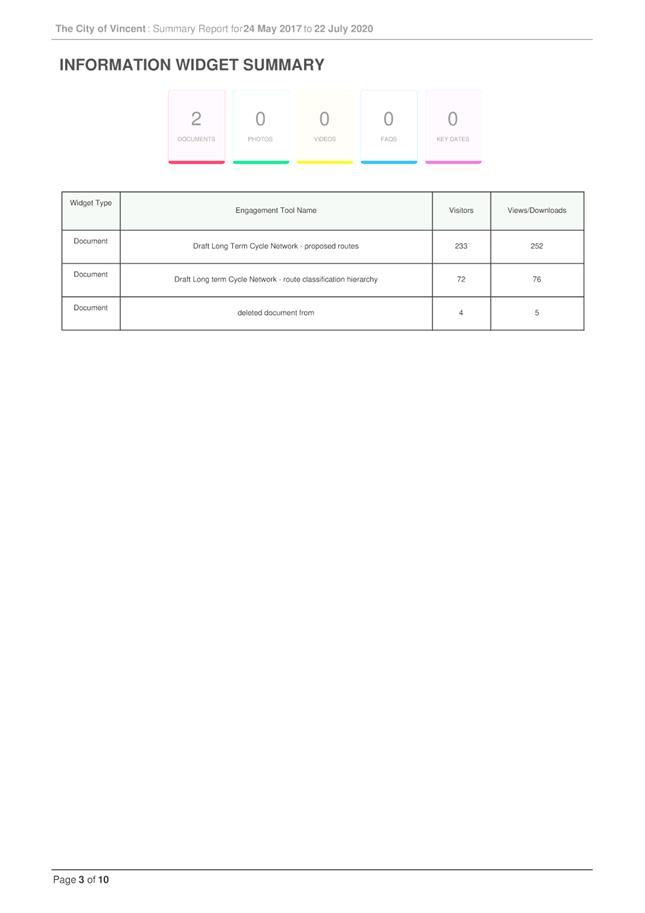
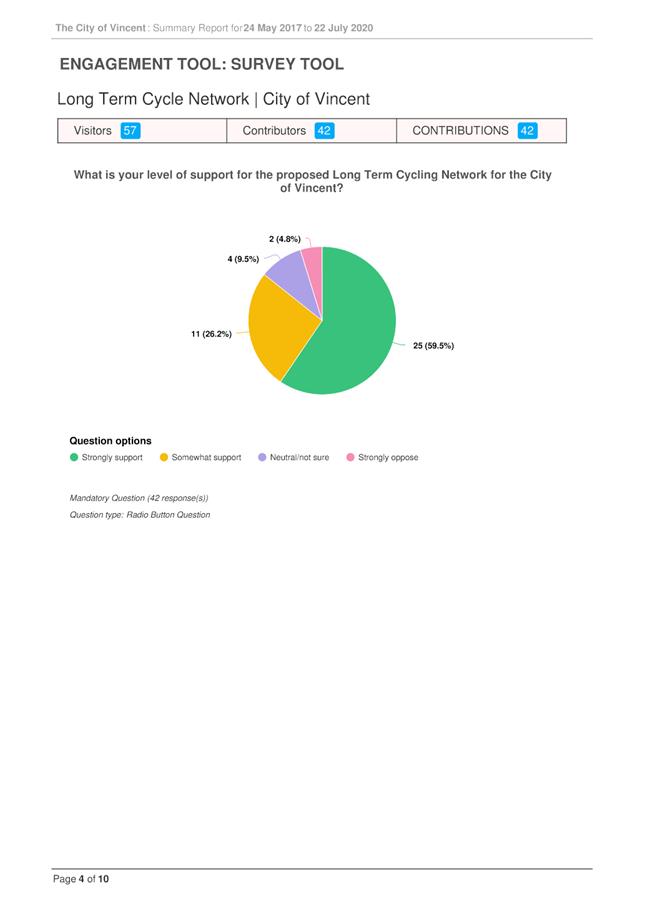
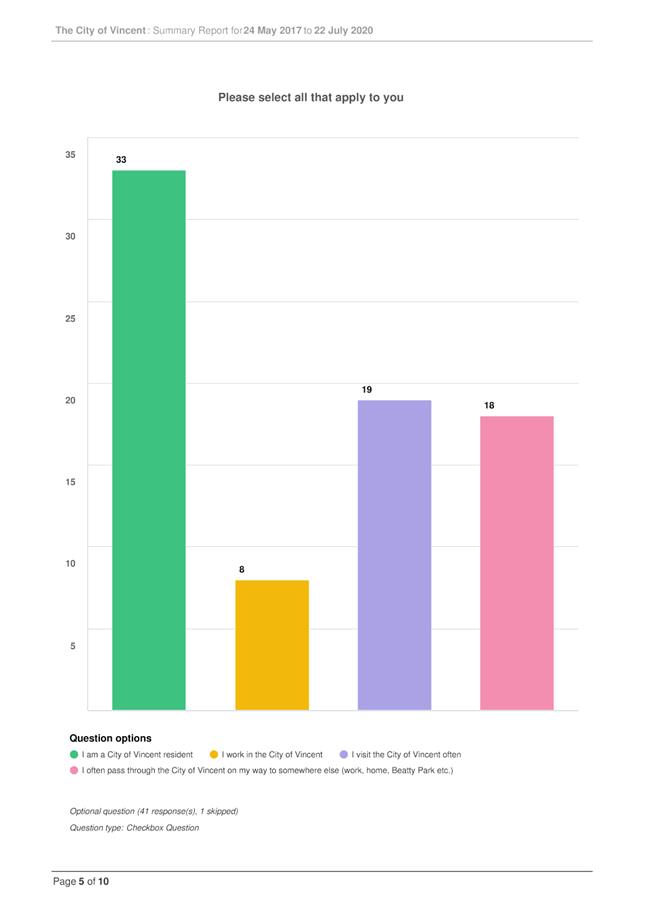
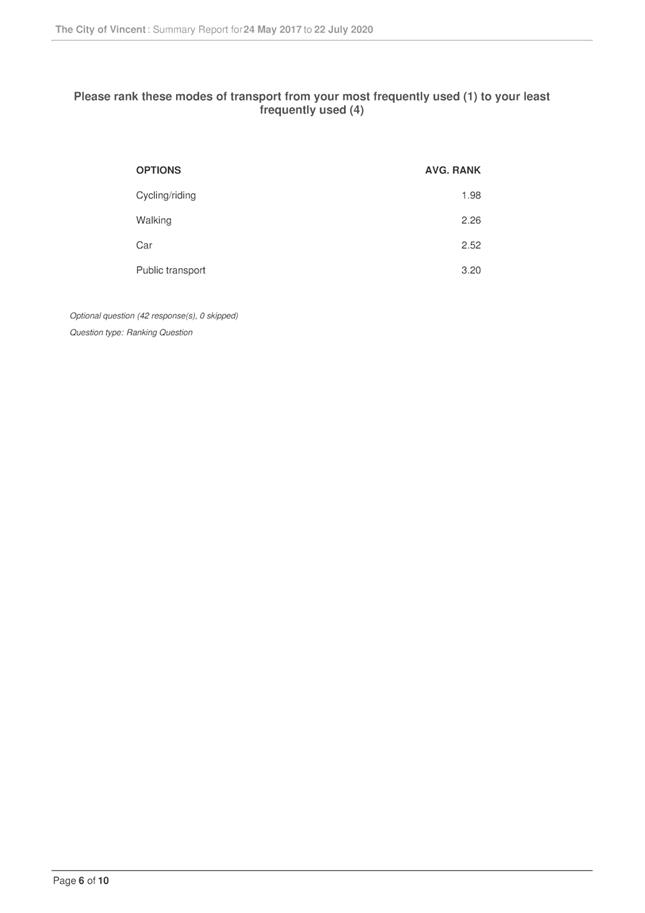
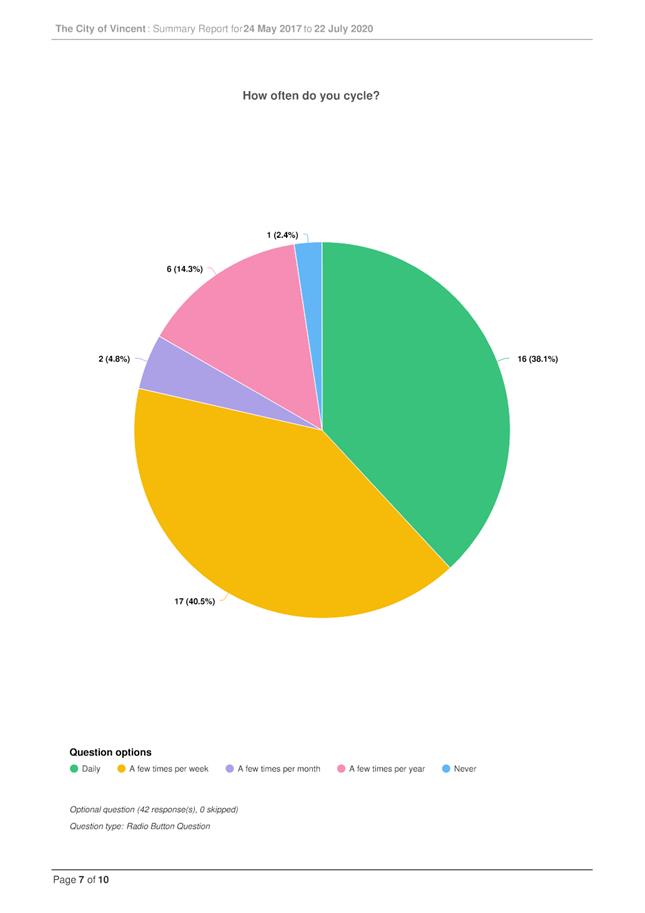
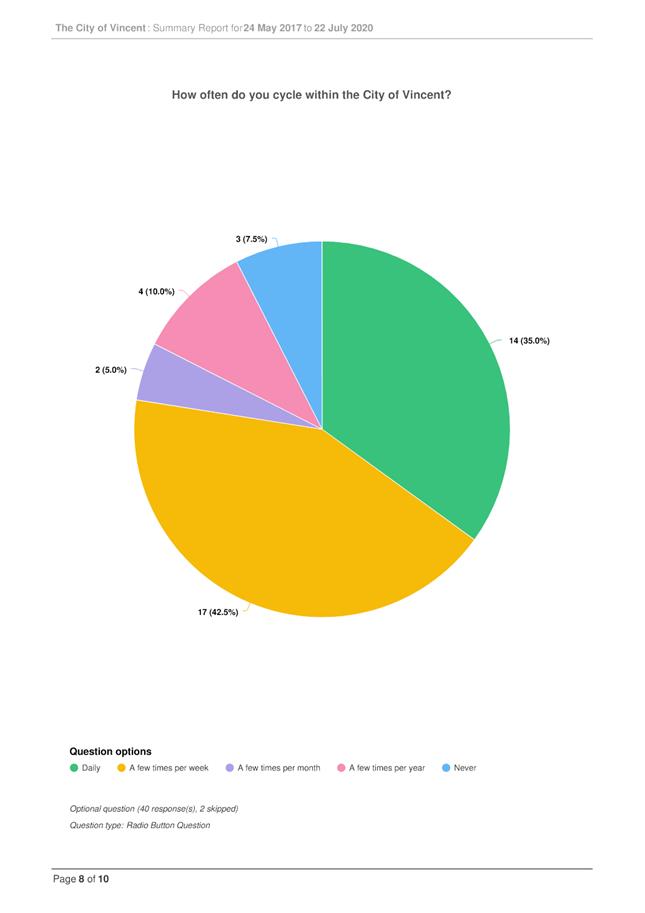
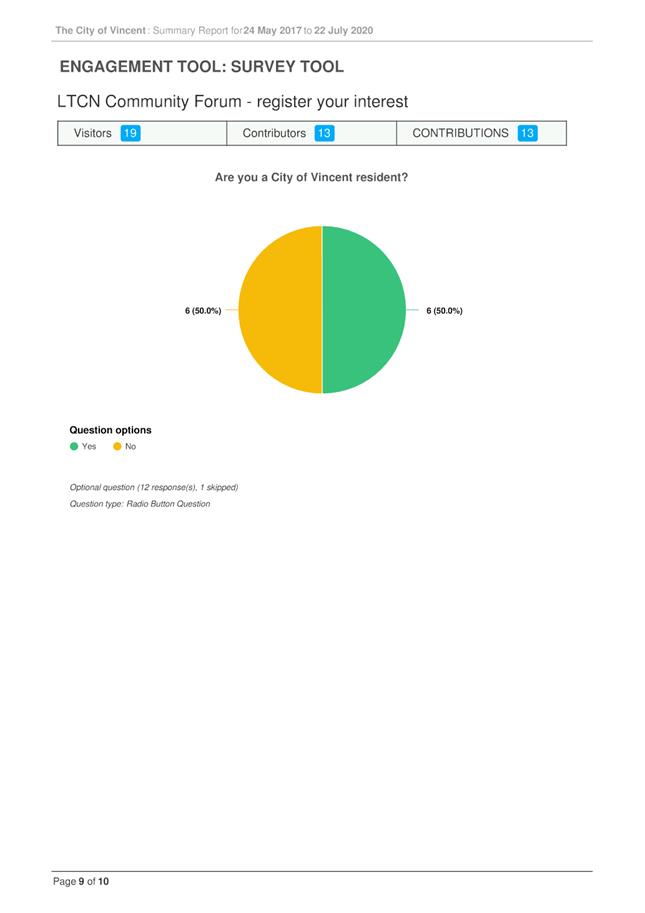
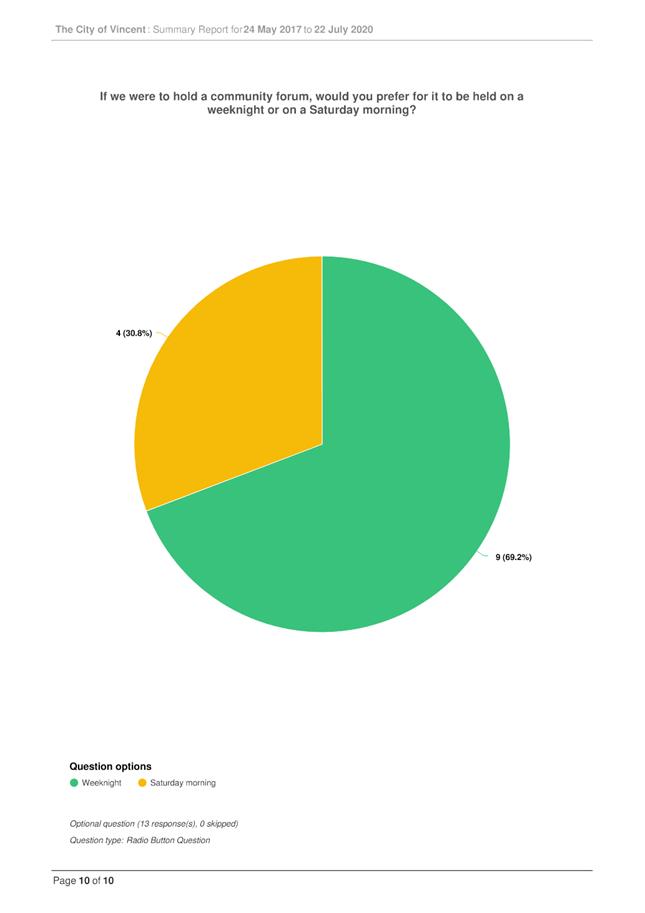
Ordinary
Council Meeting Agenda 18
August 2020
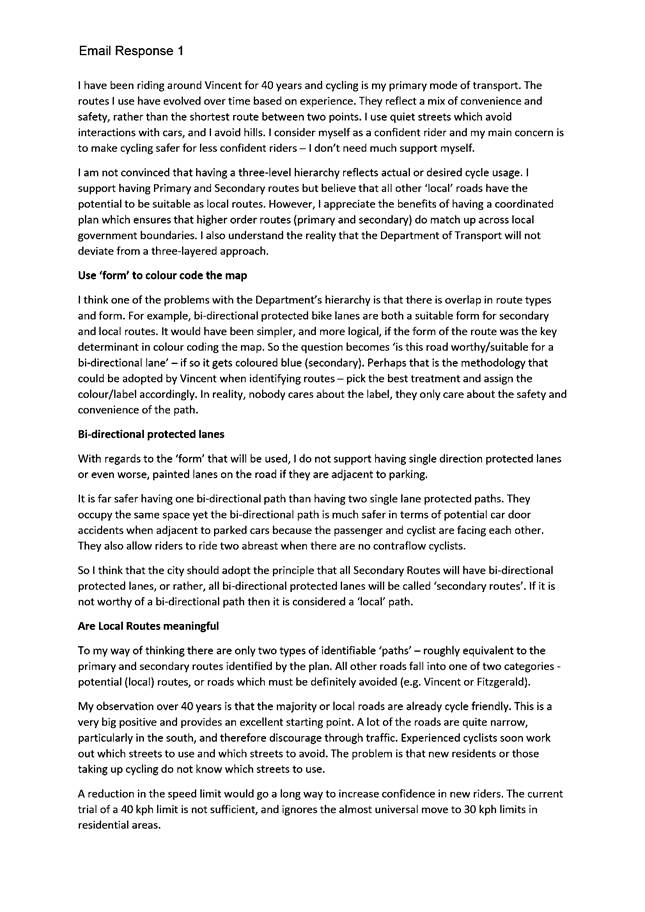
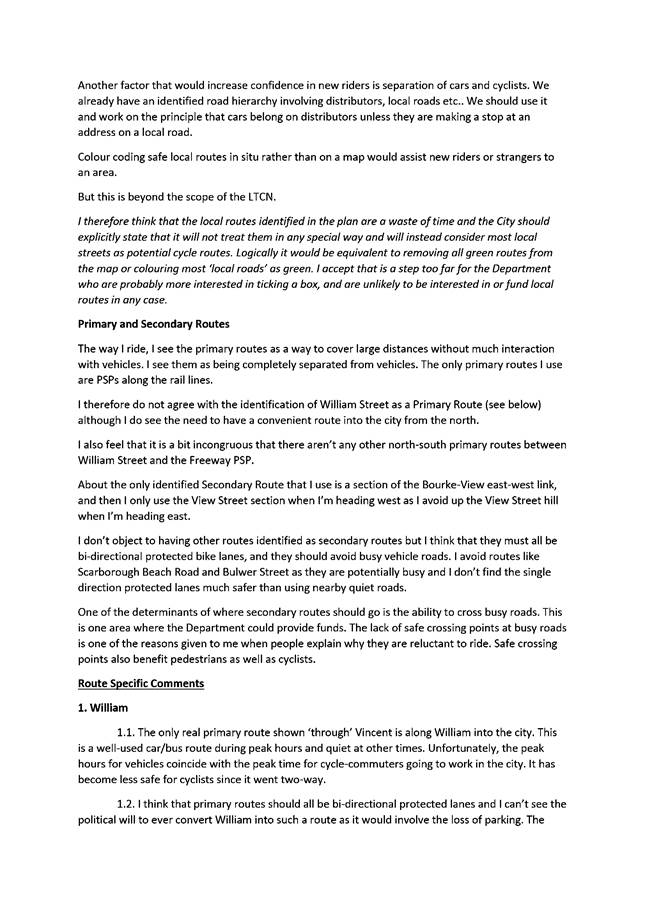
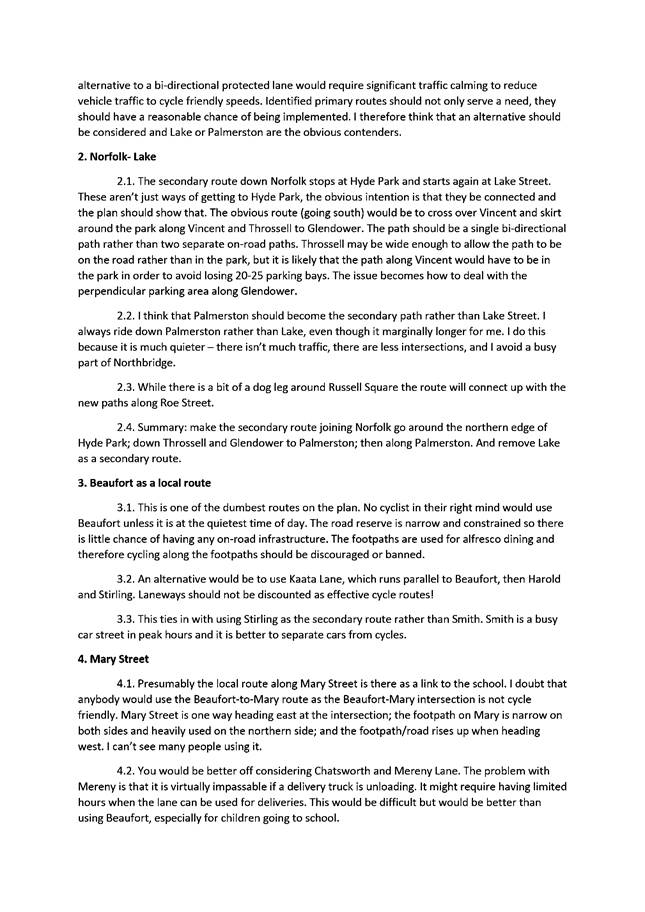

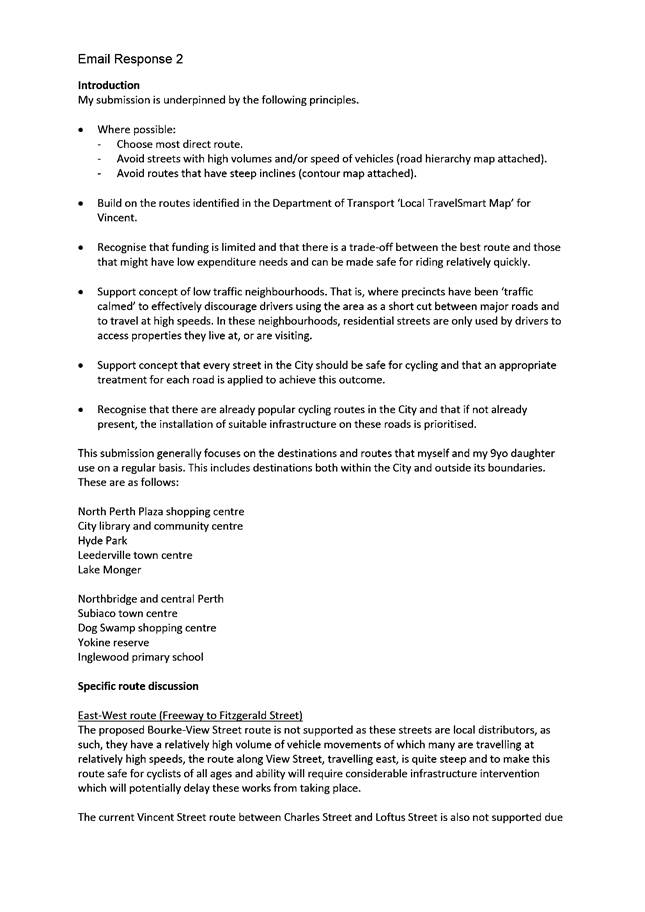
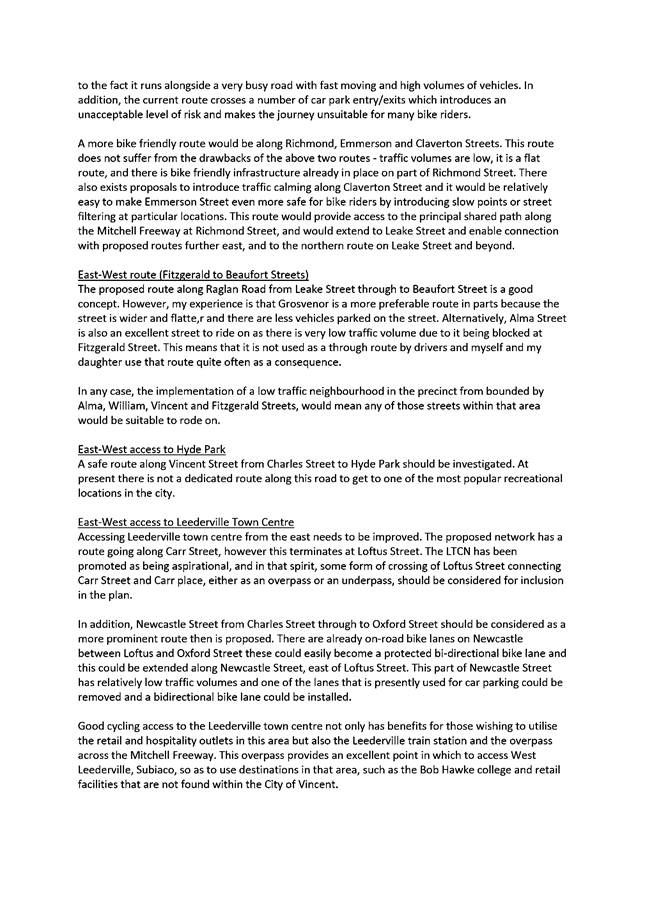
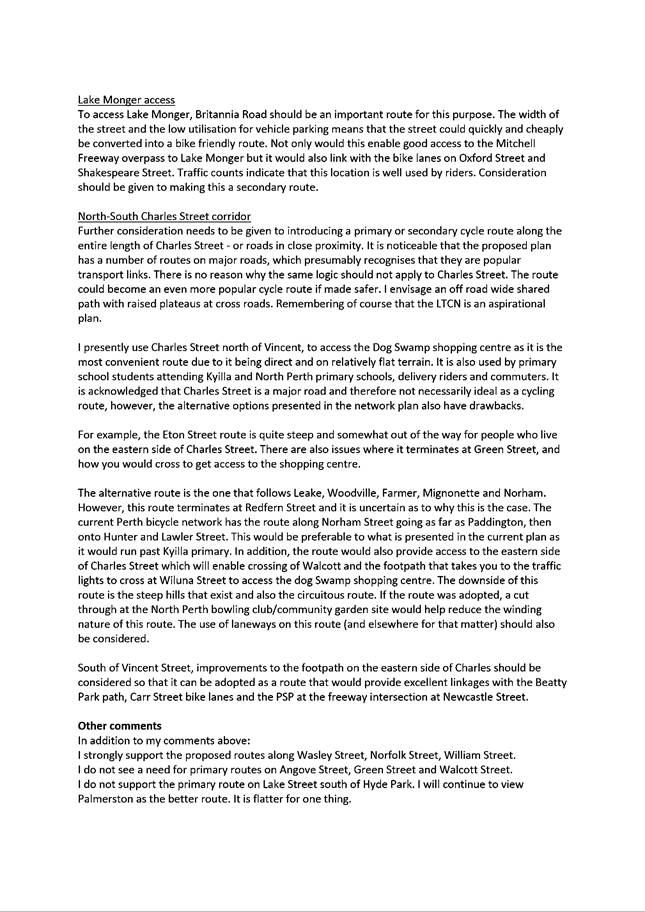

Ordinary
Council Meeting Agenda 18
August 2020

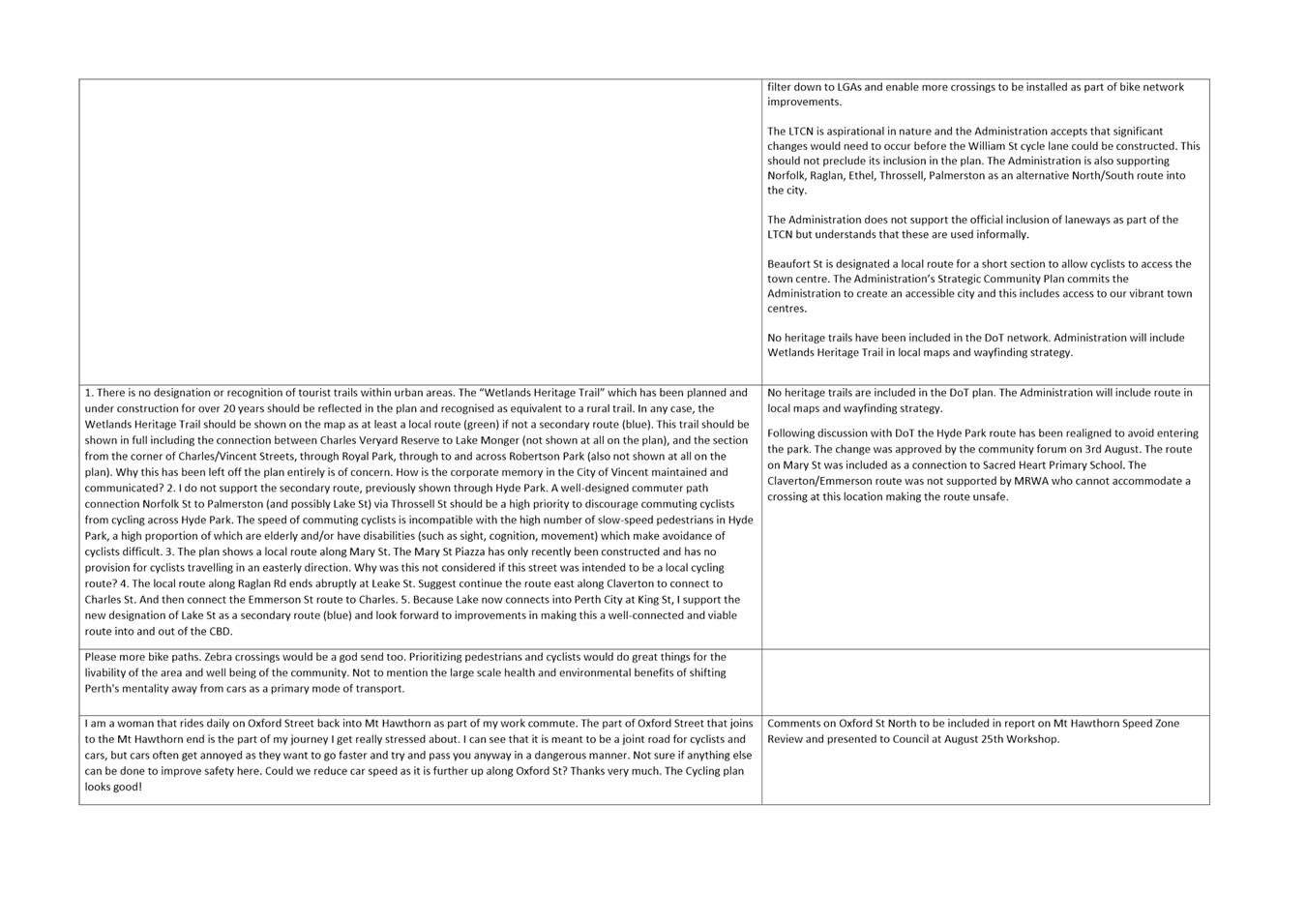

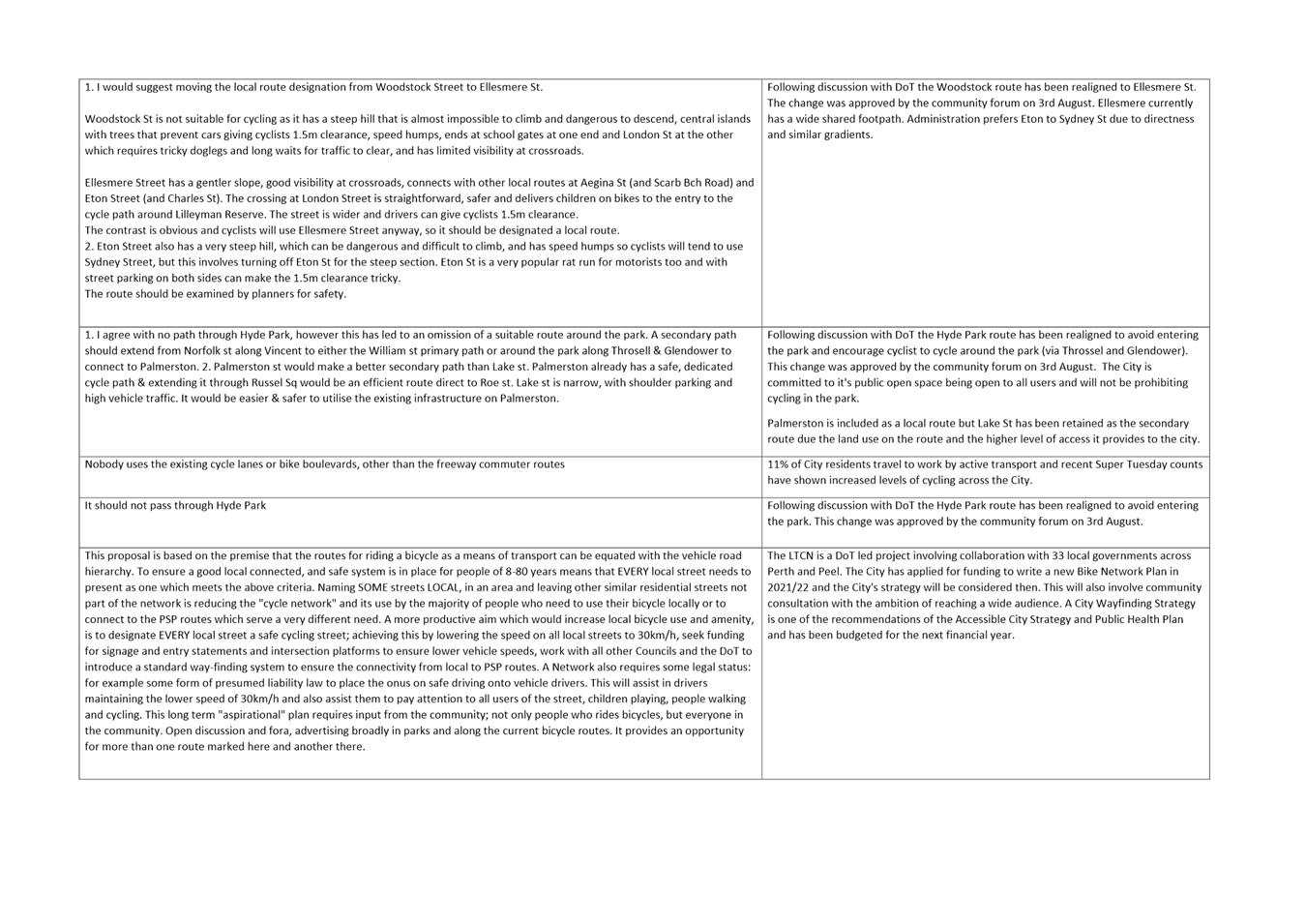

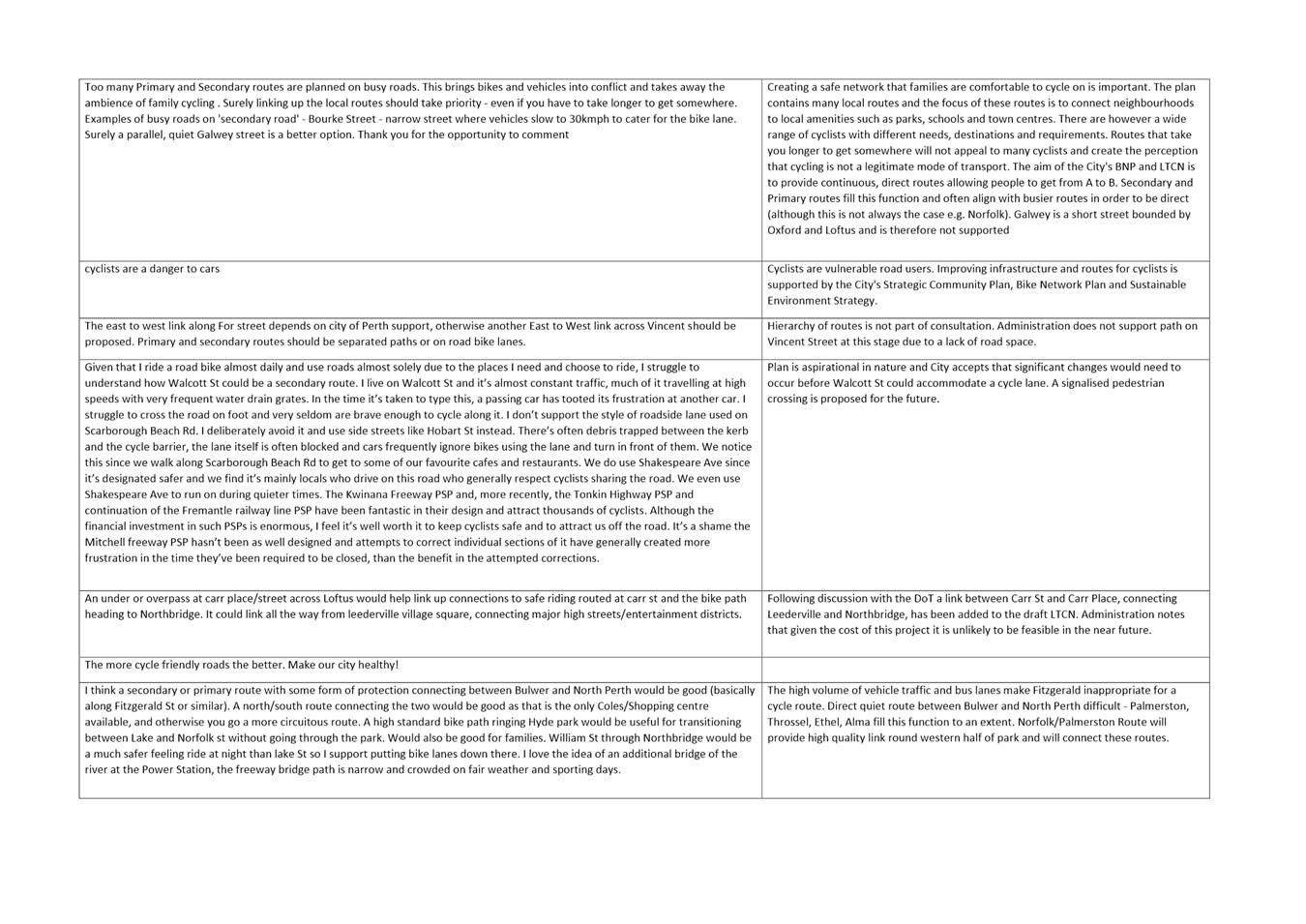
Ordinary
Council Meeting Agenda 18
August 2020
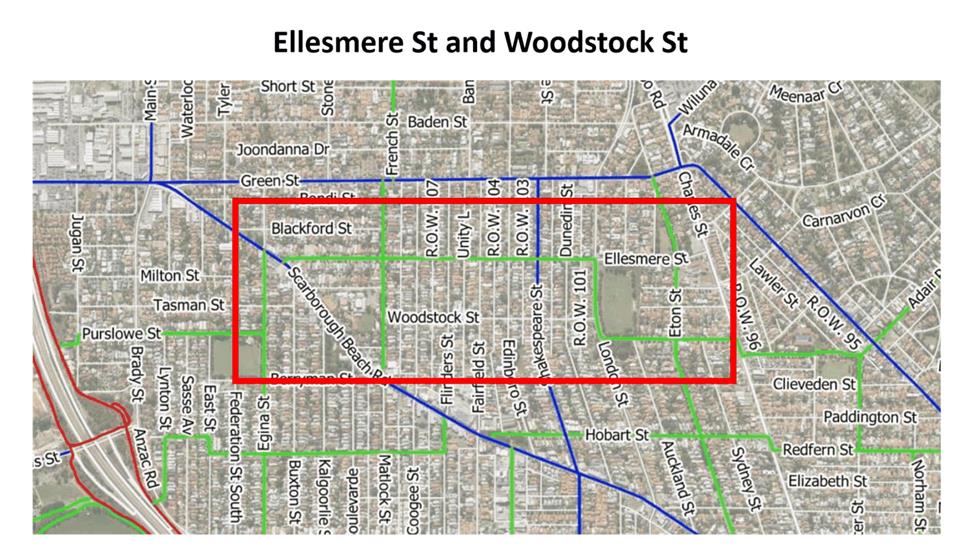
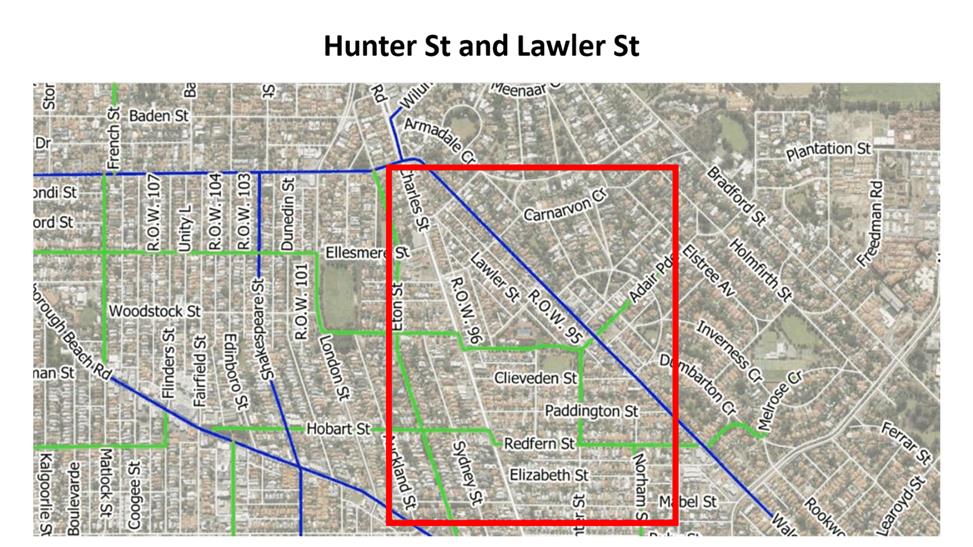
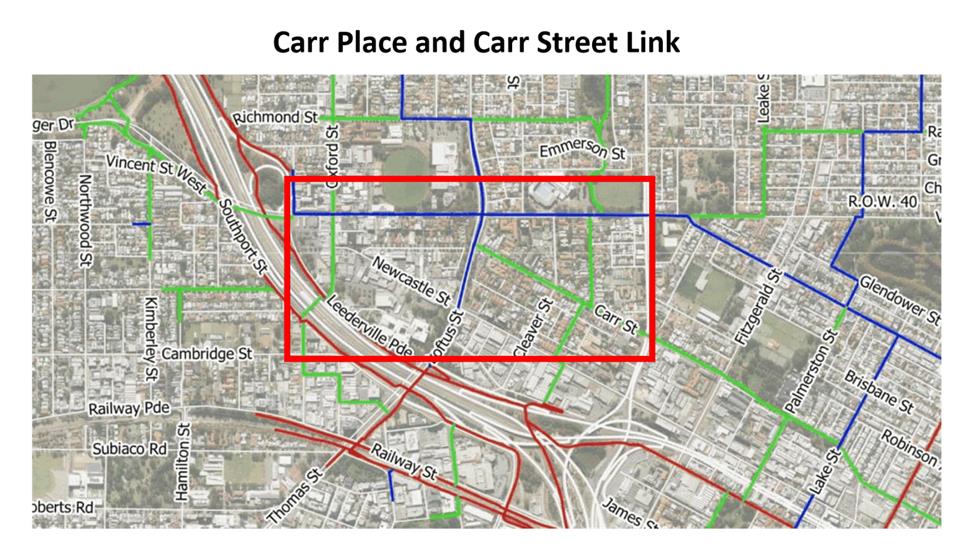
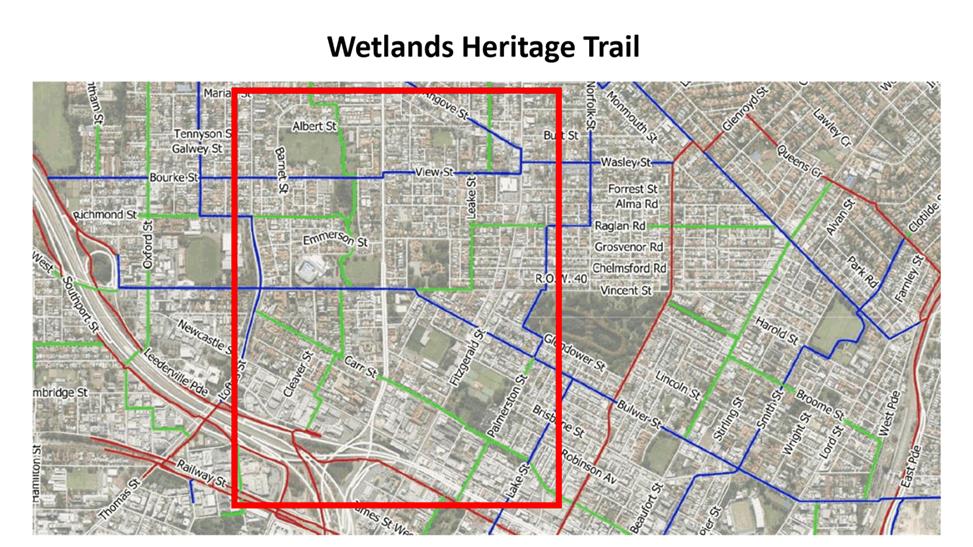
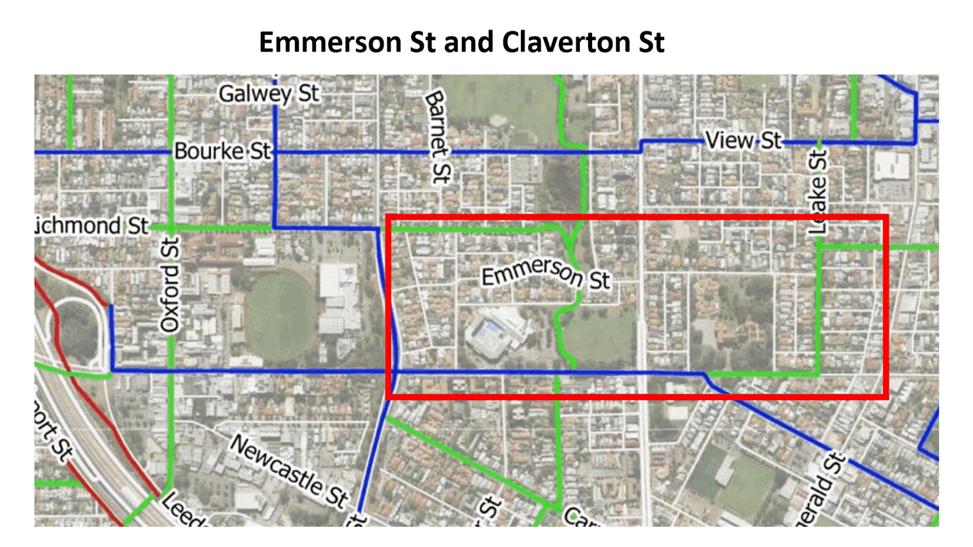
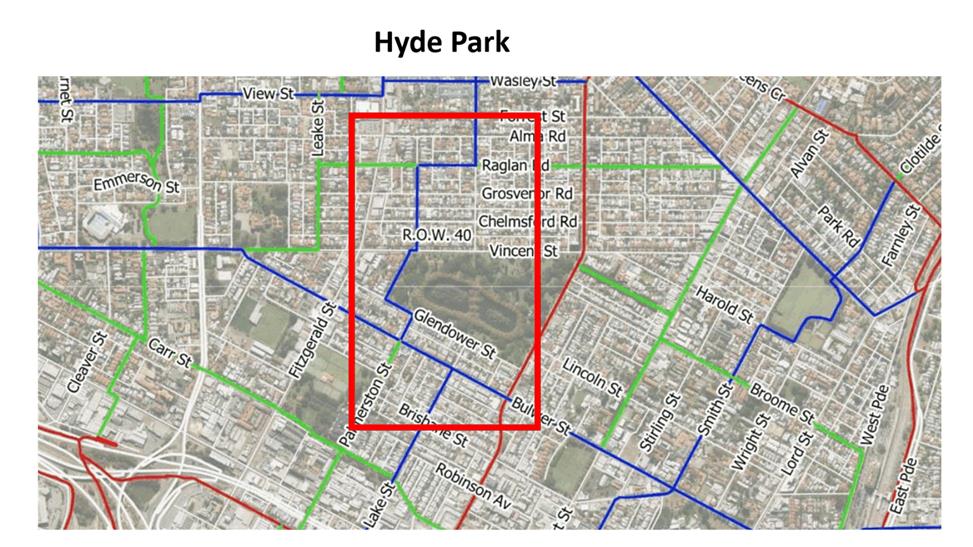
Ordinary
Council Meeting Agenda 18
August 2020
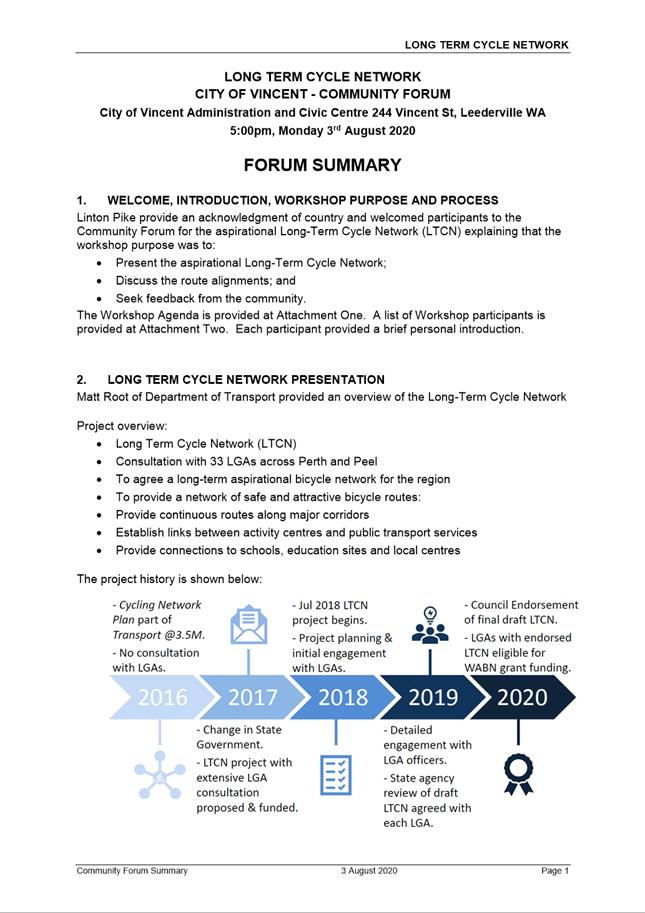
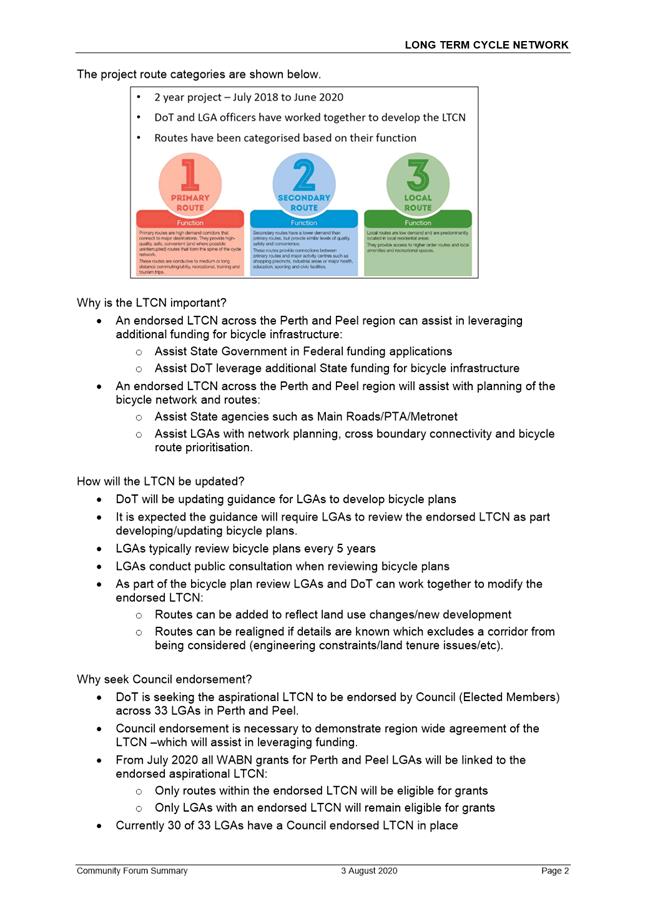
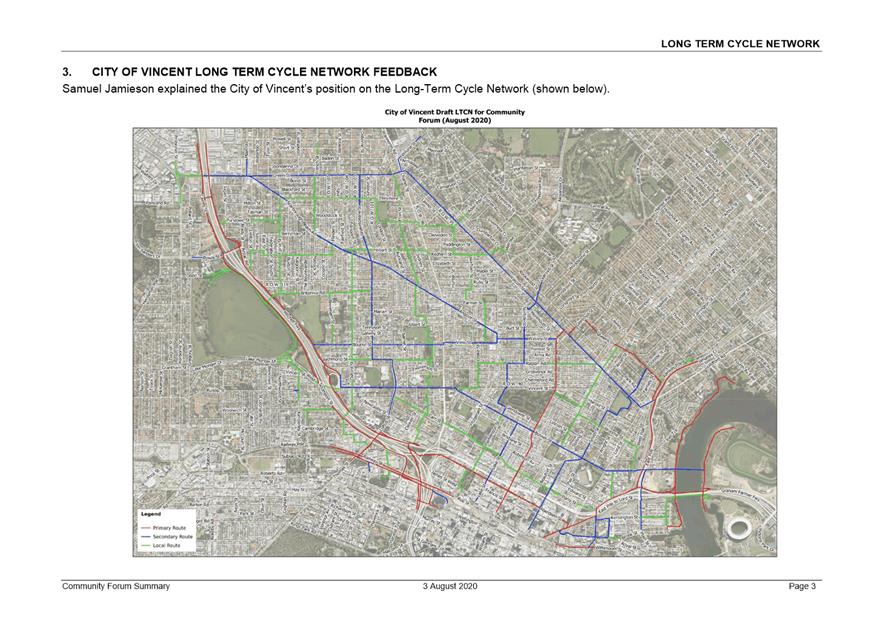
11 Community
& Business Services
11.1 Investment
Report as at 30 June 2020
Attachments: 1. Investment
Statistics as at 30 June 2020 ⇩ 
|
Recommendation:
That Council NOTES
the Investment Statistics for the month ended 30 June 2020 as detailed in
Attachment 1.
|
Purpose of Report:
To advise Council of the
nature and value of the City’s Investments as at 30 June 2020 and the
interest earned year to date.
Background:
The City’s surplus
funds are invested in bank term deposits for various terms to facilitate
maximum investment returns in accordance to the City’s Investment Policy
(No. 1.2.4).
Details of the
investments are included in Attachment 1 and outline the following
information:
· Investment
performance and policy compliance charts;
· Investment
portfolio data;
· Investment
interest earnings; and
· Current
investment holdings.
Details:
The City’s
investment portfolio is diversified across several accredited financial
institutions.
As at 30 June 2020, the
total funds held in the City’s operating account (including on call) is
$25,079,463 compared to $30,503,765 for the period ending 30 June 2019.
The
total term deposit investments for the period ending 30 June 2020 is $17,565,310
compared to $25,613,648 for the period ending 30 June 2019. The total term deposit and fund
amounts have reduced compared to last year for cash flow management purposes to
cover operating and capital expenditure requirements.
In
addition, the City foresees that investments in the short term will decline to
ensure the City’s short to medium term liquidity position is sustainable
during the current economic situation.
The following table shows
funds under management for the previous and current year: -
|
Month
|
2018/19
|
2019/20
|
|
Ended
|
Total funds
held
|
Total term
deposits
|
Total funds
held
|
Total term
deposits
|
|
July
|
$26,826,861
|
$23,990,516
|
$32,209,493
|
$26,105,854
|
|
August
|
$44,327,708
|
$37,499,275
|
$49,641,327
|
$44,977,692
|
|
September
|
$44,209,274
|
$40,651,147
|
$44,876,698
|
$41,017,535
|
|
October
|
$44,463,021
|
$41,180,325
|
$46,846,286
|
$37,782,515
|
|
November
|
$44,188,761
|
$42,678,504
|
$46,118,236
|
$36,123,083
|
|
December
|
$40,977,846
|
$38,667,039
|
$38,557,295
|
$34,633,796
|
|
January
|
$42,109,674
|
$35,225,189
|
$37,915,806
|
$33,773,707
|
|
February
|
$44,227,308
|
$36,178,794
|
$35,377,640
|
$33,681,961
|
|
March
|
$39,157,958
|
$32,739,750
|
$33,969,162
|
$28,466,025
|
|
April
|
$36,427,902
|
$31,019,902
|
$30,832,893
|
$25,975,451
|
|
May
|
$33,384,520
|
$29,469,158
|
$28,935,398
|
$22,319,031
|
|
June
|
$30,503,765
|
$25,613,648
|
$25,079,463
|
$17,565,310
|
Total accrued interest
earned on investments as at 30 June 2020 is:
|
Total Accrued
Interest Earned on Investment
|
Budget Adopted
|
Budget YTD
|
Actual YTD
|
% of FY Budget
|
|
Municipal
|
$250,000
|
$250,000
|
$294,986
|
117.99%
|
|
Reserve
|
$200,000
|
$200,000
|
$223,720
|
111.86%
|
|
Subtotal
|
$450,000
|
$450,000
|
$518,706
|
115.27%
|
|
Leederville Gardens Inc
Surplus Trust*
|
$0
|
$0
|
$105,610
|
0.00%
|
|
Total
|
$450,000
|
$450,000
|
$624,316
|
138.74%
|
*Interest estimates for Leederville Gardens Inc. Surplus
Trust were not included in the 2019/20 Budget as actual interest earned is
restricted.
The City has obtained a
weighted average interest rate of 1.43% for current investments including the
operating account. The Reserve Bank 90 days accepted bill rate for June 2020 is
0.10%.
Sustainable
Investments
The City’s
Investment Policy states that preference “is to be given to
investments with institutions that have been assessed to have no current record
of funding fossil fuels, providing that doing so will secure a rate of return
that is at least equal to alternatives offered by other institutions”.
Administration currently uses Marketforces.org.au to assist in assessing whether a bank promotes
non-investments in fossil fuel related entities.
As
at 30 June 2020, $6,013,145 (24%) of the City’s investments are held in
financial institutions considered to be investing in non-fossil fuel related
activities.
Administration has
established guidelines for the management of the City’s investments, including
maximum investment ratios as shown in the table below.
|
Short Term Rating (Standard & Poor’s) or
Equivalent
|
Direct Investments Maximum %
with any one institution
|
Managed Funds Maximum %
with any one institution
|
Maximum % of Total Portfolio
|
|
Policy
|
Current position
|
Policy
|
Current position
|
Policy
|
Current position
|
|
A1+
|
30%
|
30%
|
30%
|
Nil
|
90%
|
44.43%
|
|
A1
|
25%
|
10.3%
|
30%
|
Nil
|
80%
|
10.33%
|
|
A2
|
20%
|
23.7%*
|
n/a
|
Nil
|
60%
|
45.24%
|
* The maximum allowable position with A-2 accredited
institution (AMP Bank) has exceeded the threshold. This is because the total
investment closing balance at the end of June has decreased compared to when
the investments were undertaken resulting in an increase in the portfolio
percentage i.e. an inversely proportional relationship.
Consultation/Advertising:
Nil.
Legal/Policy:
The power to invest is
governed by the Local Government Act 1995.
“6.14. Power
to invest
(1) Money
held in the municipal fund or the trust fund of a local government that is not,
for the time being, required by the local government for any other purpose may
be invested as trust funds under the Trustees Act 1962 Part III.
(2A) A
local government is to comply with the regulations when investing money
referred to in subsection (1).
(2) Regulations
in relation to investments by local governments may —
(a) make provision in
respect of the investment of money referred to in subsection (1); and
[(b) deleted]
(c) prescribe
circumstances in which a local government is required to invest money held by
it; and
(d) provide for the
application of investment earnings; and
(e) generally provide
for the management of those investments.
Further controls are
established through the following provisions in the Local Government
(Financial Management) Regulations 1996:
19. Investments,
control procedures for
(1) A
local government is to establish and document internal control procedures to be
followed by employees to ensure control over investments.
(2) The
control procedures are to enable the identification of —
(a) the nature and
location of all investments; and
(b) the transactions
related to each investment.
19C. Investment
of money, restrictions on (Act s. 6.14(2)(a))
(1) In this
regulation —
authorised
institution means —
(a) an authorised
deposit‑taking institution as defined in the Banking Act 1959
(Commonwealth) section 5; or
(b) the Western Australian Treasury
Corporation established by the Western Australian Treasury Corporation
Act 1986;
foreign
currency means a currency except the currency of Australia.
(2) When
investing money under section 6.14(1), a local government may not do any
of the following —
(a) deposit with an
institution except an authorised institution;
(b) deposit for a
fixed term of more than 3 years;
(c) invest in
bonds that are not guaranteed by the Commonwealth Government, or a State or
Territory government;
(d) invest in
bonds with a term to maturity of more than 3 years;
(e) invest in a
foreign currency.”
Council has delegated the
authority to invest surplus funds to the Chief Executive Officer or his
delegate to facilitate prudent and responsible investment.
Risk Management Implications:
Low: Administration
has developed effective controls to ensure funds are invested in accordance
with the City’s Investment Policy. This report enhances transparency and
accountability for the City’s investments.
Strategic Implications:
This is in keeping with the City’s Strategic
Community Plan 2018-2028:
Innovative and Accountable
Our
resources and assets are planned and managed in an efficient and sustainable
manner.
Our
community is aware of what we are doing and how we are meeting our goals.
Our
community is satisfied with the service we provide.
We
are open and accountable to an engaged community.
SUSTAINABILITY IMPLICATIONS:
Nil.
Financial/Budget Implications:
The financial
implications of this report are as noted in the details section of the report.
Administration is satisfied that appropriate and responsible measures are in
place to protect the City’s financial assets.
Ordinary Council Meeting Agenda 18
August 2020
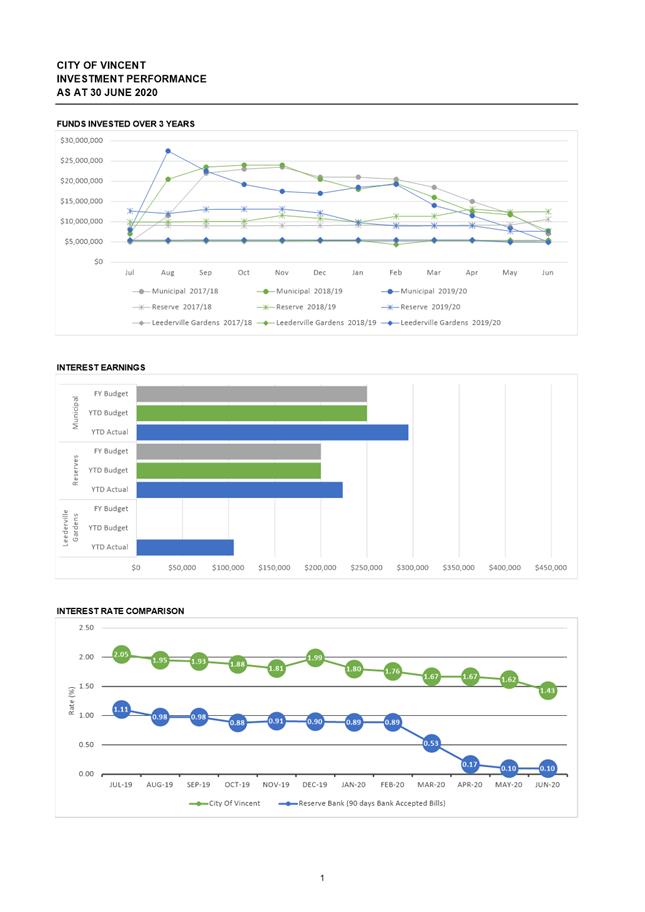
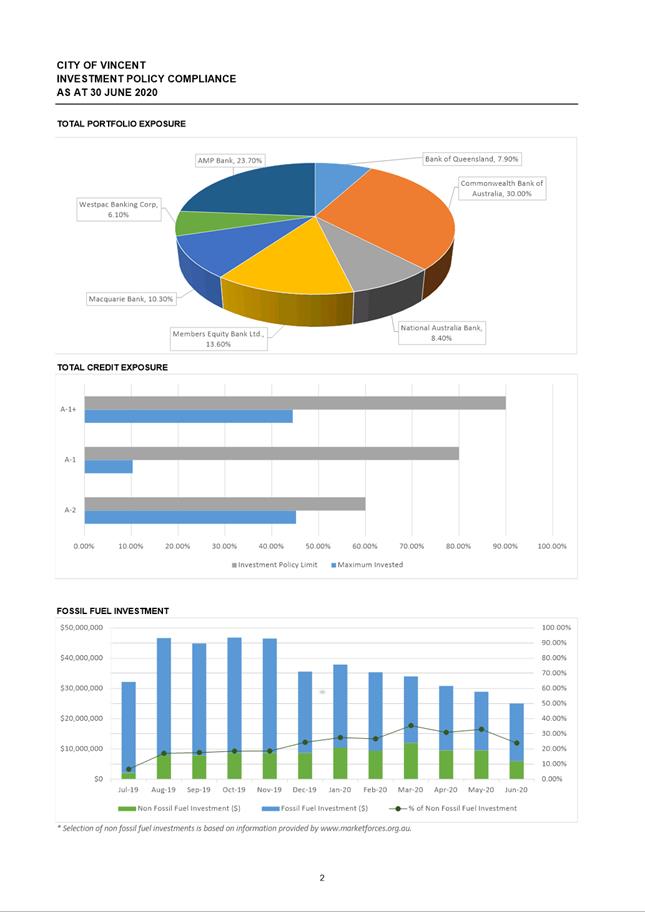
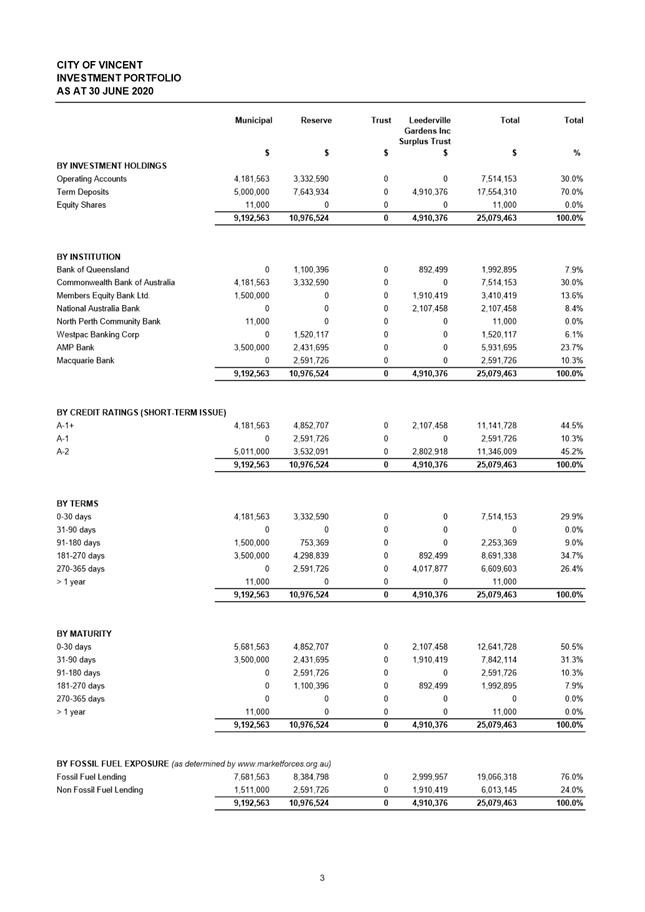
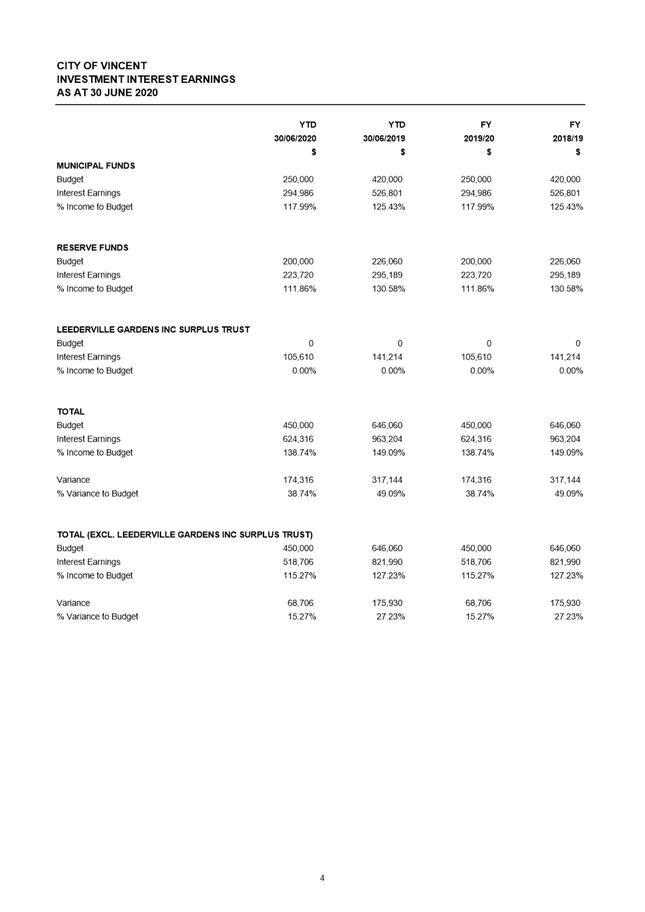
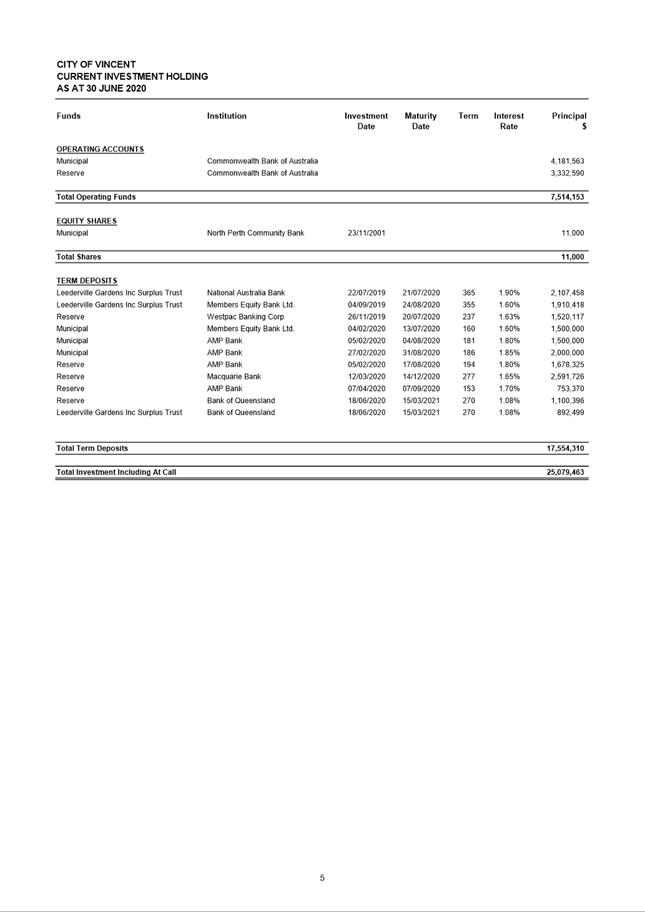
11.2 Authorisation
of Expenditure for the Period 1 June 2020 to 30 June 2020
Attachments: 1. Payments
by EFT and Payroll June 20 ⇩ 
2. Cancelled Cheques
June 20 ⇩ 
3. Payments by
Direct Debit June 20 ⇩ 
|
Recommendation:
That Council
RECEIVES the list of accounts paid under delegated authority for the period 1
June 2020 to 30 June 2020 as detailed in Attachments 1, 2 and 3 as summarised
below:
|
EFT payments, including payroll
|
|
$5,673,389.46
|
|
Cancelled cheques
|
|
-$3,442.81
|
|
Direct debits, including credit cards
|
|
$167,283.76
|
|
|
|
|
|
Total payments for June 2020
|
|
$5,837,230.41
|
|
Purpose of Report:
To present to Council the
list of expenditure and accounts paid for the period 1 June 2020 to 30 June
2020.
Background:
Council has delegated to
the Chief Executive Officer (Delegation No. 2.2.18) the power to make payments
from the City’s Municipal and Trust funds. In accordance with Regulation
13(1) of the Local Government (Financial Management) Regulations 1996 a
list of accounts paid by the Chief Executive Officer is to be provided to
Council, where such delegation is made.
The list of accounts paid
must be recorded in the minutes of the Council Meeting.
Details:
The Schedule of Accounts paid for the period 1 June 2020 to
30 June 2020, covers the following:
|
FUND
|
CHEQUE NUMBERS/
BATCH NUMBER
|
AMOUNT
|
|
Municipal Account
(Attachment 1, 2 and 3)
|
|
|
EFT Payments
|
2549 – 2558
and 2562
|
$4,592,215.41
|
|
Payroll by Direct Credit
|
June 2020
|
$1,081,174.05
|
|
Sub Total
|
|
$5,673,389.46
|
|
|
|
|
|
Cheques
|
|
|
|
Cancelled cheques
|
82106, 82124, 82155,
82182, 82190, 82246, 82273, 82364, 82368, 82436 and 82487
|
-$3,442.81
|
|
Sub Total
|
|
-$3,442.81
|
|
Direct Debits (including
Credit Cards)
|
|
|
|
Lease Fees
|
|
$395.84
|
|
Loan Repayments
|
$154,648.45
|
|
Bank Charges – CBA
|
|
$7,841.62
|
|
Credit Cards
|
|
$4,397.85
|
|
Sub Total
|
|
$167,283.76
|
|
|
|
|
|
Total Payments
|
|
$5,837,230.41
|
Consultation/Advertising:
Not applicable.
Legal/Policy:
Regulation 12(1) and (2)
of the Local Government (Financial Management) Regulations 1996 refers, i.e.-
“12. Payments
from municipal fund or trust fund, restrictions on making
(1) A
payment may only be made from the municipal fund or the trust fund —
· if
the local government has delegated to the CEO the exercise of its power to make
payments from those funds — by the CEO; or
· otherwise,
if the payment is authorised in advance by a resolution of Council.
(2) Council must not
authorise a payment from those funds until a list prepared under regulation
13(2) containing details of the accounts to be paid has been presented to
Council.”
Regulation 13(1) and (3)
of the Local Government (Financial Management) Regulations 1996 refers,
i.e.-
“13. Lists
of Accounts
(1) If
the local government has delegated to the CEO the exercise of its power to make
payments from the municipal fund or the trust fund, a list of accounts paid by
the CEO is to be prepared each month showing for each account paid since the
last such list was prepared –
· the
payee’s name;
· the
amount of the payment;
· the
date of the payment; and
· sufficient
information to identify the transaction.
(2) A
list prepared under sub regulation (1) is to be —
· presented
to Council at the next ordinary meeting of Council after the list is prepared;
and
· recorded
in the minutes of that meeting.”
Risk Management Implications:
Low: Management
systems are in place that establish satisfactory controls, supported by the
internal and external audit functions. Financial reporting to Council increases
transparency and accountability.
Strategic Implications:
This is in keeping with
the City’s Strategic Community Plan 2018-2028:
Innovative
and Accountable
Our resources and assets are planned and managed in an
efficient and sustainable manner.
Our community is aware of what we are doing and how we are
meeting our goals.
Our community is satisfied with the service we provide.
We are open and accountable to an engaged community.
SUSTAINABILITY IMPLICATIONS:
Not applicable.
Financial/Budget Implications:
All municipal fund
expenditure included in the list of payments is in accordance with
Council’s annual budget.
Ordinary Council Meeting Agenda 18
August 2020
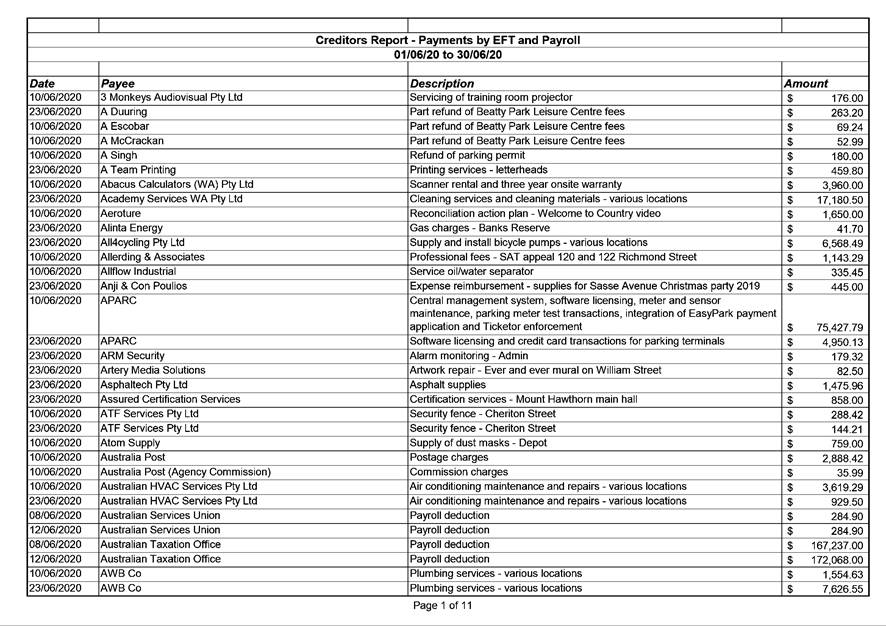
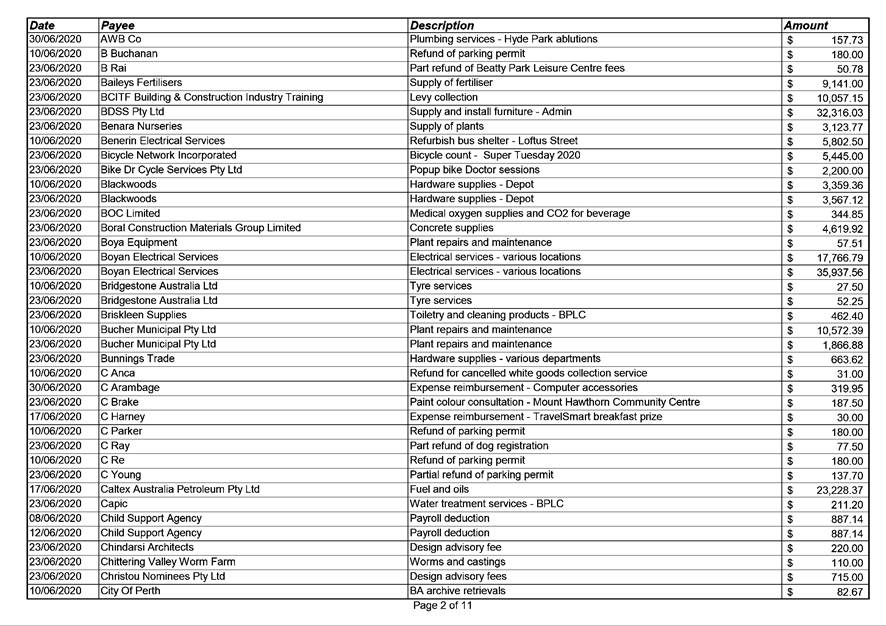
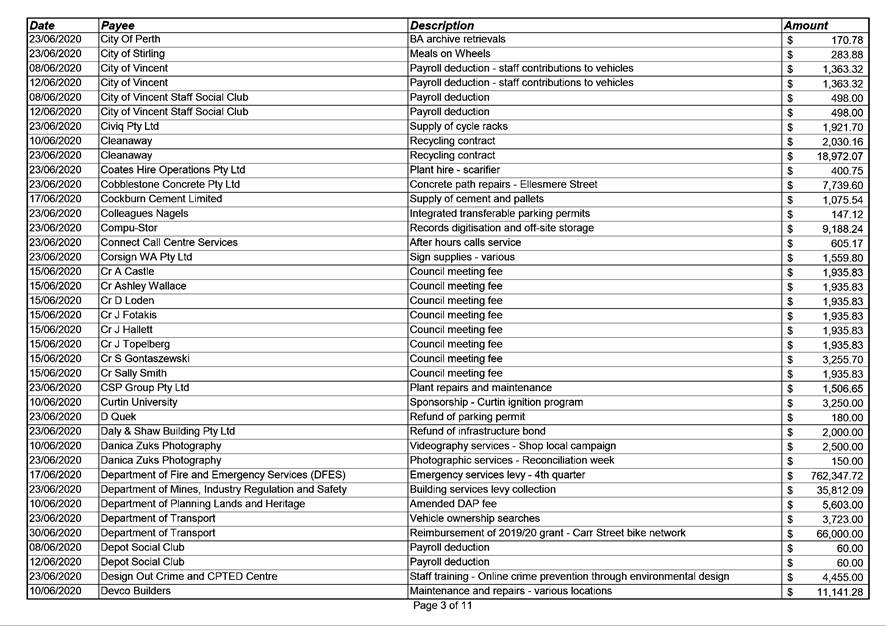
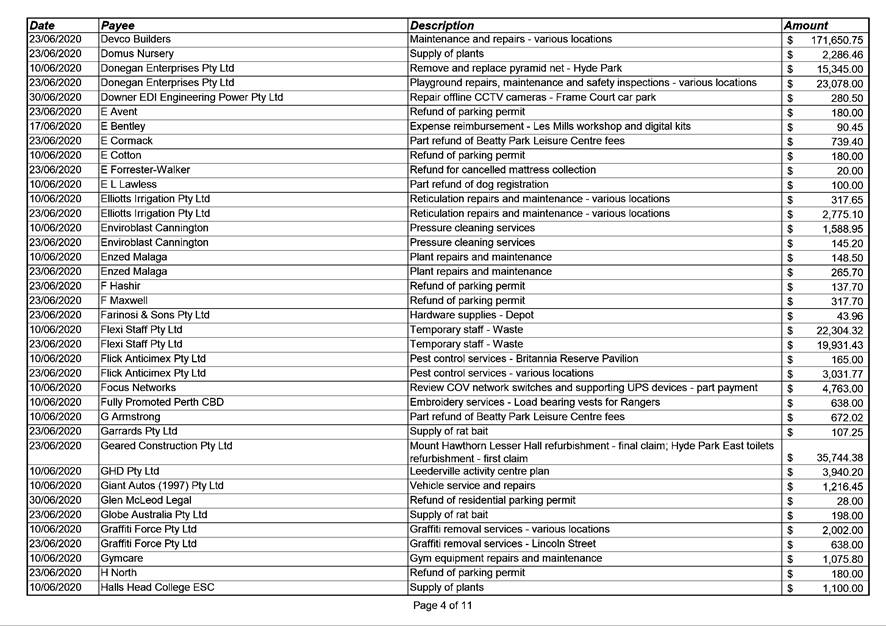
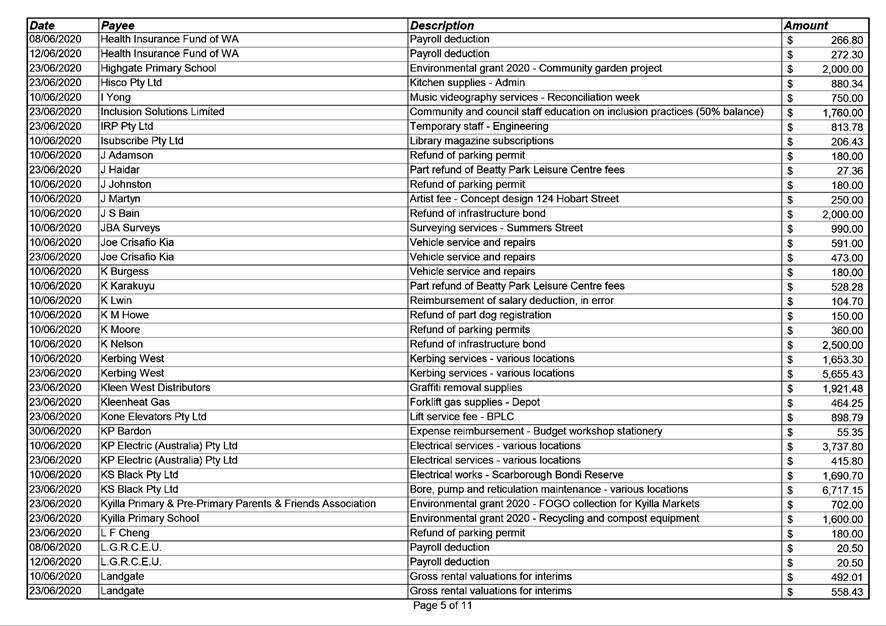
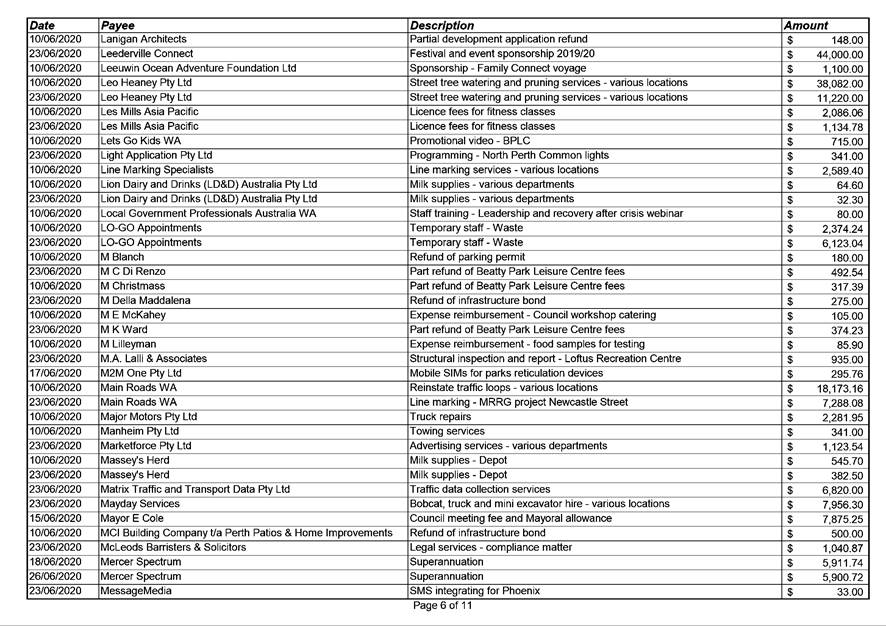
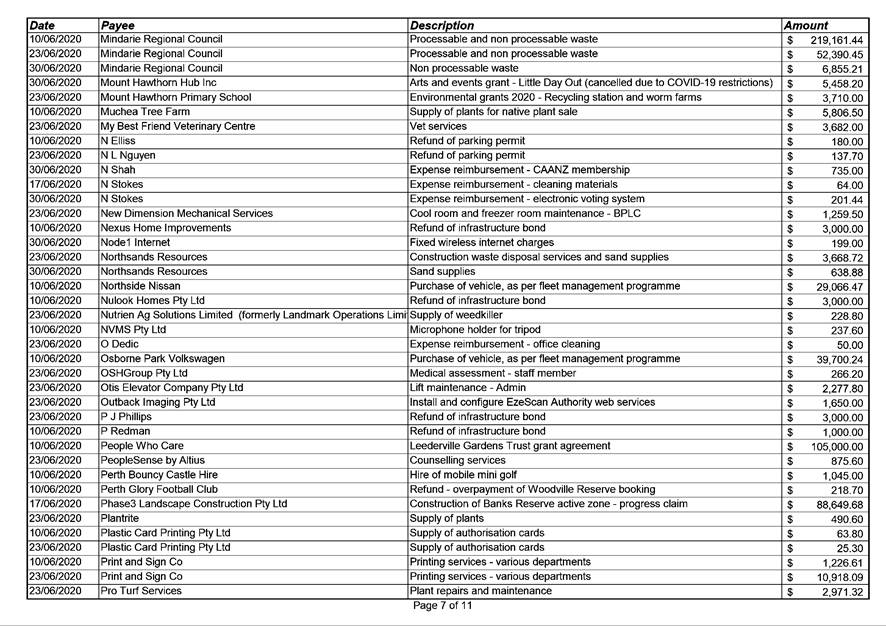
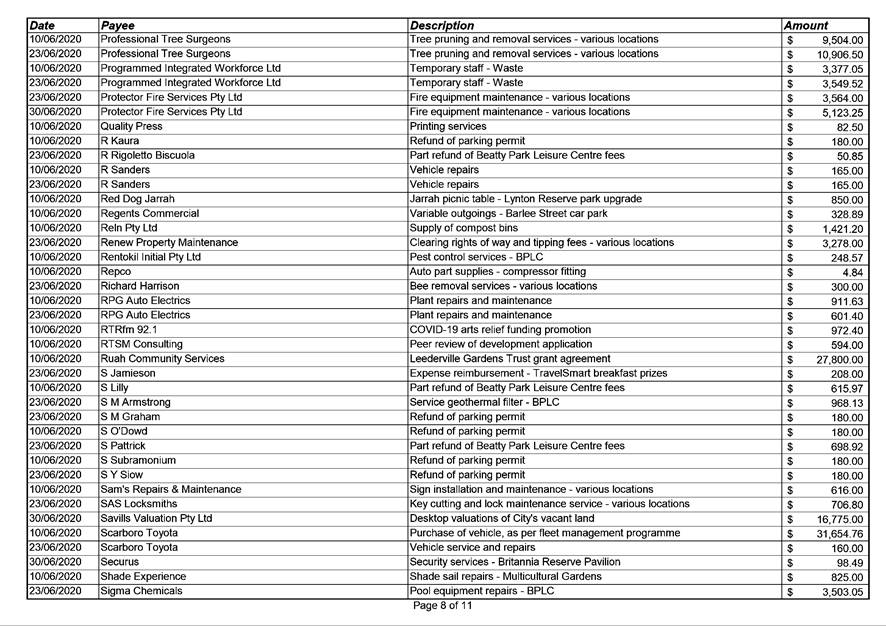
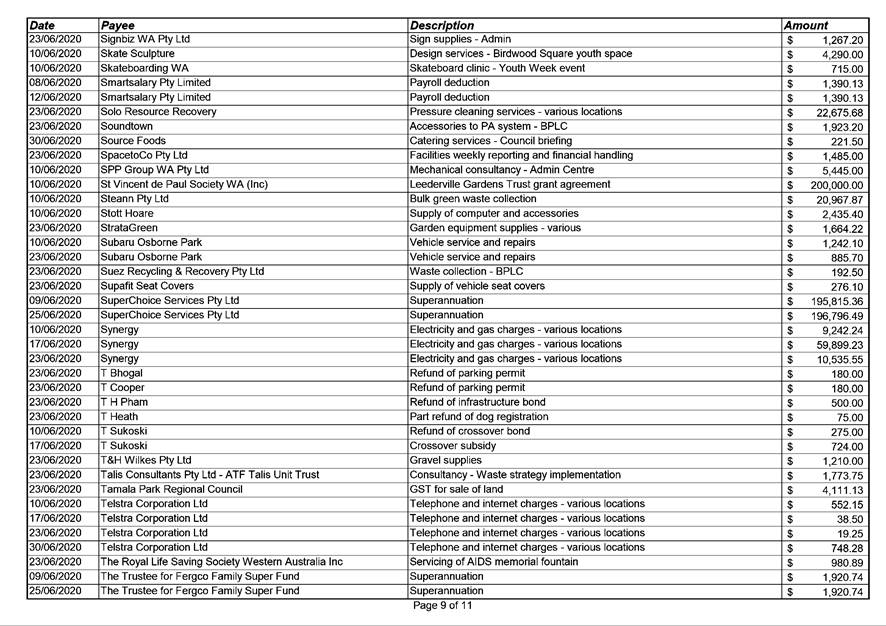
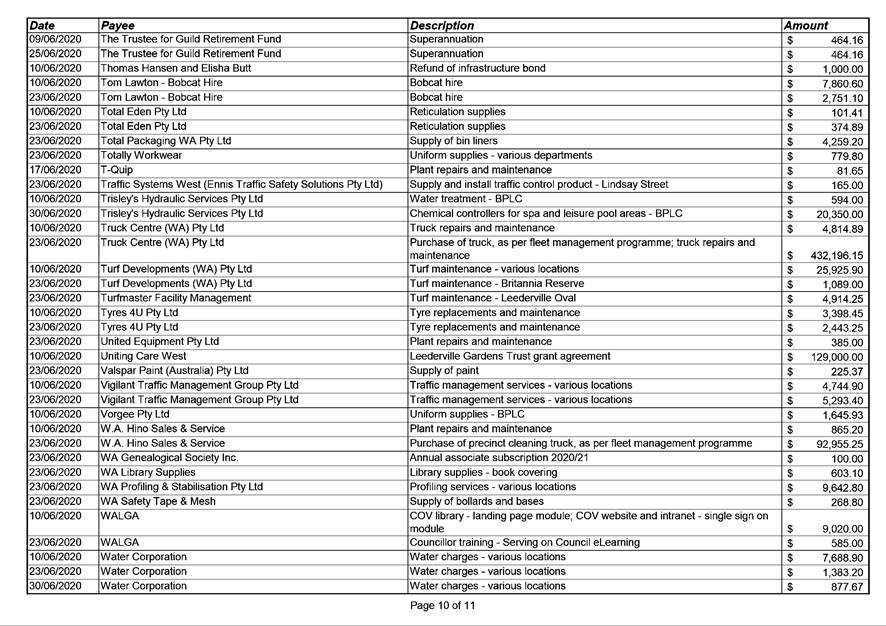
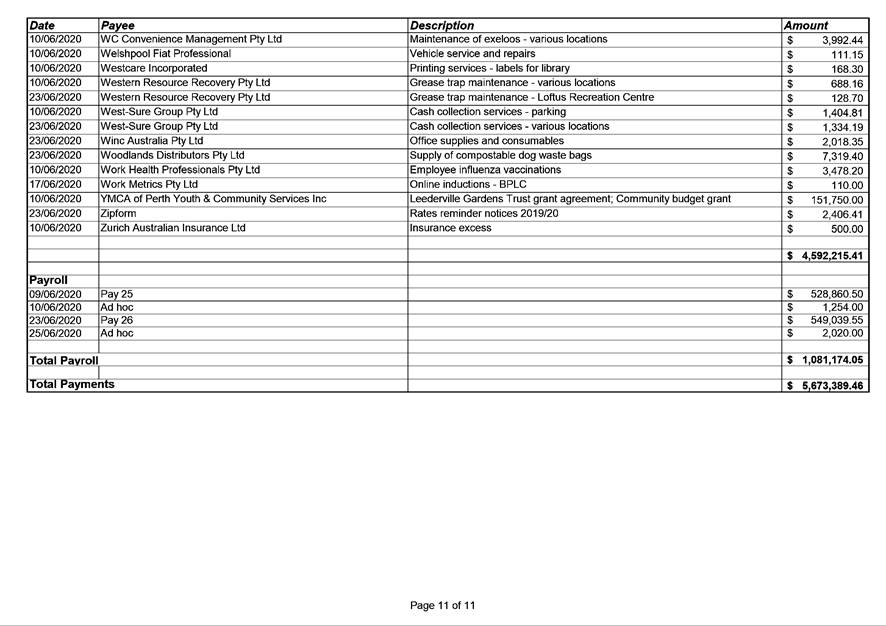
Ordinary
Council Meeting Agenda 18
August 2020

Ordinary Council Meeting Agenda 18
August 2020
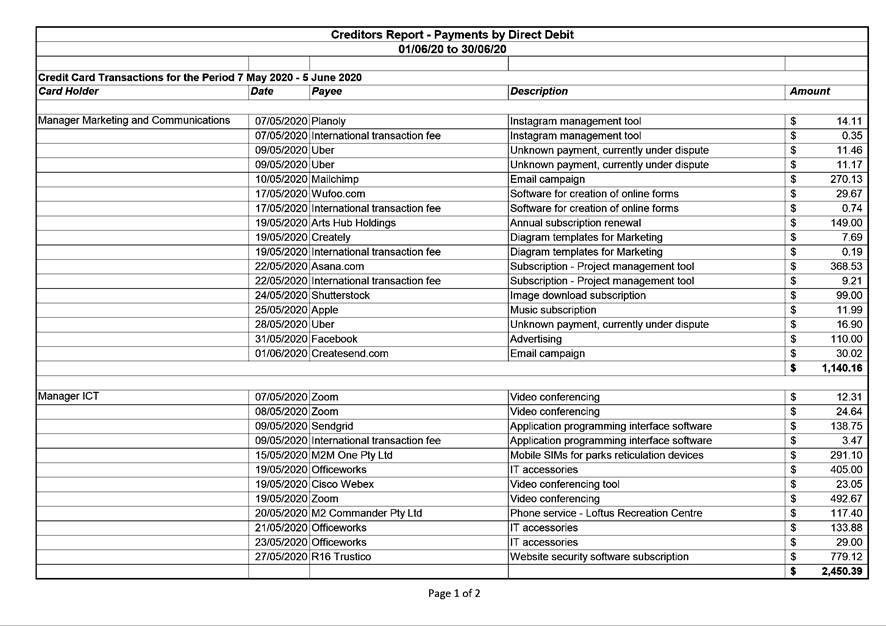
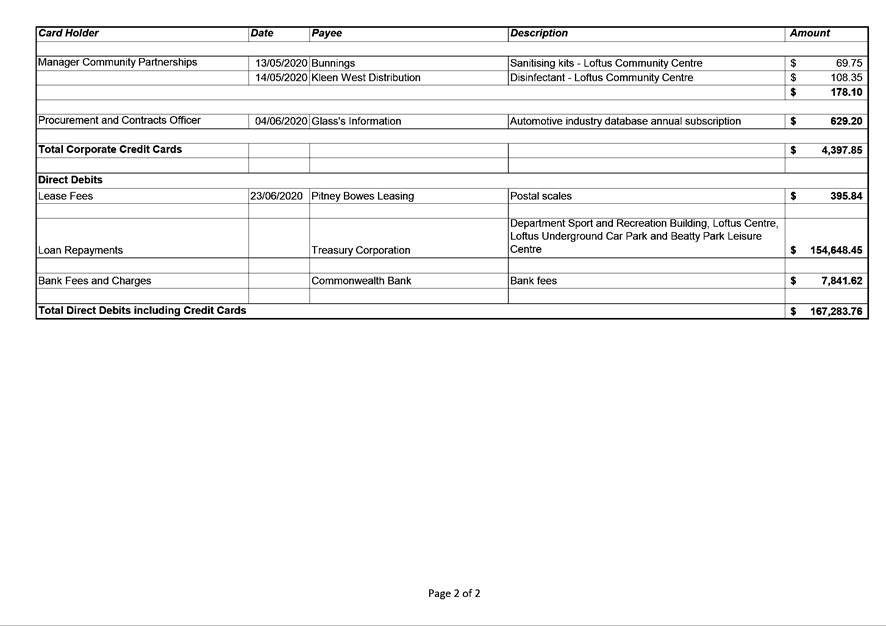
11.3 Provisional
Financial Statements as at 30 June 2020
Attachments: 1. Provisional
Financial Statements as at 30 June 2020 ⇩ 
|
Recommendation:
That
Council RECEIVES the Provisional Financial Statements for the month
ended 30 June 2020 as shown in Attachment 1.
|
Purpose of Report:
To
present the provisional statement of financial activity for the period ended 30
June 2020.
Background:
Regulation
34 (1) of the Local Government (Financial Management) Regulations 1996
requires a local government to prepare each month a statement of financial
activity including the sources and applications of funds, as compared to the
budget.
Please
note there are a number of year end transactions and adjustments
(accruals & prepayments) that need to be completed before the year end
accounts are finalised and audited, hence, the balances provided in this report
are provisional and subject to change.
Details:
The
following documents, included as Attachment 1, comprise the statement of
financial activity for the period ending 30 June 2020:
|
Note
|
Description
|
Page
|
|
|
|
|
|
1.
|
Statement of Financial Activity by Program Report and Graph
|
1-3
|
|
2.
|
Statement of Comprehensive Income by Nature or Type Report
|
4
|
|
3.
|
Net Current Funding Position
|
5
|
|
4.
|
Summary of Income and Expenditure by Service Areas
|
6-53
|
|
5.
|
Capital Expenditure and Funding and Capital Works Schedule
|
54-59
|
|
6.
|
Cash Backed Reserves
|
60
|
|
7.
|
Rating Information and Graph
|
61-62
|
|
8.
|
Debtors Report
|
63
|
|
9.
|
Beatty Park Leisure Centre Financial Position
|
64
|
Comments on the Statement of Financial Activity (as at
Attachment 1)
Operating revenue is
reported separately by ‘Program’ and ‘Nature or
Type’ respectively. The significant difference between the two
reports is that operating revenue by ‘Program’ includes
‘Profit on sale of assets’ and the report for ‘Nature or
Type’ includes ‘Rates revenue’.
A conservative approach
was taken whilst setting the revised budget, however due to the earlier than
expected re-opening of the WA economy, the City’s actual position is
tracking favourably compared to the budget for most areas.
Revenue by Program
is tracking favourable compared to the YTD budget by an amount by $692,186
(3.6%). The following items materially contributed to this position: -
· A
favourable variance of $673,571, mainly due to the advance receipt of Federal
& Local Road grants ($622,327) that relate to next financial year (General
Purpose funding); and
· An
unfavourable variance of $246,015 due to a timing variance in the recognition
of profit from the land sales at Tamala Park (Other Property and Services).
Revenue by Nature or
Type is tracking favourable compared to the YTD budget by $900,425 (1.7%).
The following items materially contributed to this position: -
· A
favourable variance of $729,092 mainly due to the advance receipt of Federal
& Local Road grants (Operating Grants, subsidies and contributions);
and
· A
favourable variance of $187,464 for revenue generated primarily from fees and
charges, mainly contributed by improved operating
conditions at Beatty Park and improved parking revenue (Fees and charges).
Expenditure by Program
reflects an under spend of $1,249,798 (2.1%) compared to the year to date
budget. The following items materially contributed to this position: -
· An under-spend of $1,152,911 mainly contributed by the
timing of payments relating to waste collection and the impact of COVID-19 on
the delivery of operating projects & programmes (Community Amenities);
· An under-spend of $586,140 mainly contributed by the timing
variance of payments and under spends in multiple areas (Transport);
· An over-spend of $306,738 (Recreation and Culture)
mainly contributed by:-
o On-going maintenance works at various City facilities; and
o Labour & Contractor works primarily relating to the
City’s Parks & Reserves and
o Early re-opening of facilities incurring additional
expenditure.
The budget for these areas was reduced this
month in anticipation of COVID-19. However, due to the early re-opening of most
facilities, the City has incurred additional expenditure that was not budgeted
for resulting in a cost variance. (Recreation and Culture)
Expenditure by Nature or Type reflects an under-spend of $1,127,826 (1.9%) compared to
the year to date budget. The following items materially contributed to this
position: -
· Materials and contracts
reflects an under-spend of $623,631. This variance is mainly contributed by an
under-spend within multiple areas and some operating projects being carried
forward to 20/21:
o Recycling collection service - $147,633;
o Operating leasing costs* - $115,133; and
o Operating projects & initiatives within multiple areas
- $370,280.
*Operating lease costs for EMV kits for parking ticket
machines have reduced as these costs have been capitalised in accordance to the
new accounting standards for leasing (AASB 16).
· Other expenditure reflects
an under-spend of $949,187 largely contributed by some operating programmes
being carried forward to 2020/21 & cumulative under-spends within multiple
areas.
· Employee costs reflects
an overspend of $489,429 spread across multiple service. This reflects the
early re-opening of most facilities.
Surplus Position – 2019/20
The
surplus position brought forward to 2019/20 is $5,811,178 as per the
City’s 2018/19 audited financials. The provisional June closing position
is a surplus amount of $2,963,901 compared to the June budget deficit amount of
$6,608.
Content of Statement of Financial Activity
An
explanation of each report in the Statement of Financial Activity (Attachment
1), along with some commentary, is below:
1. Statement
of Financial Activity by Program Report (Note 1 Page 1)
This statement of financial activity shows operating
revenue and expenditure classified by Program.
2. Statement
of Comprehensive Income by Nature or Type Report (Note 2 Page 4)
This statement of Comprehensive Income shows operating
revenue and expenditure classified by Nature or Type.
3. Net
Current Funding Position (Note 3 Page 5)
‘Net current assets’ is the difference between
the current assets and current liabilities; less committed assets and
restricted assets.
4. Summary
of Income and Expenditure by Service Areas (Note 4 Page 6 – 53)
This statement shows a summary of operating revenue and
expenditure by service unit including variance commentary.
5. Capital
Expenditure and Funding Summary (Note 5 Page 54 - 59)
Below is a summary of the year to date expenditure of each
asset category and the funding source associated to the delivery of capital
works.
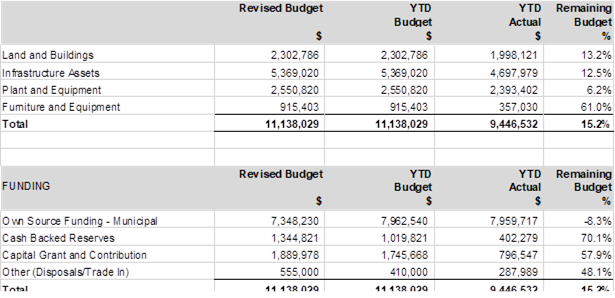
The full capital works program is listed in detail in Note
5 in Attachment 1.
6. Cash
Backed Reserves (Note 6 Page 60)
The cash backed reserves schedule provides a detailed
summary of the movements in the reserves portfolio, including transfers to and
from the reserve. The balance as at 30 June 2020 is $10,976,526. This is
a net reduction of $2,040,454.
7. Rating
Information (Note 7 Page 61 - 62)
The notices for rates and charges levied for 2019/20 were
issued on 19 July 2019. The Local Government Act 1995 provides
for ratepayers to pay rates by four instalments. The due dates for each
instalment are:
|
|
Due Date
|
|
First Instalment
|
26 August 2019
|
|
Second Instalment
|
29 October 2019
|
|
Third Instalment
|
7 January 2020
|
|
Fourth Instalment
|
10 March 2020
|
The outstanding rates debtors balance as at 30 June 2020 is
$1,066,726 including deferred rates ($108,770) and excluding ESL debtors and
pensioner rebates.
8. Receivables
(Note 8 Page 63)
Total trade and other receivables (inclusive of Prepayments
& Accrued income) as at 30 June 2020 is $2,123,159.
Administration has been regularly following up all
outstanding items by issuing reminders when they are overdue and subsequently
initiating a formal debt collection process when payments remain outstanding for
long periods of time.
Below is a summary of the significant items that have been
outstanding for over 90 days:
· $1,812,096 relates to unpaid infringements (plus costs)
over 90 days. Infringements that remain unpaid for more than two months are
sent to the Fines Enforcement Registry (FER), which then collects the
outstanding balance on behalf of the City for a fee.
$971,183 of this amount has been transferred to long-term
infringement debtors (non-current portion). Due to the aged nature of some of
the unpaid infringements, a provisional amount of $186,666 has been calculated
as doubtful debts for the current portion (within 12 months) and a provisional
amount of $196,072 has been calculated as doubtful debts for the non-current
portion (greater than 12 months). This treatment is in accordance to the new
requirements of the changes in the Accounting standards (AASB 9).
· $159,058 (9%) relates to cash-in-lieu of car parking
debtors. In accordance with the City’s Policy 7.7.1 Non-residential
parking, Administration has entered into special payment arrangements with
long outstanding cash in lieu parking debtors to enable them to pay over a
fixed term of five years.
On 8 April 2020, the Minister of Planning WA issued a
provision that exempts proponents from making cash in lieu related payments for
existing or new non-residential development to the City. This exemption is
effective up to the earlier date of either: -
a) 90 days after the
date upon which the State of Emergency Declaration ceases to have effect or is
revoked; or
b) Midnight, 1 May
2023.
Also taking into consideration the expected impact of
COVID-19, Administration will calculate a provision amount to reflect the
probability of not collecting outstanding monies owed to the City. All debtor
categories will be reviewed on a case by case basis.
9. Beatty
Park Leisure Centre – Financial Position report (Note 9 Page 64)
As at
30 June 2020, the Centre’s position is tracking favourably with an
operating deficit amount of $881,081 (excluding depreciation) compared to the
year to date budgeted deficit amount of $1,237,697.
Please
note allocation journals have not been processed as yet due to the accounts
still being finalised.
10. Explanation
of Material Variances (Note 4 Page 6 - 53)
The materiality thresholds used for reporting variances are
10% and $20,000 respectively. This means that variances will be analysed and
separately reported when they are more than 10% (+/-) of the year to date
budget and where that variance exceeds $20,000 (+/-). This threshold was
adopted by Council as part of the budget adoption for 2019/20 and is used in
the preparation of the statements of financial activity when highlighting
material variance in accordance with Financial Management Regulation 34(1)
(d).
In accordance to the above, all material variances as at 30
June 2020 have been detailed in the variance comments report in Attachment 1.
Consultation/Advertising:
Not
applicable.
Legal/Policy:
Section 6.4 of the Local Government Act 1995 requires a local government to prepare an annual financial
report for the preceding year and other financial reports as prescribed.
Regulation 34 (1) of the Local Government (Financial
Management) Regulations 1996 requires the
local government to prepare a statement of financial activity each month,
reporting on the source and application of funds as set out in the adopted
annual budget.
A
statement of financial activity and any accompanying documents are to be
presented at an Ordinary Meeting of the Council within two months after the end
of the month to which the statement relates.
Section 6.8 of the Local Government Act 1995, specifies that a local government is not to incur
expenditure from its Municipal Fund for an additional purpose except where the
expenditure is authorised in advance by an absolute majority decision of
Council.
Risk Management Implications:
Low: Provision of monthly
financial reports to Council fulfils relevant statutory requirements and is
consistent with good financial governance.
Strategic Implications:
Reporting
on the City’s financial position is aligned with the City’s Strategic
Community Plan 2018-2028:
Innovative
and Accountable
Our resources and assets are planned and managed in an
efficient and sustainable manner.
Our community is aware of what we are doing and how we are
meeting our goals.
Our community is satisfied with the service we provide.
We are open and accountable to an engaged community.
SUSTAINABILITY IMPLICATIONS:
Not
applicable.
Financial/Budget Implications:
Not
applicable.
Ordinary Council Meeting Agenda 18
August 2020
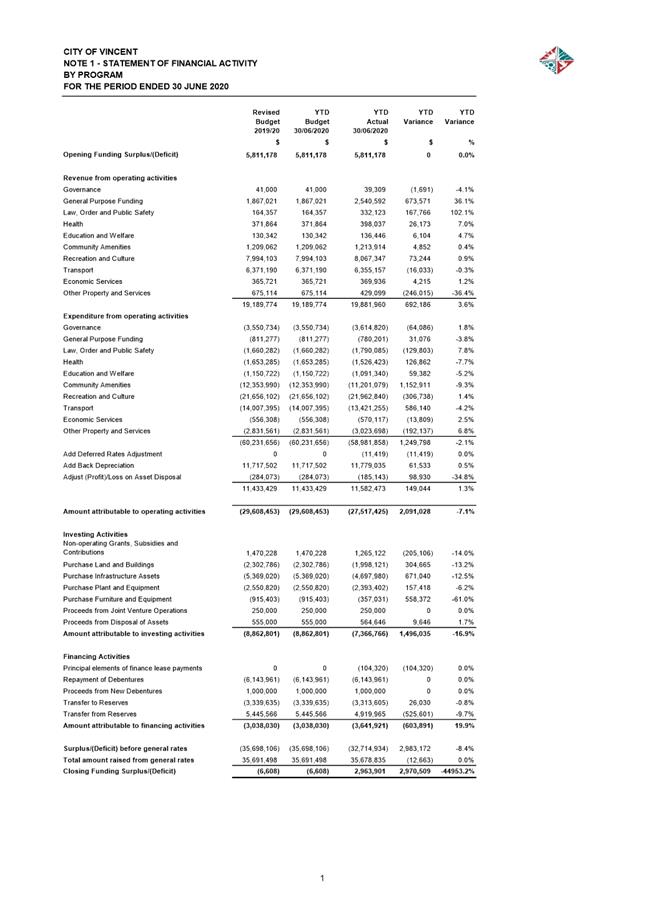
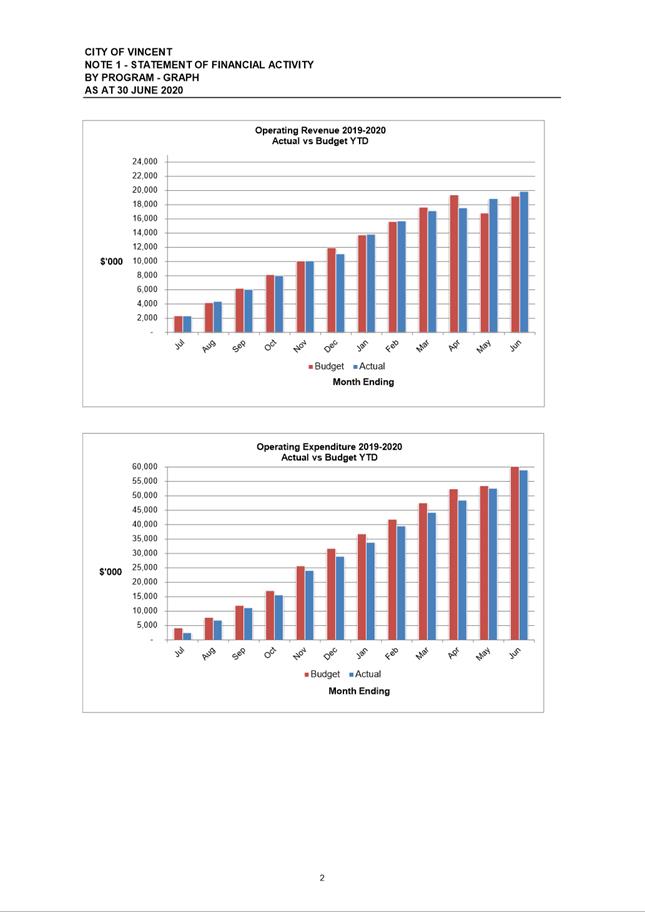
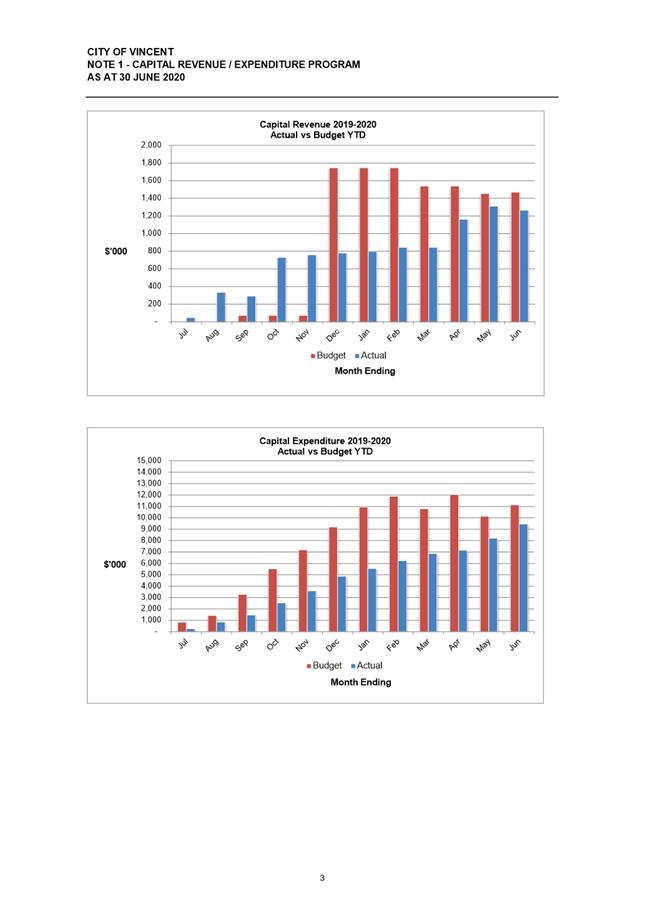
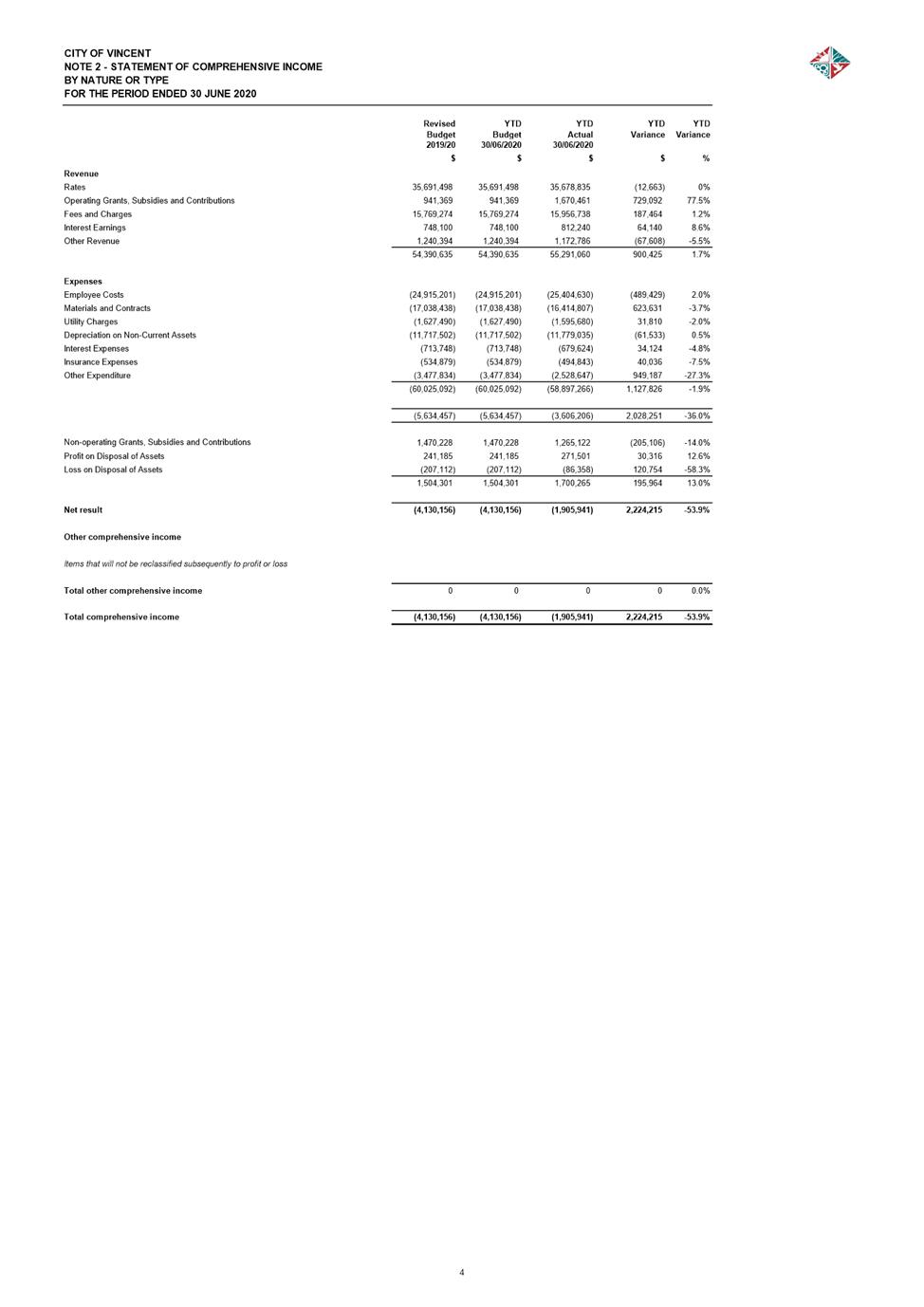
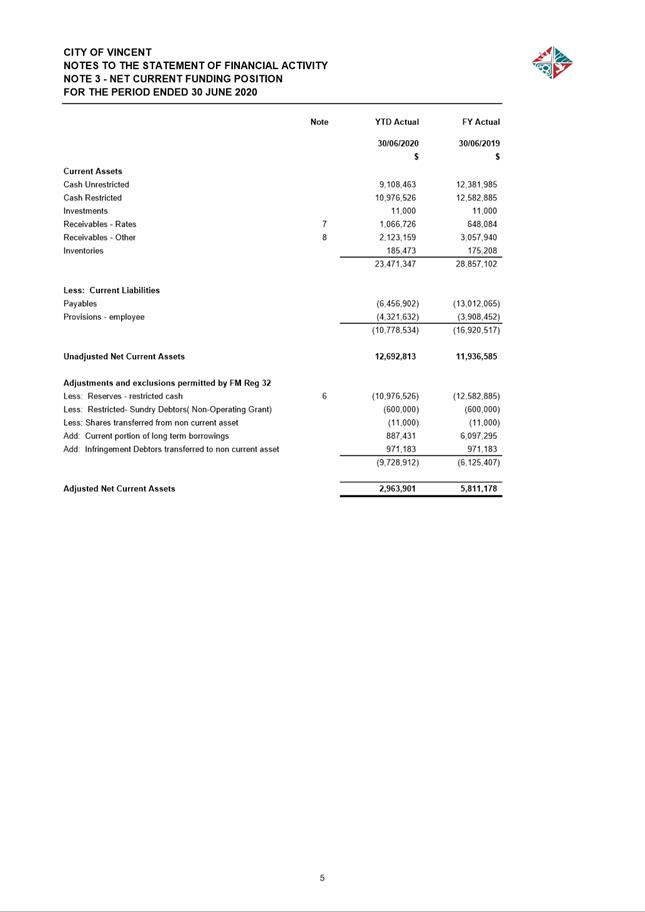
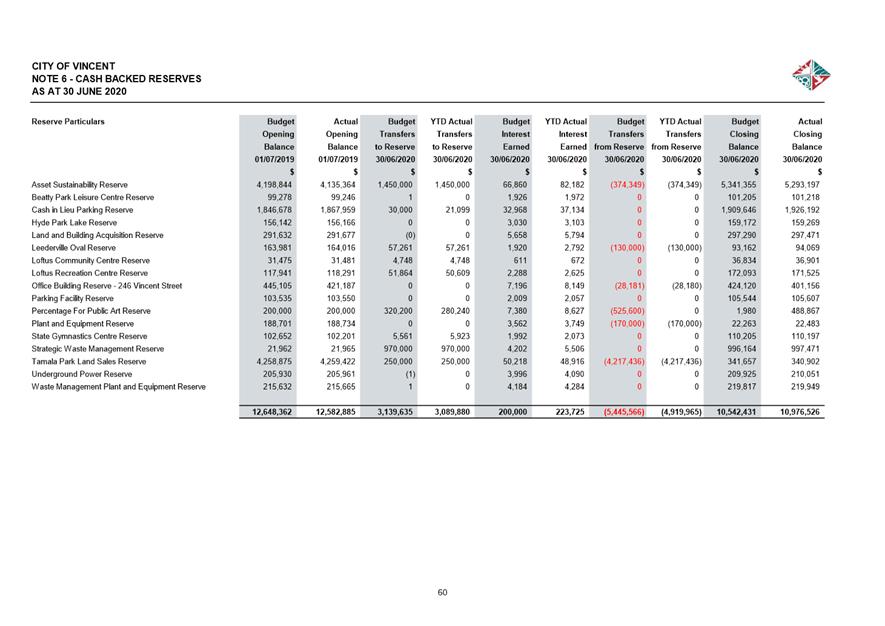
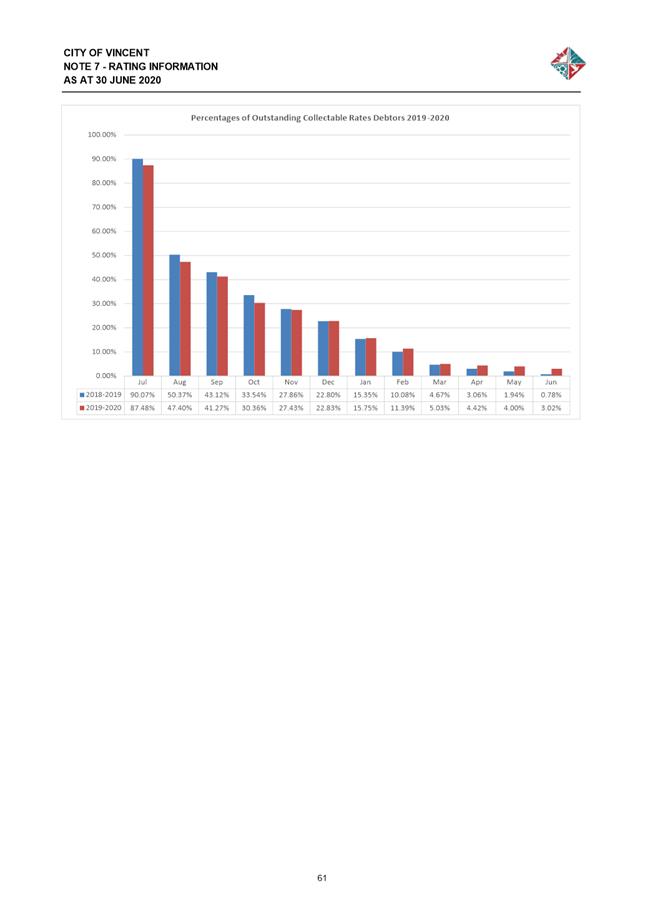
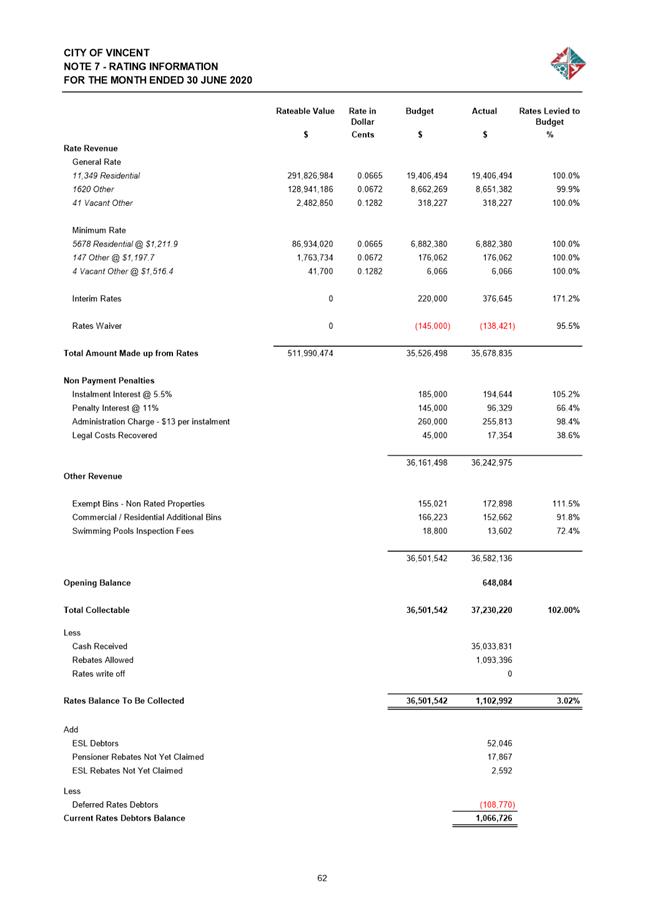
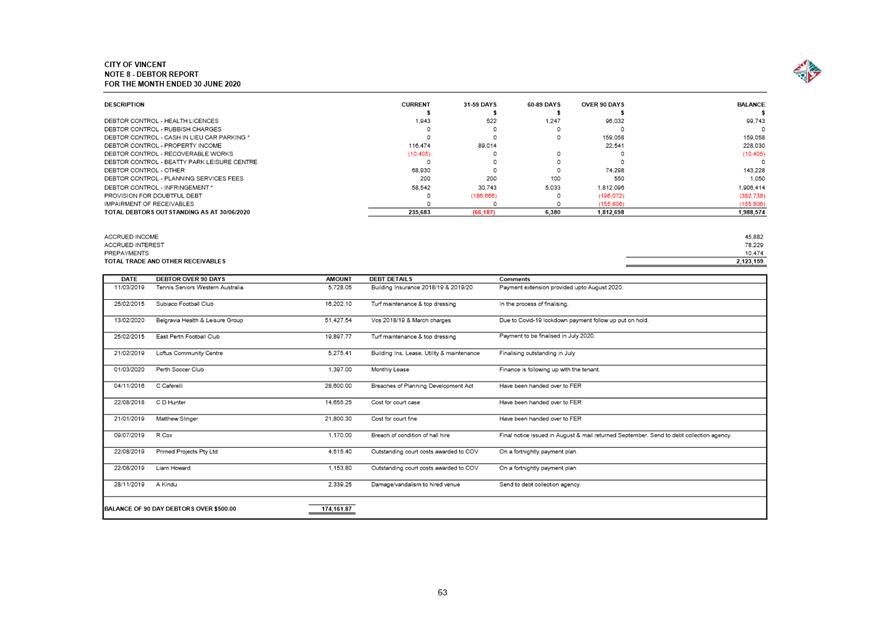
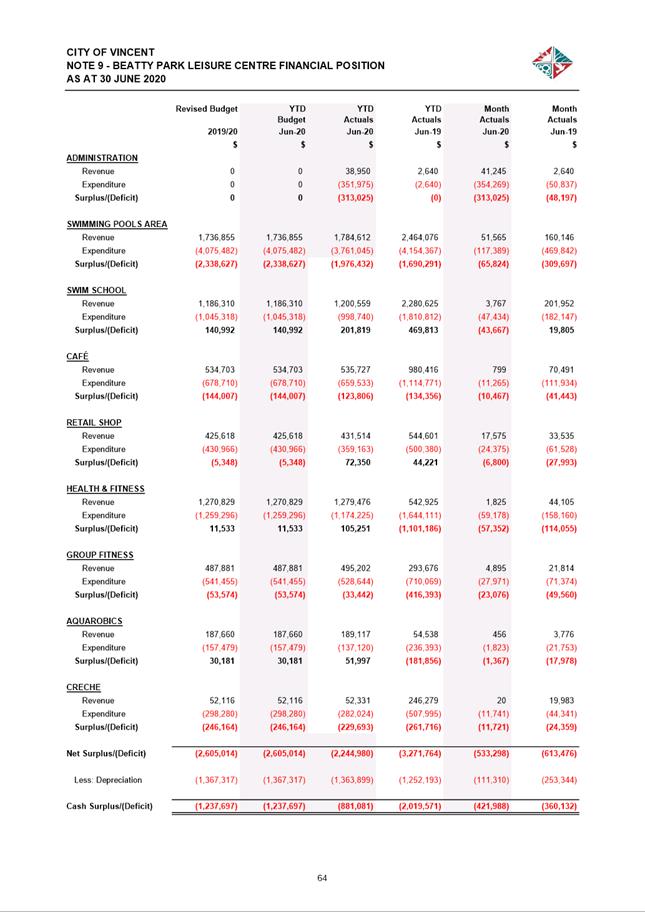
12 Chief
Executive Officer
12.1 Progress
update on the Sustainable Environment Strategy 2019-2024
Attachments: 1. Progress
update summary of implementation of SES ⇩ 
|
Recommendation:
That
Council RECEIVES the progress update on the City’s Sustainable
Environment Strategy 2019 – 2024, at Attachment 1.
|
Purpose of Report:
To update Council on the
progress of the City’s Sustainable Environment Strategy 2019 – 2024
(SES).
Background:
The
SES was adopted by Council on 23 July 2019. It set out forty strategies to be
implemented across five key opportunity areas (energy, water, transport, waste
and urban greening & biodiversity). Implementation of these strategies is
projected to deliver the outcomes and targets set out in the SES. An overview
of the progress to date is at Attachment 1.
The
Implementation Plan that accompanies the SES was noted by Council but not
formally adopted due to the need for flexibility and responsiveness to changing
technologies and opportunities. Being an administrative “working”
document allows for removal and replacement of redundant actions and the
addition of new actions that are more effective at achieving SES outcomes.
Details:
Each of the forty
strategies in the SES is underpinned by multiple actions to be completed
between 2019 and 2024. These actions include one-off projects, multi-year
programs and ongoing initiatives. They are listed in the Implementation Plan,
which is reviewed annually to ensure that they remain relevant and up to date.
The
first annual review of the Implementation Plan is currently under way. Actions
completed in 2019/20 have been identified and used to inform this update. The
costs associated with the completed actions are now being updated.
Administration
is confirming actions scheduled for 2020/21 based on the recently adopted
Annual Budget and updating the proposed schedule of actions for 2022 and
beyond. An update on the Implementation Plan will be provided to Council in
February/March 2021 following completion of the review, and annually
thereafter.
The progress update at Attachment
1 shows the status of each SES Strategy as being either:
· “Plan”
– predominantly in the planning phase, though some preliminary actions
may have been completed;
· “Do”
– predominantly in progress of delivery/implementation;
· “Check”
– the nominated actions have been completed and outcomes are currently
being assessed; and
· “Act”
– adjustments/corrections are being made to optimise outcomes.
The colour coding used in
the progress update indicates if implementation of each strategy is on track as
originally planned (green), delayed but able to be brought back on track (orange)
or at risk of not being delivered (red).
Nine strategies are
predominantly in the “plan”, twenty-six in the “do”,
five in the “check” and zero in the “act” phase (as
show in figure 1 below). Thirty-four are on track, with six delayed and none at
risk of non-delivery (as shown in figure 2 below).

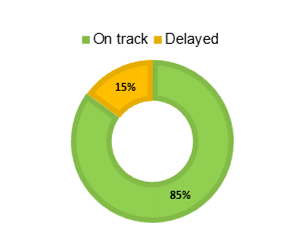
Figure 1.
Phases of implementation SES strategies at July 2020. Figure
2. Tracking of implementation schedule
Key achievements in
2019/20:
Energy
Major progress was made
in reducing greenhouse gas emissions through increased use of renewable energy
and energy efficiency across numerous City-owned sites and facilities.
Highlights include:
· Completion
of solar installations under phase 1 of the City’s solar PV program;
· Feasibility
assessment of phase 2 of the solar PV program (installations commencing
2020/21);
· Upgrade
of Beatty Park Leisure Centre indoor space heating to geothermal energy;
· Upgrade
of Beatty Park Leisure Centre hot water systems to high efficiency modular
units; and
· Multiple
building and public space LED lighting upgrades.
Transport
A number of
transport-related projects have been progressed. Highlights include:
· Development
of the draft Accessible City Strategy (now ready for review by the
Sustainability and Transport Advisory Group prior to broader community
advertising);
· Relocation
of Rangers from the Depot to the Library combined with changes to Ranger
transport, saving vehicle mileage and greenhouse gas emissions;
· Continued
transition of the City’s vehicle fleet to renewable energy, with 50% of
passenger vehicles now hybrid or fully electric, utility vehicles all changed
to the most fuel efficient model available, and acquisition of the City’s
first hybrid truck;
· Train
station access, bus shelter and bus route improvements completed and ongoing;
and
· Roll-out
of the Your Move Program to major employers in the City (engagement now under
way).
Water
Water-related highlights
include:
· Re-endorsement
of the City as a Waterwise Council, with retention of Gold status;
· Completion
of Brisbane Street car park upgrades in accordance with water sensitive urban
design principles;
· Review
of irrigation requirements for the City’s reserves based on the Public
Open Space Hierarchy, with identification of further water saving
opportunities; and
· Expansion
of the City’s Adopt a Verge program to further reduce community water
use.
Waste
There has been
significant progress in implementing the City’s Waste Strategy 2018
– 2023. Highlights include:
· Completion
of appraisals and presentation of options to Council for:
§ Recovery
of organic material (food and green waste);
§ Bulk
hard waste collection; and
§ Commercial
waste collection;
· Implementation
of the multi-unit development waste recovery trial; and
· Increased
waste avoidance from City operations through the use of cardboard
event/promotional banners (avoiding the landfilling of over 150 single use
vinyl banners) and a significant shift away from paper-based systems and
processes within the City’s Administration.
Urban Greening and
Biodiversity
Implementation of the
City’s Greening Plan continued, with highlights including:
· Maximising
canopy cover on Green Street through a major planting of Western Australian native
peppermint (Agonis flexuosa) trees – totalling 1.4km of greenway
planting;
· Exceeding
the annual target of 1.5km of greenway plantings, with additional street trees
planted on Berryman, Sydney, Cliveden and Redfern
Streets; and
· Eco-zoning of Lynton Street Reserve, replacing more than
50% of the turf area with native plantings and nature play.
Key challenges in
2019/2020:
There were challenges in
2019/20 that led to delays on SES-related activities. Key among these was
COVID-19, which resulted in cancellation of community events and activities
including the Native Plant Sale and Sustainability Pop-up-Hub, and the deferral
of projects across all five key opportunity areas. Notable among these:
· Energy
efficiency upgrades at some locations;
· New
active transport initiatives for staff;
· Full
implementation of the City’s centralised irrigation control system;
· Rollout
of the City’s three-bin system and the commencement of FOGO collection;
and
· Some
planting activities to enhance habitat and biodiversity.
Non-COVID delays were
limited. Key among these was delayed installation of the solar PV system at the
City’s Administration Centre resulting from prolonged network operator
approval processes and the unexpected requirement to upgrade electrical infrastructure.
Consultation/Advertising:
Nil.
Legal/Policy:
Nil.
Risk Management Implications:
Low.
It is low risk for
Council to consider the progress update on the implementation of the SES.
Strategic Implications:
This is in keeping with
the City’s Strategic Community Plan 2018-2028:
Enhanced
Environment
We have minimised our impact on the environment.
We have improved resource efficiency and waste management.
Our urban forest/canopy is maintained and increased.
Accessible
City
Our pedestrian and cyclist networks are well designed,
connected, accessible and encourage increased use.
We have better integrated all modes of transport and
increased services through the City.
We have embraced emerging transport technologies.
Sensitive
Design
Our planning framework supports quality design, sustainable
urban built form and is responsive to our community and local context.
Innovative
and Accountable
Our resources and assets are planned and managed in an
efficient and sustainable manner.
SUSTAINABILITY IMPLICATIONS:
This is in keeping with
all key sustainability outcomes of the SES.
Financial/Budget Implications:
Funding
for SES implementation actions has been included in the City’s 2020/21
budget and key SES projects/programs are reflected in the City’s
Corporate Business Plan. Longer term funding of SES implementation is included
in the City’s Long Term Financial Plan.
Ordinary Council Meeting Agenda 18
August 2020
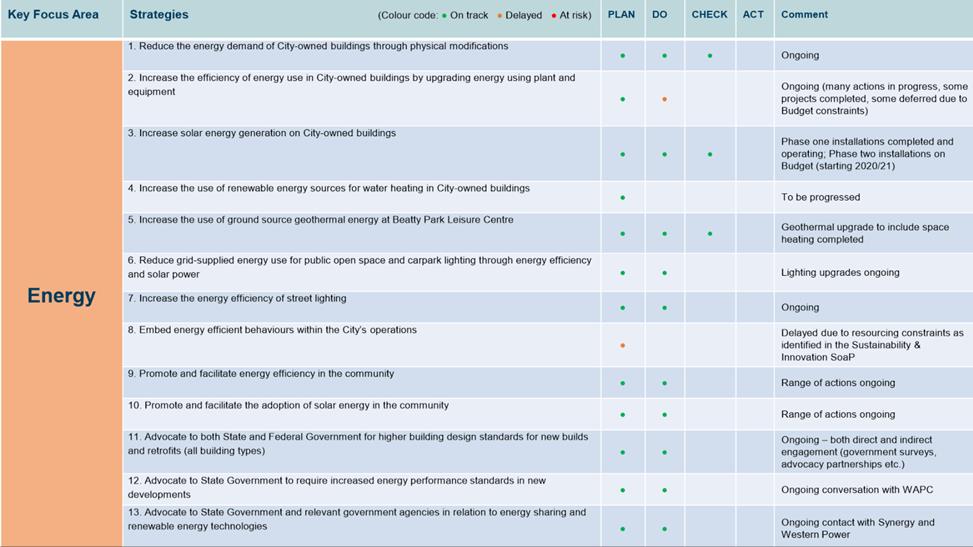
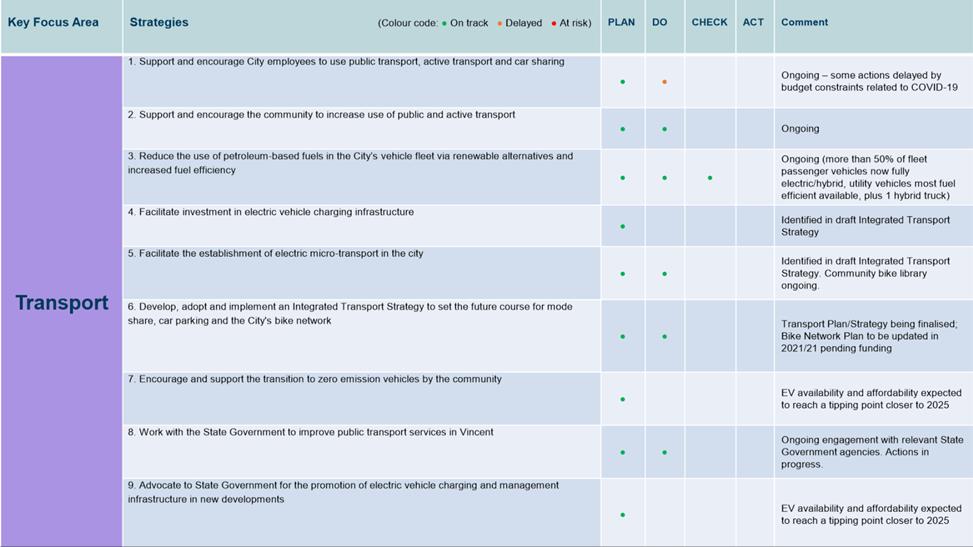
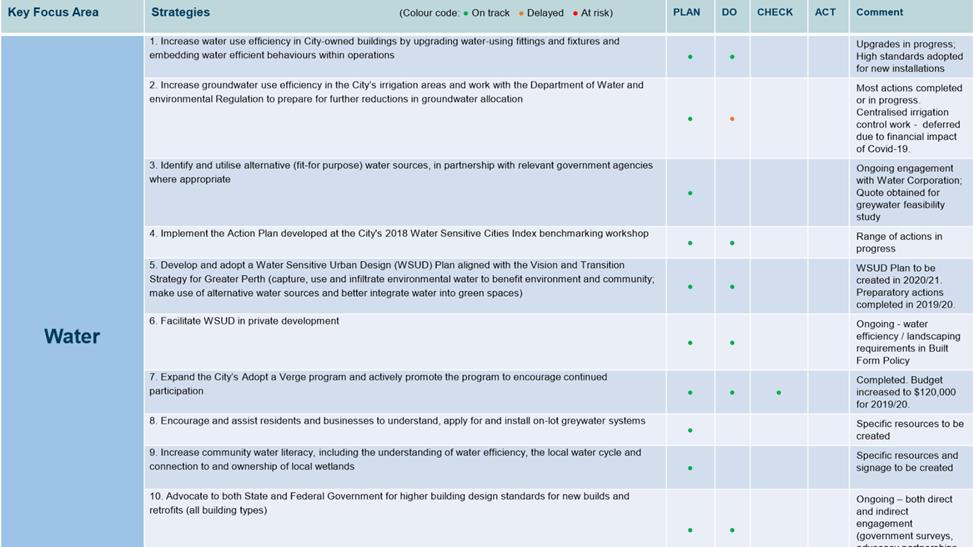
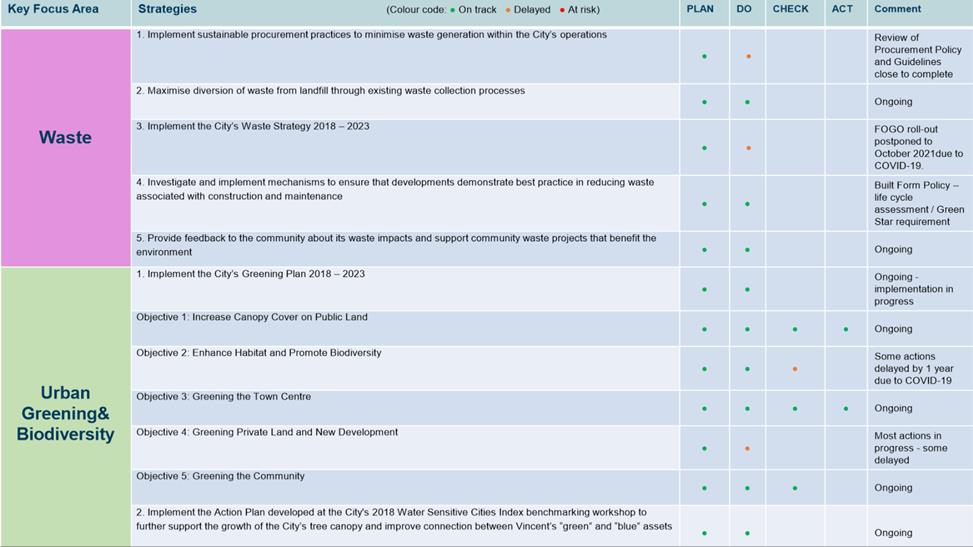
12.2 Amendments
to new lease to HISP Pty Ltd - Beatty Park Cafe, 220 Vincent Street,
Leederville
Attachments: Nil
|
Recommendation:
That
Council:
1. APPROVES
the City entering into a lease of the café at Beatty Park Leisure
Centre, 220 Vincent Street, Leederville to Hospitality Industry Service
Providers (HISP) Pty Ltd (HISP) on the key terms as approved by the Council
at its Ordinary Meeting of 10 December 2019 (Item 11.1) and amended by the
Council at its Ordinary Meeting of 17 March 2020 (Item 12.1), subject to the
following amendments to reflect the new lease commencement date and rent
abatement period:
“1.1
Term: Three
years, commencing on 25 1 May August 2020;
1.3
Rent: $22,984
plus GST per annum, with no rent payable between 1 May 25 August
2020 and 31 August 2020 31 January 2021
(inclusive) to allow for the
café set up period and to take into account
the proposed renovations to
the indoor pool at Beatty Park Leisure Centre potentially interrupting the tenant’s
use of and trade from the premises;”
2. NOTES:
2.1 the
proposed renovations of the Beatty Park Leisure Centre, 220 Vincent Street,
Leederville (Centre) indoor swimming pool which are anticipated to commence
late 2020 and take three to five months to complete;
2.2 that
while the renovations are occurring, it is likely HISP’s operations and
trade at the café will be impacted to some degree; and
2.3 that
a five month 1 week rent free period is appropriate to allow HISP time to set
up the café and is provided in lieu of any compensation or rent
abatement that HISP may be eligible for as a result of the disruption to its
use of the café as a result of the indoor pool renovations.
|
Purpose of Report:
To consider the proposed
amendments to the lease of the café at Beatty Park Leisure Centre
(Café) to Hospitality Industry Service Providers (HISP) Pty Ltd (HISP).
Background:
At the Ordinary Meeting
of Council held on 10 December 2019 (Item 11.1), Council considered the lease
proposal for HISP and
resolved to approve providing local public notice pursuant to section 3.58 of
the Local Government Act 1995 (Act) of the proposed lease of the
Café to HISP on the key commercial terms as proposed by the parties.
Following consideration
of the submissions received during the advertising period, the lease was
approved with minor amendments to the proposed lease commencement date at the
Ordinary Meeting of Council on 17 March 2020 (Item 12.1).
Prior to the lease commencement
date (1 May 2020), the COVID-19 pandemic required the full closure of Beatty
Park Leisure Centre (Centre). As a result, HISP’s lease commencement date
was deferred until the Centre had re-opened and it was appropriate for HISP to
commence operating.
Details:
HISP now wishes to
partially commence operating from the Café on 25 August 2020 with full
operation anticipated to commence on or around 1 September 2020. Therefore,
Administration requires approval to amend Council’s approval of 17 March 2020
to reflect the new lease commencement date of 25 August 2020.
Since the original lease
terms were negotiated, the renovations on the indoor pools at Beatty Park
Leisure Centre (Centre) have been brought forward and are now anticipated to
commence late in 2020. During the renovations the use of and trade from the
indoor pool side of the Café are likely to be affected, however, the
tenant will remain able to operate from the ‘dry side’ of the
Café during the indoor pool works.
The original lease terms
included a rent-free period of 4 months. As there is likely to be some
interruption to the trade and use of the Café during the indoor pool
works, Administration considers it is appropriate to provide an extension to
the rent-free period by one month and one week. This extended rent-free period
has been agreed to by the tenant and will be provided in lieu of any
compensation or rent abatement the tenant might otherwise have requested as a
result of the indoor pool works occurring.
Administration notes that
without the extended rent-free period, the tenant would need to provide
satisfactory evidence of its downturn in trade during the indoor pool works.
This would be difficult as the tenant would only have just commenced operating
at the Centre and would not have any historical financial statements for
comparison. As a result, the additional one month and one-week rent-free period
provides the tenant with certainty and is of less administrative burden to both
the tenant and the City.
The amended rent-free
period would commence on 25 August and expire on 31 January 2020. The proposed
rent-free period would:
· allow
HISP to commence a ‘soft opening’ of the Café on 25 August
2020 with full operation commencing around 1 September 2020 (i.e. one week
later); and
· reflect
the fact the indoor pool renovations may result in restrictions to HISP’s
use of and trade from the indoor pool side of the Café during this time.
If approved by Council,
Administration would amend the lease to reflect the new commencement date and
adjusted rent-free period. It would also include a term in the lease to the
effect that the rent-free period is granted in lieu of any compensation and/or
rent abatement that might otherwise apply as a result of the possible downturn
in HISP’s trade during the indoor pool renovations.
HISP has agreed to the
proposed amendments to the lease.
Consultation/Advertising:
Nil.
Legal/Policy:
Commercial Tenancy
(Retail Shops) Agreements Act 1985 (WA) – provides that reasonable
compensation is payable to a tenant within a retail shopping centre if their
quiet enjoyment is interrupted by the landlord. The Centre is not a retail
shopping centre, however, the principles of this Act are still applicable.
Agreeing on a rent abatement period to account for HISP’s downturn in
trade during the indoor pool works period should satisfy the requirements of
the Act, and has been agreed to by HISP.
Risk Management Implications:
Low: There
is a low risk for Council to consider approving the proposed amendments to the
lease of the
Café.
Strategic Implications:
This is in keeping with
the City’s Strategic Community Plan 2018-2028:
Thriving Places
Our physical assets are efficiently and effectively managed
and maintained.
Innovative
and Accountable
Our resources and assets are planned and managed in an
efficient and sustainable manner.
SUSTAINABILITY IMPLICATIONS:
Nil.
Financial/Budget Implications:
The proposed one month
and one week extension to the rent-free period for the lease would result in
approximately $2,361.91 in rent not being payable by HISP. However, outgoings
($14,000 plus GST per annum) would be payable by HISP from 1 September 2020 and
would remain payable for the balance of the rent-free period.
12.3 Extension of
term of COVID-19 Relief and Recovery Committee and amendment to Terms of
Reference
Attachments: 1. Evaluation
Report to COVID-19 Committee 21 July 2020 ⇩ 
2. Amended Terms of
Reference - mark-up ⇩ 
|
Recommendation:
That
Council:
1. NOTES
the endorsed report to the COVID-19 Relief and Recovery Committee of 21 July
2020 providing an evaluation and review of the COVID-19 Relief and Recovery
Strategy, at Attachment 1;
2. APPROVES
the amendments to the COVID-19 Relief and Recovery Committee Terms of
Reference to extend membership until 31 December 2020 and clarify the
objectives and roles and responsibilities of the Committee, as shown marked
up in Attachment 2;
3. In
accordance with section 5.16(3)(b) of the Local Government Act 1995
REVOKES BY ABSOLUTE MAJORITY the following power delegated to the COVID-19
Relief and Recovery Committee at the 30 March 2020 Ordinary Meeting of
Council:
3.1
grant licences under regulation 17 of the Local Government (Uniform Local
Provisions) Regulations 1996.
4. In
accordance with regulation 12(1) of the Local Government (Administration)
Regulations 1996, PROVIDES local public notice of the dates, times and
places of the COVID-19 Relief and Recovery Committee meetings.
|
Purpose of Report:
To consider extending the
term of the COVID-19 Relief and Recovery Committee to 31 December 2020.
Background:
At the Special Meeting on
30 April 2020, Council established the COVID-19 Relief and Recovery Committee
(the Committee) to provide oversight of the COVID-19 Relief and Recovery
Strategy (the Strategy). It was agreed the Committee would meet on a weekly
basis to make timely decisions in response to the COVID-19 pandemic, and ensure
accountability of the City’s relief and recovery actions.
It was agreed the term of
the Committee would be until 30 September 2020. The Committee has since
exercised its discretion to adjust the meeting frequency to fortnightly from
July, and now monthly from August, due to the effectiveness of public health
measures in Western Australia.
Details:
A three-month evaluation
of the Strategy was reported to the Committee on 21 July 2020, and can be
viewed as Attachment 1. It was concluded the Strategy and Committee are
considered to have been a success to date.
The Strategy is still an
active working document of the City with the priorities in the coming months
being recovery and rebound, preparedness for future outbreaks, maintaining good
governance and communication relating to COVID-19. The Committee has therefore
recommended its term be extended for three months to 31 December 2020.
In order to allow the
extension of the term of the Committee the Terms of Reference have been updated
as at Attachment 2. The Terms of Reference have also been updated to
clarify that the Committee’s roles and responsibilities. It is proposed
that the Committee will only exercise the power to award tenders over $250,000,
dispose of property or determine development applications if the matter is
urgent and cannot wait until the next Council Meeting.
If Administration
recommends that the Committee make a decision on one of the three matters as
set out above, a reason for the urgency of a decision will be provided in the
legal section of the report.
The agenda for Committee
meetings is circulated on the Friday prior to the meeting. Any Elected Member
may in writing (by email) to the Mayor or CEO request that an item listed in
the agenda is considered by Council, as opposed to the Committee. The Committee
will consider this request when considering the item at the Committee meeting.
The meeting frequency has
also been amended from weekly to monthly, with further meetings to be held as
agreed by the Committee.
Consultation/Advertising:
Nil.
Legal/Policy:
Section
5.8 of the Local Government Act 1995 sets out the requirements for
establishing a committee.
Risk Management Implications:
Low: It is low risk for Council to extend the
terms of the Committee to ensure Council continues to fulfil its functions
during the impact of COVID-19.
Strategic Implications:
This is in keeping with
the City’s Strategic Community Plan 2018-2028:
Innovative
and Accountable
We are open and accountable to an engaged community.
SUSTAINABILITY IMPLICATIONS:
Nil.
Financial/Budget Implications:
Nil.
Ordinary Council Meeting Agenda 18
August 2020
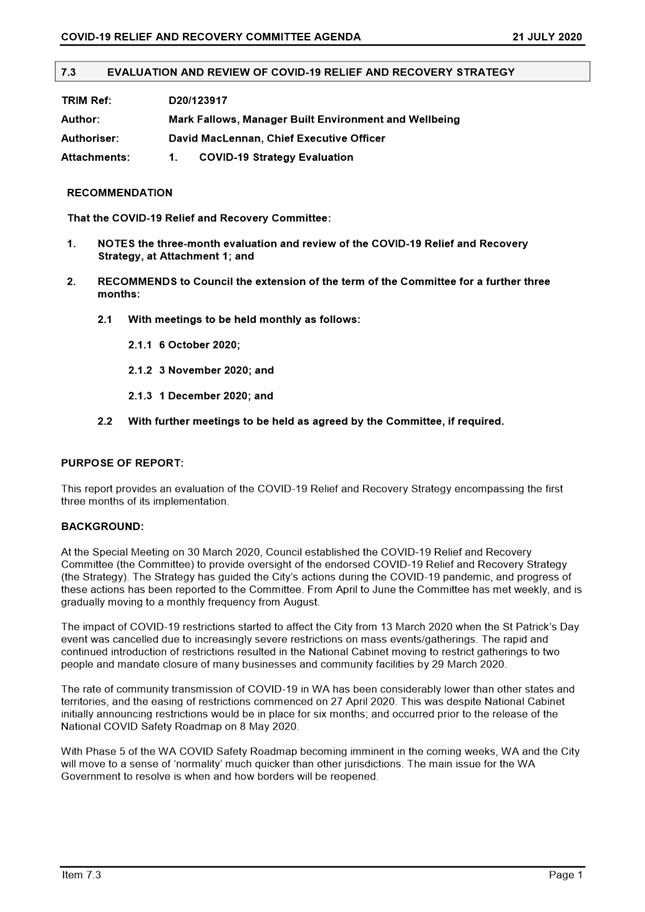
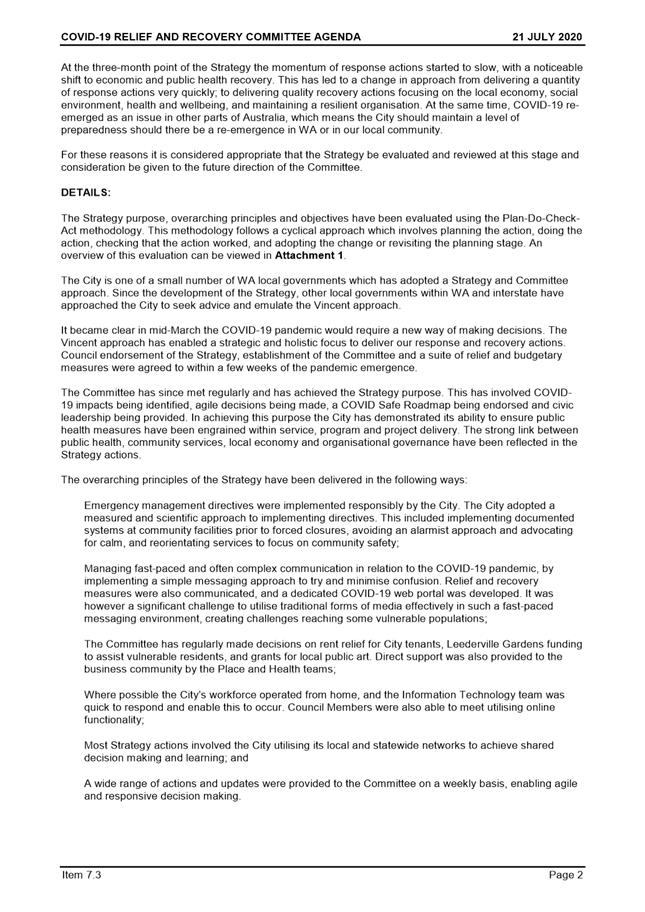
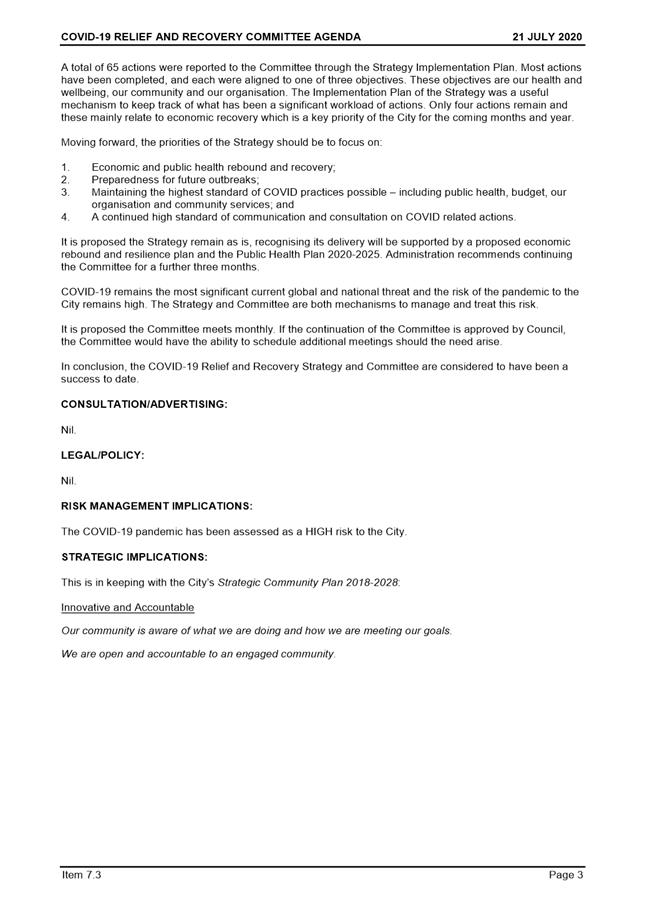
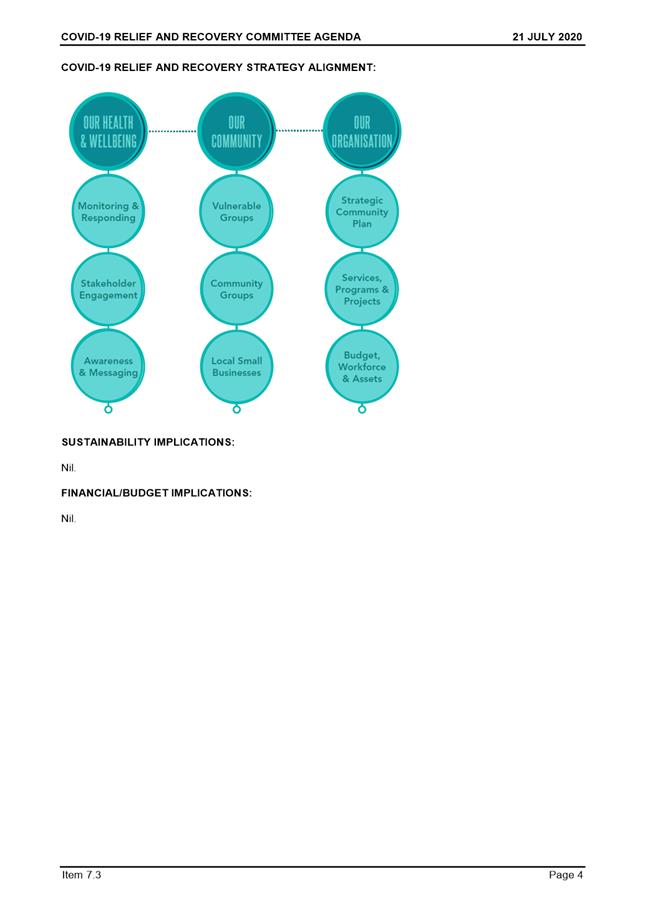
Ordinary Council Meeting Agenda 18
August 2020
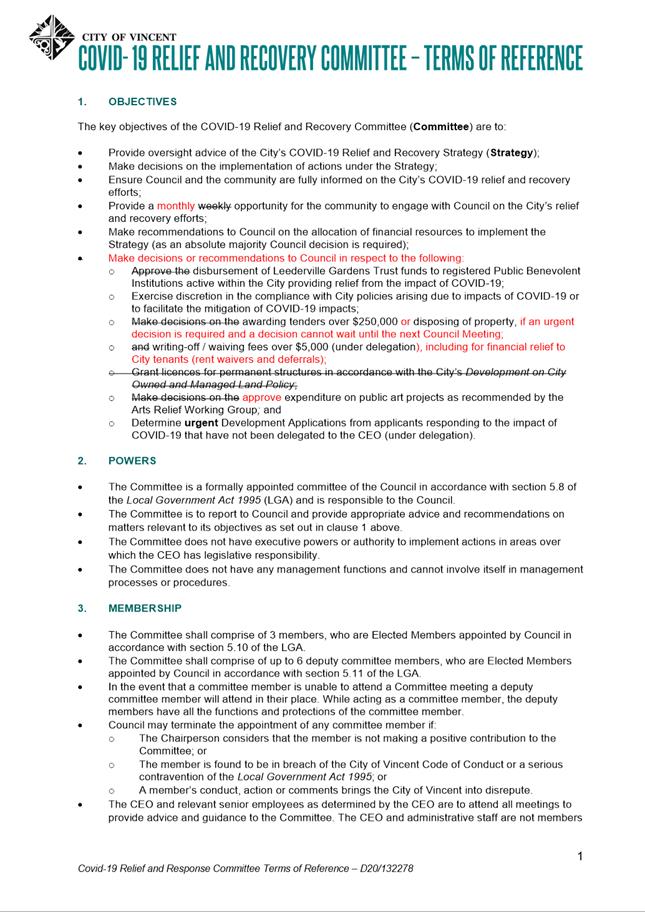
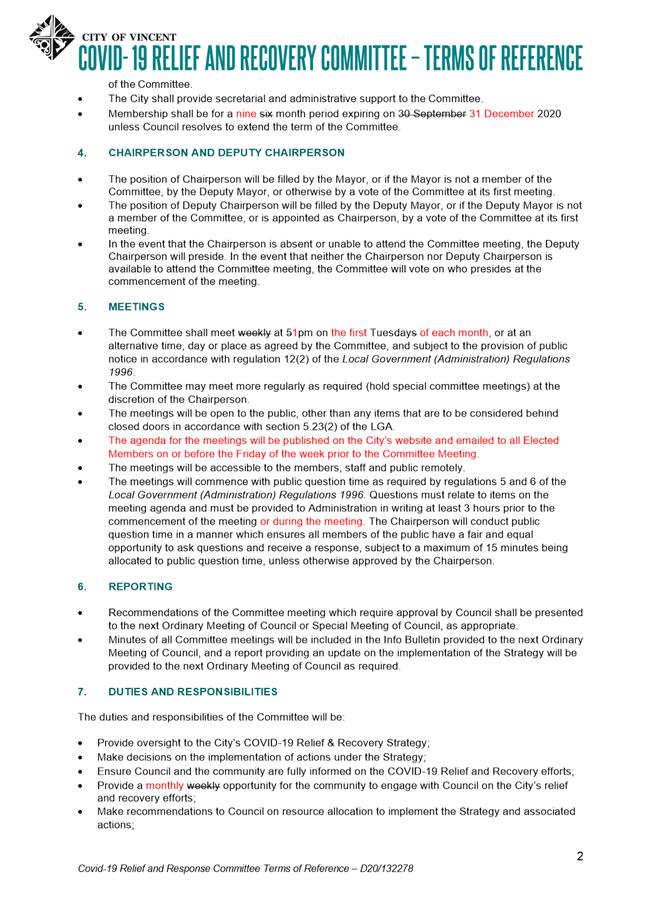
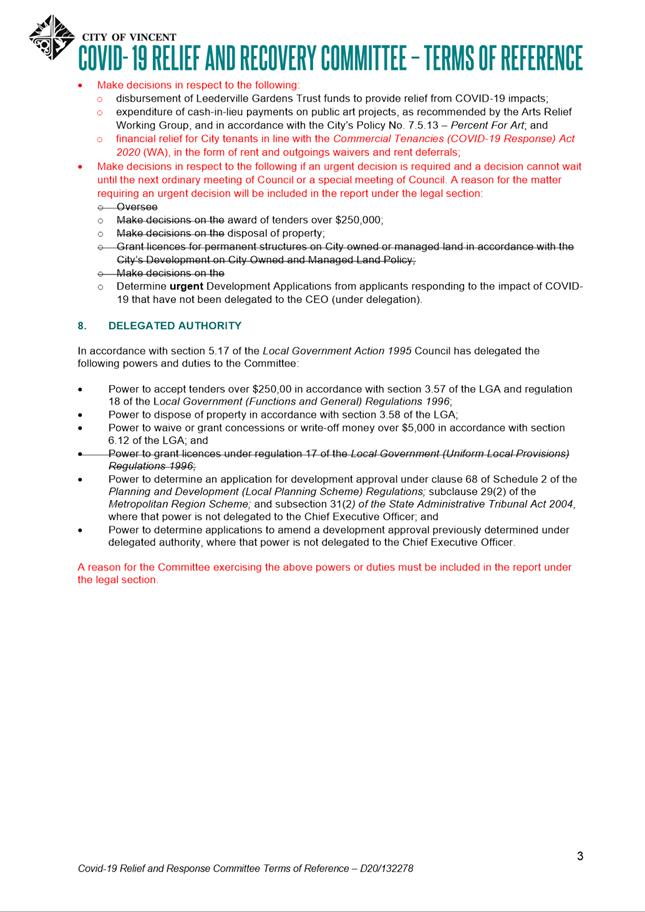
12.4 Amendment to
Council Delegations - Delegation to issue a heritage conservation notice
Attachments: 1. Proposed
Delegation 16.1.5 - Issue of Heritage Conservation Notice ⇩ 
|
Recommendation:
That
Council DELEGATES BY ABSOLUTE MAJORITY the power to issue a heritage
conservation notice under clause 13(2), (3), (4) and (5) of Schedule 2 of the
Planning and Development (Local Planning Schemes) Regulations 2015, to
the Chief Executive Officer, as detailed in Attachment 1.
|
Purpose of Report:
To
delegate power to the Chief Executive Officer to issue heritage conservation
notices (HCNs) under clause 13(2), (3), (4) and (5) of Schedule 2 of the Planning
and Development (Local Planning Schemes) Regulations 2015 (Regulations).
Background:
The power to issue HCNs
has not been delegated to the Chief Executive Officer. This prevents
Administration from taking action to ensure properties that are included on the
City’s Heritage List or located in a heritage area are properly
maintained to ensure that there is no loss or deterioration of the structural
integrity or other elements significant to the heritage place. There are 269
heritage places on the City’s Heritage List, of which 42 of these are
also on the State Register of Heritage Places.
Details:
Pursuant to clause 82 of
the Regulations, Council can delegate this power to the Chief Executive
Officer.
The purpose of delegating
this power is to enable routine decision making to be undertaken in a cost
effective and efficient manner, and will ensure that HCNs can be issued in a
timely manner to prevent any further deterioration to the property.
The issuing of HCNs will
be undertaken in accordance with the Regulations and are similar to other
statutory notices issued under the Planning and Development Act 2005 and
Building Act 2011. Any HCNs issued will be recorded in the
City’s Legal Action Register – Orders and Notices, which is
reported to Council quarterly as part of the Council Information Bulletin.
Administration is aware
of a few properties on the City’s Heritage List that are either subject
to proposed development or do not appear to be properly maintained. Where
engagement from the Administration is not successful in requiring the landowner
to maintain their property so as to ensure that there is no loss or
deterioration to the heritage place, the issuing of a HCN will assist in
ensuring these requirements are met.
The proposed new
delegation is at Attachment 1.
Consultation/Advertising:
Nil.
Legal/Policy:
Regulations 81-84 of the Planning
and Development (Local Planning Schemes) Regulations 2015.
Regulation 82(2) provides
that the delegation must be by absolute majority.
Risk Management Implications:
Medium: There is low
risk in Council approving the new delegation.
Strategic Implications:
This is in keeping with
the City’s Strategic Community Plan 2018-2028:
Innovative
and Accountable
Our community is aware of what we are doing and how we are
meeting our goals.
We are open and accountable to an engaged community.
SUSTAINABILITY IMPLICATIONS:
Nil.
Financial/Budget Implications:
Nil.
Ordinary Council Meeting Agenda 18
August 2020
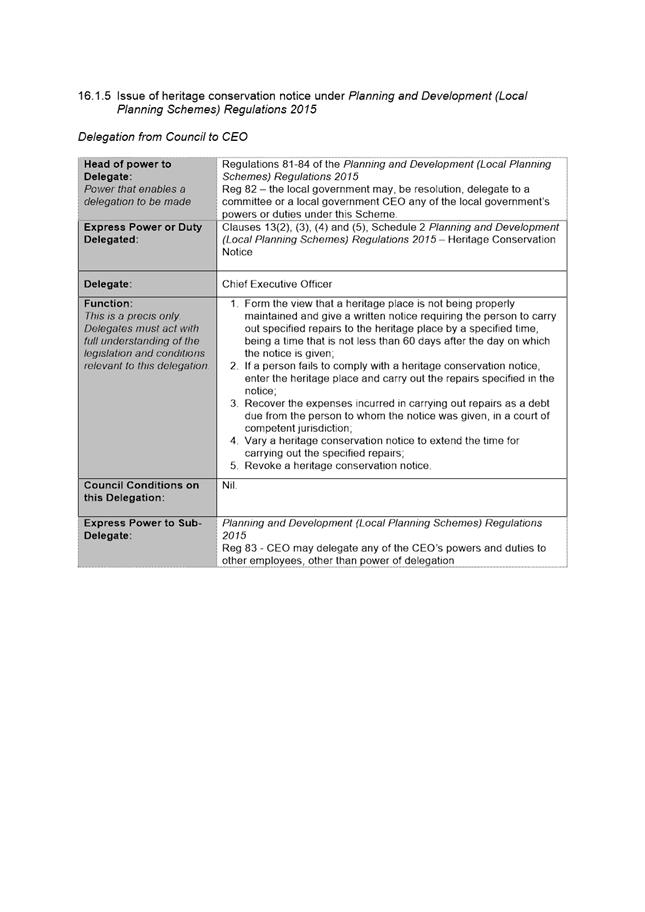
12.5 Appproval of
Governance Framework
Attachments: 1. DRAFT
- Governance Framework ⇩ 
|
Recommendation:
That
Council:
1. ADOPTS
the Governance Framework at Attachment 1;
2. NOTES
that the Chief Executive Officer will review the Governance Framework
following each Ordinary Local Government election and provide a report to
Council summarising the review and recommending any amendments be adopted by
Council within 4 months of the election; and
3. NOTES
that the Governance Framework will be subject to further formatting and
styling to be determined by the Chief Executive Officer, prior to
publication.
|
Purpose of Report:
For Council to adopt the
Governance Framework at Attachment 1.
Background:
A governance framework
assists in establishing accountability and transparency in decision making by
Council and Administration.
The Chief Executive
Officer’s 2019/20 Key Performance Indicator 5.1.2 was to develop a
Governance Framework and supporting capability which promotes quality, timely
and transparent decision making.
Over the last 8 months
Administration, in consultation with Elected Members, has developed five
governance principles, a framework overview and now the Governance Framework
document, as at Attachment 1.
The Governance Framework describes the principles and key roles that guide Council
in its decision-making and demonstrates to the community the processes
which the City uses to achieve its strategic priorities and undertake its service
delivery.
It also details how the community is involved in the
City’s affairs and decision-making processes.
The Governance Framework supports Council and
Administration by:
· assisting Elected Members in partnership with
Administration in delivering good governance on behalf of the community;
· providing clear guidelines for Council and Administration
in relation to their roles and responsibilities, and what is expected of them
in relation to performance; and
· acting as an induction tool for Elected Members and staff.
The Governance Framework will be
a live document and updated on a regular basis to reflect changes in
legislation and practices.
Details:
The proposed framework draws on best practice promoted by the Governance Institute
of Australia as well as the principles from a CPA Australia publication Excellence
in Governance in Local Government 2007.
Excellence in
Governance in Local Government 2007 is based on four principles:
1. Culture
and Vision;
2. Roles
and Responsibilities;
3. Decision
Making and Management; and
4. Accountability.
The proposed Governance
Framework includes a fifth principle: commitment to sustainability.
The inclusion of this
principle aligns with the City’s Strategic Community Plan objectives, the
Sustainable Environment Strategy and the priority attached to sustainability by
Council and the community.
This principle is
considered holistically to include sound financial, resource and environmental
management through-out the City’s operations and decision making.
The five principles bring
together the major processes, frameworks, systems, roles and relationships that
facilitate sound corporate governance at the City.
The Governance Framework
will promote these five principles being applied consistently across the City
and result in timely and quality decision making and service delivery,
increased transparency and accountability, sustainable financial, resource and
environmental management and effective risk management, legislative compliance
and internal controls.
Consultation/Advertising:
The Governance Framework
is proposed to be reviewed after each ordinary local government election (which
occurs every two years) to ensure it remains relevant and consistent with
legislative requirements. The outcome of the review and any proposed amendments
will be presented to Council for adoption within 4 months of the
election.
Legal/Policy:
The Governance Framework summarises key sections of the Local
Government Act 1995,
Local Government (Administration) Regulations 1996 and Local
Government (Rules of Conduct) Regulations 2007.
Regulation
9(1) of the Local Government (Rules of Conduct) Regulations 2007 allows
an Elected Member to undertake an administrative task if authorised to do so by
the CEO or Council. As a result of the City of Perth Inquiry an amendment to
these regulations has been prepared, which would remove the ability for the CEO
and Council to authorise this, expect where the Council needs to obtain legal
or other advice without the CEO’s direct involvement. In this case
Council can authorise a staff member to procure a consultant or a lawyer on the
Council’s behalf.
Risk Management Implications:
Low: The
adoption of a Governance Framework highlights the City’s commitment to
providing good governance by defining systems, policies, processes and a
methodology for ensuring accountability, probity and openness in the conduct of
City business.
Strategic Implications:
This is in keeping with
the City’s Strategic Community Plan 2018-2028:
Innovative
and Accountable
Our community is aware of what we are doing and how we are
meeting our goals.
We are open and accountable to an engaged community.
SUSTAINABILITY IMPLICATIONS:
Not applicable
Financial/Budget Implications:
Not applicable
Ordinary Council Meeting Agenda 18
August 2020
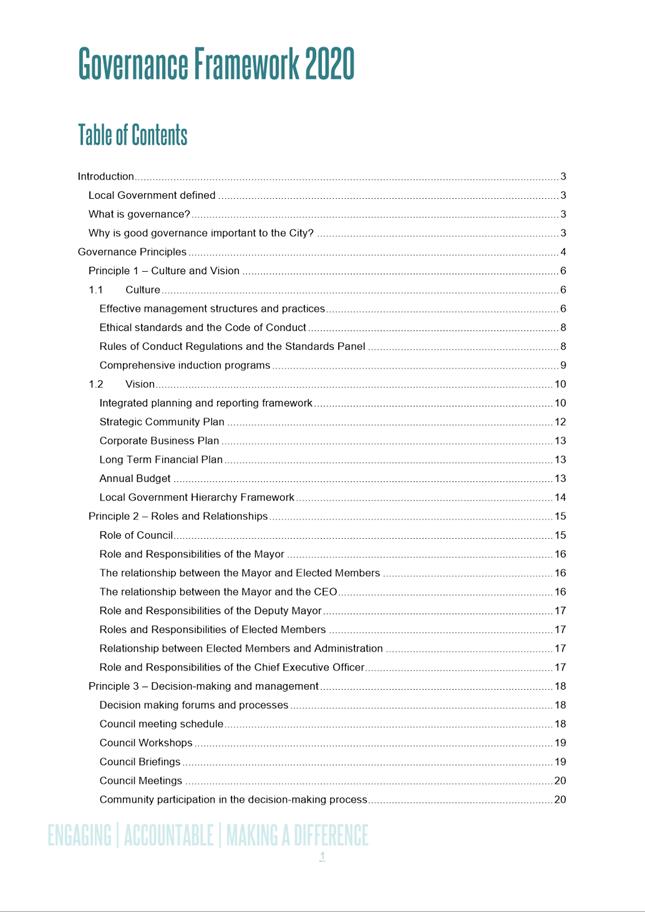
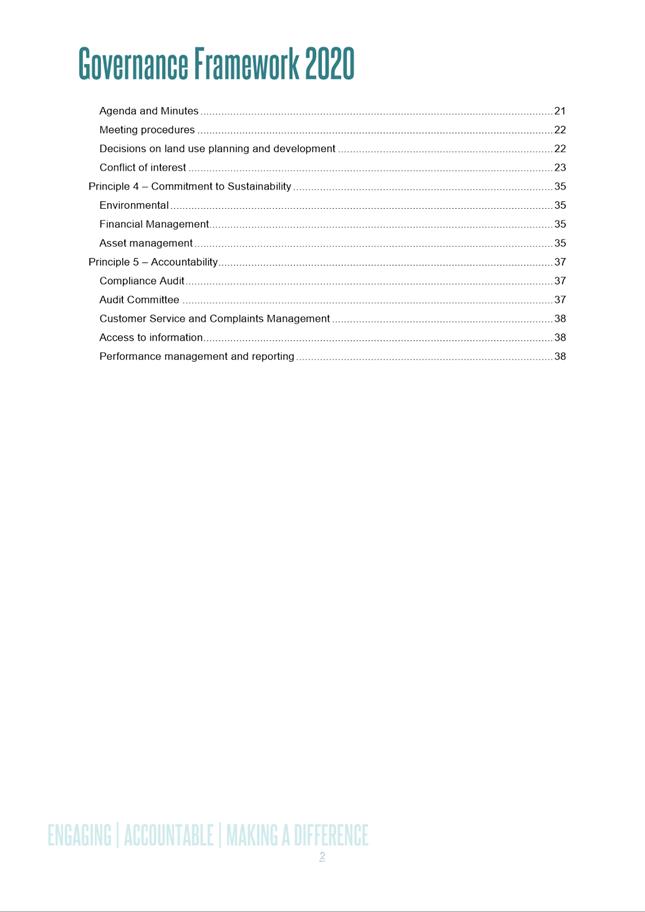
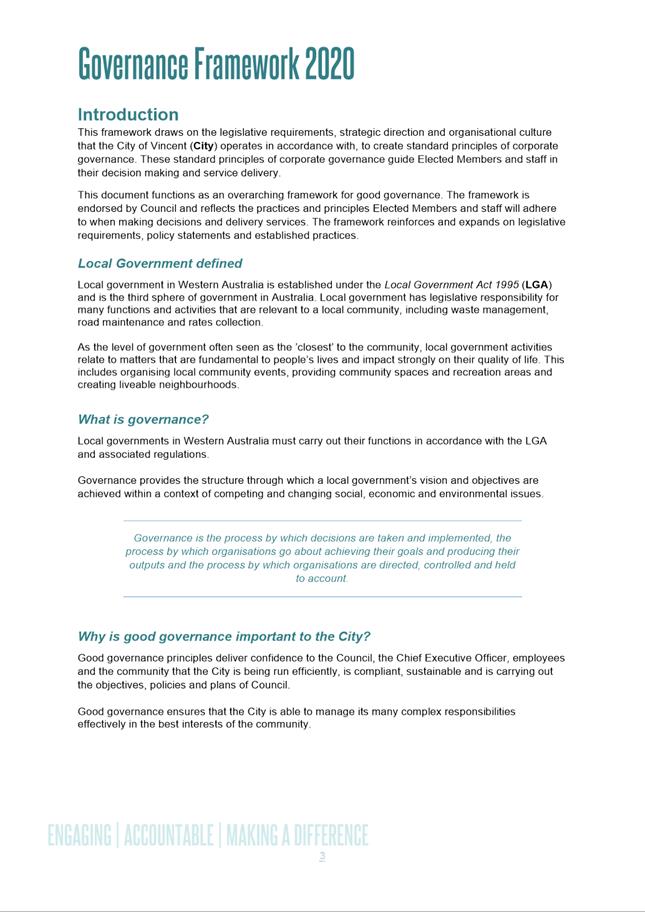
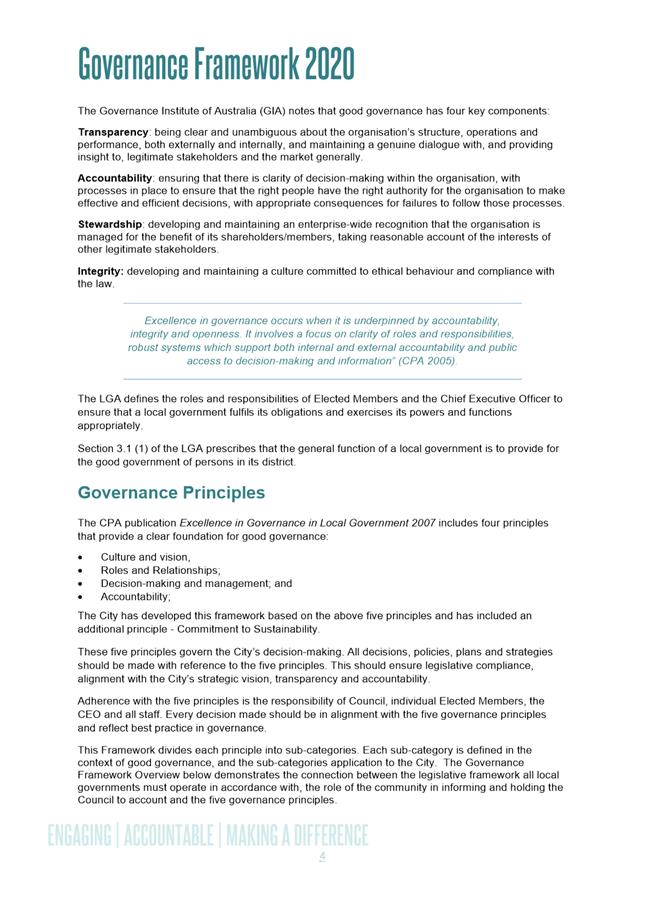
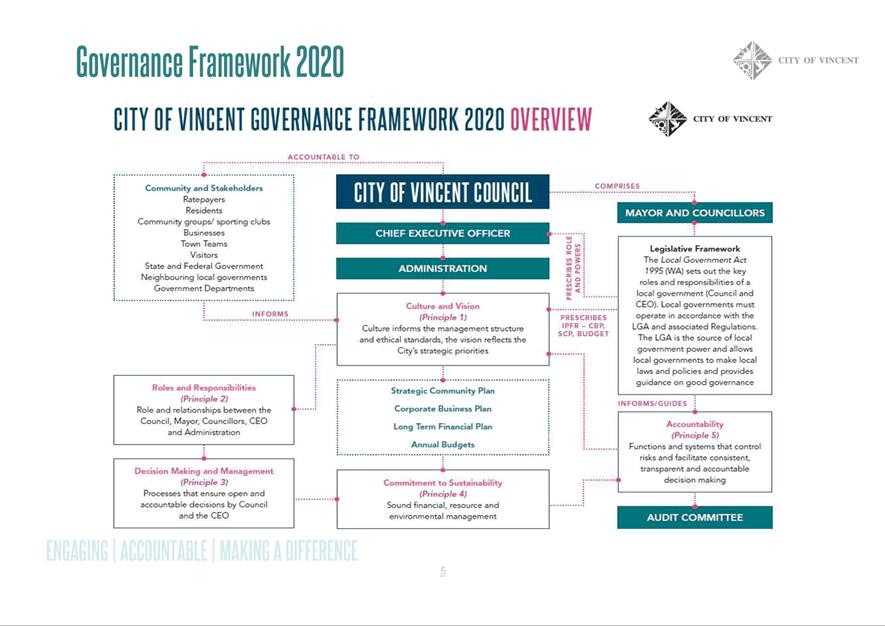
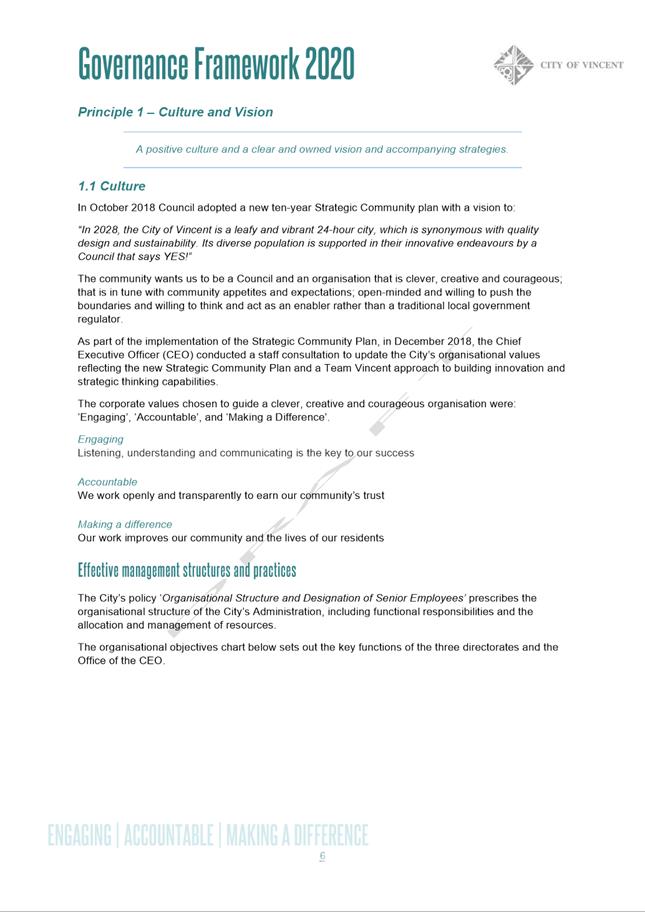
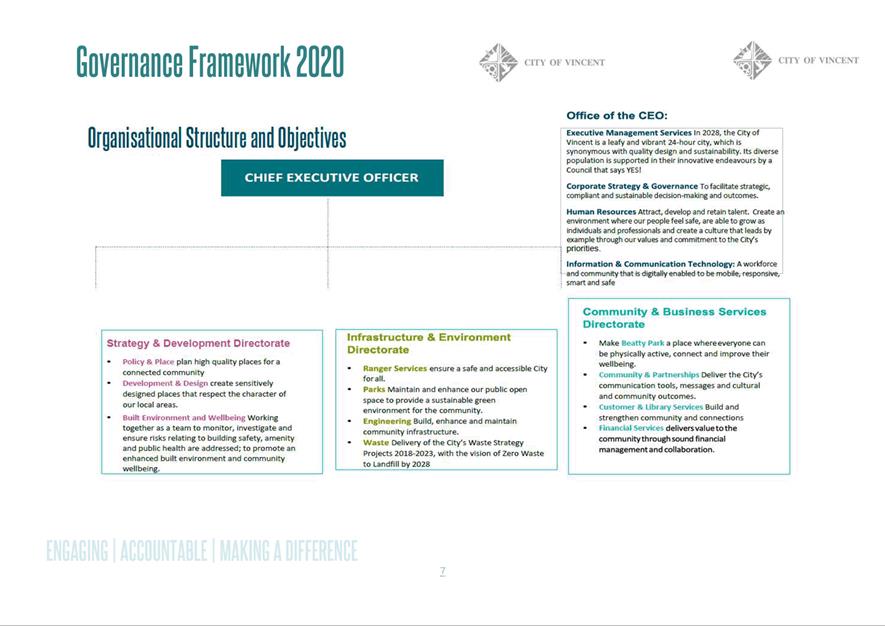
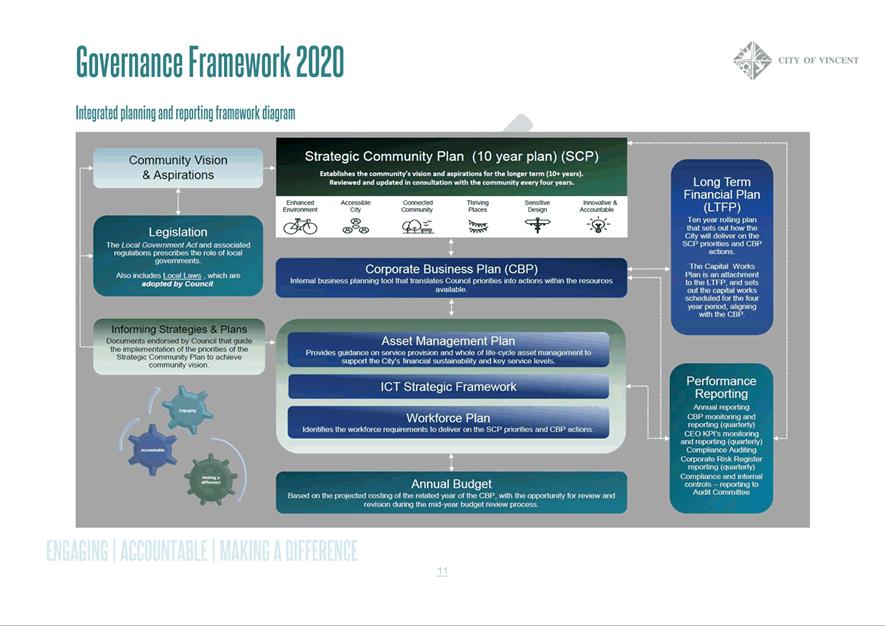
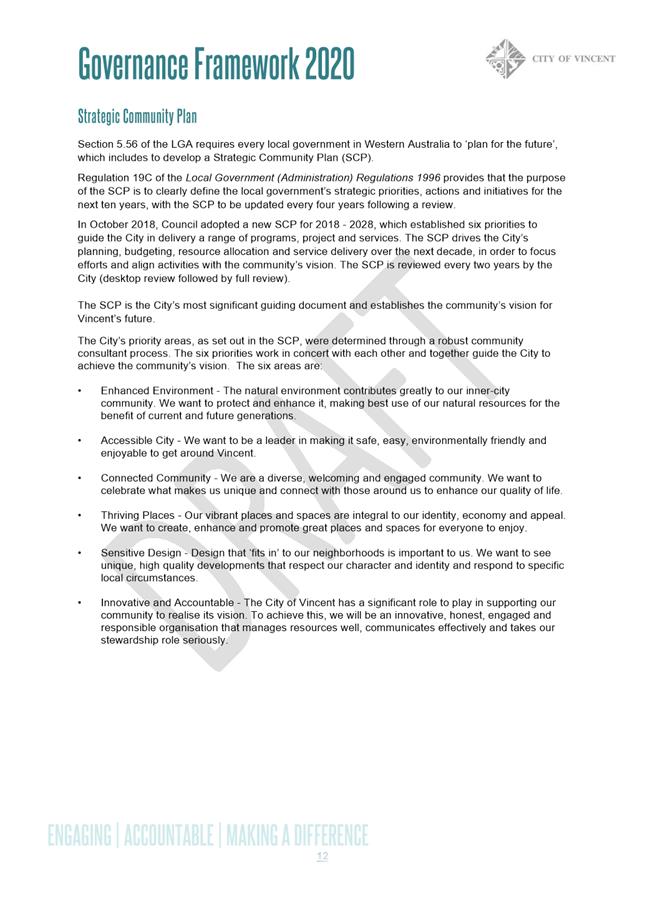
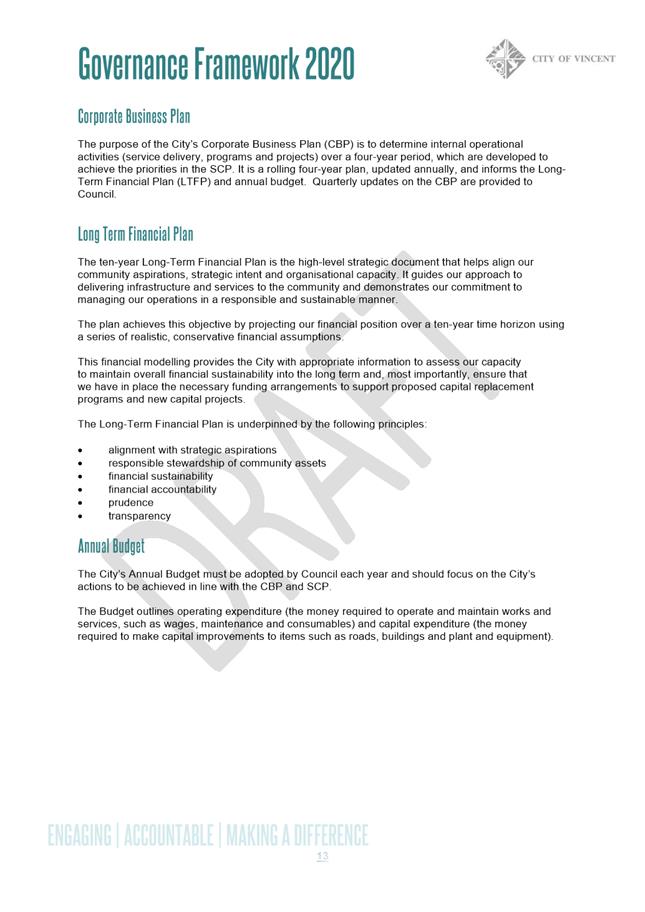
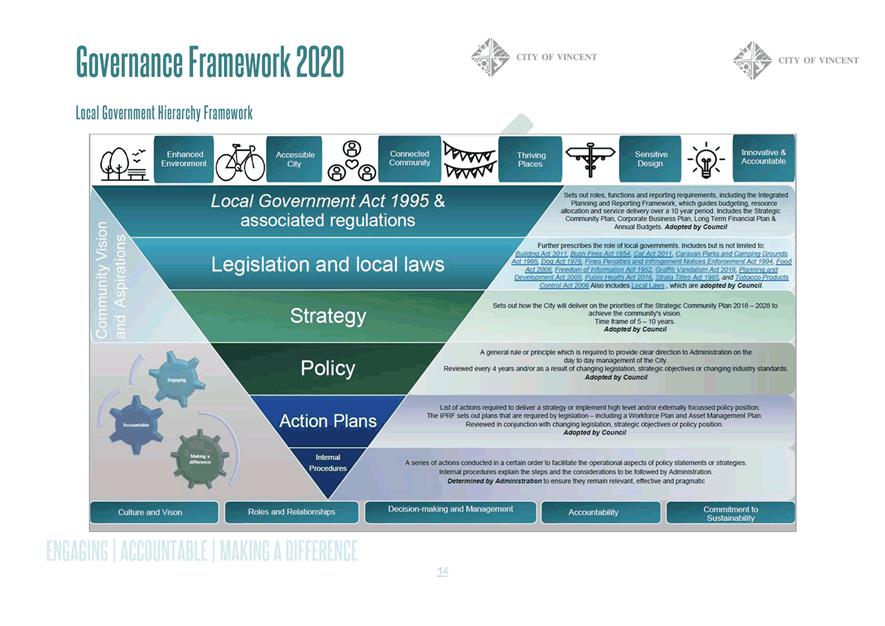
12.6 Adoption of
the Long Term Financial Plan for the Period 2020/21 - 2029/30
Attachments: 1. Draft
Long Term Financial Plan 2020/21 - 2029/30 ⇩ 
2. Draft Capital
Works Program - Appendix B to Corporate Business Plan 2020/21 - 2023/24 ⇩ 
|
Recommendation:
That
Council:
1. ADOPTS
the Long Term Financial Plan 2020/21 to 2029/30 and NOTES endorsement for the
base version as detailed in Attachment 1;
2. AUTHORISES the Chief Executive Officer to forward the
City of Vincent Long Term Financial Plan in 1) above to the Department of
Local Government, Sport and Cultural Industries.
|
Purpose of Report:
To consider the adoption
of a Long Term Financial Plan (LTFP) for the period 2020/21 – 2029/30 as
part of the Department of Local Government, Sport and Cultural Industries'
Integrated Planning and Reporting Framework (IPRF).
Background:
As part of the IPRF, all
local governments in Western Australia are required to have developed and
adopted a "plan for the future", comprising at a minimum of a
Strategic Community Plan and Corporate Business Plan. Supporting these plans
are a number of informing documents which include:
· Workforce
Plan;
· Asset
Management Plans; and
· Long
Term Financial Plan.
The LTFP is a key
component of the City's integrated planning framework and enables the City to
set priorities, based on the resourcing capabilities for the delivery of short,
medium and long term priorities.
The City's current LTFP
was adopted on 24 July 2018 and is due for review. Administration has
comprehensively reviewed the LTFP in order to reflect the significant changes
in economic conditions that have occurred since 2018 and to ensure its
alignment to the City's recently adopted Corporate Business Plan 2016/17
– 2019/20.
Details:
The LTFP is a 10 year
rolling plan that is used to activate priorities in the Strategic Community
Plan. It is expected that the combination of these planning processes will
ensure that the City's Annual Budgets are more aligned with the strategic
objectives of the City.
The LTFP provides an
indication of a local government’s long term financial sustainability and
allows early identification of financial issues and their longer term impacts,
shows the linkages between specific plans and strategies and enhances the
transparency and accountability of the Council.
Full details relating to
the LTFP are presented in Attachment 1.
Consultation/Advertising:
The LTFP is an internal
planning tool used to support the City's broader strategic planning framework
and in particular the Strategic Community Plan.
Legal/Policy:
The Long Term Financial
Plan is a significant component in requirements of the regulations for the Plan
for the Future under the Local Government Act 1995.
Risk Management Implications:
Medium: The Long Term Financial Plan
will be used for planning future annual budgets and assessing the future
financial sustainability and therefore it is important that the estimates are
based on the appropriate and relevant assumptions.
In preparing long term
estimates there is a risk that the assumptions on which the estimates are based
do not hold true over time. This review has been complicated by the
impact of COVID-19, placing increased uncertainty around short term
estimates. These risks are mitigated by a requirement for annual update
and review.
Strategic Implications:
This is in keeping with
the City’s Strategic Community Plan 2018-2028:
Innovative
and Accountable
Our resources and assets are planned and managed in an
efficient and sustainable manner.
SUSTAINABILITY IMPLICATIONS:
A key aim of the Long
Term Financial Plan is to enhance the City’s financial sustainability,
which will in turn contribute to the City’s capacity to deliver efficient
and effective services and implement the City’s Sustainable Environment
Strategy 2019-2024.
Financial/Budget Implications:
The Long Term Financial
Plan will assist in the preparation of future Annual Budgets and project
planning.
Comments:
The LTFP has been
reconciled to align with the recently adopted 2020/21 Budget, with further
reconciliation to update the asset and cash positions in line with the budget
now complete. The update to the current assets has resulted in a minor
adjustment to interest earnings from Year 5 onwards, with relevant updates to
the LTFP finalised and incorporated into Attachment 1. It is also
noted that the draft Four Year Capital Works Program (Attachment 2) is
also in the process of being reconciled with the draft LTFP and will be
submitted to Council in conjunction with the annual review of the Corporate
Business Plan.
The LTFP is based on a
range of assumptions and strategies considered reasonable at the time of developing
the LTFP, however it is not a commitment or guarantee that the assumptions or
economic conditions will remain aligned, demonstrating the importance of annual
reviews.
Overall, the LTFP
provides a relatively positive forecast, including a substantial improvement to
the City’s asset renewal activities. However, the recent economic
disruption as a result of the COVID-19 pandemic has had a significant and
lasting impact, adding to the funding challenges ahead of the City.
The Base version detailed
in the draft LTFP provides a prudent approach in this uncertain economic
climate, however a number of scenarios have been included for comparative
purposes. Whilst the Base version is recommended, it is recognised that
whilst it will achieve improvements, it does not deliver the level of
resilience and financial capacity that will be required in the longer
term. This reinforces the importance of the annual reviews, which provide
the opportunity to adapt and amend strategies to reflect revised conditions.
Ordinary Council Meeting Agenda 18
August 2020
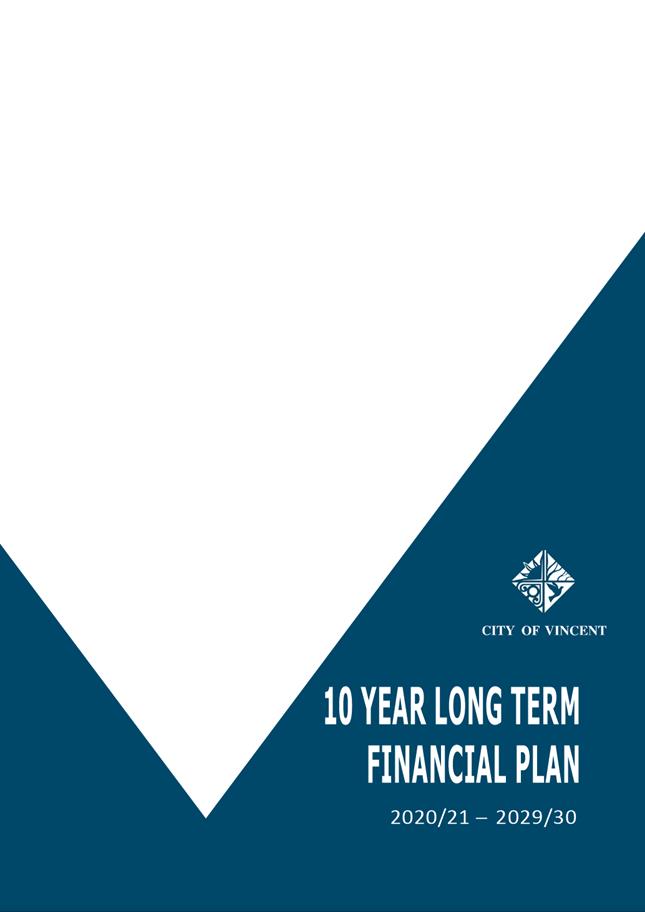
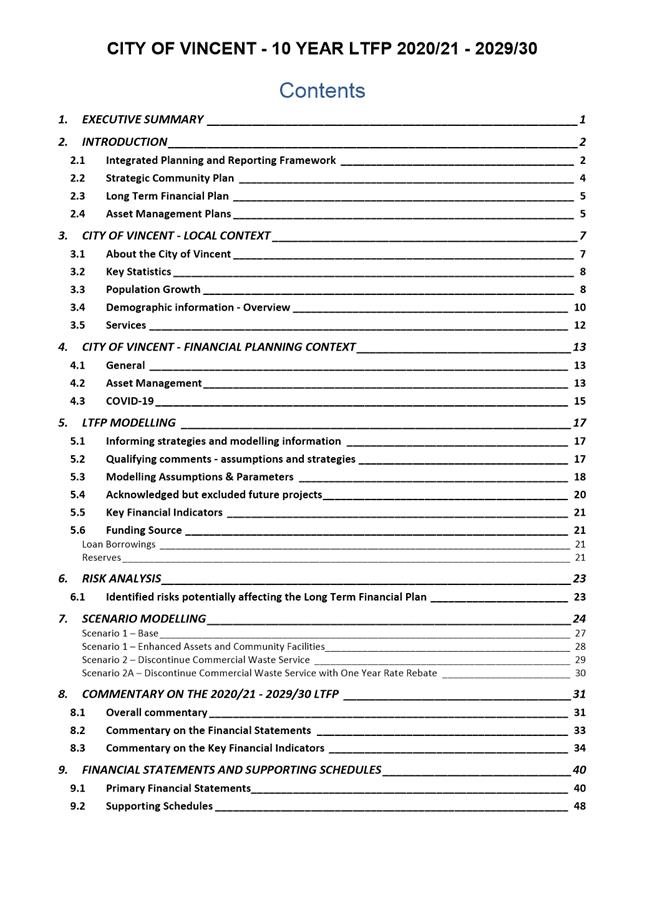
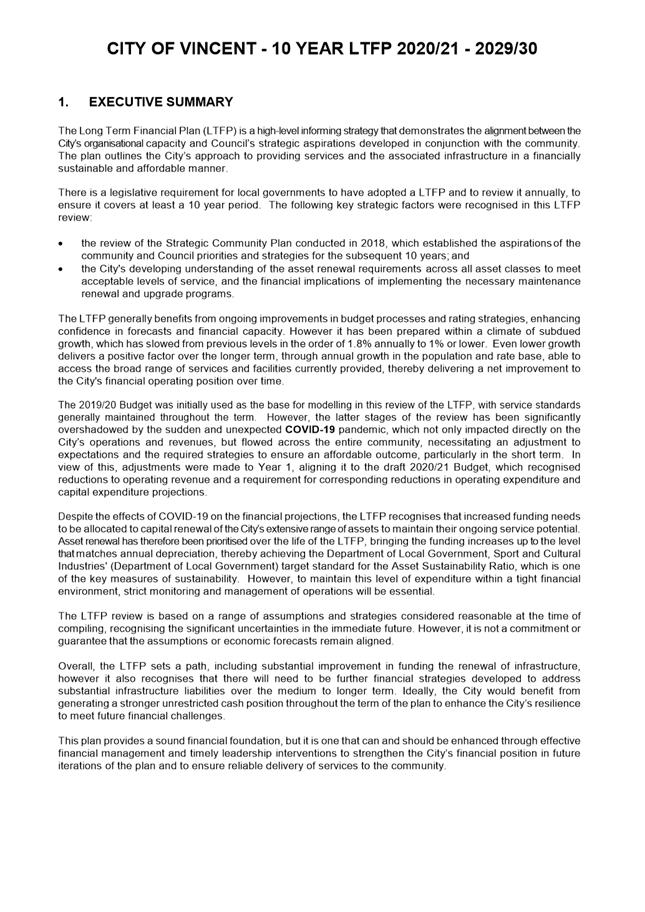
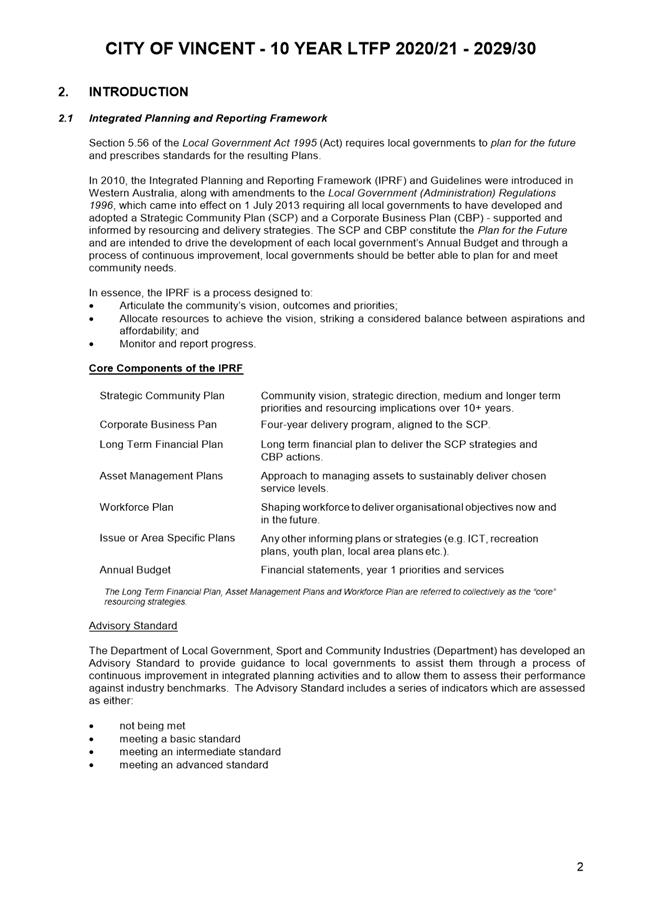
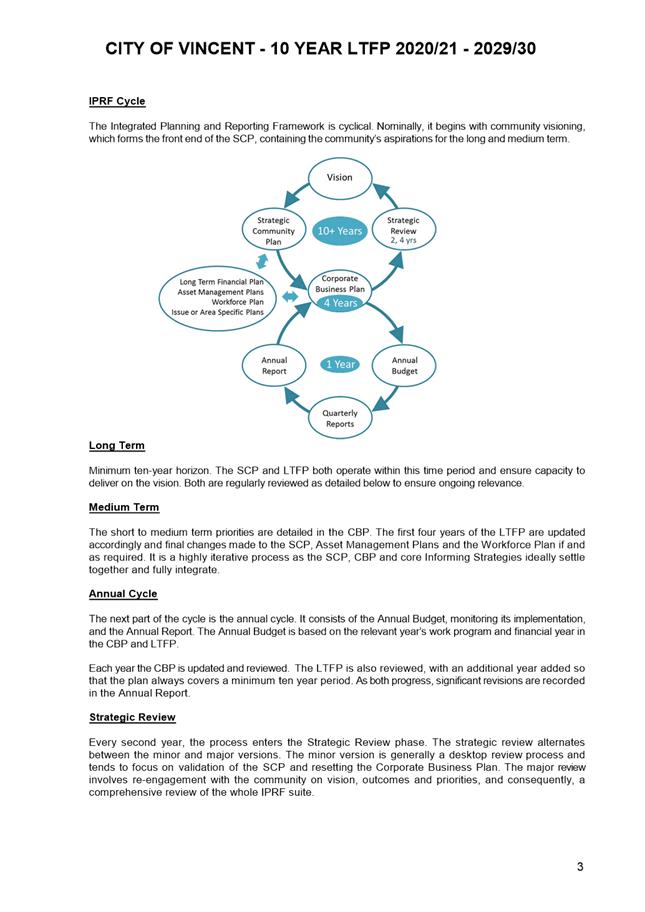
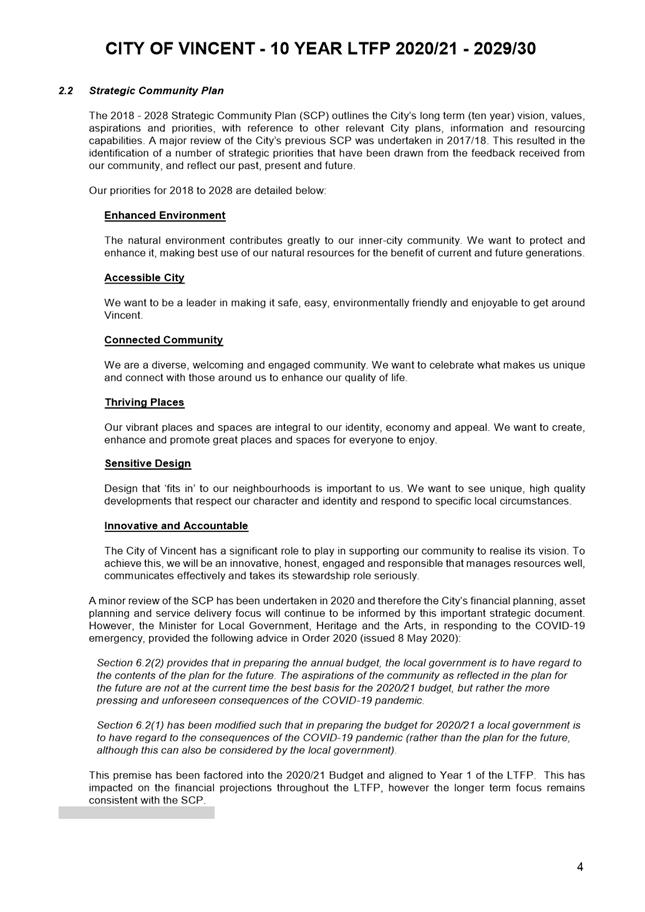
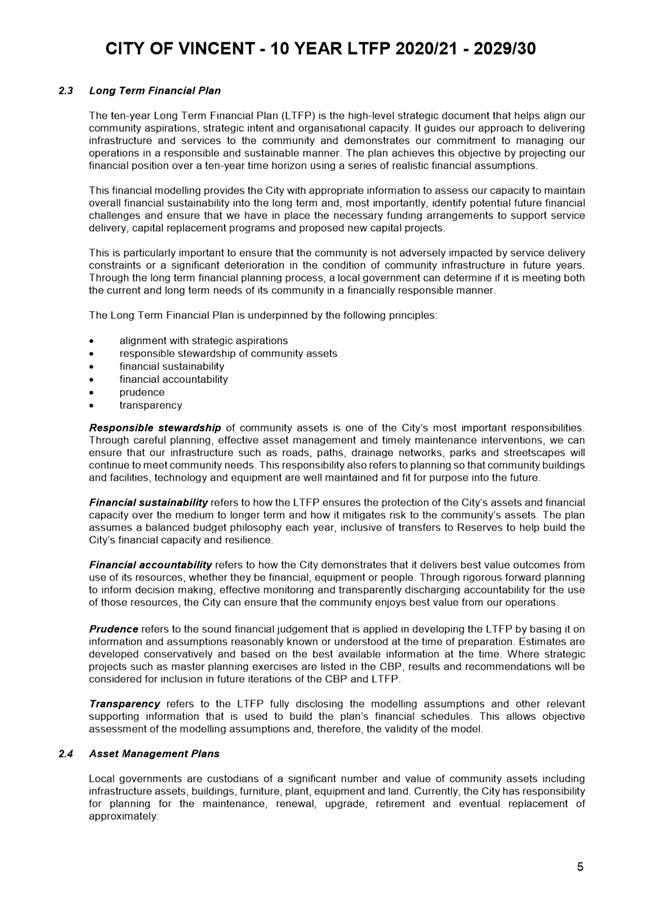
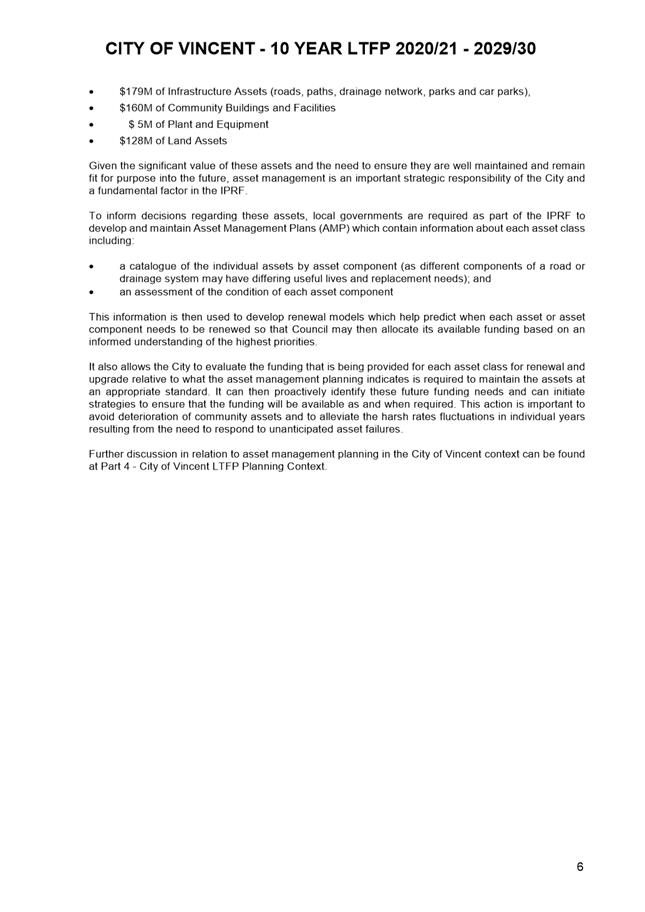
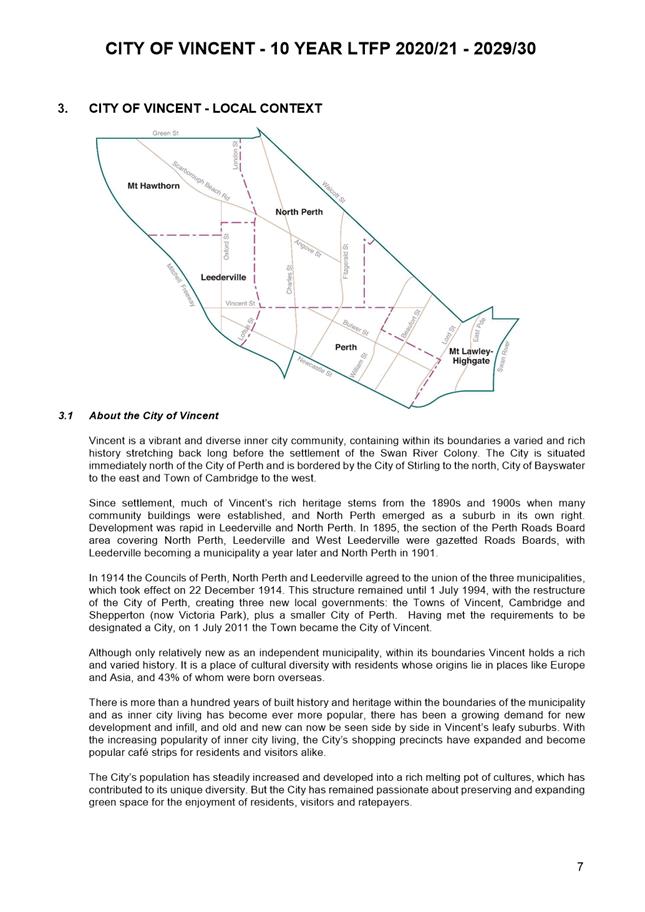
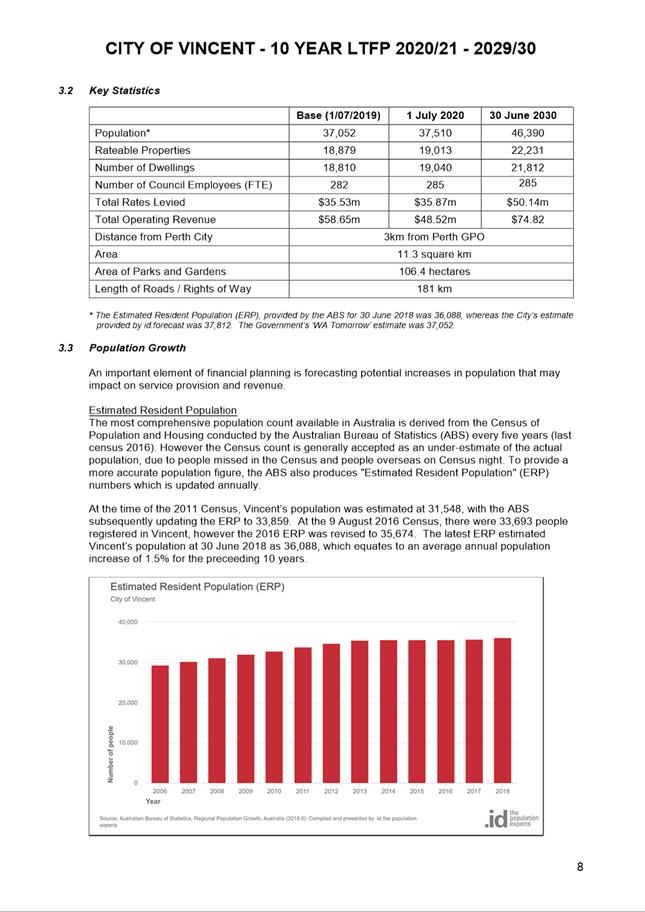
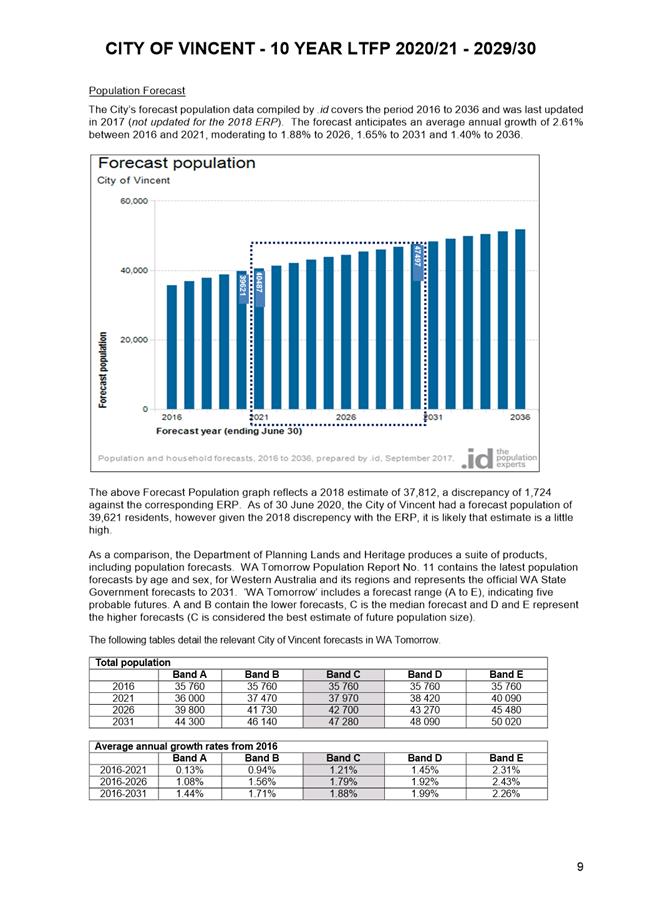
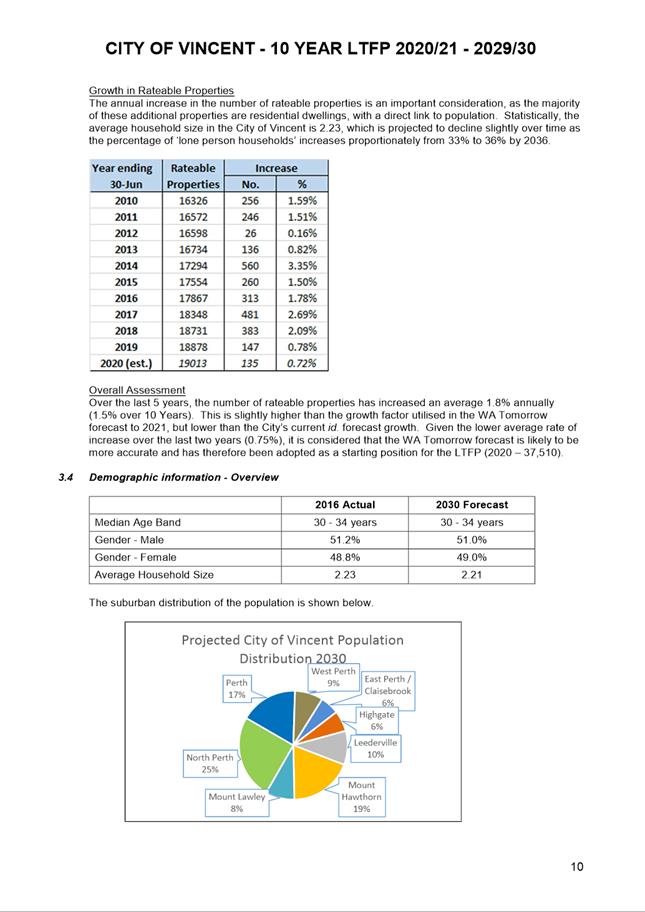
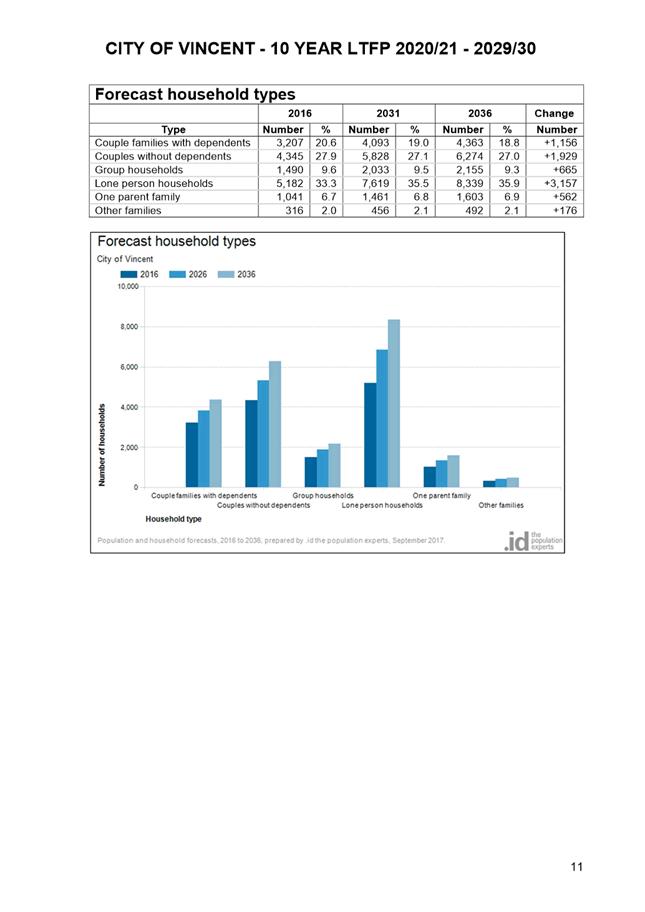
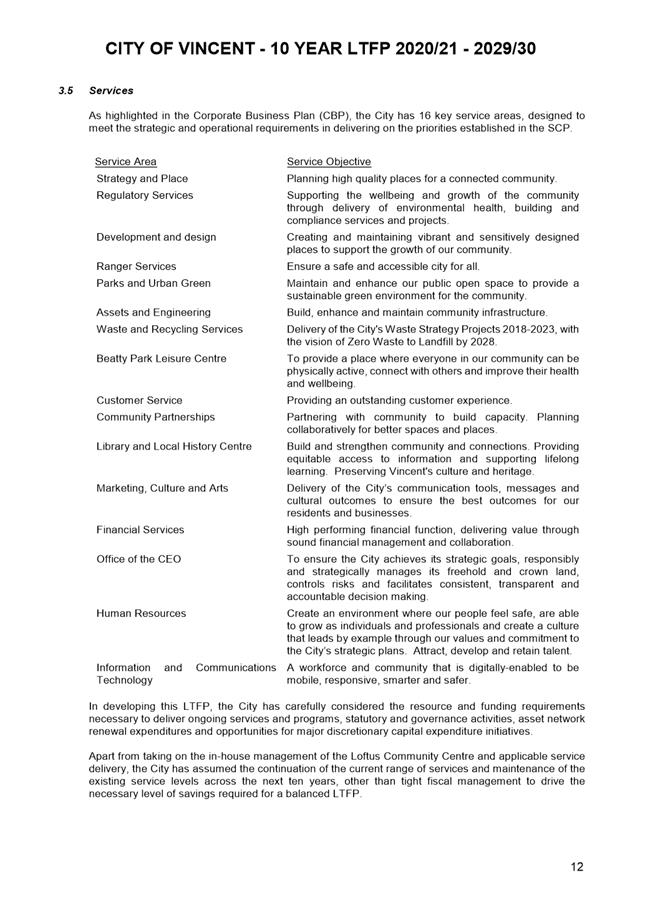
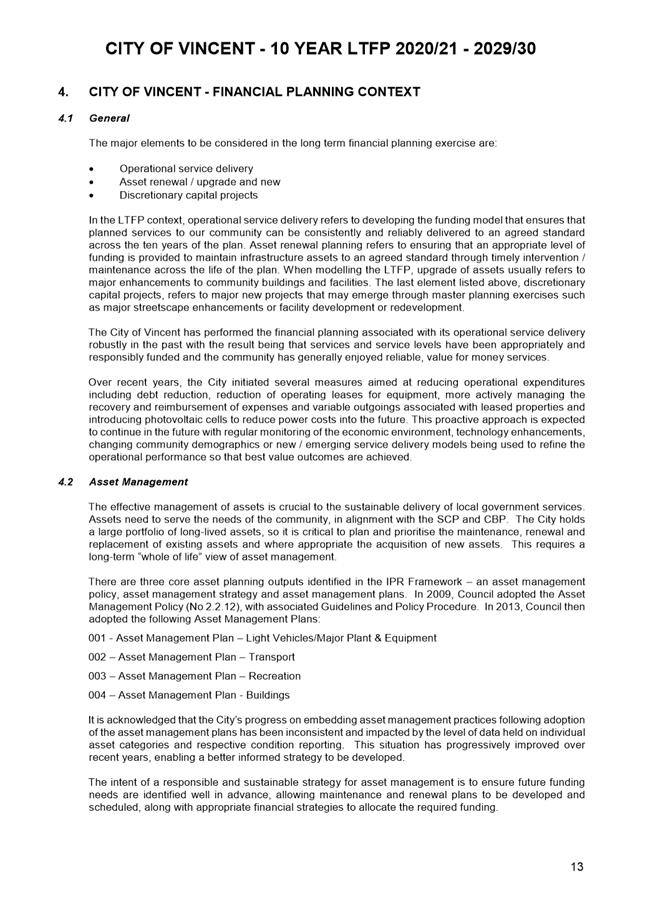
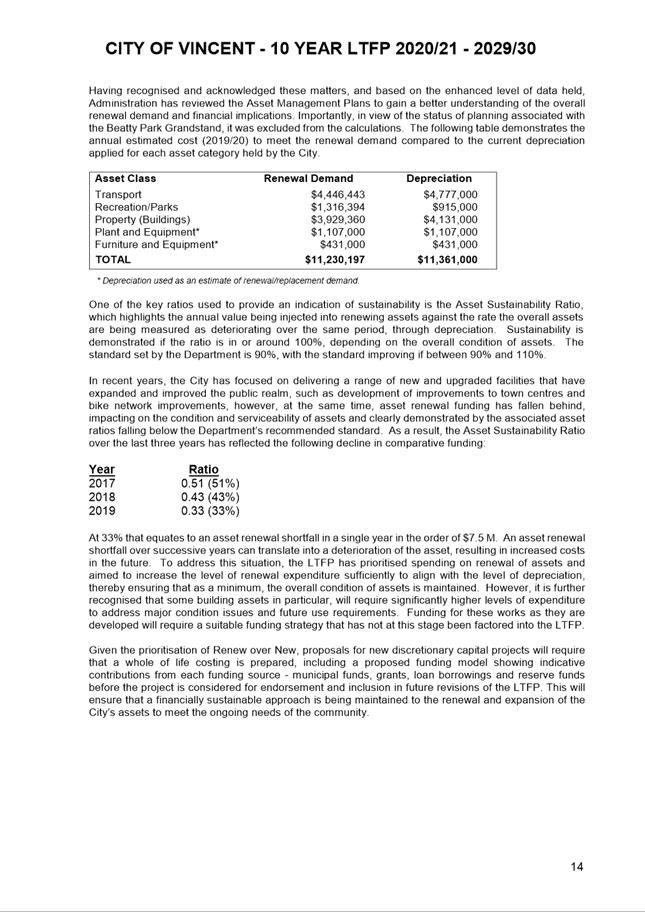
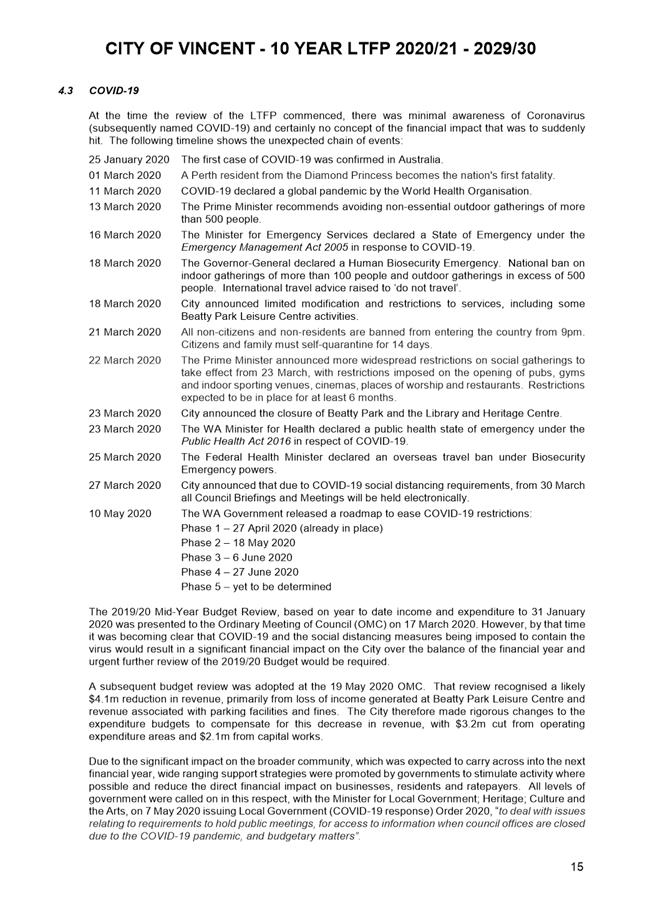
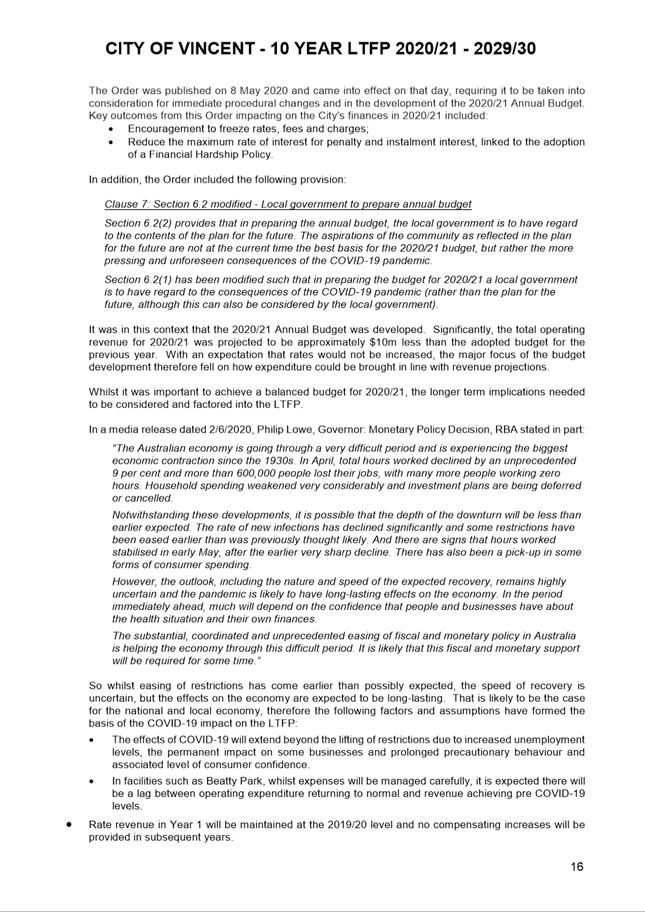
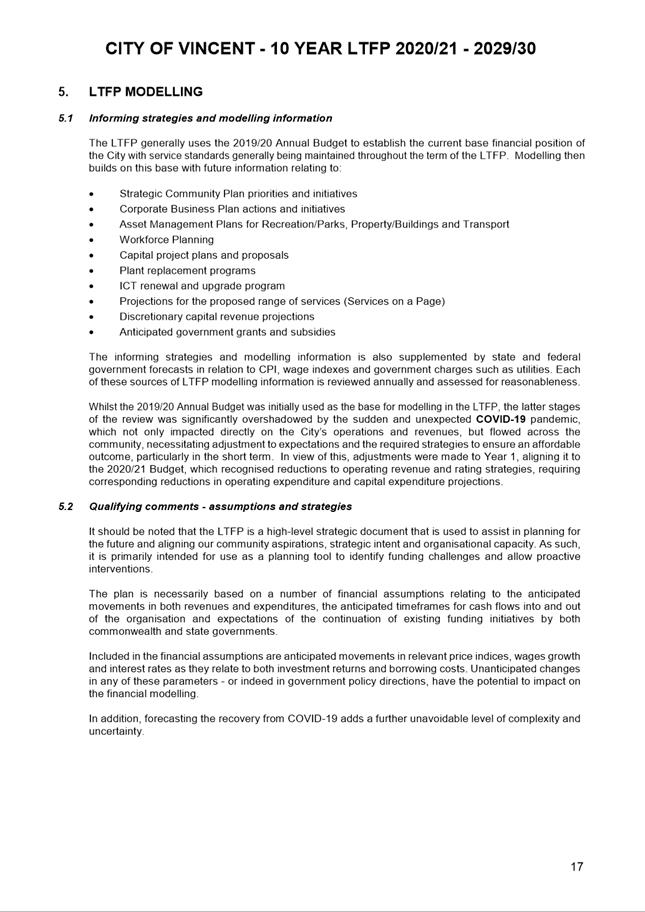
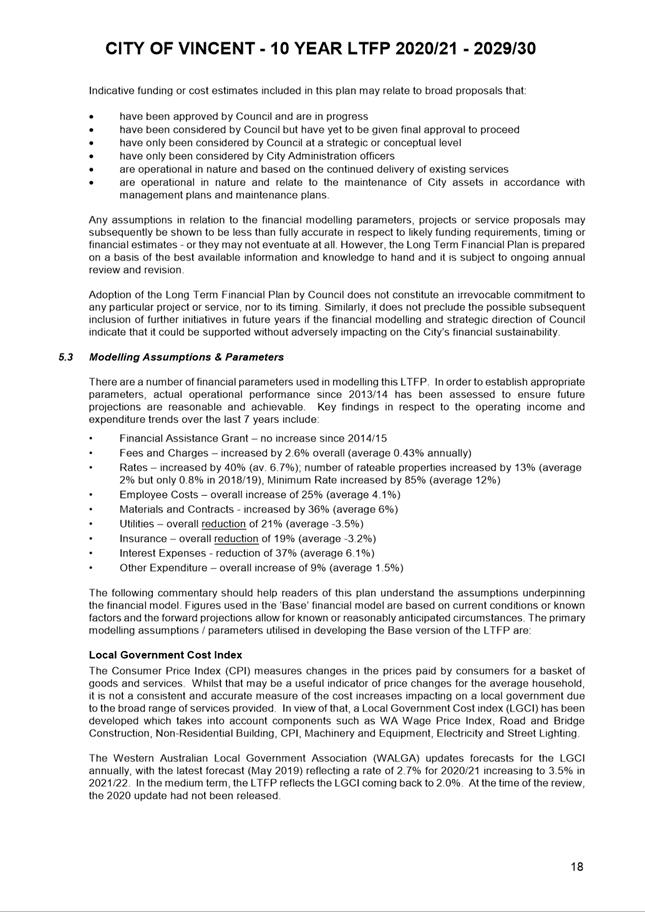
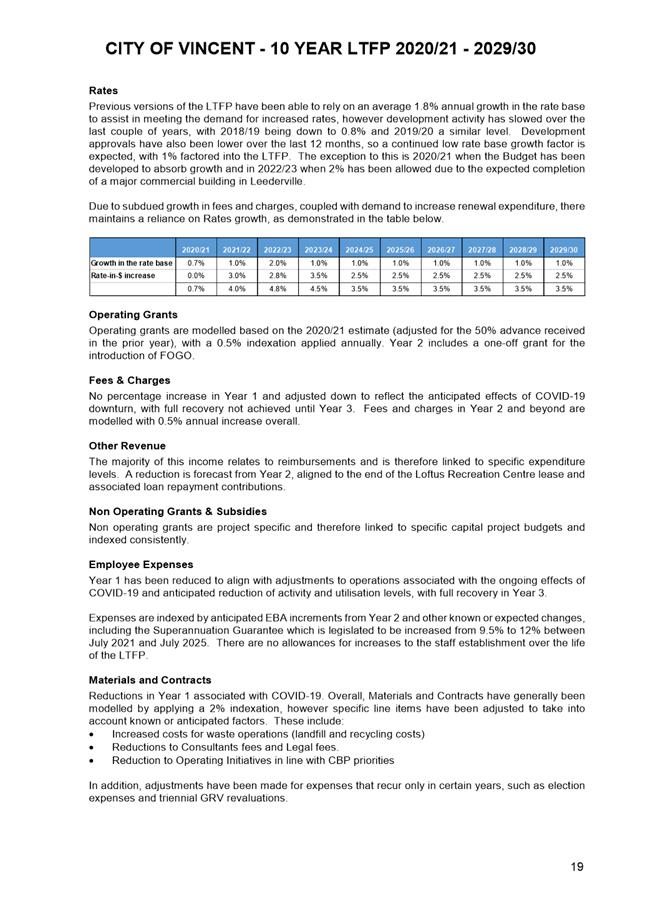
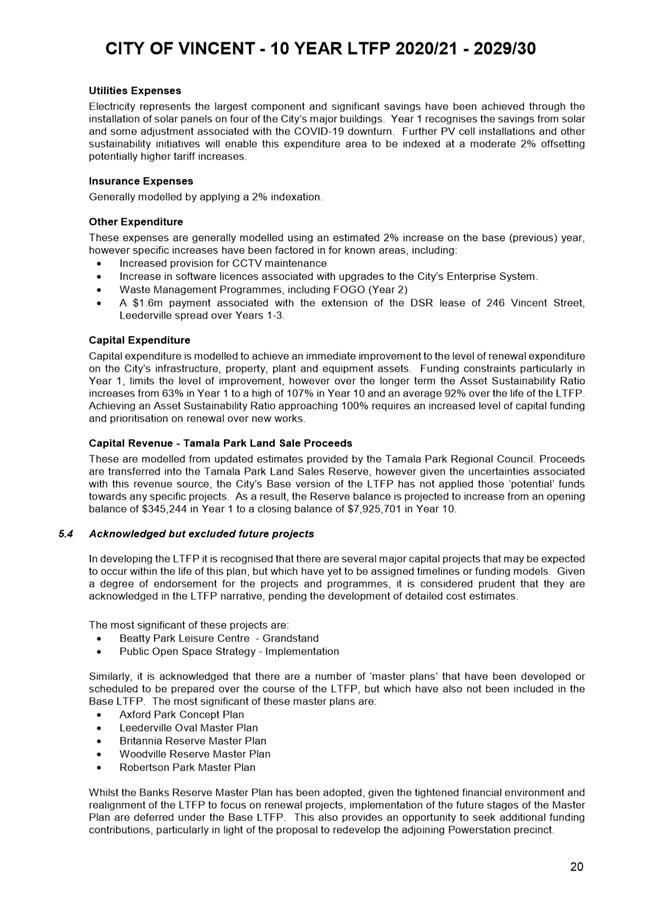
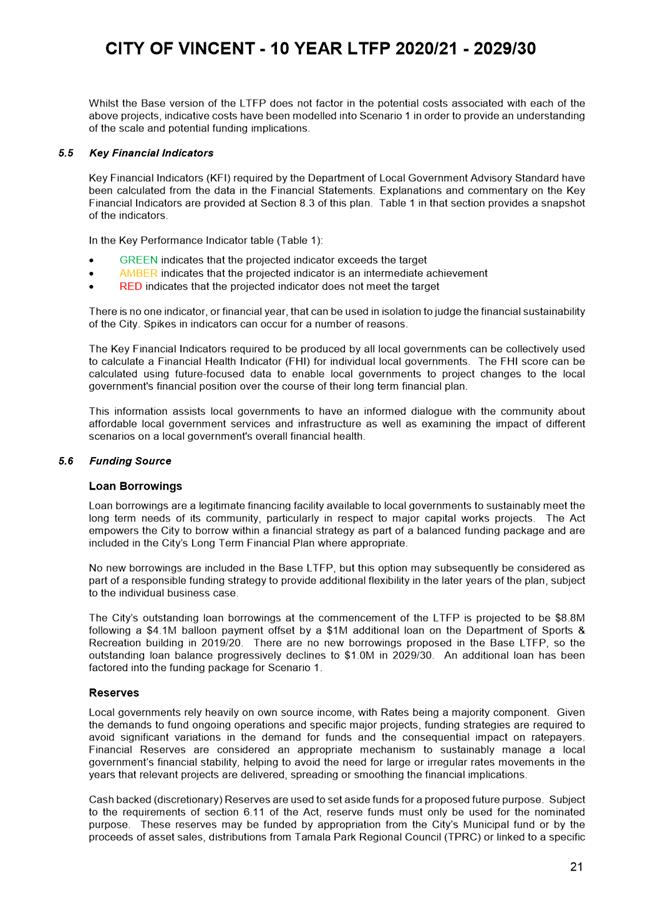
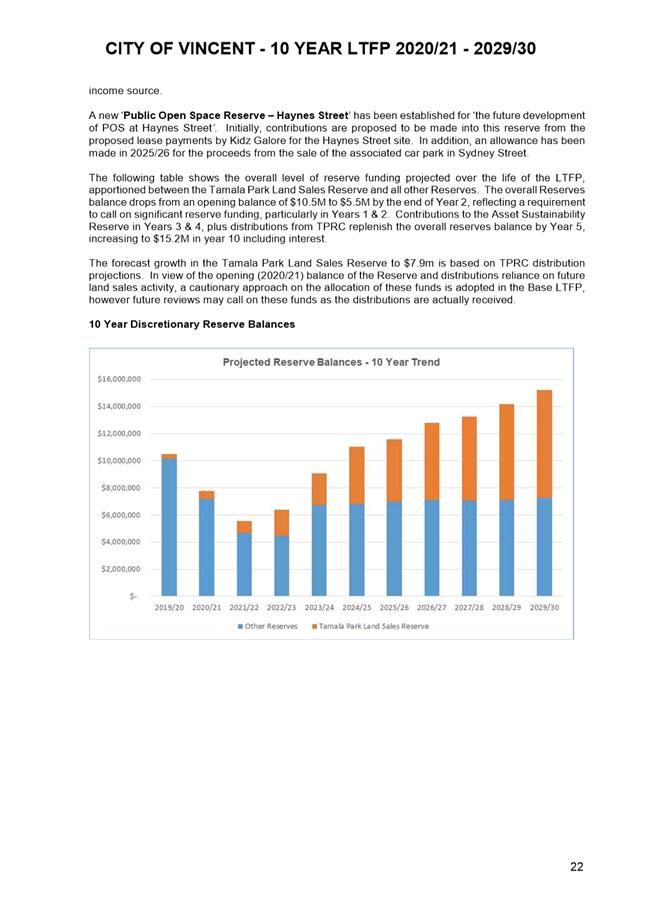
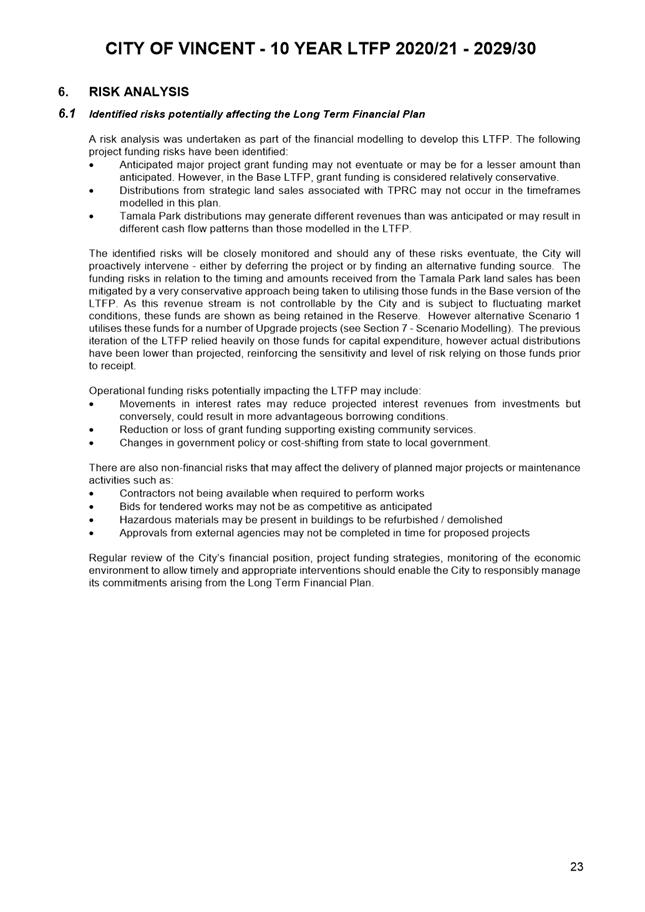
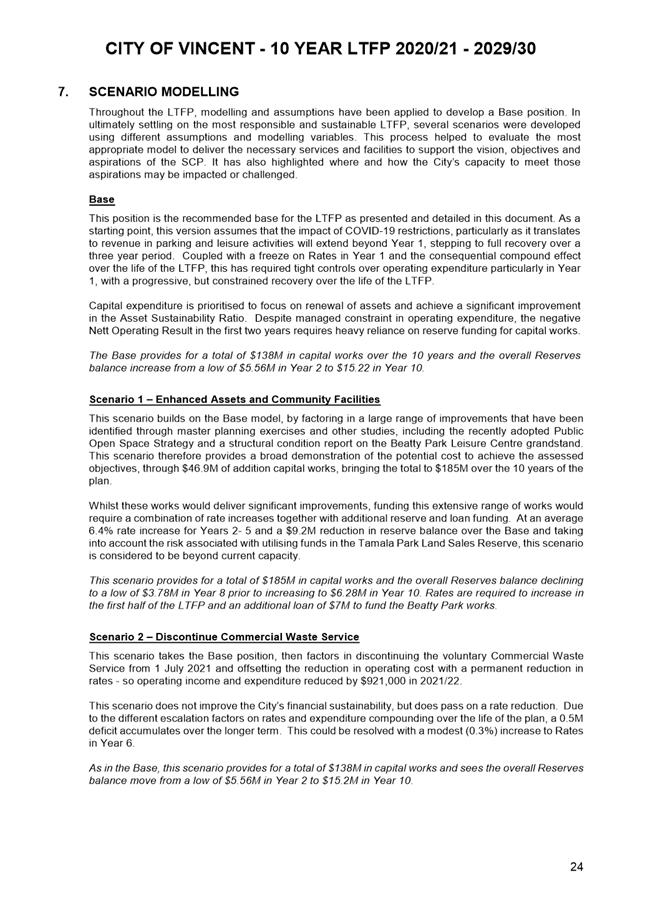
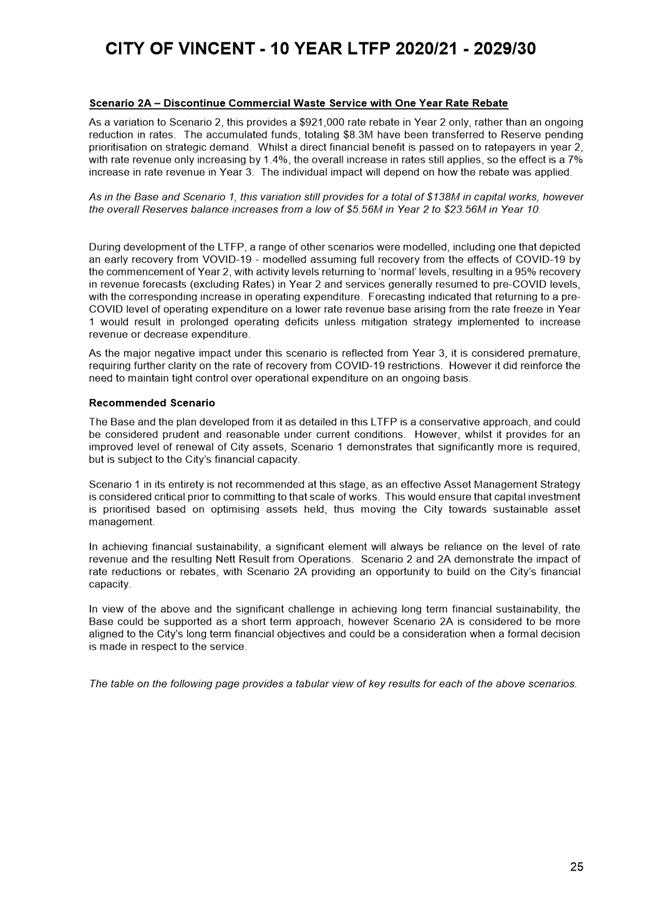
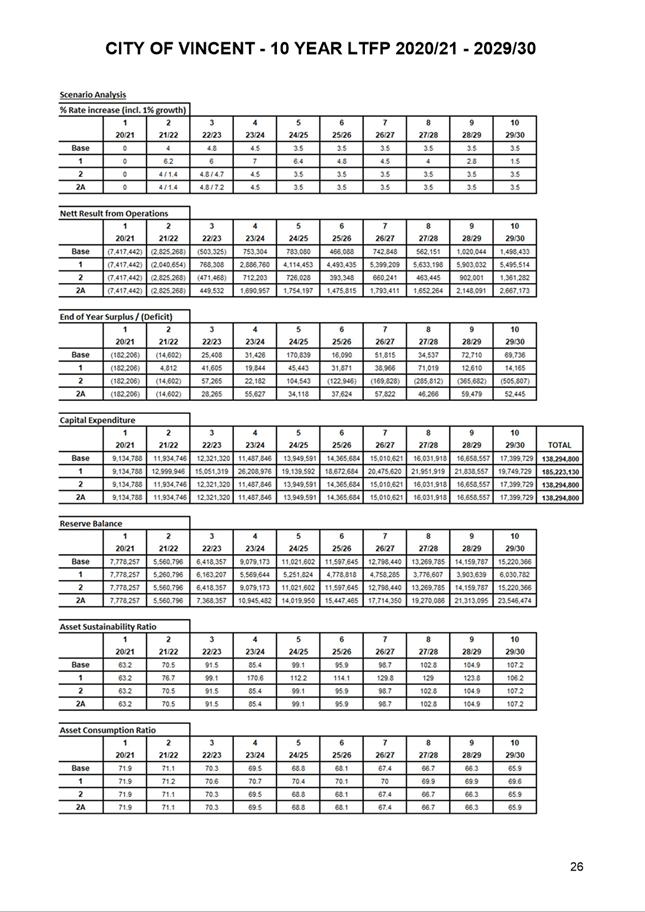
Ordinary
Council Meeting Agenda 18
August 2020

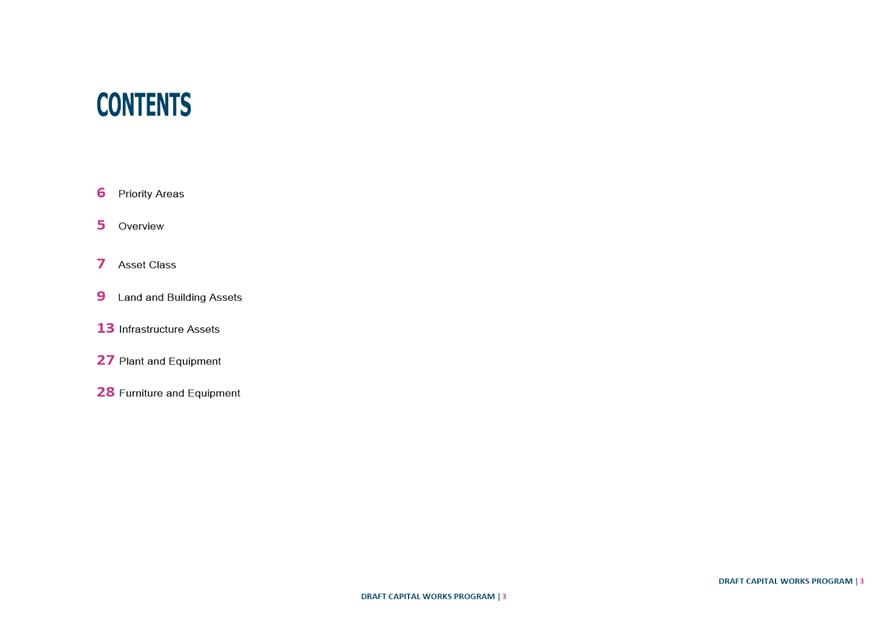
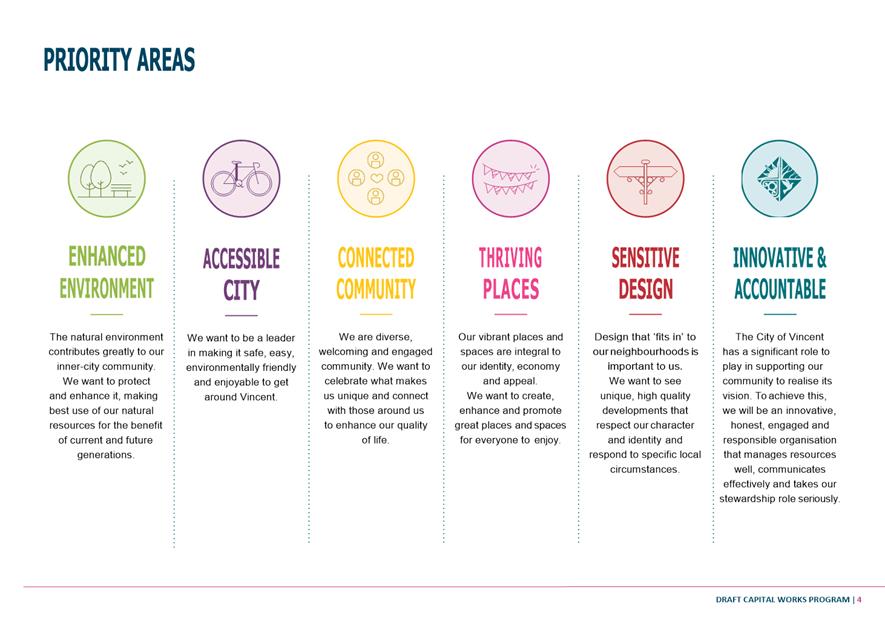
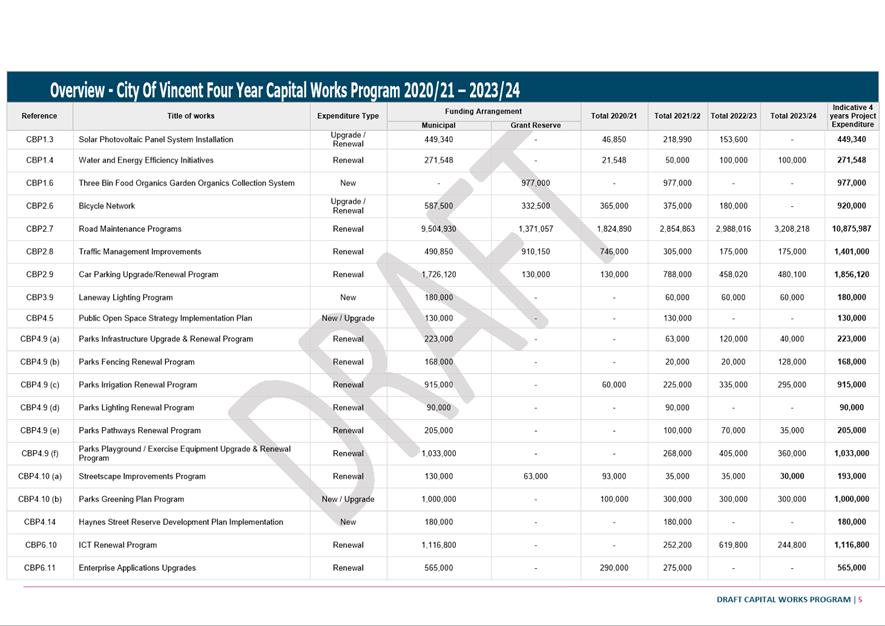
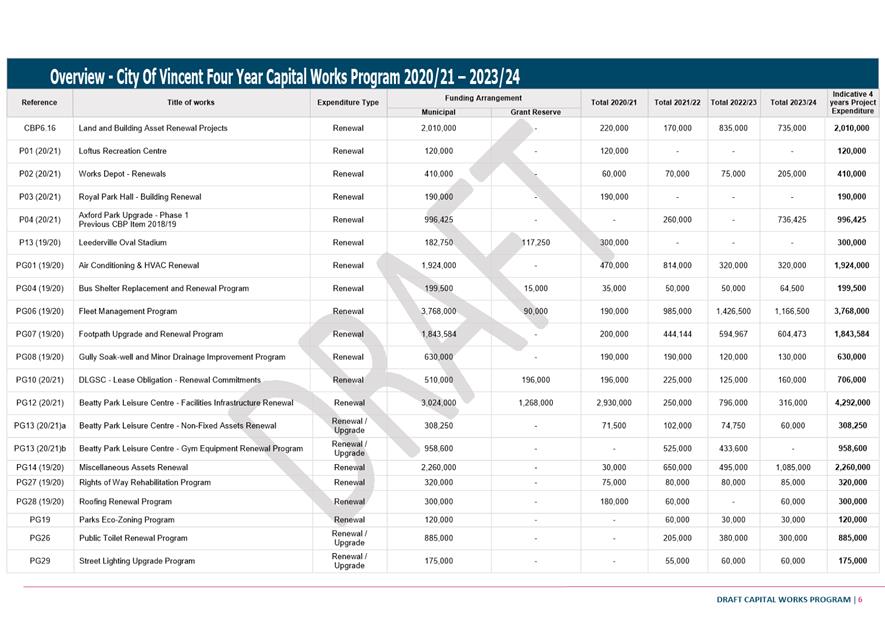
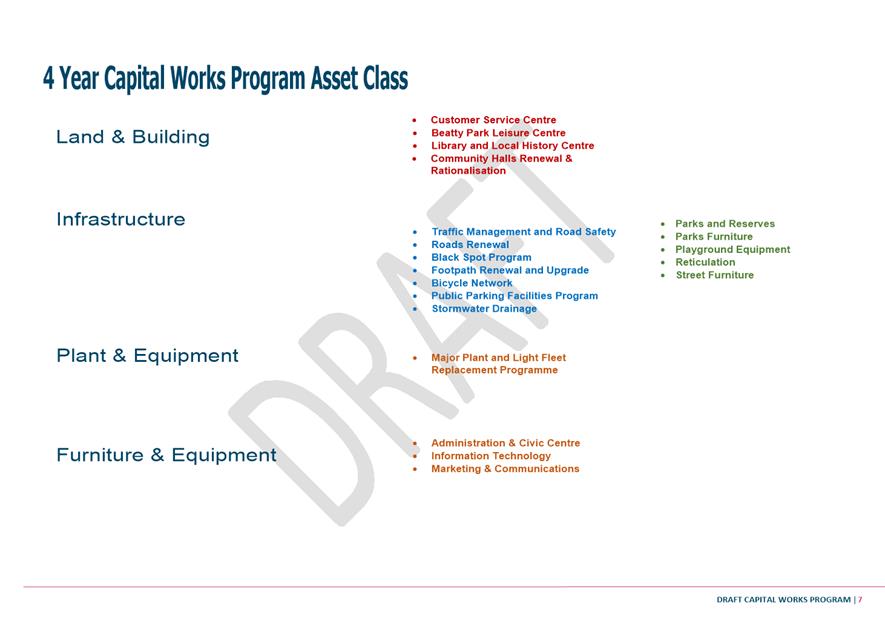
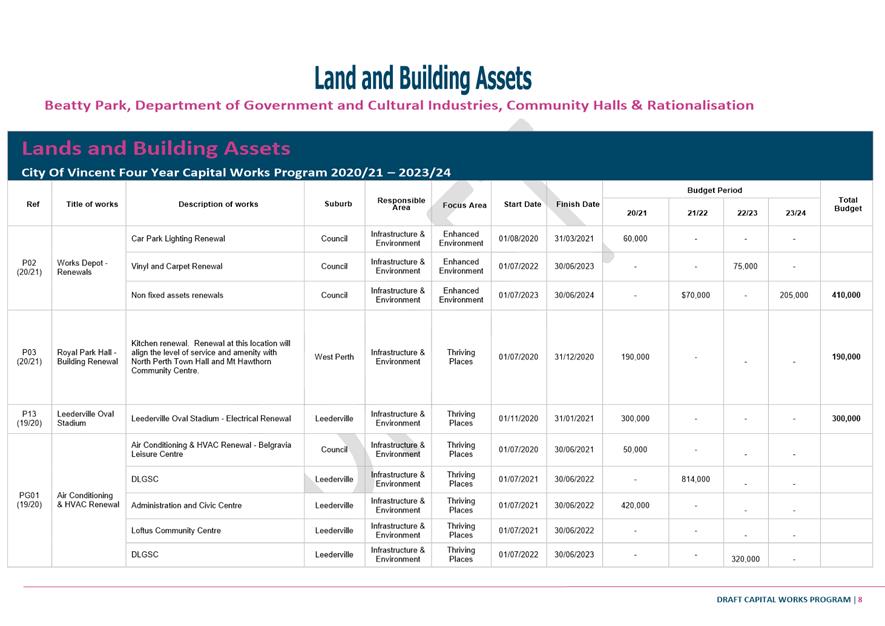
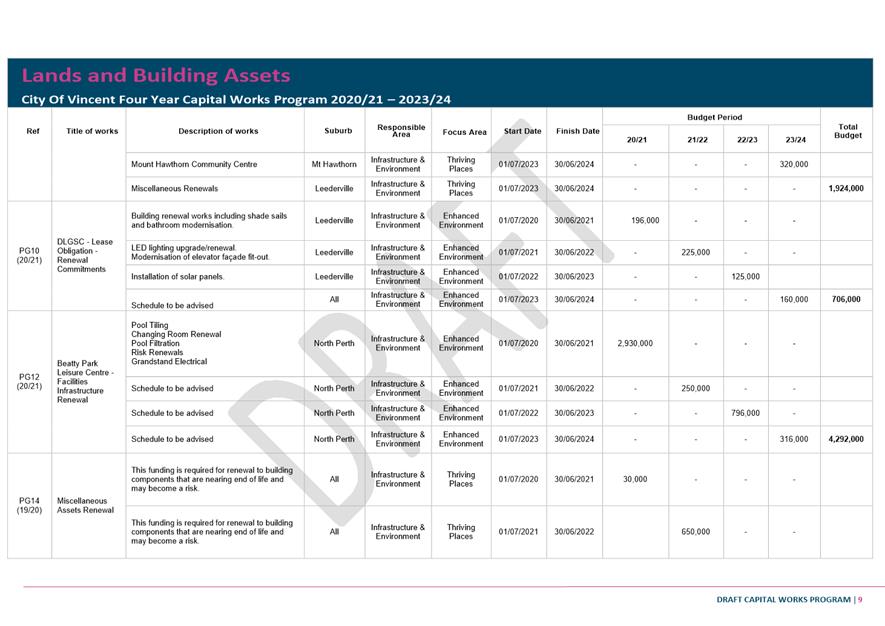
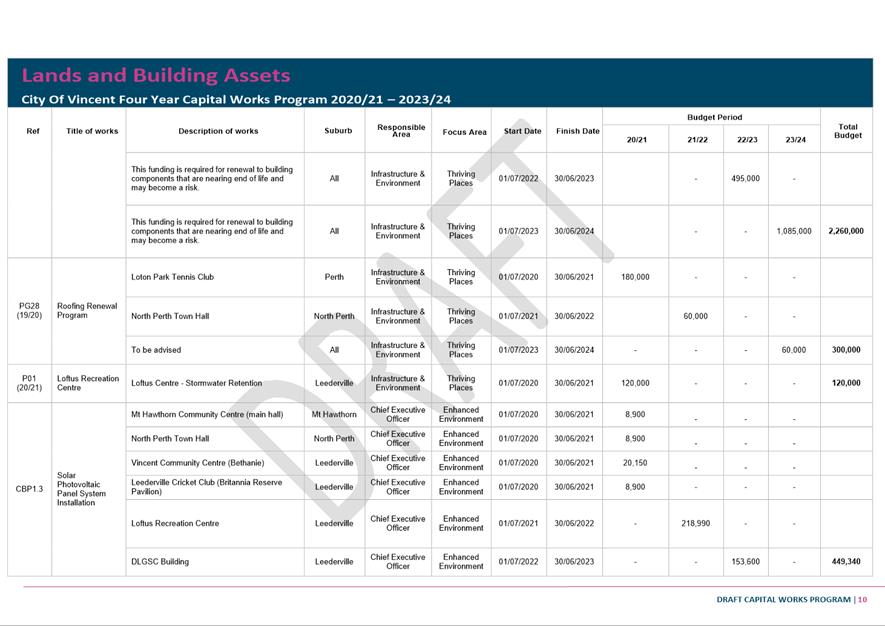
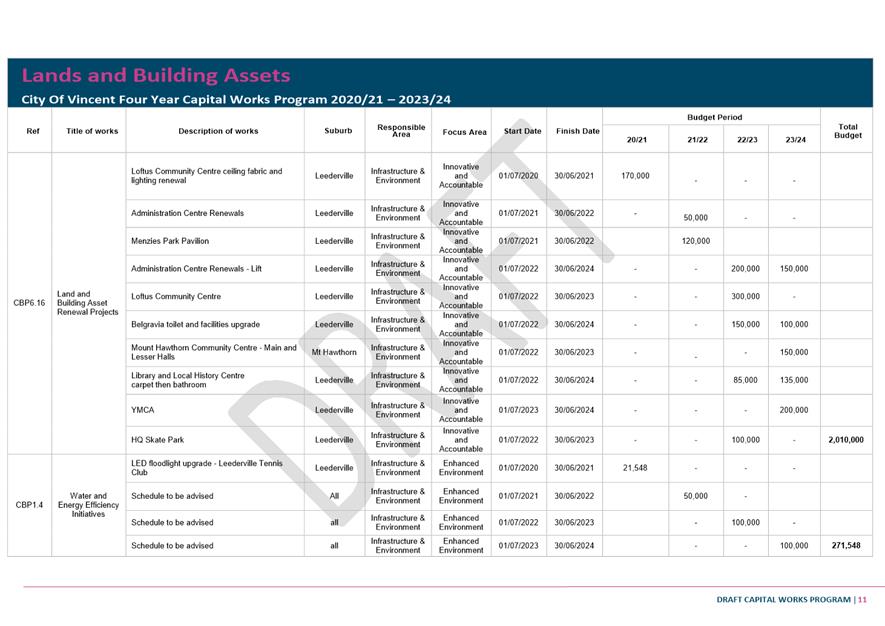
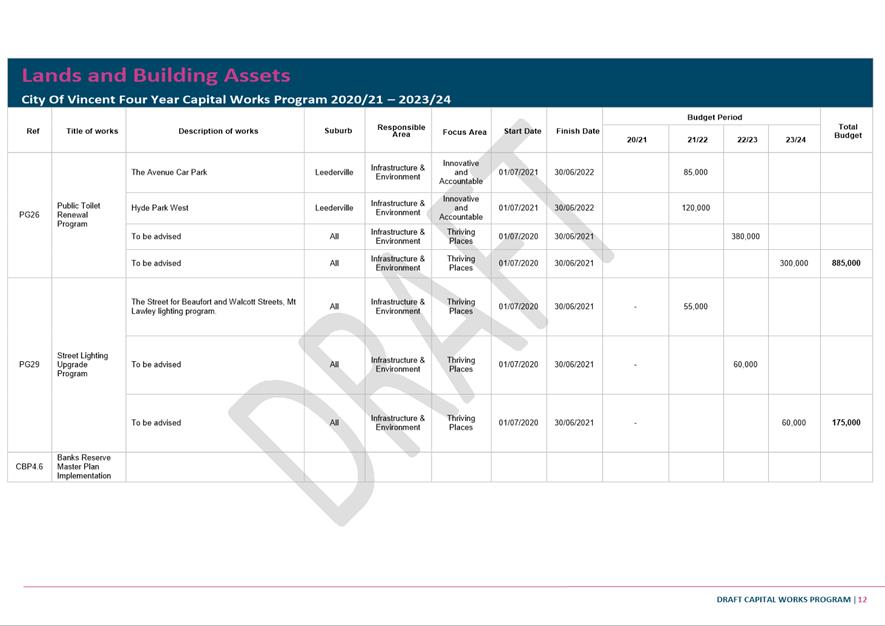
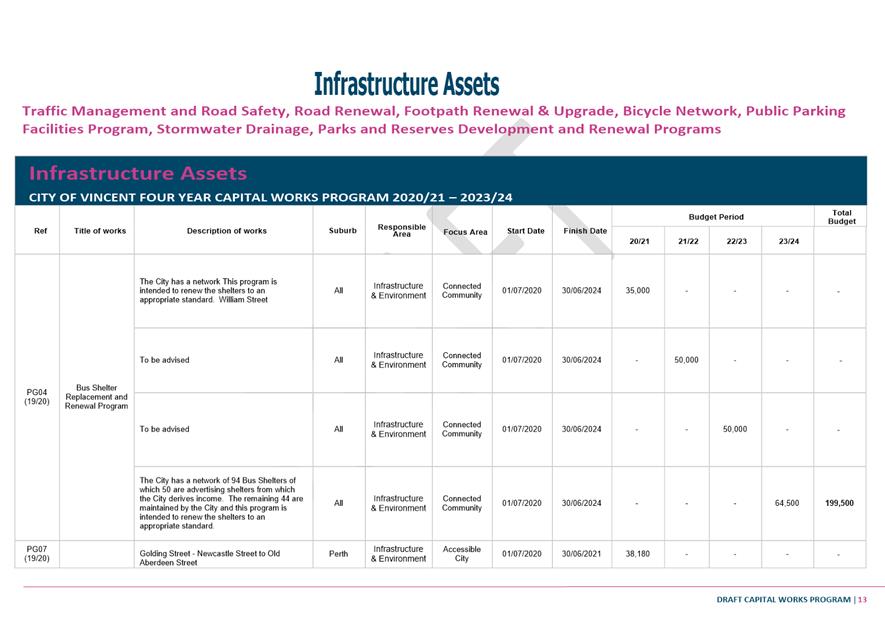
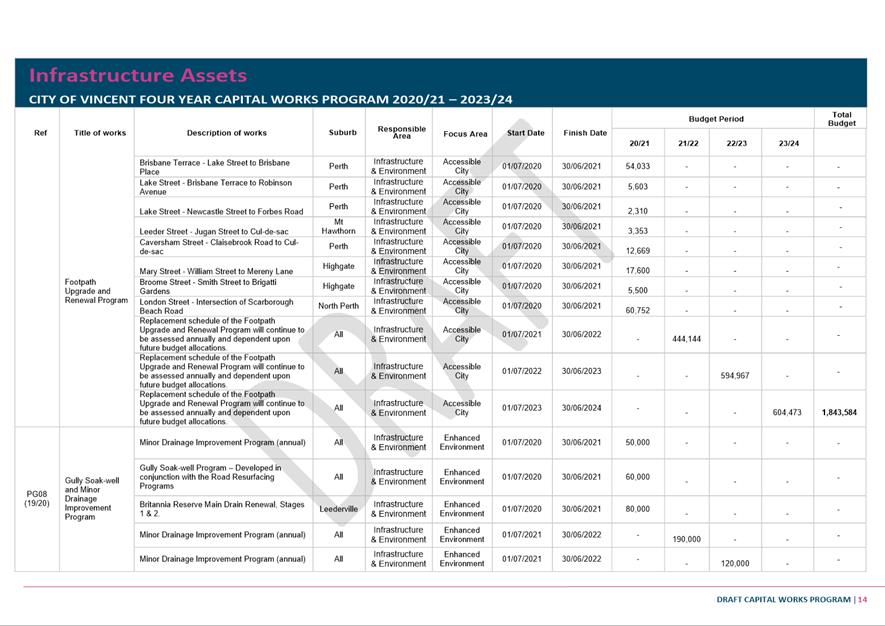
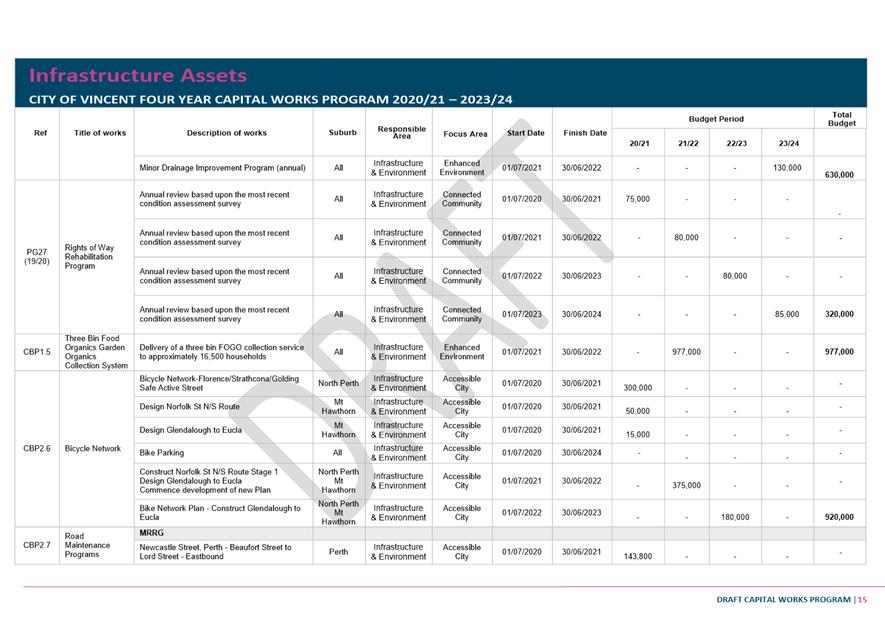
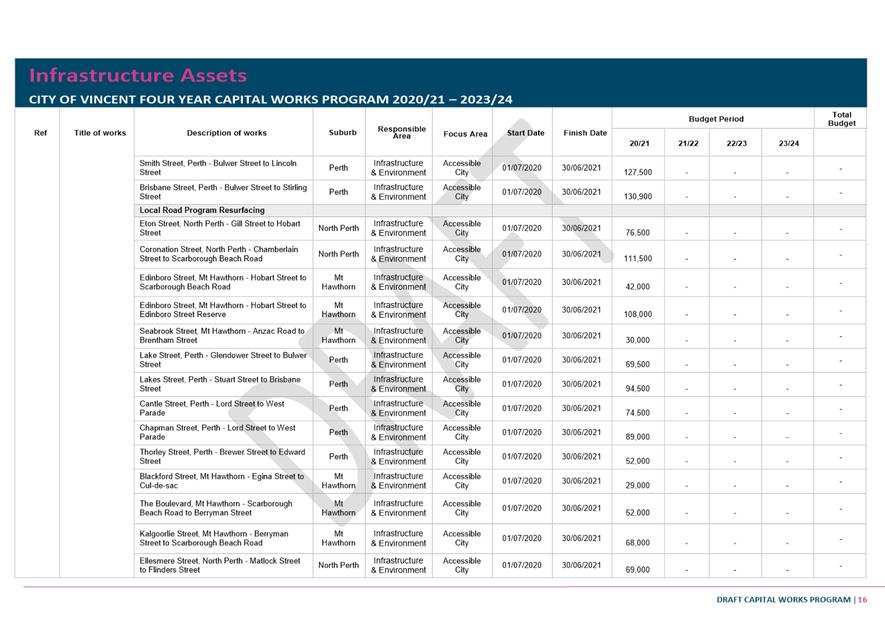
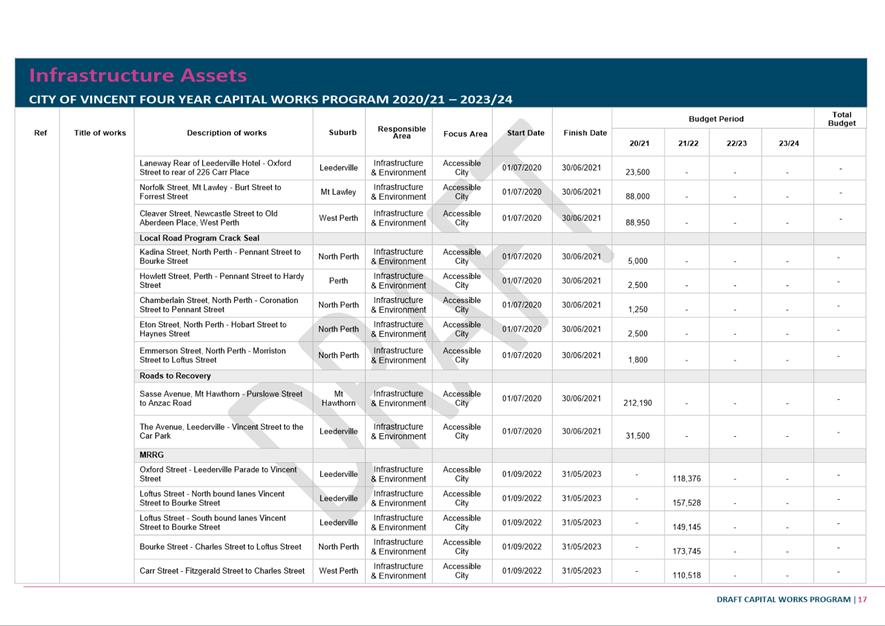
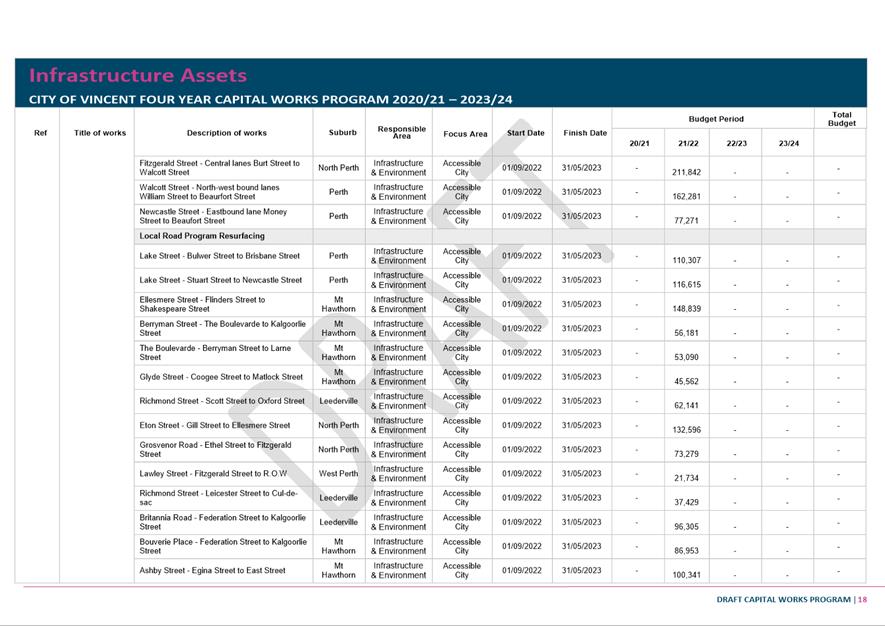
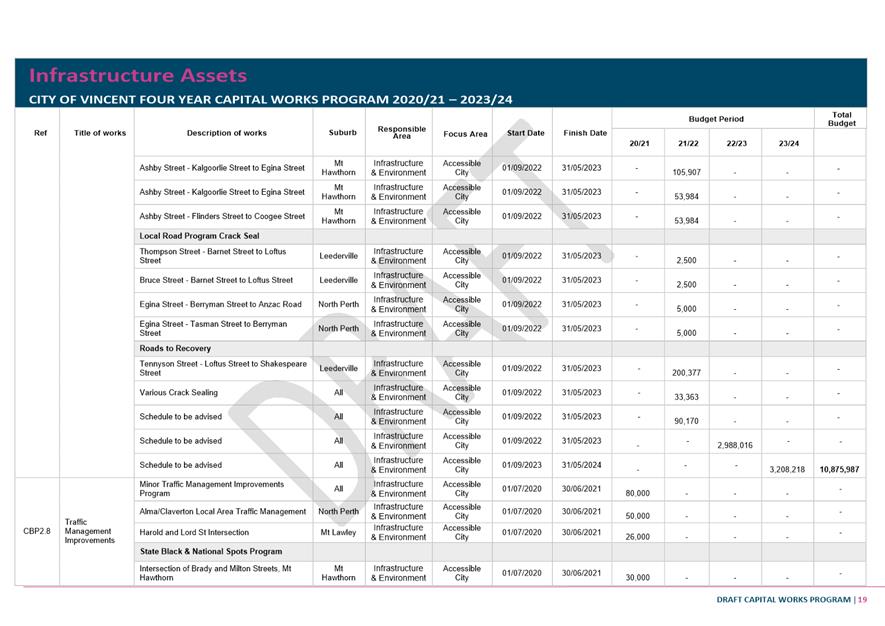
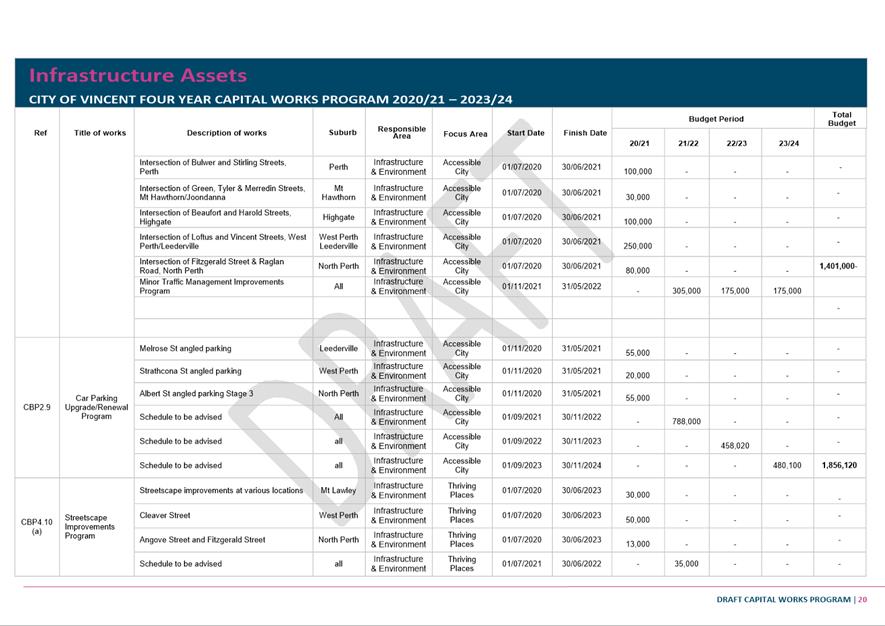
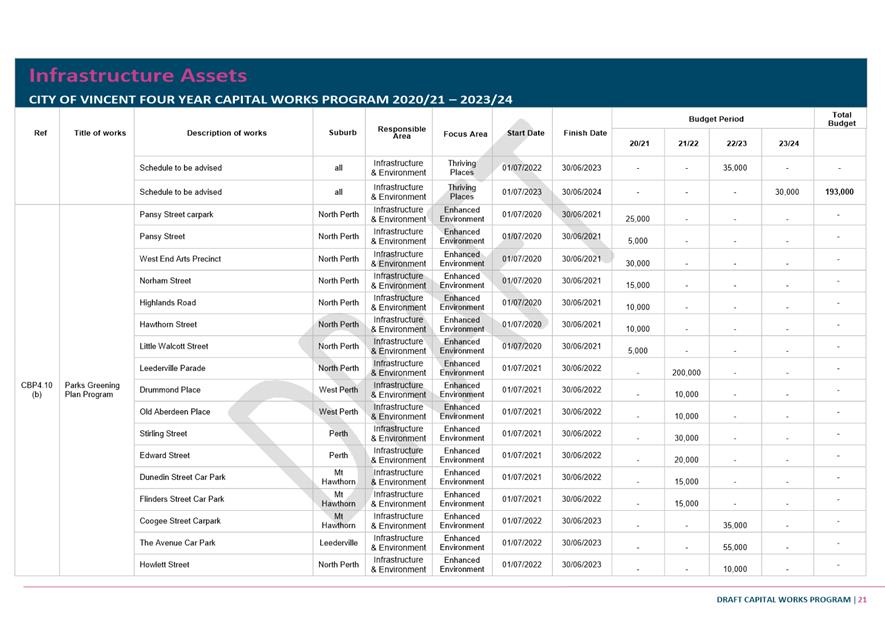
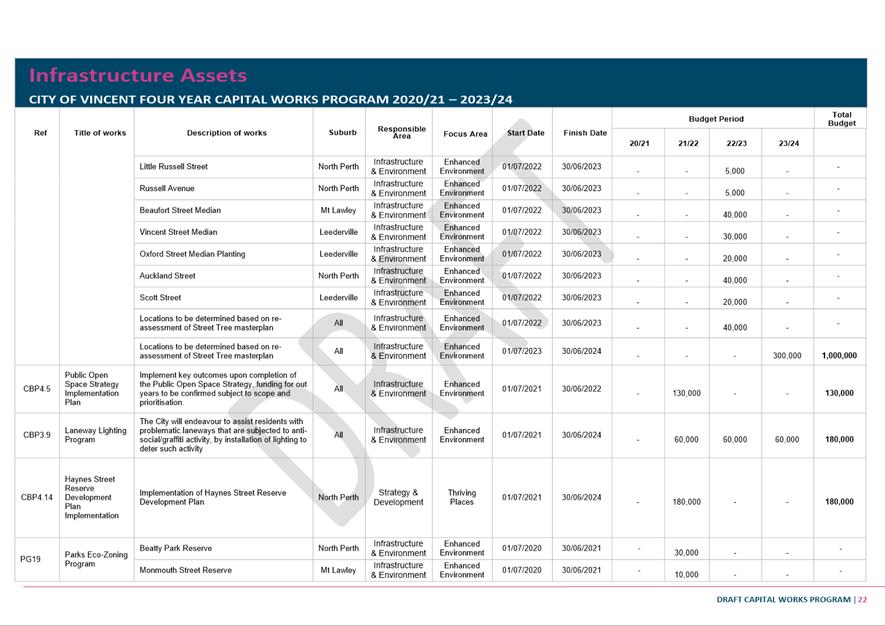
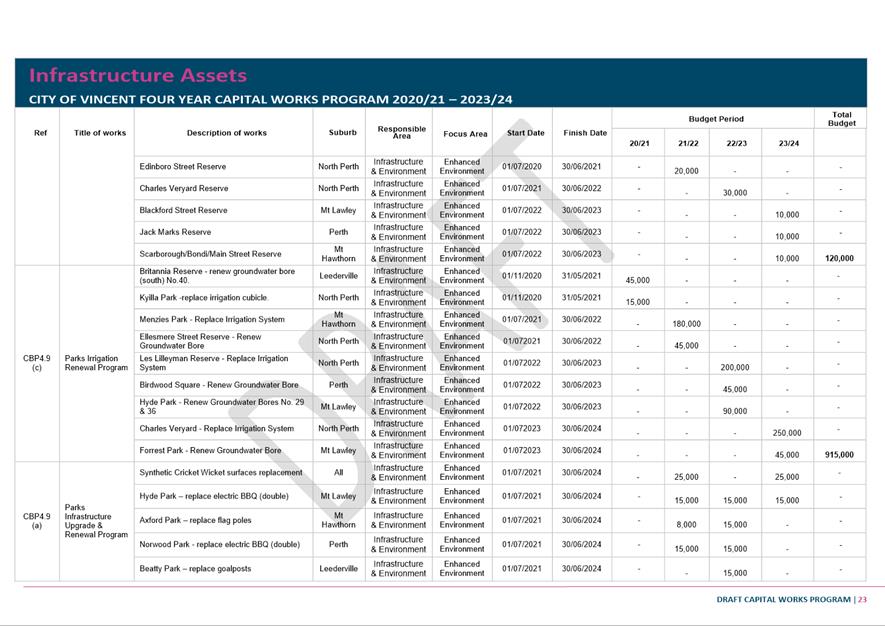
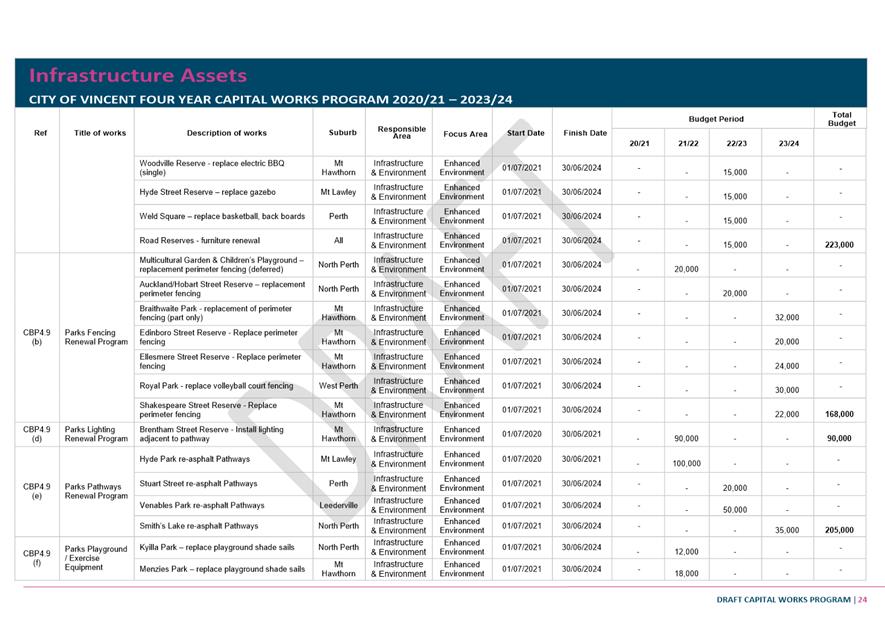
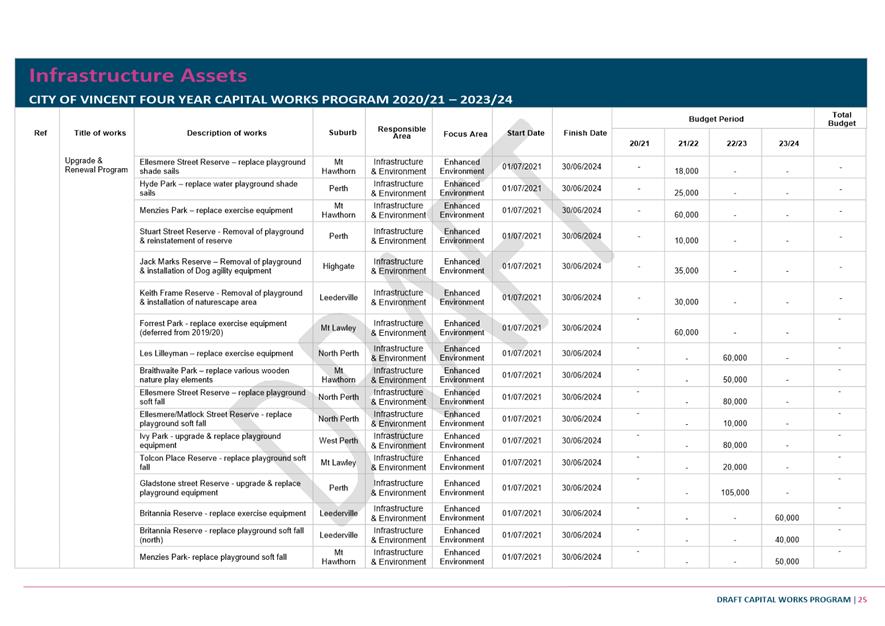
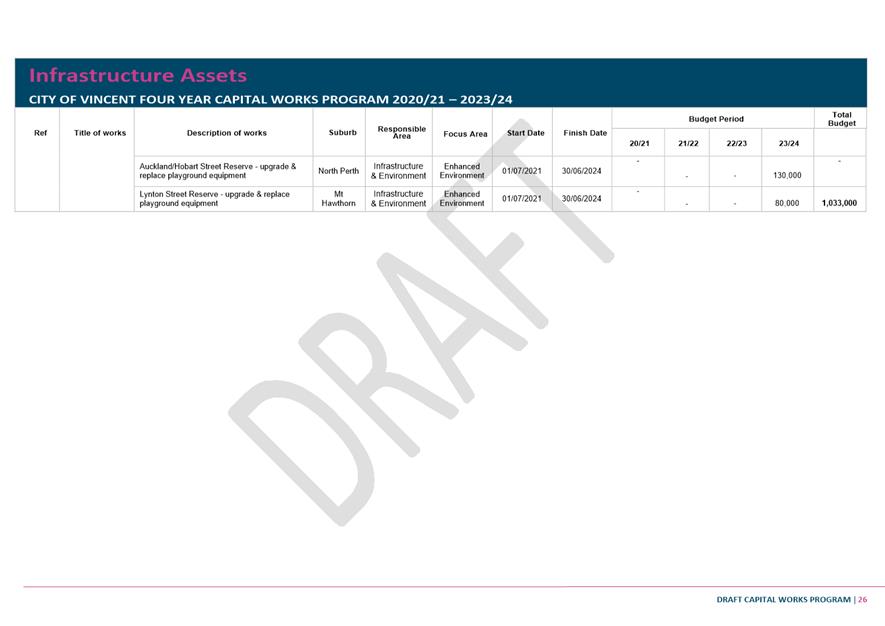
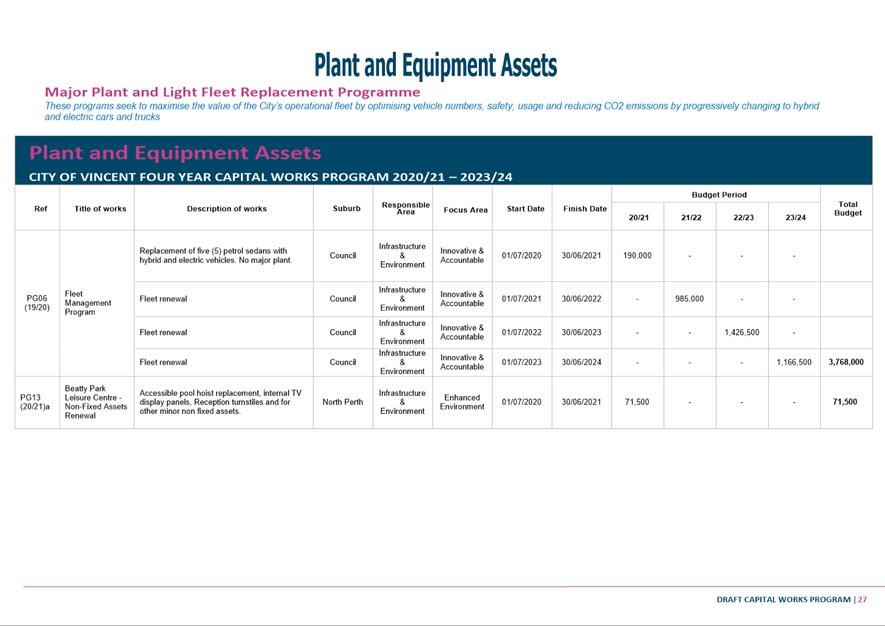
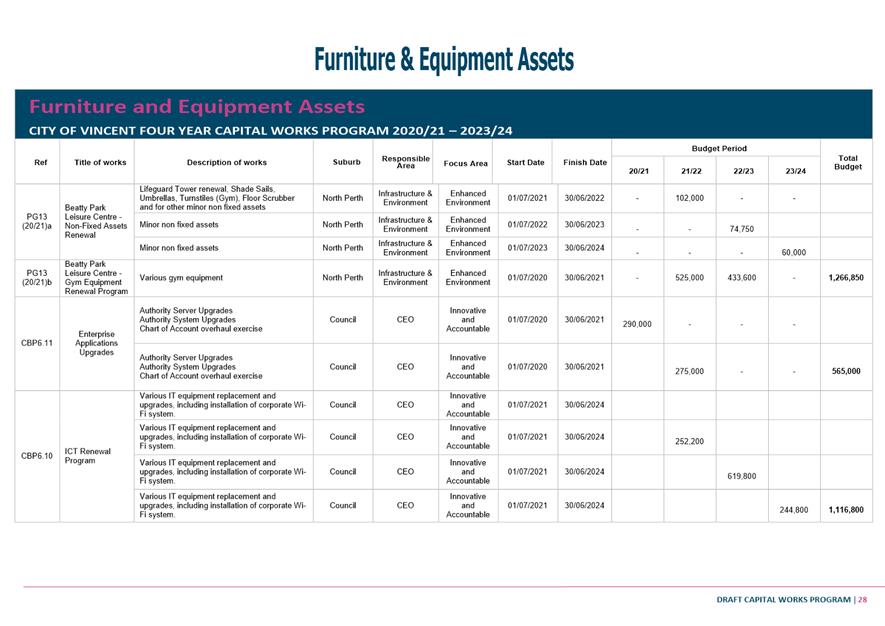
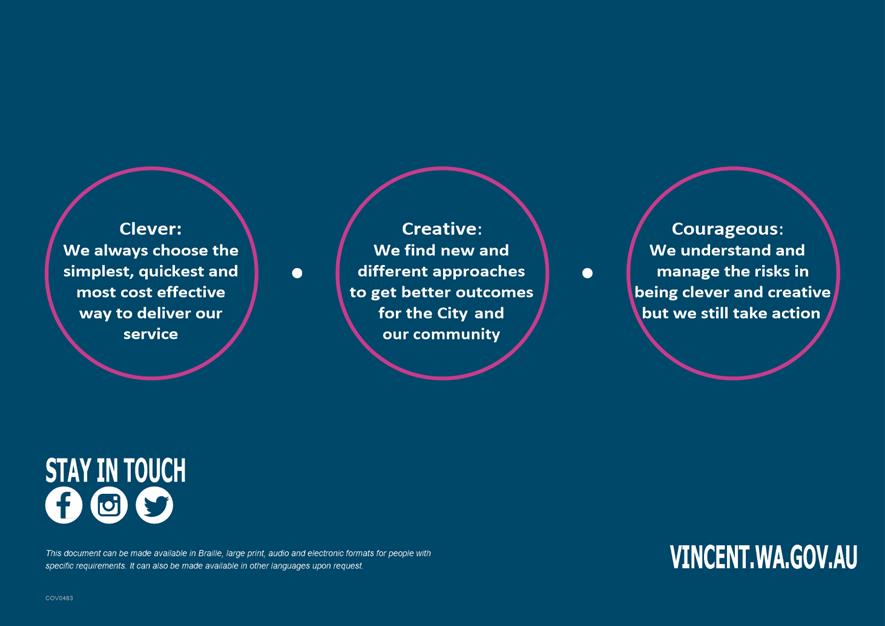
12.7 Information
Bulletin
Attachments: 1. Statistics
for Development Services Applications as at end of July 2020 ⇩ 
2. Register of Legal
Action and Prosecutions Monthly - Confidential
3. Register of State
Administrative Tribunal (SAT) Appeals - Progress report as at 30 July 2020 ⇩ 
4. Register of
Applications Referred to the MetroWest Development Assessment Panel - Current ⇩ 
5. Register of
Applications Referred to the Design Review Panel - Current ⇩ 
6. Register of
Petitions - Progress Report - August 2020 ⇩ 
7. Register of
Notices of Motion - Progress Report - August 2020 ⇩ 
8. Register of
Reports to be Actioned - Progress Report - August 2020 ⇩ 
9. Quarterly Street
Tree Removal Information April - June 2020 ⇩ 
|
Recommendation:
That Council RECEIVES the Information Bulletin dated
August 2020.
|
Ordinary Council Meeting Agenda 18
August 2020
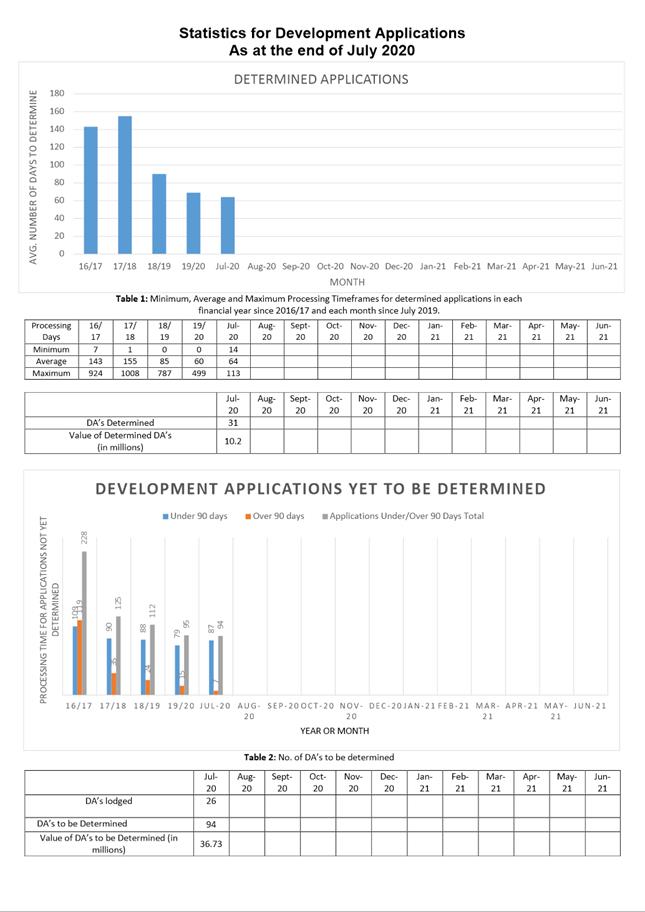
Ordinary Council Meeting Agenda 18
August 2020
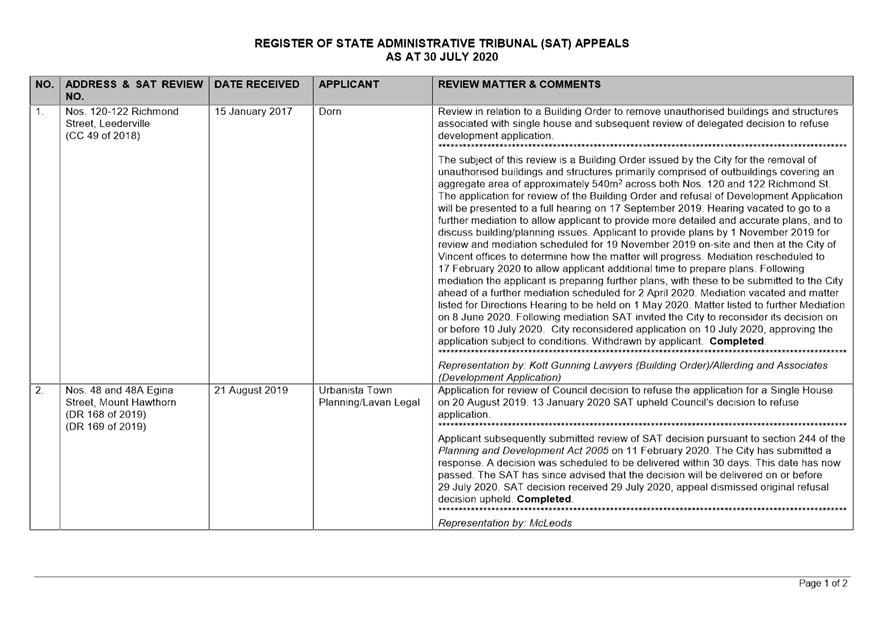
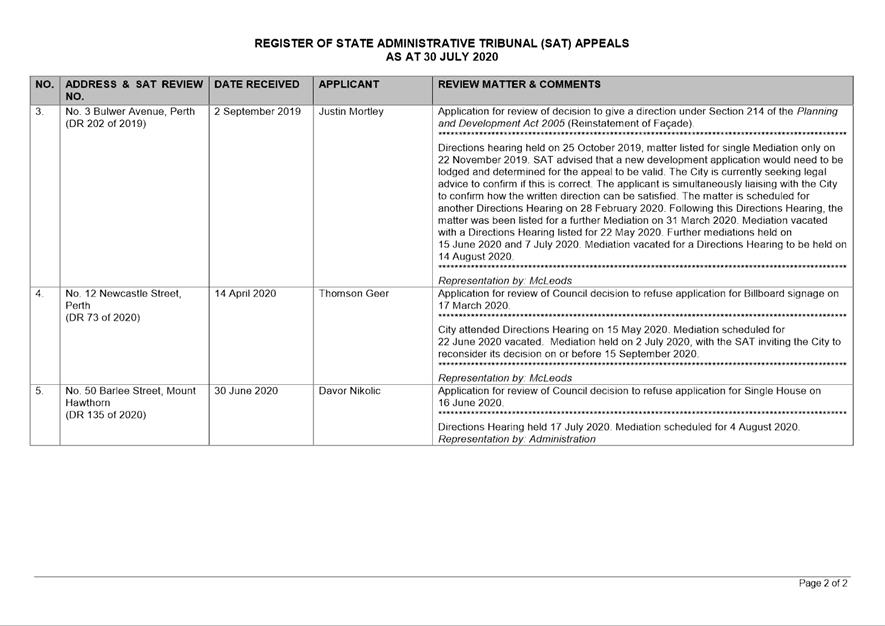
Ordinary
Council Meeting Agenda 18
August 2020
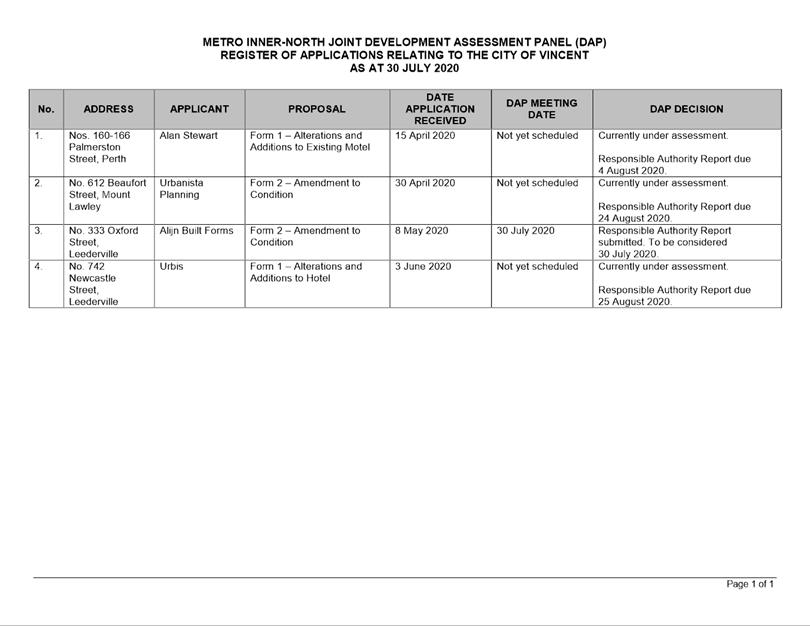
Ordinary Council Meeting Agenda 18
August 2020
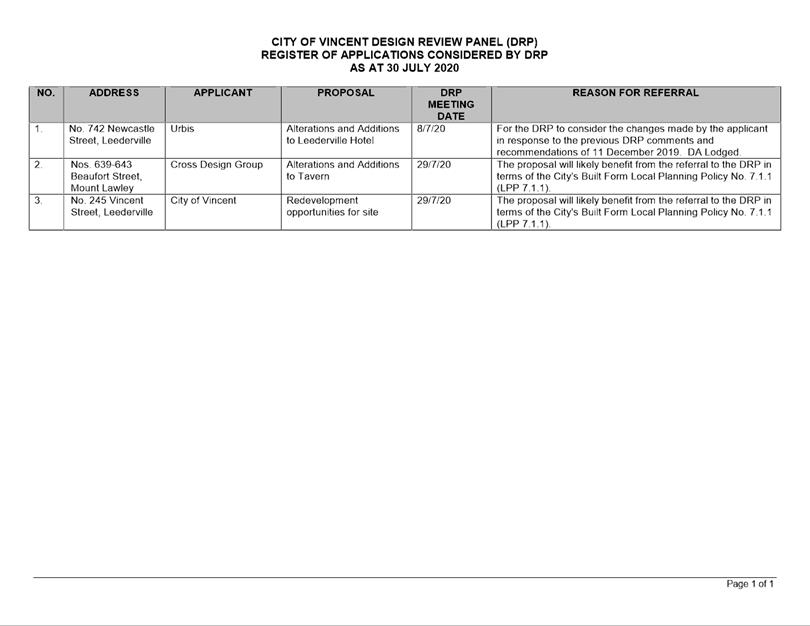
Ordinary Council Meeting Agenda 18
August 2020
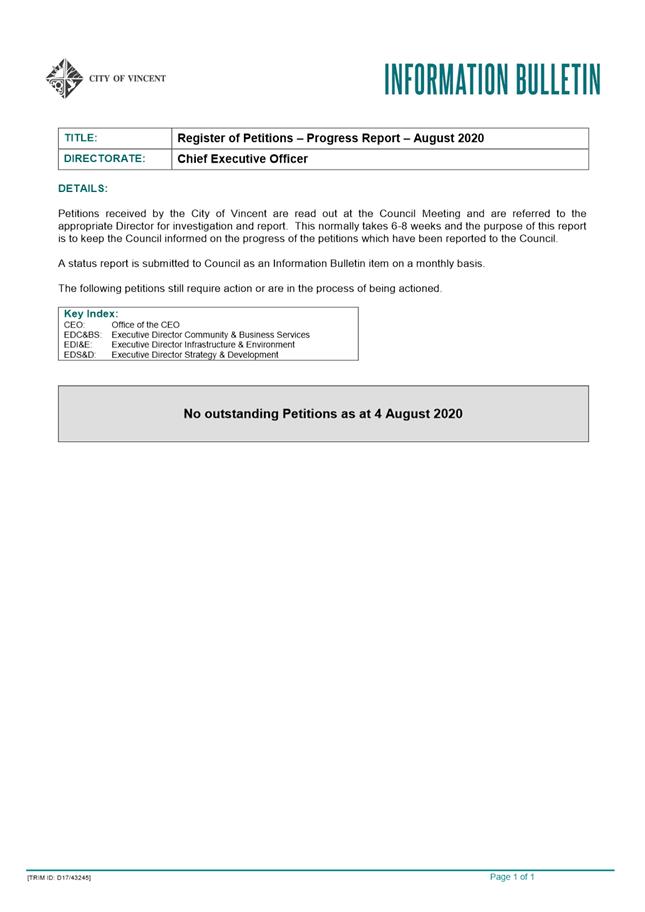
Ordinary Council Meeting Agenda 18
August 2020
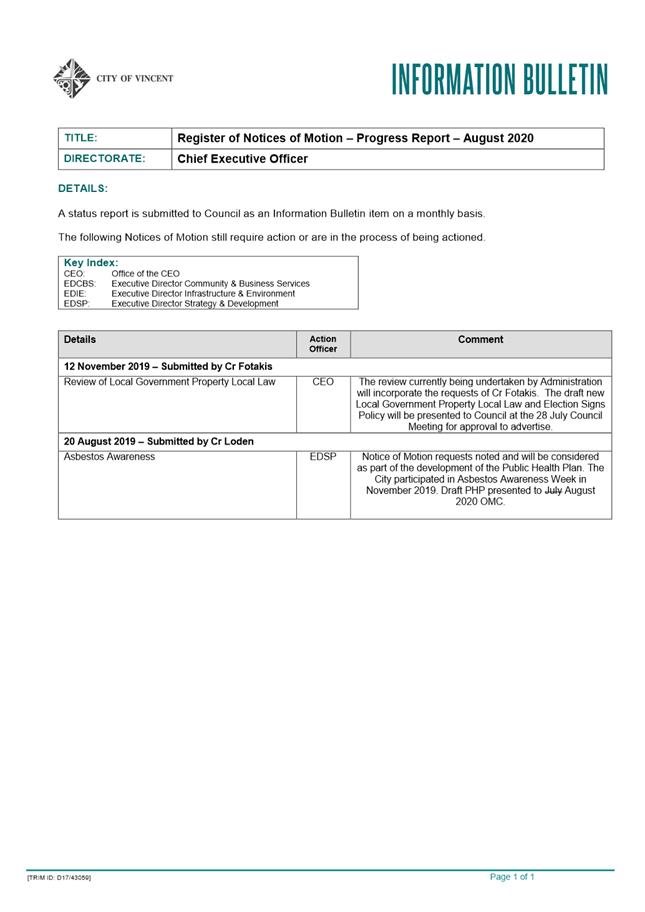
Ordinary Council Meeting Agenda 18
August 2020
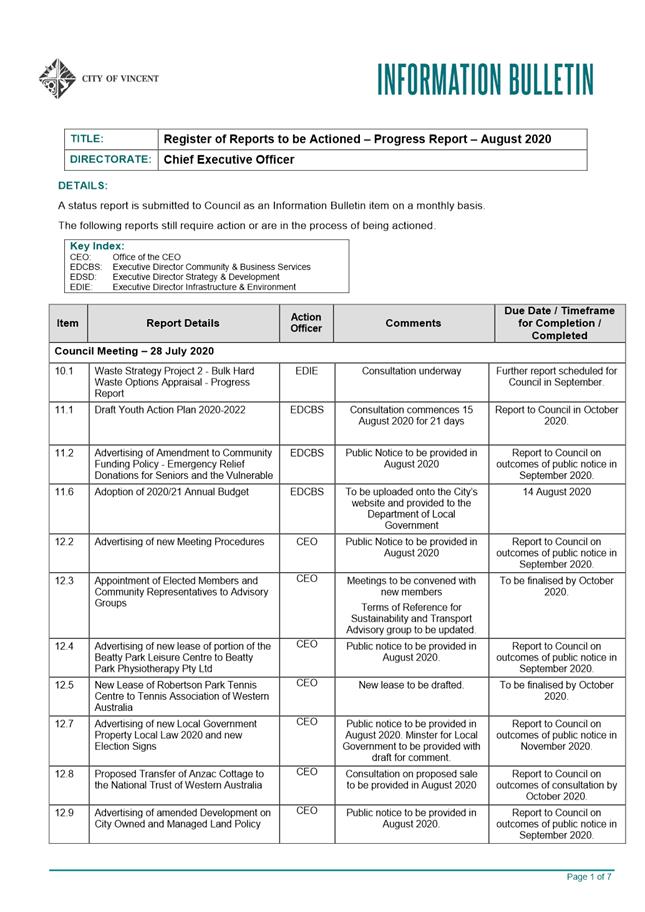
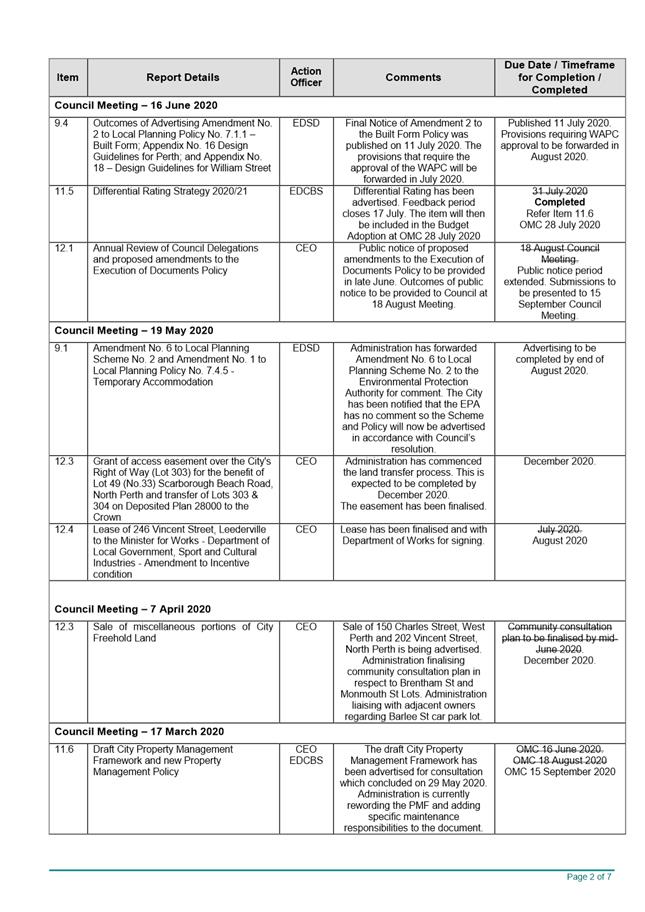
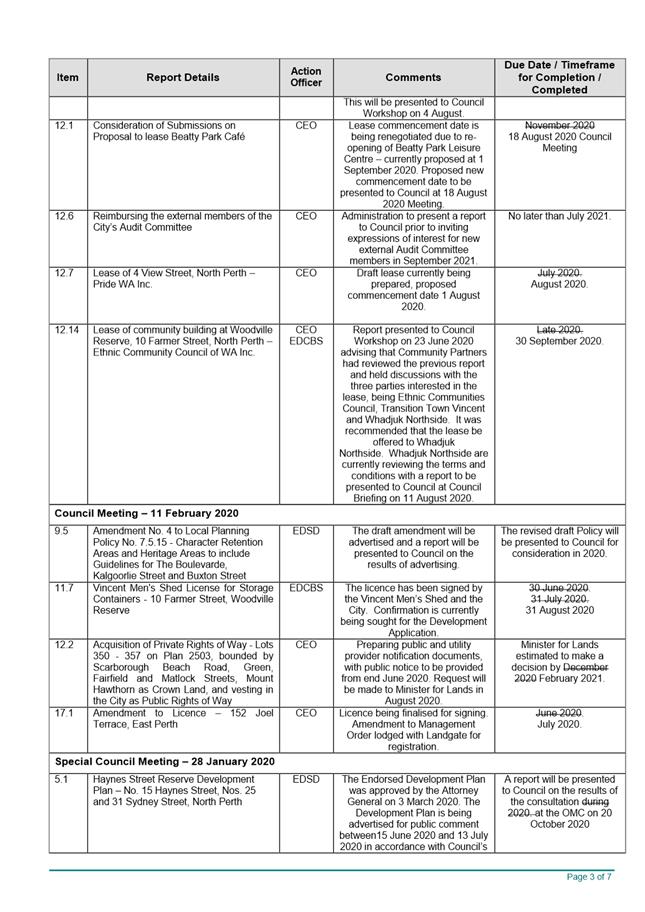
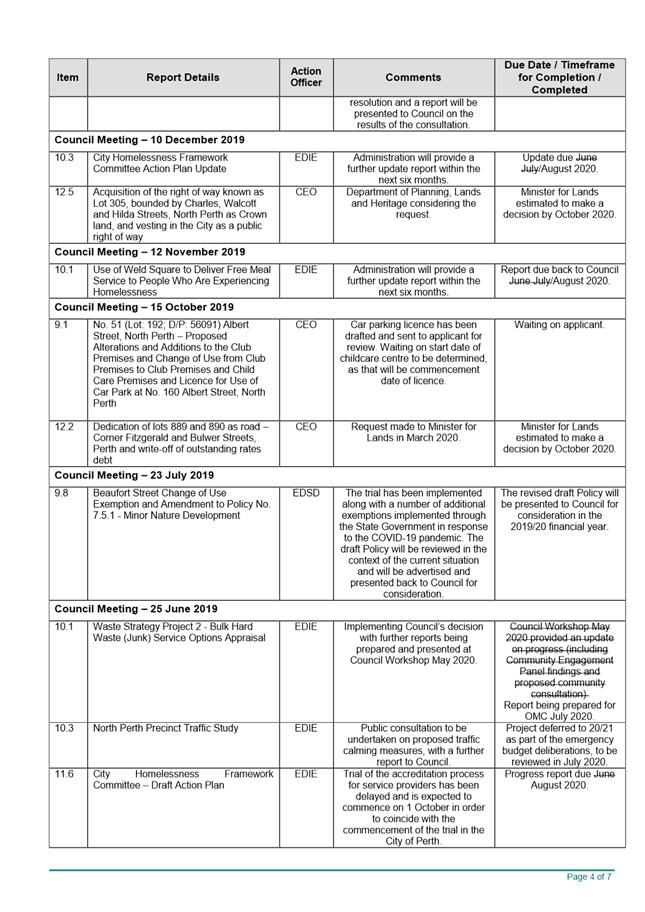
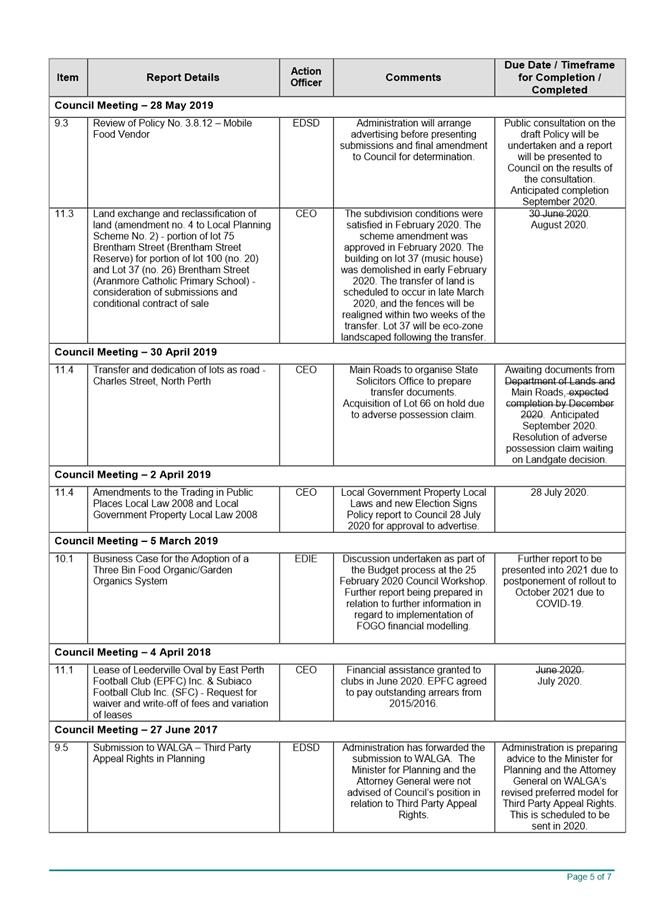
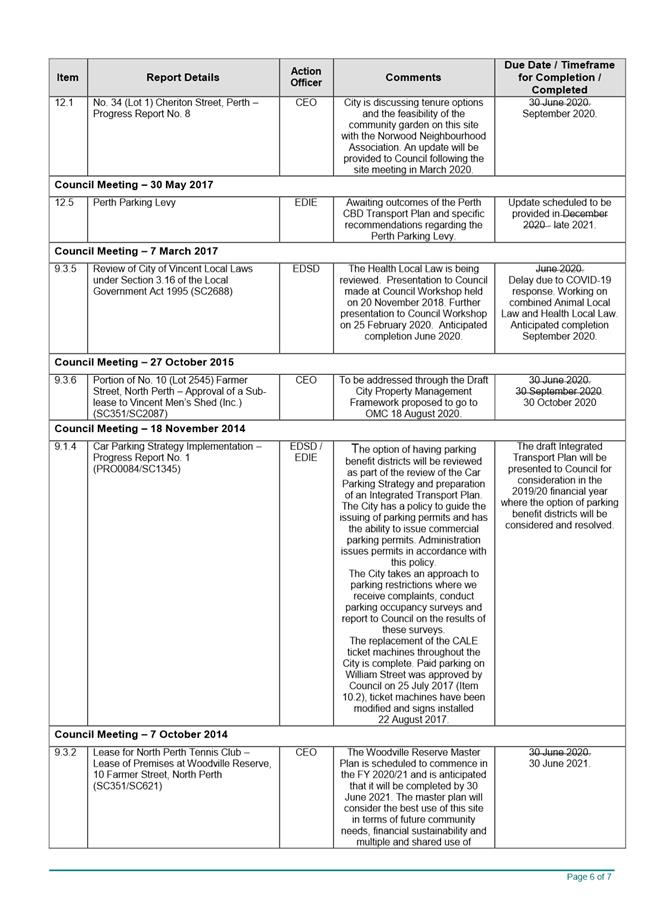
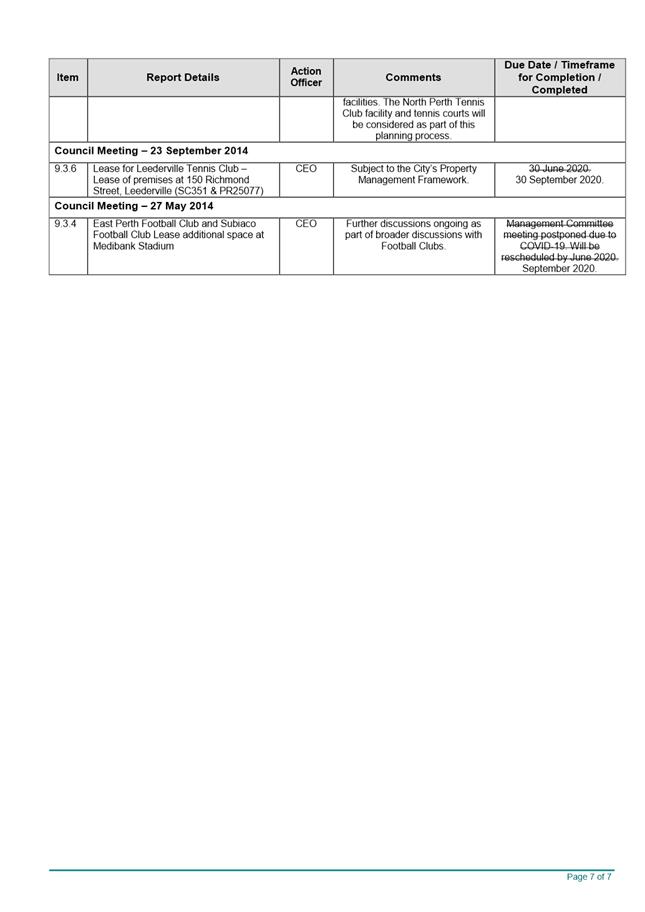
Ordinary
Council Meeting Agenda 18
August 2020
